In 2022, The Future Laboratory launched our annual Futures 100 Innovators Awards to celebrate creators, designers and change-makers: those among us who are taking on challenges that some of us may regard as unimportant, unworthy or unrighteous. They’re the people using new approaches, and sometimes counter-intuitive processes, to tackle those age-old problems of inequality, inclusion and levelling up that will still sit with us unless we innovate and imagine differently.
Every month in 2023, we have been profiling 10 people that our team of researchers and analysts have identified as driving forward industries ranging from beauty and wellness to luxury, design, retail and travel. After 10 months, our complete Futures 100 Innovators list will be presented to a panel of industry judges who will select and award their 10 leading innovators, revealed on 19 October 2023 at our autumn macrotrend preview: Home States Futures.
Find out more about the Futures 100 Innovator Awards and candidates nominated to date here: https://www.thefuturelaboratory.com/futures-100-innovators-awards
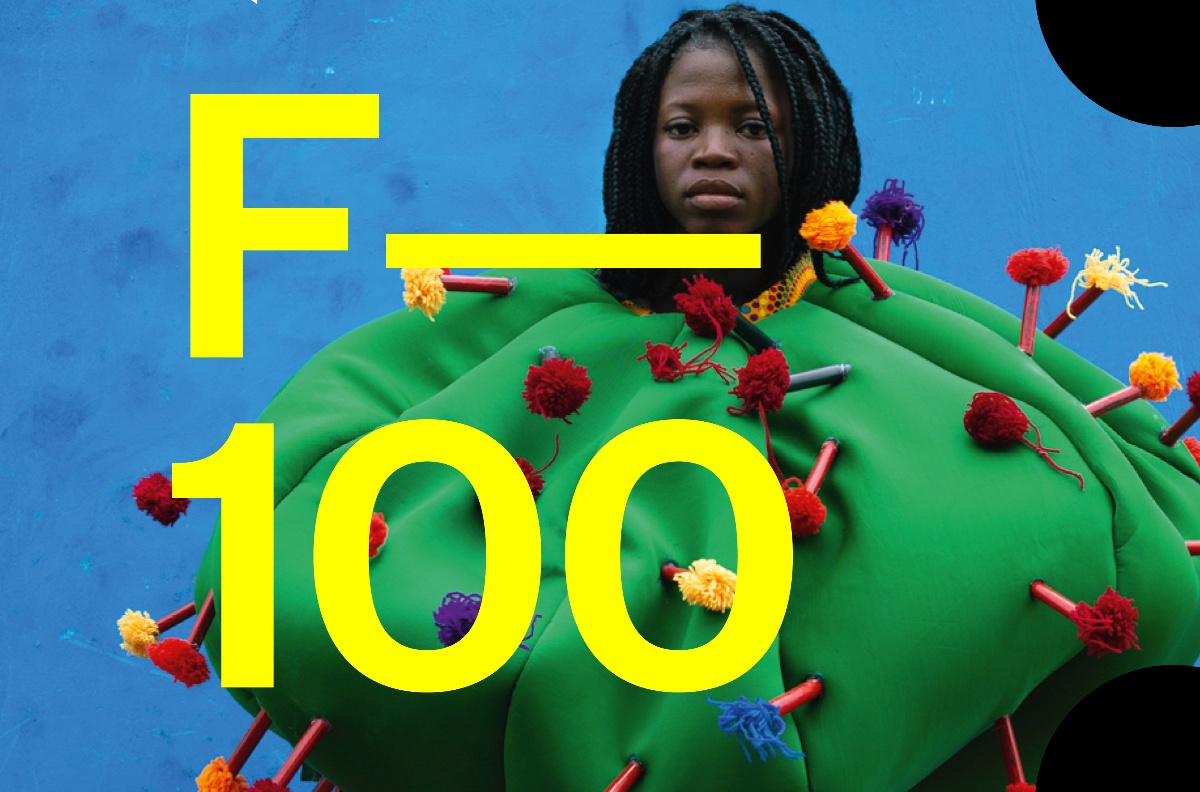
Futures 100 Innovators Award ceremony
Our Futures 100 Innovators Awards is an annual innovators list designed to celebrate those global innovators who are designing, creating or developing tomorrow’s next big game-changing innovations. It is published on our trends, consumer foresight and futures innovation platform, LS:N Global, and the finalists and winner will be announced during our online autumn macrotrend preview event.
Unlike other initiatives, our Futures 100 Innovators Awards straddle key lifestyle sectors and take a proactively diverse, inclusive and profession-agnostic stance on who can enter or be considered as a Futures 100 Innovator.
The Future Laboratory is one of Europe’s pre-eminent strategic foresight networks. In tandem with its online trends, consumer behaviours and strategic foresight platform, LS:N Global, it proudly supports its 2023 Futures 100 Innovators Awards across multiple content channels.
Media interviews with our Futures 100 panel judges, and/or nominees are available by request.

Futures 100 Innovators

Mica Le John and Michael Taylor
Facilitating self-expression in the metaverse

Mica Le John and Michael Taylor
Idoru is a new app that enables users to personalise hyper-real digital avatars. Founded by humanist technologist Mica Le John and former fashion art director Michael Taylor, Idoru sits at the intersection of self-expression and creativity. ‘What we’re building with Idoru is a space for users to create and explore, using themselves as the medium,’ Le John tells Dazed.
The pair hope to remove any body or financial limitations that people might experience in real life, and instead offer a space for people to freely experiment with their identity/identities. As well as enabling freedom for self-expression, the concept also ensures the options available to people in the metaverse are as diverse as the real-life users – an implication we recently highlight our report on The Betterverse.
The mission doesn’t stop here. Le John and Taylor plan to develop Idoru into an all-round service that enables people to be their fullest selves in the virtual world. ‘That’s the full stop of what we want to work towards. So, everything we build within the product is in service of that,’ says Le John.
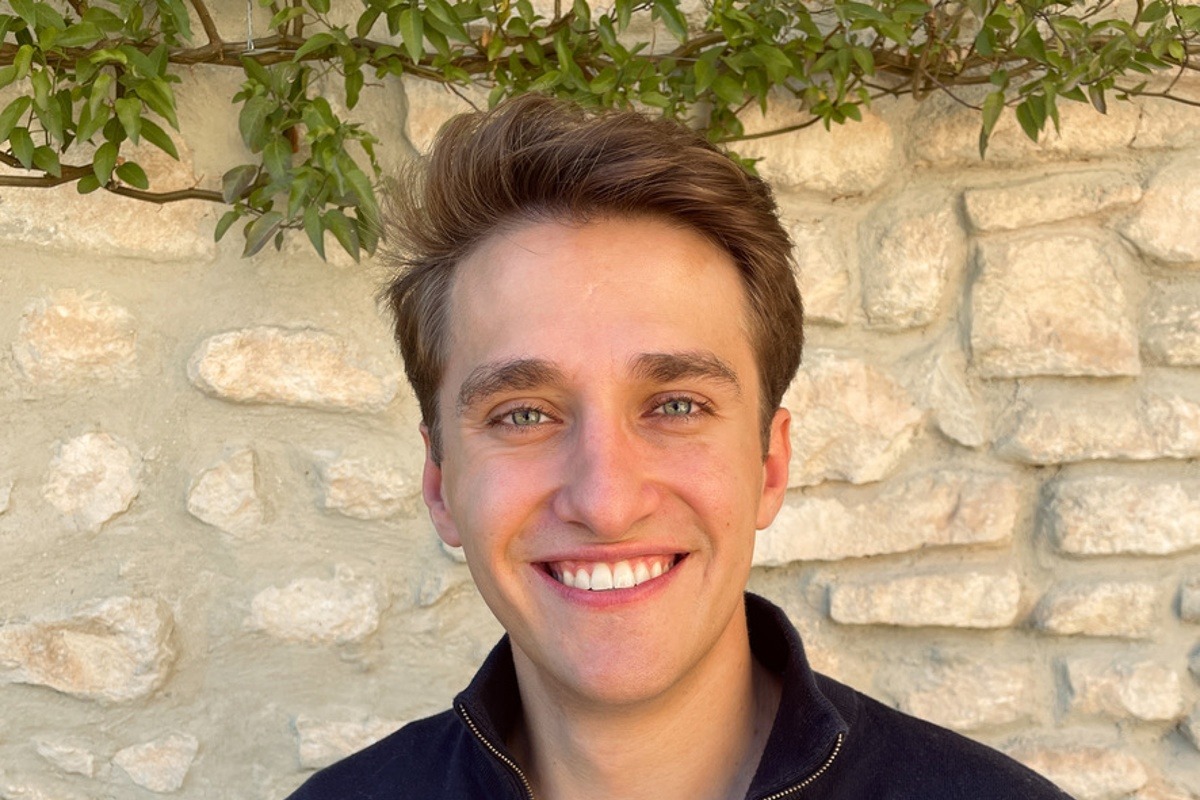
Freddie Moross
Realising the potential of music as medicine
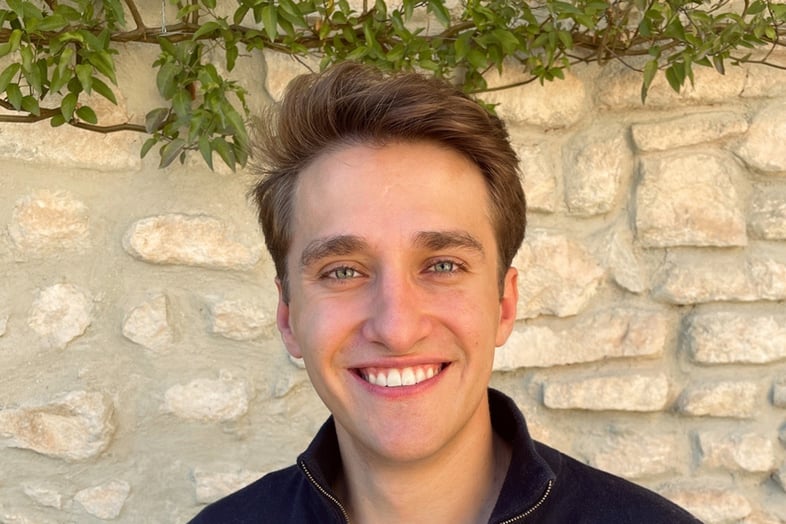
Freddie Moross
Moross started his media career at Cutting Edge Group, a full service provider of music for film, television, advertising and gaming. It was there that he was introduced to music as a source of wellbeing and came into close contact with a range of leading music artists. Alongside his role as head of marketing at Cutting Edge Group, Freddie became heavily involved in the group’s subsequent brand, Myndstream, where he is now managing director.
Myndstream is dedicated to designing music for health and wellbeing, and is the music partner of the renowned Global Wellness Institute and its annual Summit. The company hopes to become an acclaimed partner for businesses which use audio for therapeutic and clinical experiences, such as spas and health clinics.
For his work and his growing ambition, Moross was recently awarded the Debra Simon Award at the Global Wellness Summit for being a Leader in Furthering Mental Wellness. His most recent project explored music for neurodiverse children in educational environments a
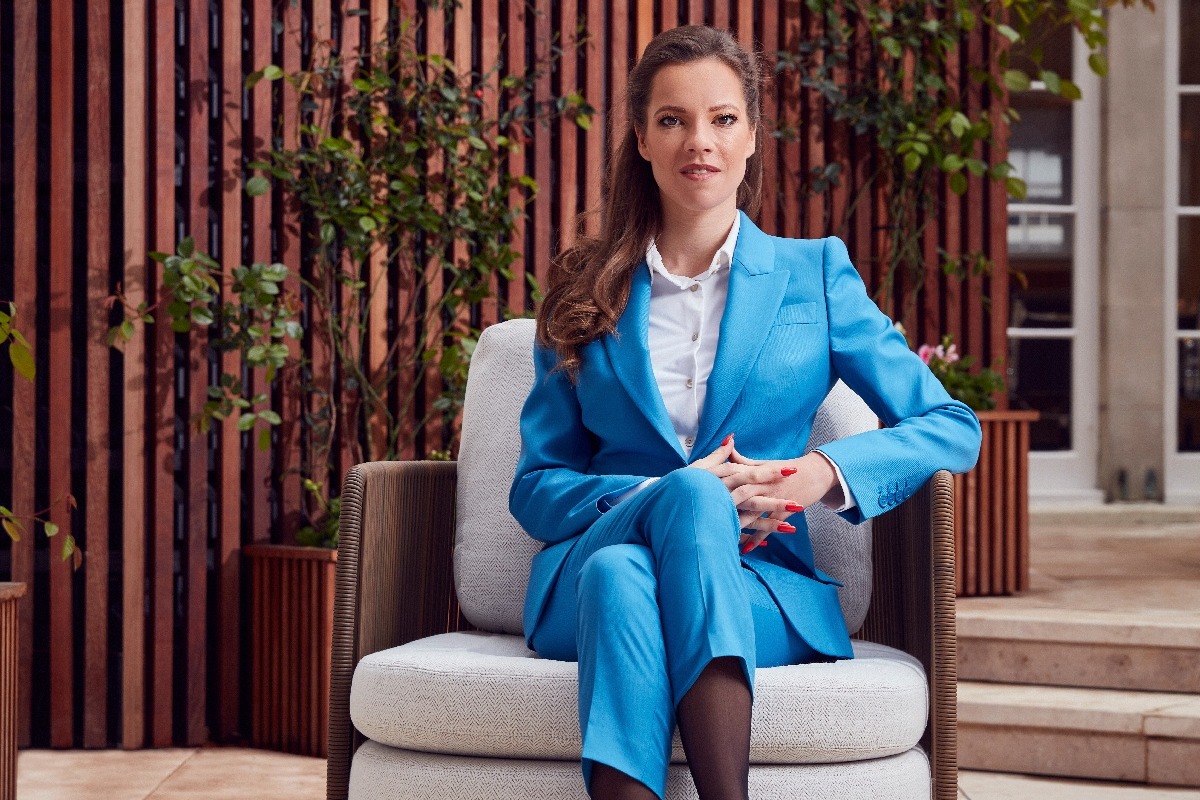
Marie-Julie Gheysens
Disrupting the UK property market
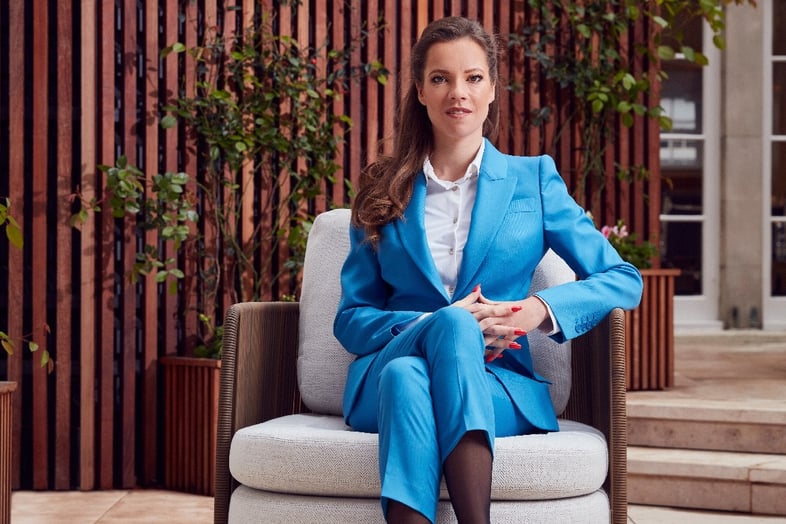
Marie-Julie Gheysens
Marie-Julie Gheysens is a young property developer on a mission to create greener and smarter developments across the UK. Aged just 28, she is the UK managing director of her father’s company, Ghelamco, and is working on the group’s first UK property, The Arc.
East London caught Gheysens’ eye 10 years ago when she first moved to the capital. While she admires Shoreditch for its edge, she saw an opportunity to bridge a gap between Hoxton and Islington. She recognised the under-utilised space and had a clear vision for a new public open space. And so The Arc was born, a mixed-use destination with a focus on health, wellness and sustainability. The building is set for completion in January 2023, and will be fully electric, with its carbon emissions 30% lower than its multi-fuel-operated peers. It will be a place where the local community can relax and socialise, while also having access to a health and wellness hub and a range of independent lifestyle retailers.
With wellness and sustainability front of mind, Gheysens is not only leading the way for developments across the country, but also for young women keen to make a difference in the property and construction industry.
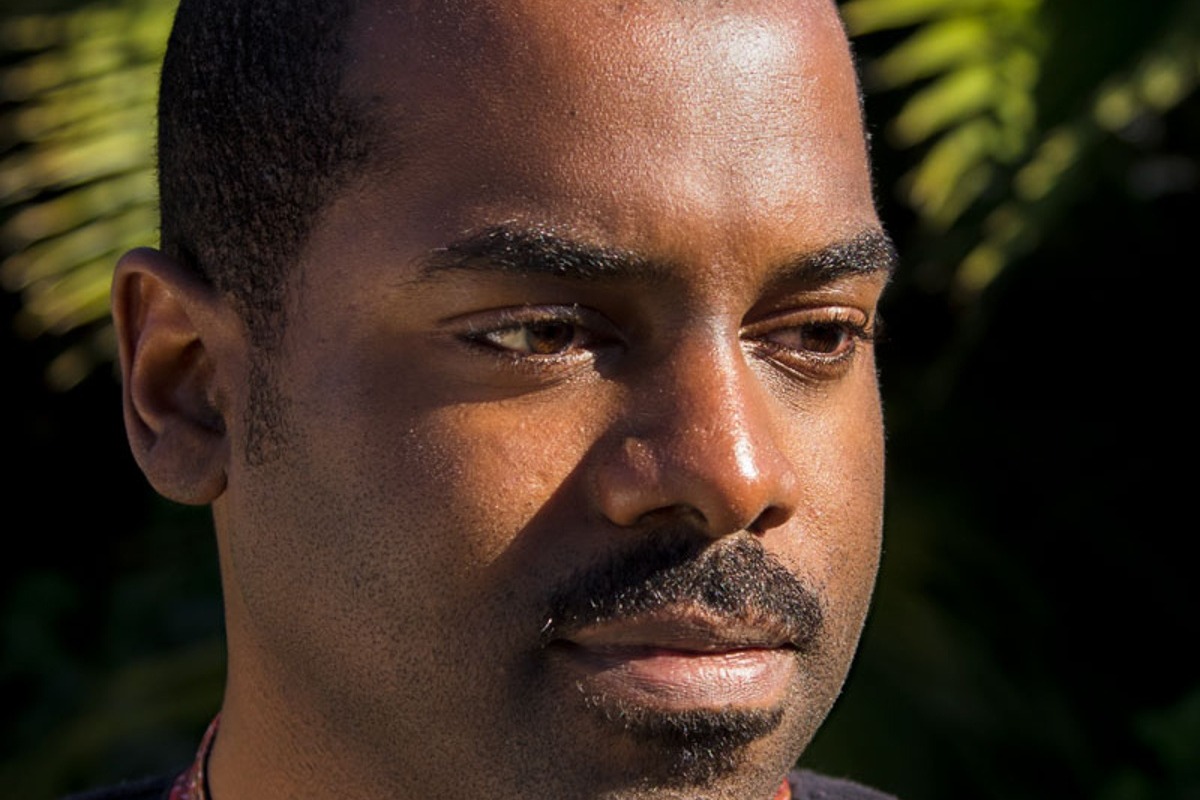
Onye Ahanotu
A trans-disciplinarian fusing science, culture and passion
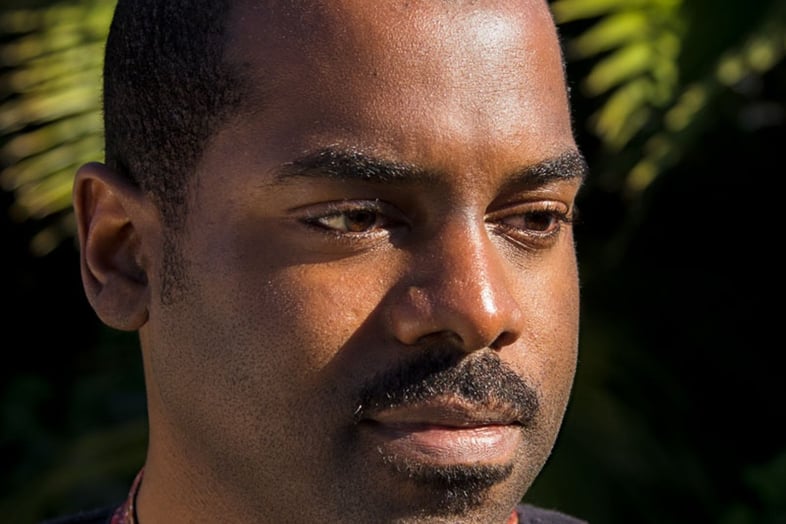
Onye Ahanotu
Onye Ahanotu is a scientist turned home chef and winemaker. After gaining a bachelor of science in chemical engineering and material science from the University of California, he obtained a master’s in material sciences and engineering. These classical skills were then used on his first post-studies project where he launched an adaptive materials platform that offers specialised surfaces for hospitals to save energy and reduce infections.
Outside of his professions, Ahanotu is an observer of different cultures, life and humanity. He grew up as a Nigerian-American in the heart of the now world-renowned Northern California Wine Country. With an interest in cooking and different cuisines, flavours and techniques, he eventually amalgamated all of his passions to form Ikenga Wines.
Ikenga Wines produces the world’s first bio-designed palm wine, one of the oldest known wines that naturally occurs when sap from damaged trees spontaneously ferments within hours. Its intention is to transform a tasting experience that focuses on flavour while reducing environmental impact through elegant design.
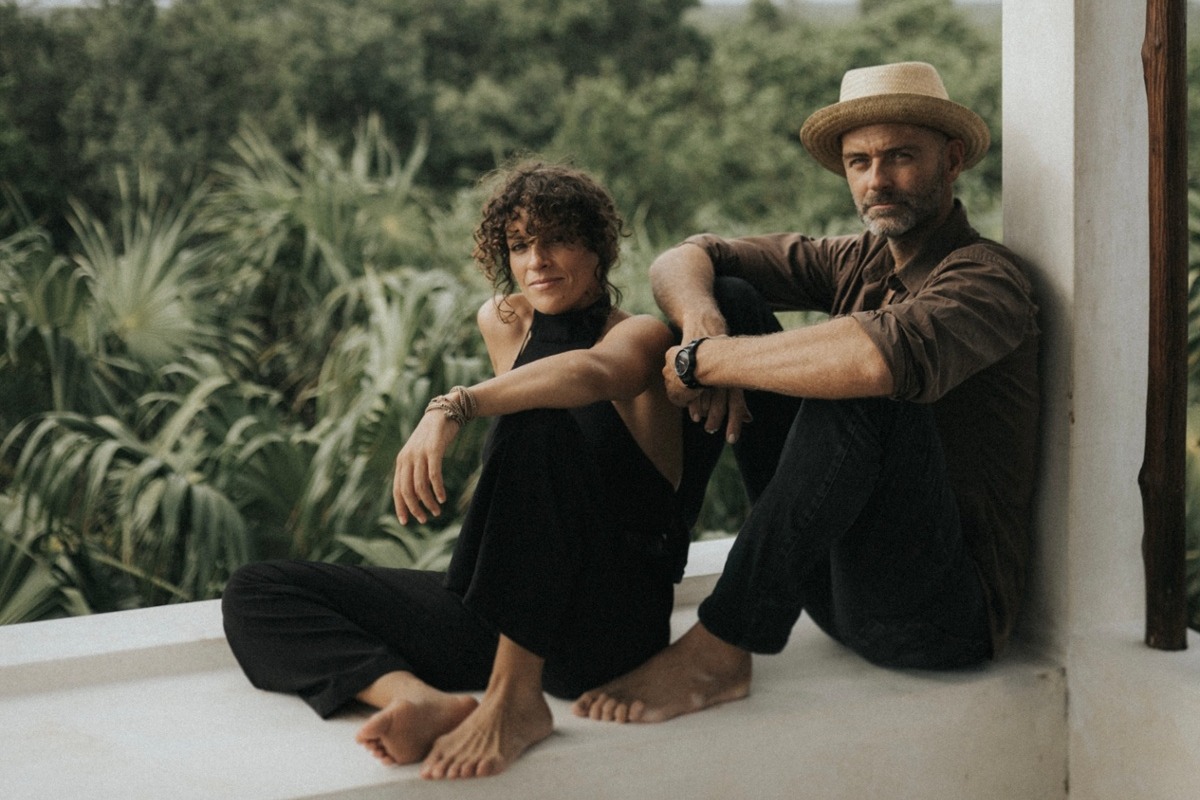
Joana Gomes and Joshua Beck
Injecting slowness into the hospitality experience
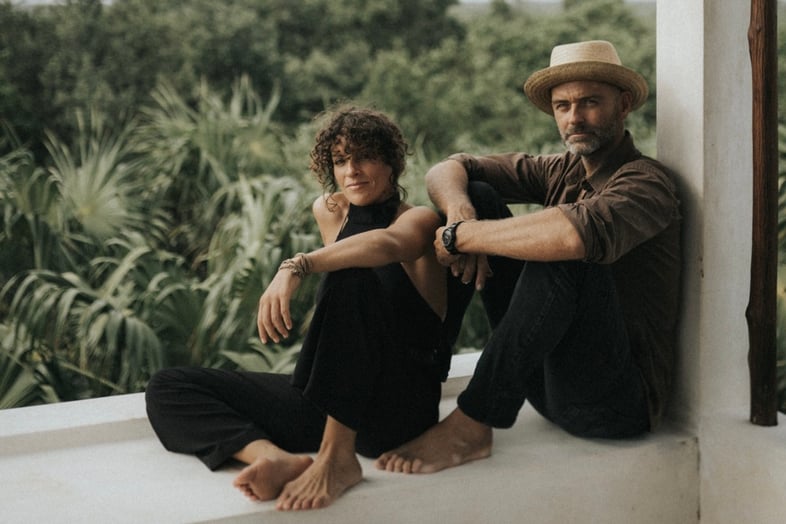
Joana Gomes and Joshua Beck
Joana Gomes and Joshua Beck are co-founders of Mexican architecture studio, CO-LAB. In 2021, they were brought on board as resident architects at Slow, a hospitality collective co-founded by Design Hotels’ Claus Sendlinger.
While CO-LAB was born in 2010, the pair have had the same mission throughout their career: to encourage a greater connection to the natural world through design. They join a range of designers, farmers, writers, artists and creative minds to reset the values of hospitality by injecting slowness into its practices and experiences. They have architecturally led projects such as the company’s prominent Tulum Treehouse, which is a five-bedroom guesthouse and destination restaurant that explores the tastes, flavours and musical expressions of the Yucatán Peninsula in Mexico.

Alice Bastin
Shattering antiquated misconceptions around crystal

Alice Bastin
In late 2022, Alice Bastin was appointed as the new creative director of Irish heritage crystal brand Waterford, where she is working towards shaking off conventional views of tabletop and decorative crystalware, while injecting a new age of artistry into the brand.
Her previous roles at luxury French fashion houses Chloé and Céline, as well as her most recent venture at Alexander McQueen, have left her in an appropriate position to refashion Waterford’s heritage through impactful visuals and campaign messaging. ‘How I approach fashion is the same way I approach any creative project, including home décor, and now crystal,’ says Bastin. Of her first campaign for Waterford, she adds: ‘Clarity and quality are both at the crux of Waterford’s historic success, so those were natural concepts to influence this campaign. That meant introducing the same authenticity and a palpable sense of quality to the overall aesthetic and messaging in the execution of these images.’
The campaign imagery was showcased in Waterford’s Soho pop-up in October 2022 in New York and was part of the brand’s mission to reach a wider consumer base.
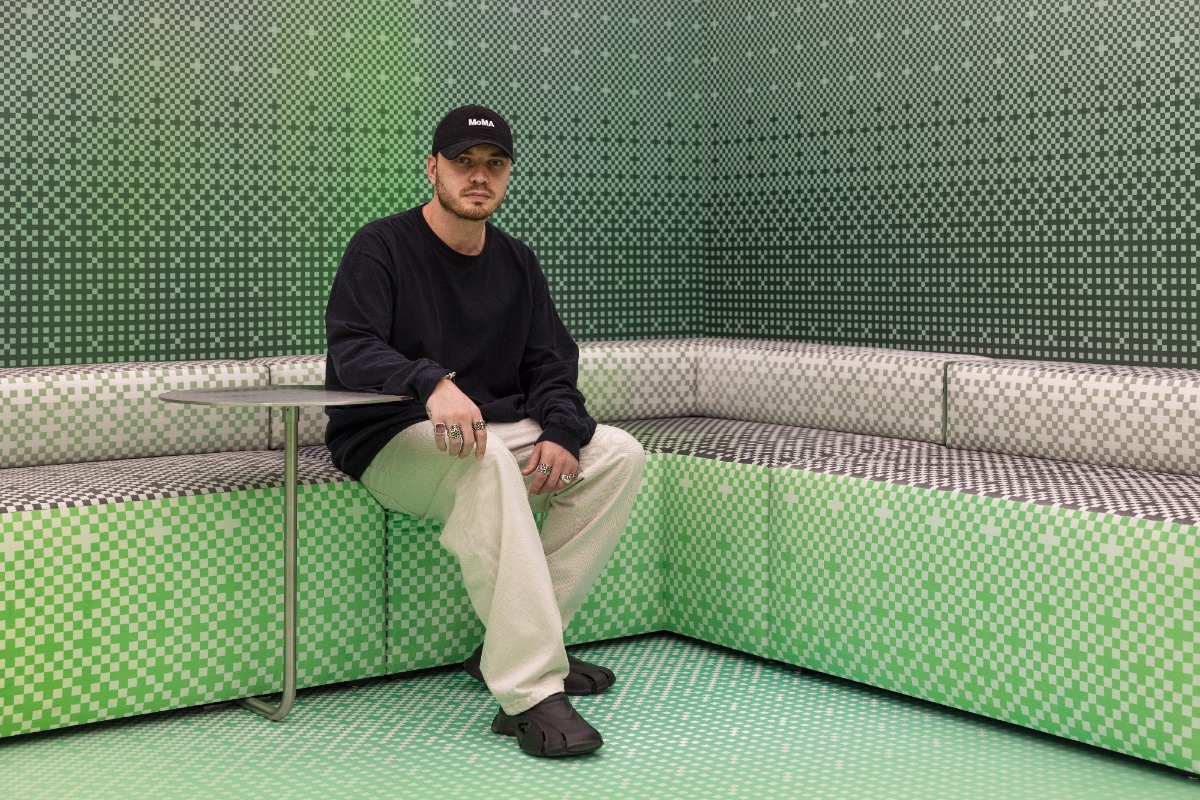
George Yashin
Immaterialising fashion experiences
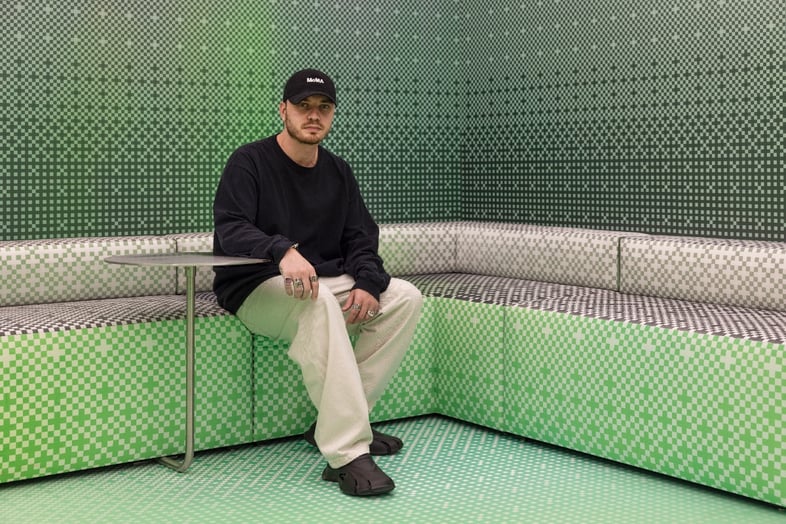
George Yashin
Co-founder and CEO of New York’s new immaterial fashion concept, Zero10, George Yashin is no stranger to developing successful start-ups. With 15 years of experience in the fashion, tech, visual arts and product design industries, and two brands later – ZNY Worldwide and SoleFresh – Yashin co-founded Zero10 with software expert Anton Timashev.
Zero10 is an app for augmented reality (AR) dressing that enables users to try on digital clothes in real time through their phone camera. They can also purchase, save and collect digital garments in their virtual wardrobe and create shareable photo and video content for social media.
The company is one of the leaders in the field and is working on a proprietary AR clothing try-on technology based on body-tracking, body segmentation and cloth simulation, which allows digital clothing to look more realistic than ever.
While Yashin might soon be on his next venture, the technology designed by Zero10 is here to stay. It plans to disrupt the currently limited market of hybrid physical and digital fashion.
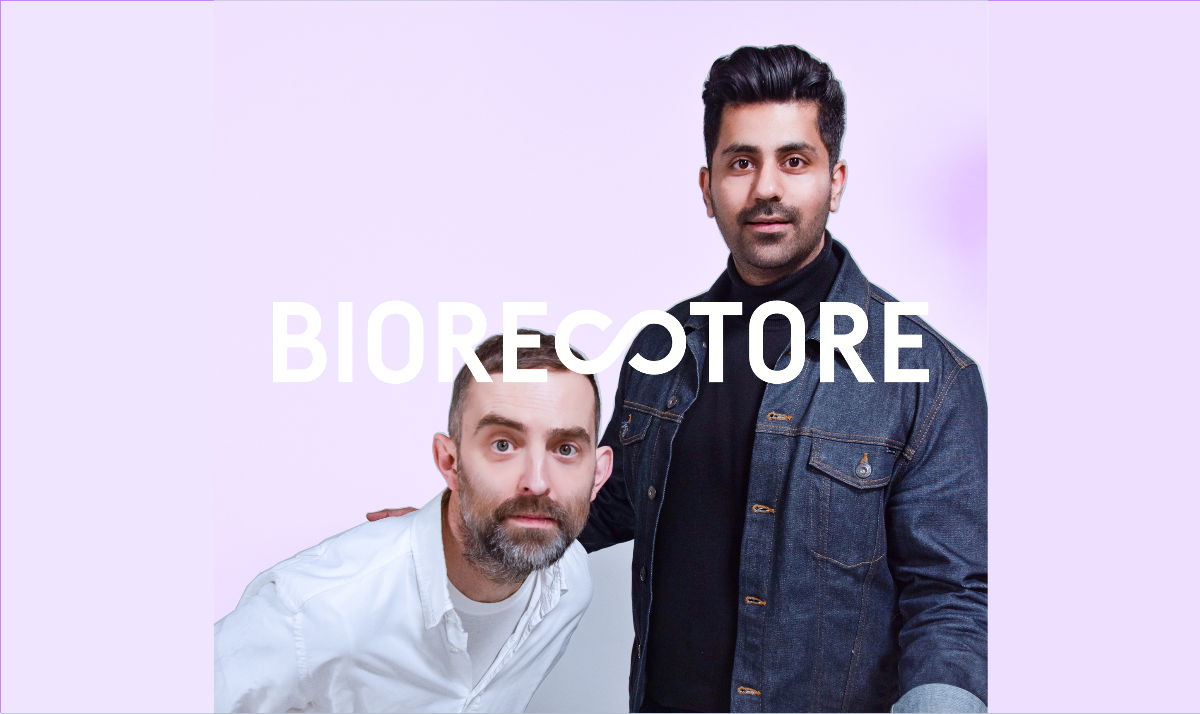
Wajahat Hussain and Richard Toon
Preventative ageing for your garments
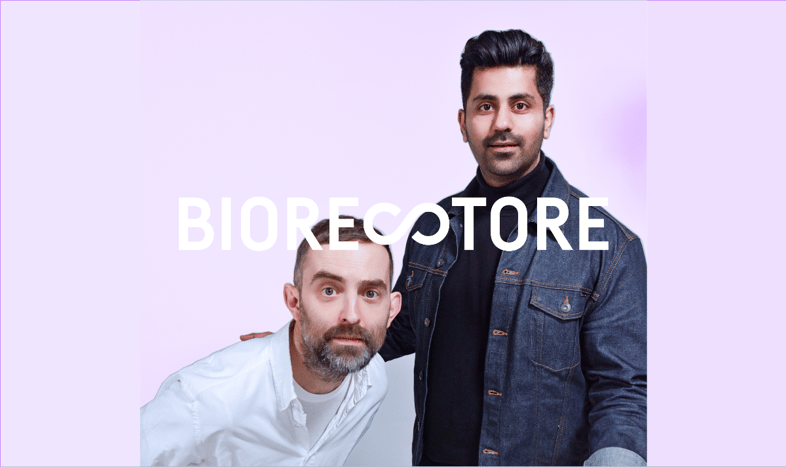
Wajahat Hussain and Richard Toon
Biorestore co-founders Wajahat Hussain and Richard Toon met at fashion brand Gant over five years ago and collectively, the pair have over 30 years of experience in the fashion, textile and material science industries, with a particular interest and expertise in sustainability innovation.
Their attentiveness to circularity led them to want to develop their own stand in the industry in the circular fashion sector. ‘Whilst we knew that mountains of wasted garments could be repurposed or recycled, we wondered if they could instead be simply renewed and restored,’ the brand’s website reads. To solve this, the pair decided to develop a company focused on garment protection and renewal.
Biorestore is a patent-pending home laundry ‘Re-Tergent’ that renews, revives and restores old and worn clothing to new. The product removes pilling, lint, garment fuzz and bobbles from the surface, while also improving the colour brilliance, realigning the fibres and reshaping the fabric structure.
The company was selected as a 2022 winner of the H&M Global Change Award, which recognises change-makers in the fashion industry that are helping to make the planet positive and fulfil the UN Sustainable Development Goals by 2030.
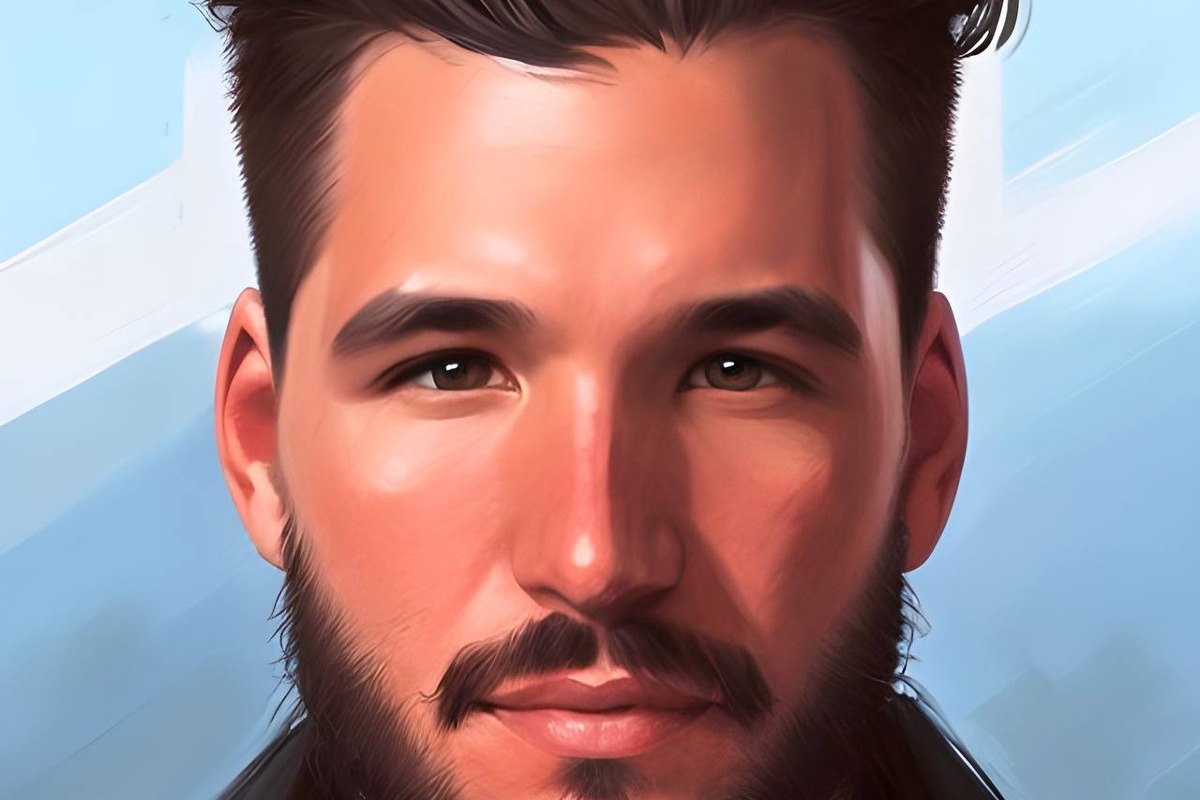
Ryan Gill
Crowdsourcing community for an open internet
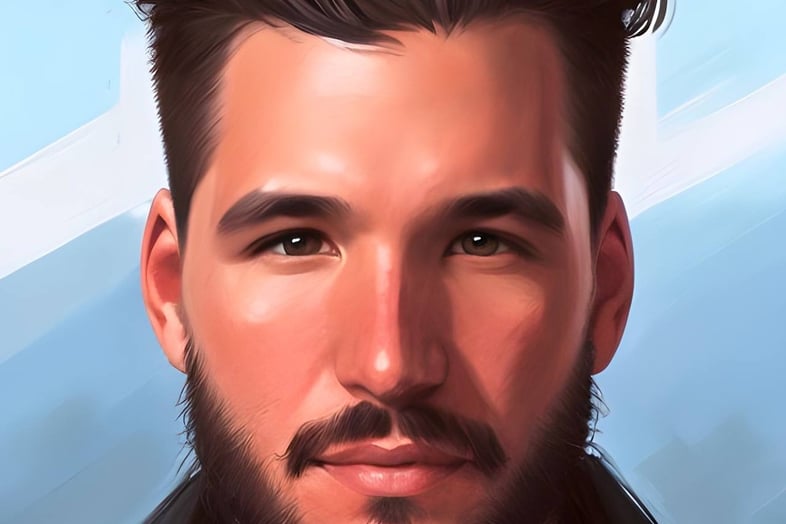
Ryan Gill
Ryan Gill is founder of the Open Meta Association, an organisation dedicated to building an open metaverse for all.
A leader in Web3 and the wider tech landscape, Gill views the metaverse as a public utility that should be accessible to all and upon which anyone can build. The Open Meta Association has launched the Open Meta DAO to realise this future, attempting to accelerate the growth and adoption of the metaverse by replacing traditional big tech and brand gatekeepers of digital eco-systems with a community of like-minded people.
Gill is also co-founder and CEO of Crucible, a Web3 company that designs and creates software to enable game developers to build within the open metaverse. With expertise across Web3, gaming and entrepreneurship, Gill uses his knowledge to connect people to his vision for an open, ethical and inclusive metaverse.

Eliana Konsker and Brigitte Canty
Spearheading a sustainable fashion movement
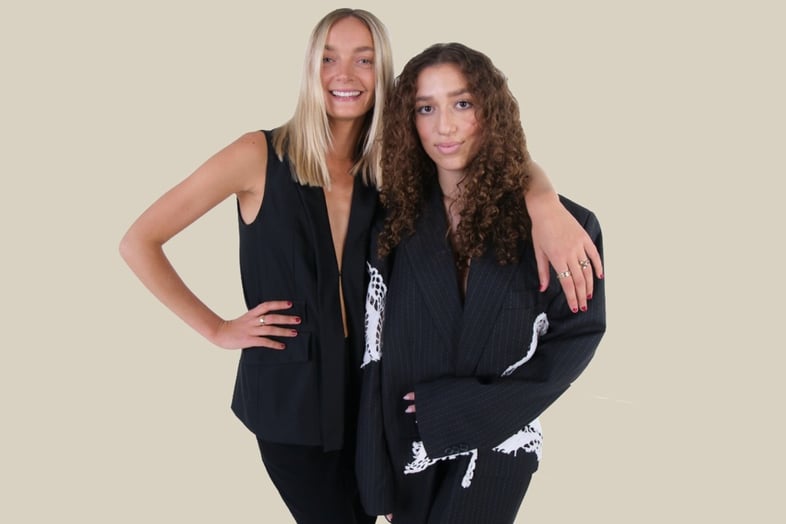
Eliana Konsker and Brigitte Canty
Gen Z college friends Konsker and Canty bonded over their passion for change in the fashion industry. After studying together, the pair later reconnected to pursue a collective mission: redefining sustainable fashion. And so Zero was born.
Zero is an e-commerce platform dedicated to people and the planet. The site embodies holistic sustainability and prioritises transparency, ensuring that consumers are aware of where its products come from, what they are made of and how they are made. ‘Sustainability at Zero means placing equal importance on the environmental, ethical and social implications of the fashion industry. We strive to pave the way for an industry whose burden isn’t an inhibitor to future generations,’ says Konsker.
By hosting a range of high-end contemporary brands that offer everything from tailored crop tops to oversized puffer jackets, the company is shaking off any misconceptions that sustainable fashion is dull, overly bohemian or only suitable for older audiences.
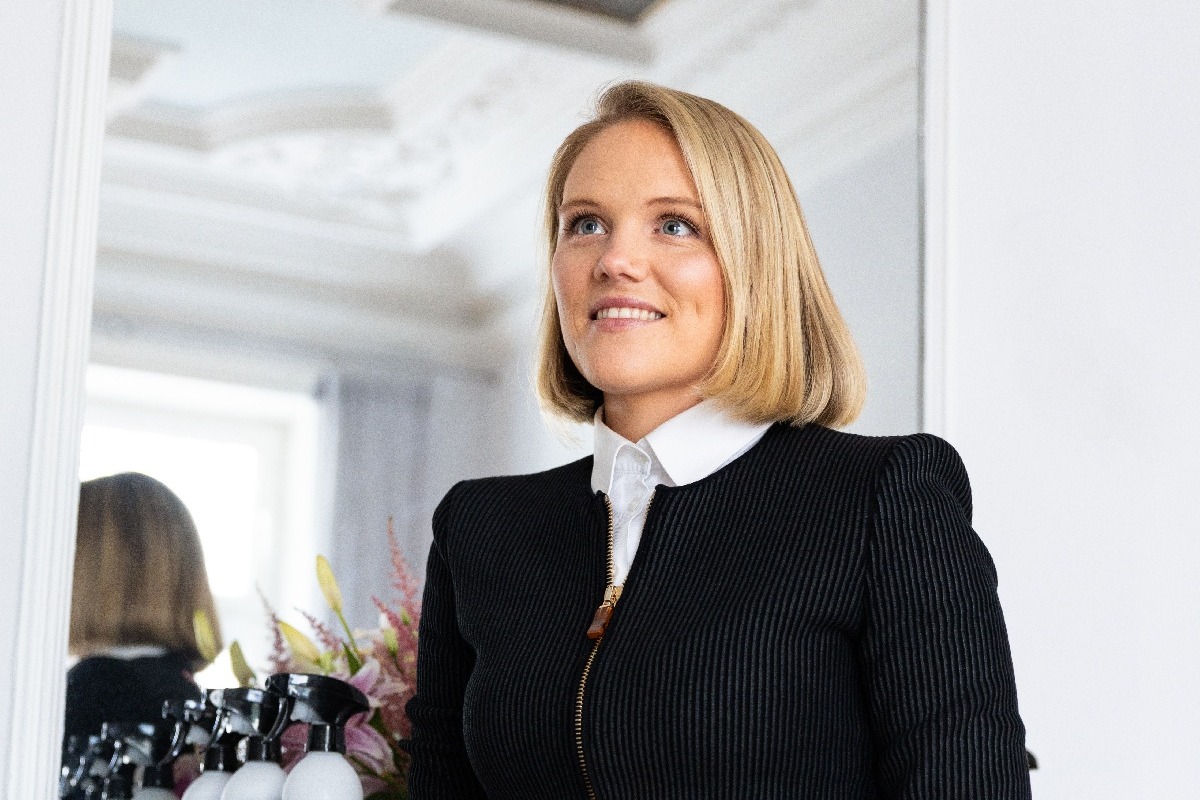
Holly Gardner
Bringing beauty to bed
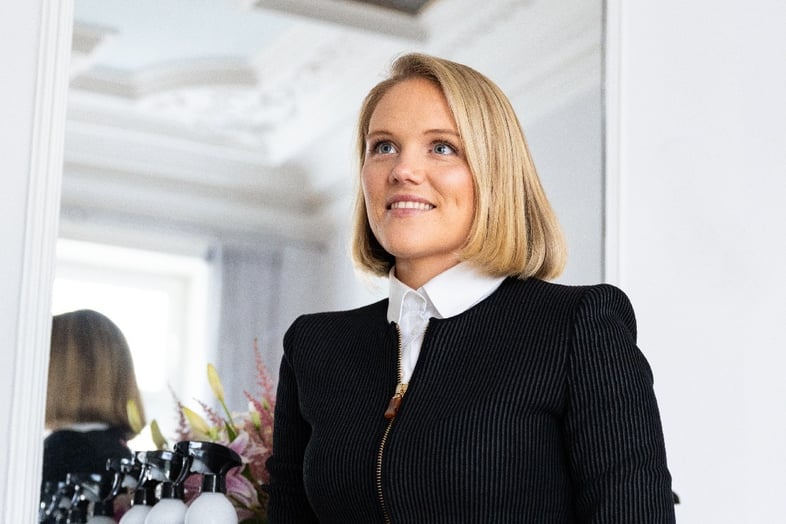
Holly Gardner
After spending over half a decade in the legal industry, Gardner’s career took a new direction. Originally from South Africa, she embarked on a course on Disruptive Innovation at Harvard Business School in the US and soon after launched her own brand, byMATTER, in London. With a passion for health and wellbeing, but also for sustainability and science, byMATTER unites these values to provide a new iteration of home care.
The brand’s first launch was a bio-active fabric freshener developed to instantly clean clothes without the need for a full wash cycle. The solution includes new probiotic technology and has saved thousands of litres of water for homes across the UK. More recently, she launched a bio-active pillowcase designed to optimise skin health during sleep. The pillowcase is made from a patented fabric technology, Seacell, containing seaweed and enriched with a collagen treatment. byMATTER isn’t expected to slow down as Gardner hints to LS:N Global that there will be more products to come in 2023.
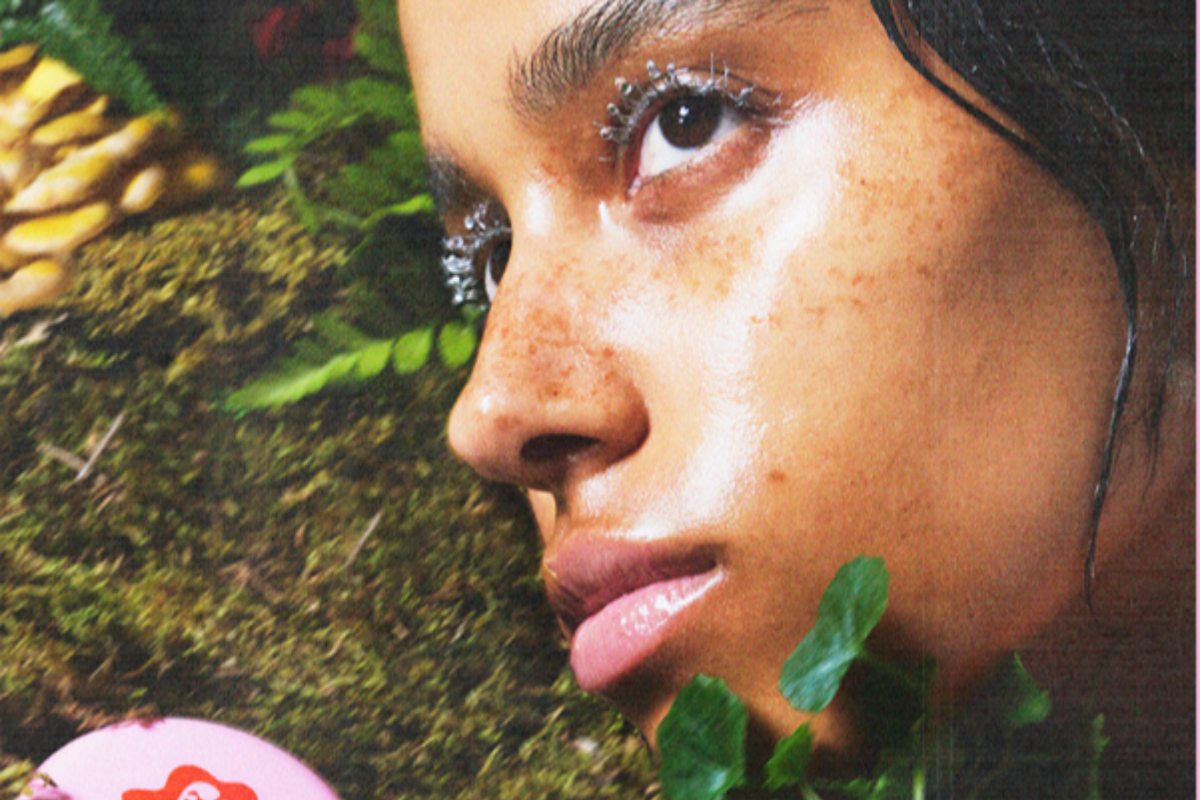
Julie Schott and Brian Bordainick
Approachable wellness for the next generation
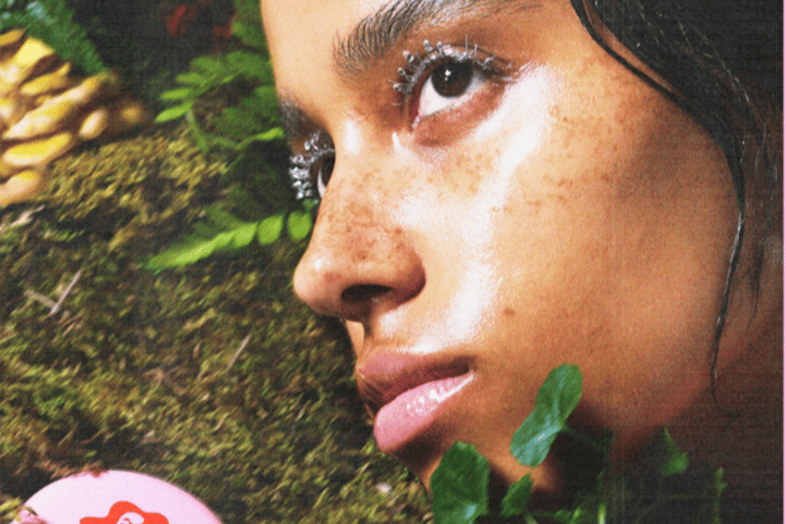
Julie Schott and Brian Bordainick
US-based Julie Schott and Brian Bordainick are masters of direct-to-consumer (DTC) wellness. Together, the pair have founded four brands in different categories in the sector: skincare, personal care and medical health. Their most recent venture is beauty brand Futurewise, a skincare eco-system built around slugging, a practice that involves creating an occlusive layer over the skin to improve hydration.
While the concepts of the brands differ greatly –from waterless body wash to emergency contraception – the infrastructure and execution are similar in many ways. They are designed for a new generation of wellness-seekers, which is evident through the energetic visual branding and youthful narrative.
Their success and dominance in the wellness field is largely down to the pair’s extensive experience. Schott is a beauty veteran and spent most of her professional career as a beauty editor, before being promoted to beauty director at Elle magazine in 2017. Bordainick, on the other hand, held leadership positions in various companies across different sectors such as hospitality, retail and – more recently –culture and politics.

Michael Hoppe
Designing dining experiences for all

Michael Hoppe
The focus for Sydney-based Michael Hoppe is user-focused design and product problem-solving. He is best known for the development of YBell, a fitness community and programme centred around a multi-functional fitness tool. While the fitness equipment market is highly saturated, Hoppe’s design prioritises ease and access, enabling it to stand out among existing apparatus.
Ease and access are common threads throughout Hoppe’s work. A recent project from the designer explores how to make dining experiences inclusive for people with disabilities. The result is Font, a 24-piece cutlery collection that can be tailored to people with various levels of hand strength, dexterity and control. ‘Everyone has a favourite spoon or cup that they use all the time. There is a lot of potential for leveraging aesthetics in inclusive design and design for people with disabilities,’ says Hoppe.
-1-1.jpeg?width=1200&height=800&name=Gabby%20Morris%202%20(1)-1-1.jpeg)
Gabby Morris
Taking food back to its roots
-1-1.jpeg?length=786&name=Gabby%20Morris%202%20(1)-1-1.jpeg)
Gabby Morris
Operating in the creative sector, Scottish designer Gabby Morris highlights the connections between food and the environment, and demonstrates how the systems are intrinsically linked to health and cultural change. Her projects propose solutions for issues such as topsoil segregation and unstable food supply chains.
Most recently at Dutch Design Week 2022, Morris showcased Dish the Dirt as part of the BioArt Laboratories Foundation exhibition. Here, she presented a multi-sensory tasting experience, featuring soil and food side by side through a six-course tasting menu that evoked the smell, taste, sound and feel of soil. The intention was to provoke an uncomfortable eating experience, mimicking the broken relationship between soil and humans.
Morris prides herself on ‘making the important and complex, tangible and delightful’, a mindset LS:N Global considers important in decision-making and strategy-building for the future.
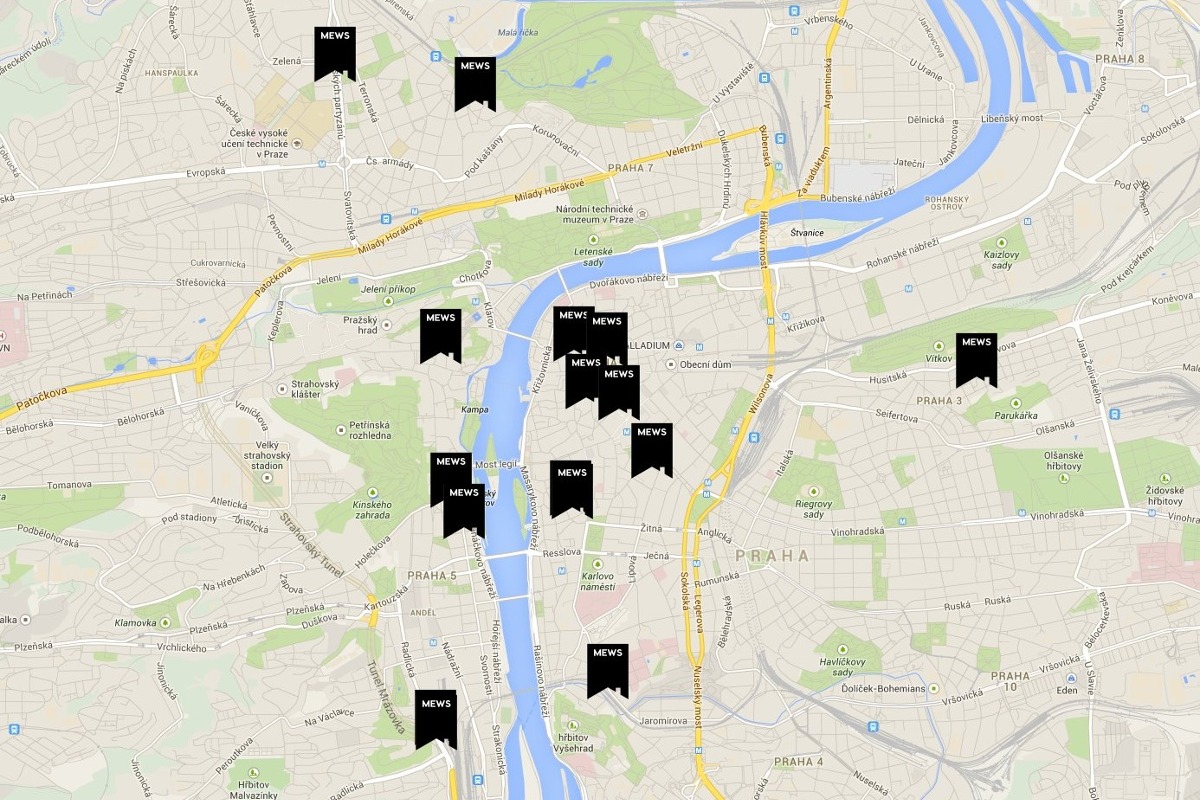
Richard Valtr and Matthijs Welle
Digitising operations for modern hoteliers
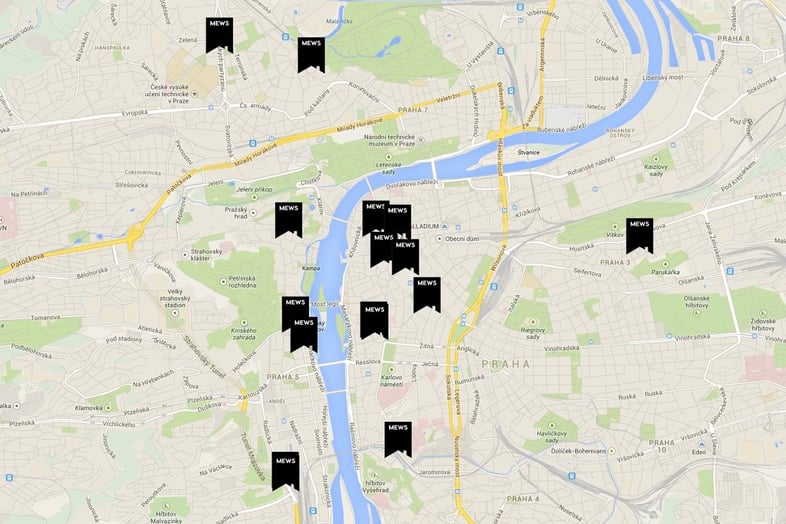
Richard Valtr and Matthijs Welle
Upon founding Mews in 2012, Richard Valtr and Matthijs Welle set out to disrupt an industry that has been arguably digitally stagnant for a long time – hospitality. Over 10 years later, the Prague-based company has received Series C funding of £150m ($185m, €171m) to accelerate its mission as the ‘hospitality system of the future’. It offers a range of services that improve operations for modern hoteliers and their guests, from booking engines and check-out services to front desk and revenue management. ‘Our mission is to transform the hospitality industry with cloud solutions that make hospitality more rewarding for everyone,’ says Matthijs Welle, CEO of Mews.
The pair behind the concept have extensive experience. Co-founder Valtr grew up as the son of a hotel developer and was responsible for managing some of his father’s property developments, including the Emblem Hotel in Prague, from an early age. Welle, however, was hands-on in the industry. After finishing Hotelschool, he joined Hilton’s Elevator programme, which is designed to build general managers from the ground up. He went on to manage various hotels, including Hilton Prague, and later moved into business development to become a sales director.
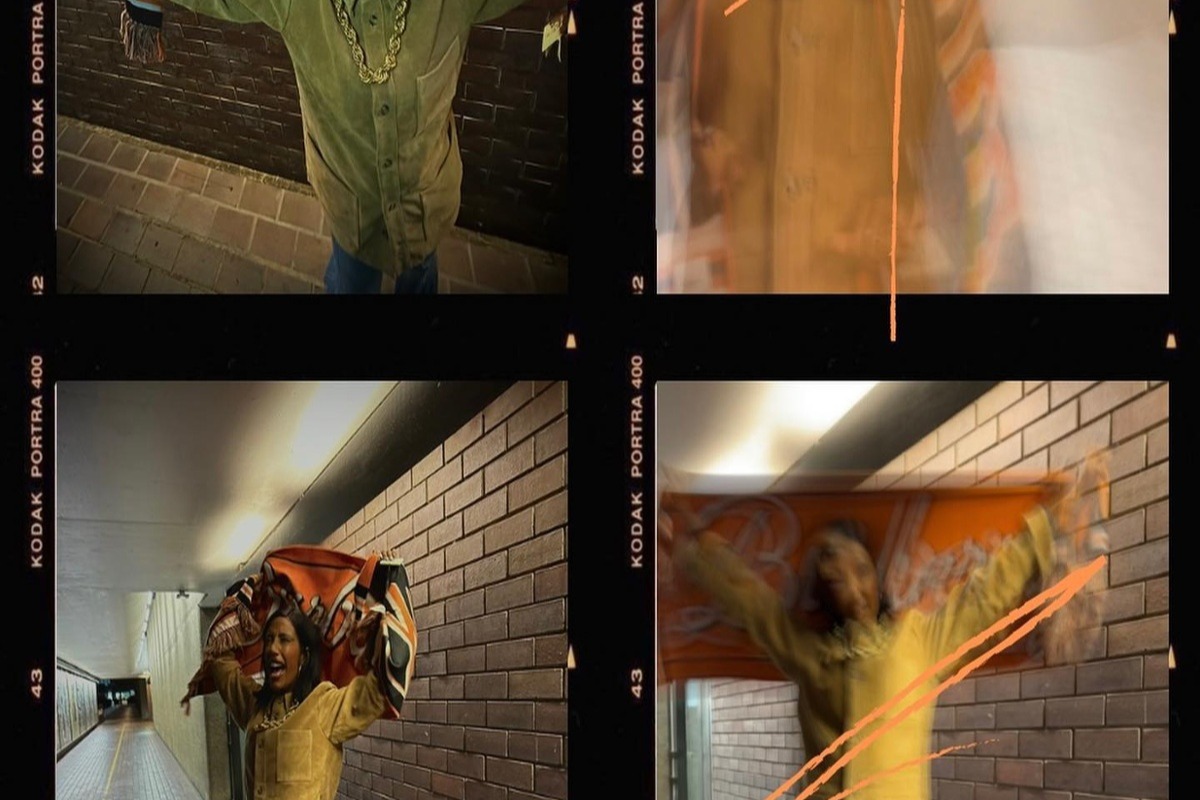
Julia and Nicolas Vendramin
A one-stop destination for closed-loop fashion
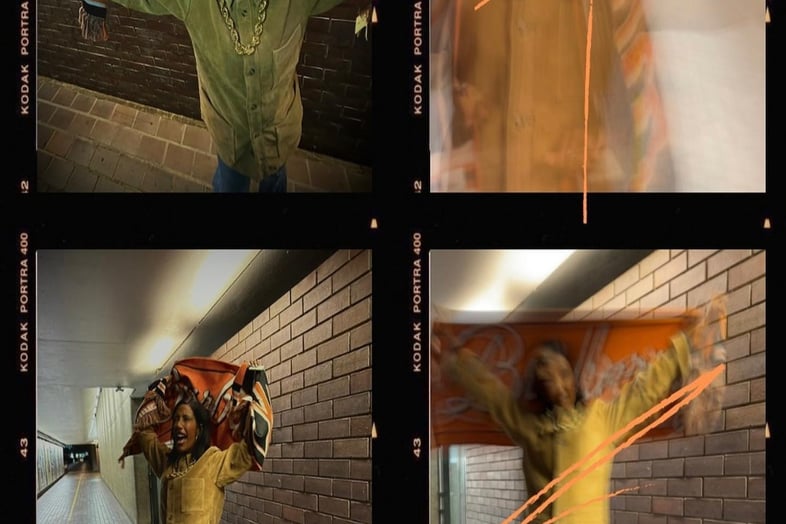
Julia and Nicolas Vendramin
British husband and wife duo, Julia and Nicolas Vendramin, are on a mission to help consumers and the fashion industry to build a more sustainable future. Boasting over 15 years of combined experience in the industry across marketing, e-commerce and operations, the pair are in a good position to develop their own fashion eco-system. ‘We recognised the need for sustainable fashion from a platform that offers a solution in a new and cool way, and the gap in the market for consumers seeking to buy more sustainably,’ Julia Vendramin states in a press release.
Cue LABELL-D, a one-stop destination offering a mix of new, second-hand and rental services. ‘At the moment, there isn’t a standard system for classification of products or of sustainability standards, leaving it to consumers to educate themselves and to mix and max solutions – buying second-hand, renting for single wear occasions like weddings,’ the pair state in the press release. LABELL-D provides the solution in one place, facilitating healthier consumption habits.
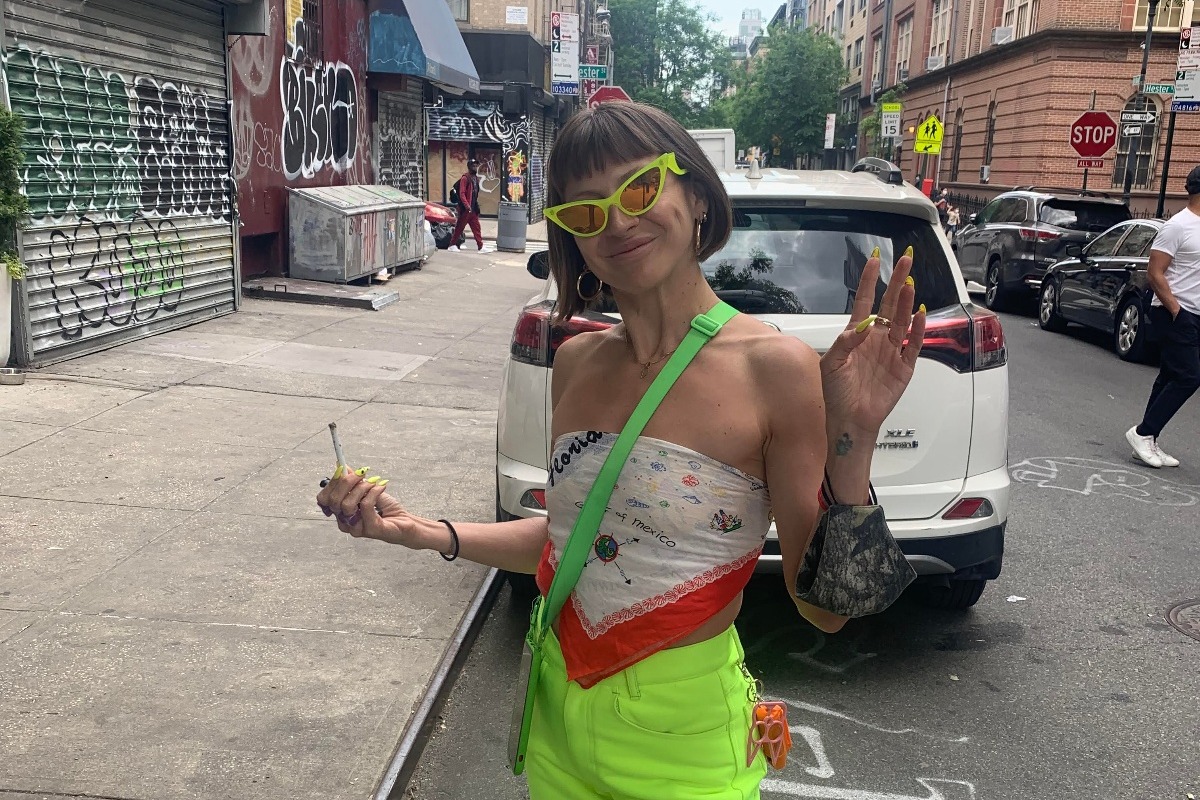
Mary Katlyn O’Malley
Empowering women’s freedom through fashion
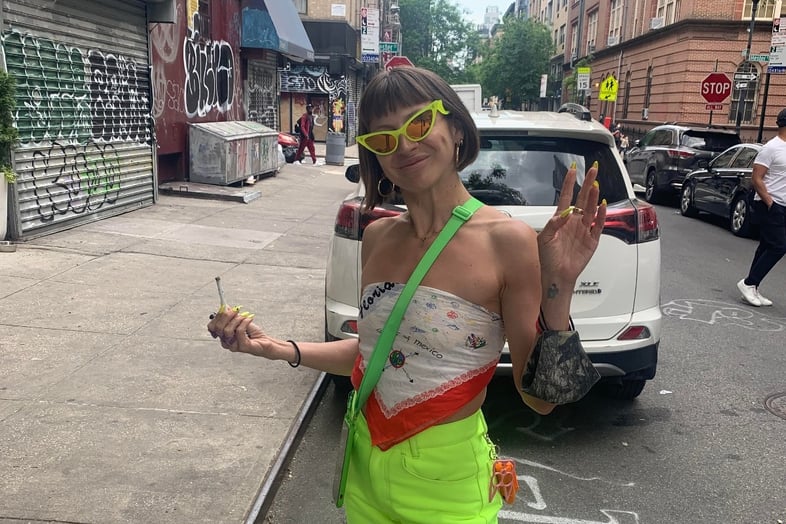
Mary Katlyn O’Malley
Mary Katlyn O’Malley has turned unfortunate events in her life into opportunities. As a domestic violence and sexual assault survivor, O’Malley recognised that women accept the feeling of being unsafe as normal. To change the course of the conversation, she decided to start her own brand and community, DAMES, and encourage women to ‘be free, be cool and to not take any shit’.
In 2023, the New-York based label dropped a collection of streetwear clothes and accessories designed to bolster women’s safety thanks to built-in self-defence features, such as a safety alarm, and a lipstick with a hidden switch blade.
Beyond clothes and accessories, DAMES offers healing through community resources as well as free meditation guides. It also hosts a range of educational and community-building events aimed at inspiring safety, joy and empowerment.
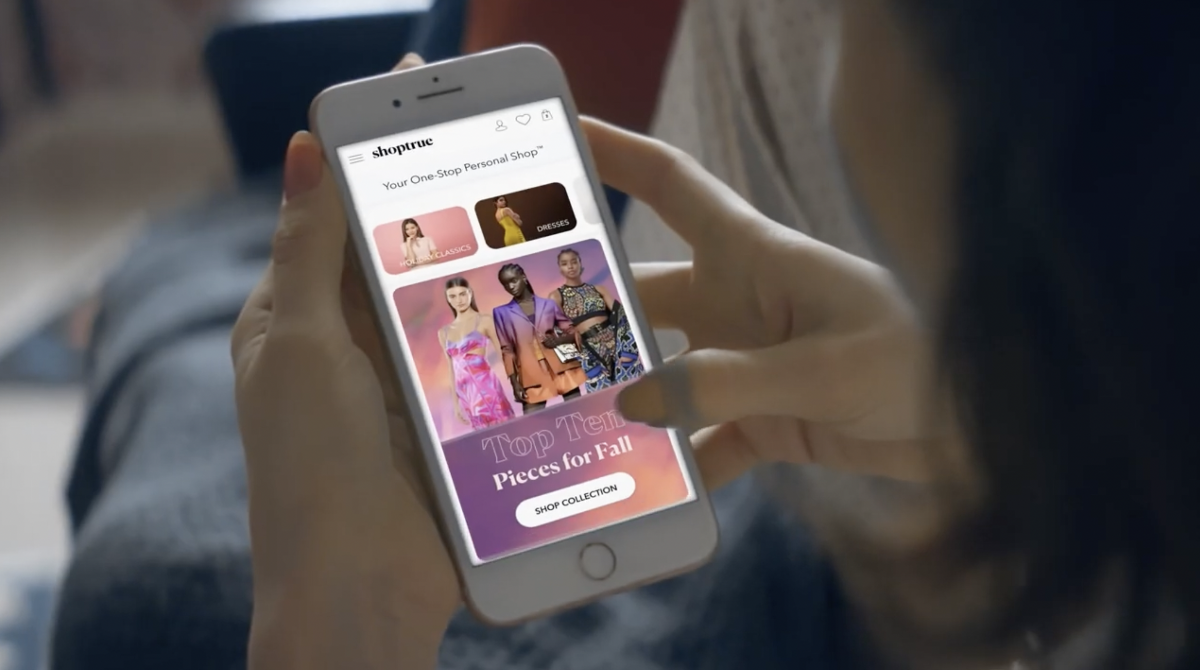
Romney Evans
Utilising AI technology for user recommendations

Romney Evans
Romney Evans’s professional journey is centred around using technology for better customer experiences. He was ahead of the retail game when he founded True Fit over 15 years ago. The platform was designed to be used by retailers to provide e-commerce customers with best-in-class fit recommendations. Today, he takes a similar approach with newly founded Shoptrue, a fashion marketplace that uses AI to offer a personalised shopping experience.
Shoptrue is a natural progression of True Fit; it’s appropriate for today’s digitally savvy consumers who are looking for convenience but not at the sacrifice of personal style, preferences or experience. It is driving the industry towards a hyper-personalised future, in which consumers can rely on retailers to provide them with products that they want and like, and retailers can be more specific with their production, and thus be more sustainable.
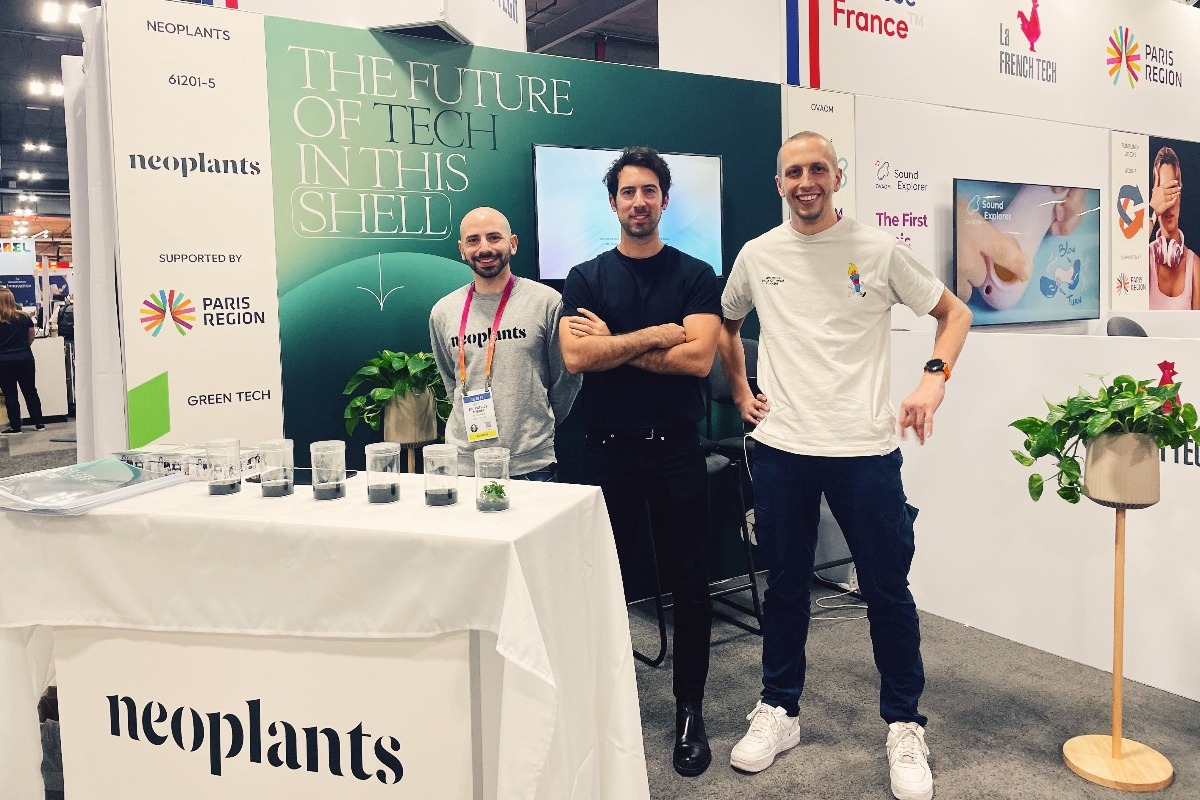
Lionel Mora and Patrick Torbey
Home-based pollution solutions
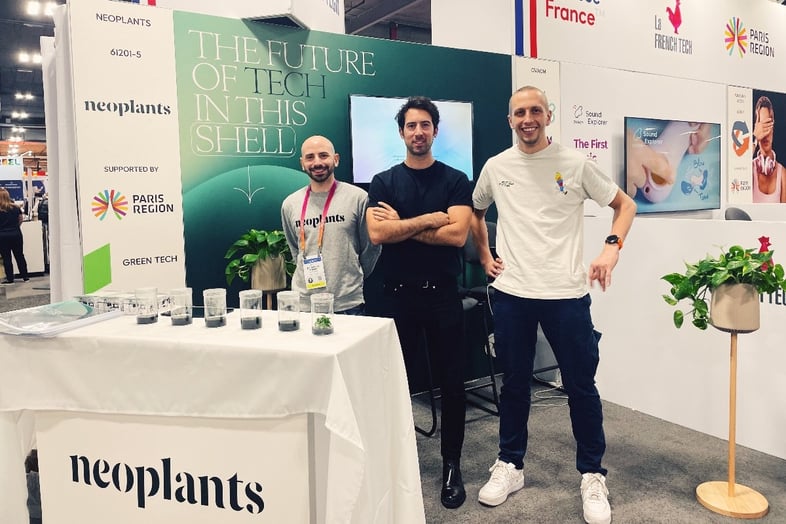
Lionel Mora and Patrick Torbey
In 2018, French green tech entrepreneurs Lionel Mora and Patrick Torbey took on a critical mission: to reduce indoor air pollutants. Inspired by a study completed by NASA in 1989 that demonstrated the ability of common indoor houseplants to remove harmful indoor air pollutants, the pair founded Neoplants to further develop this research. ‘We believe that nature is the most powerful piece of technology in the world and that a greener future is necessary’, say the duo.
In January 2023, Neoplants unveiled Neo P1, a single bio-engineered plant shown to clean ambient in-home air pollution. It is proven to be 30 times more effective at removing pollutants than the most efficient plants found in nature. The company hopes to utilise the same processes with other plant varieties and properties, and has plans to tackle carbon capturing and storage next year.
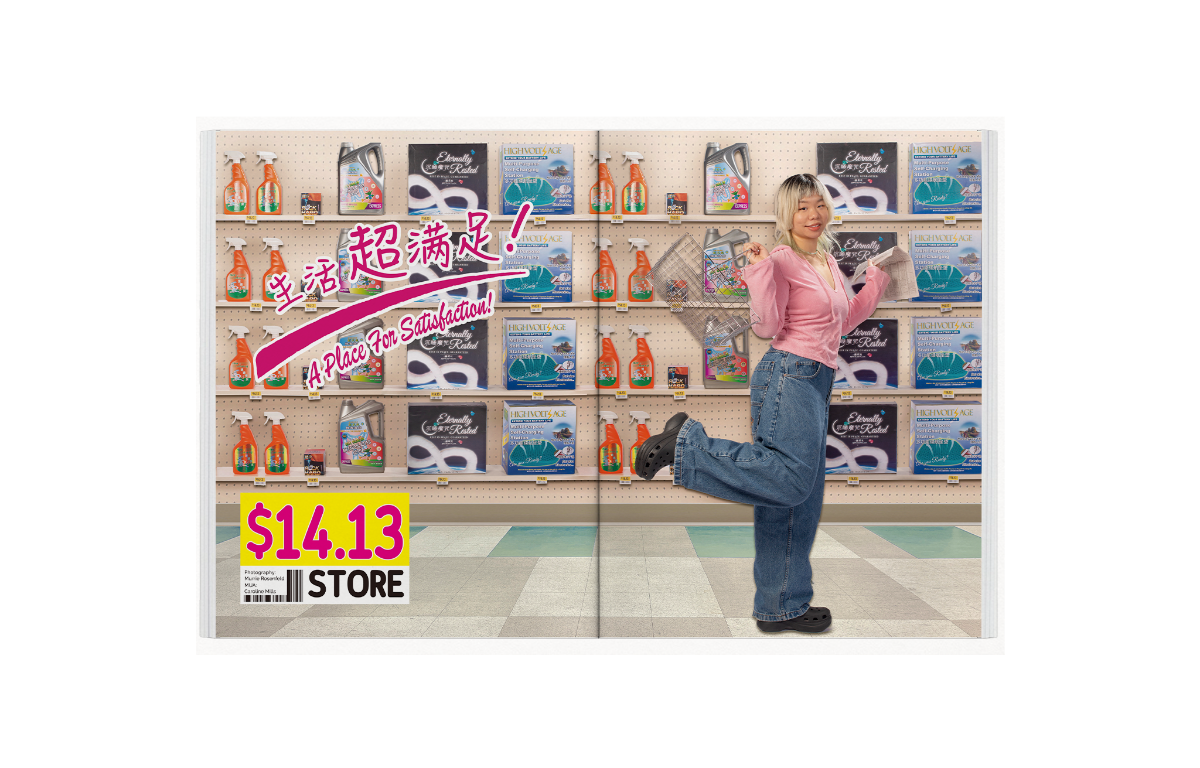
Zeng Lishan and Wu Yijing (Lisa and Echo)
Light-hearted editorial honouring Chinese legacy
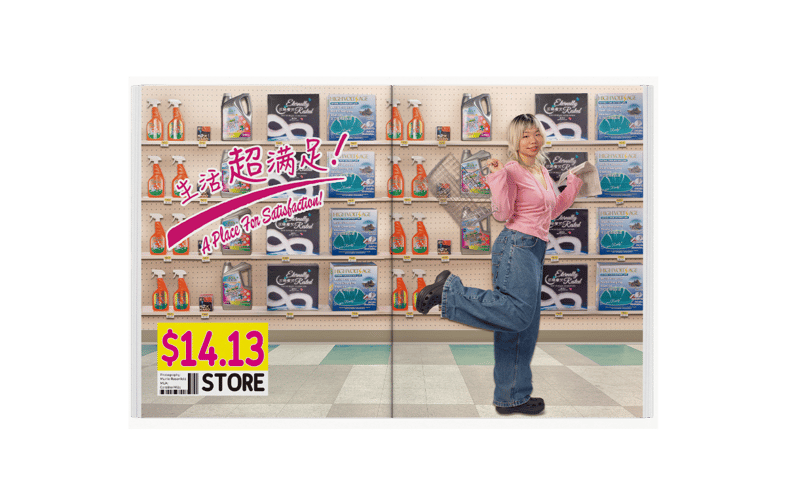
Zeng Lishan and Wu Yijing (Lisa and Echo)
Zeng Lishan and Wu Yijing, also known as Lisa and Echo, are shining a light on their Chinese heritage while debunking stereotypes in the process. Their editorial outlet, 1413, addresses a variety of topics, from the societal meaning of the selfie in China to local fandom culture. Its latest issue, however, is reinvigorating traditional Chinese medicine and wellness for a new generation.
The duo studied graphic design at the Beijing Institute of Fashion Technology and both have full-time jobs while actualising the passion project. They take a low-fi approach and handle most of the design, photography, writing and translation themselves, with the occasional contribution from friends and local collaborators. The laid-back approach is intentionally illustrated throughout the magazine, to capture and hold the attention of its younger target audience.
![IMG_3658[4664]](https://www.thefuturelaboratory.com/hs-fs/hubfs/IMG_3658%5B4664%5D.jpg?width=813&height=646&name=IMG_3658%5B4664%5D.jpg)
AJ Addae
Broadening the science of beauty
![IMG_3658[4664]](https://www.thefuturelaboratory.com/hs-fs/hubfs/IMG_3658%5B4664%5D.jpg?length=786&name=IMG_3658%5B4664%5D.jpg)
AJ Addae
AJ Addae is the founder of Sula Labs, an R&D beauty lab that focuses on the needs of Black and dark skinned people, and her work is dedicated to helping others define themselves. With a BSc in molecular biology, her first role in a medical grade lab made her keenly aware that inclusion in the beauty industry needs to start with the people behind the brands, in the nitty gritty of formulation. Sula Labs is named after the titular character in Toni Morrison’s 1973 novel, Sula.
Sula Labs has worked with 11 indie beauty brands on product development and is partnered with almost half of the brands featured in Sephora Accelerate’s 2023 programme. Addae is currently pursuing a PhD in chemical biology at UCLA while also gathering pre-seed funding for Sula Labs, a move that will enable it to broaden in-house capabilities and create an R&D experience that appeals to even more businesses.
By ensuring that Black people are involved at the beginning of the product development process, Addae is challenging the way diversity is understood in beauty. Sula Labs is showing the industry that true inclusivity starts with ingredients, formulas and chemists that bring the needs of Black and dark skinned people to the fore.
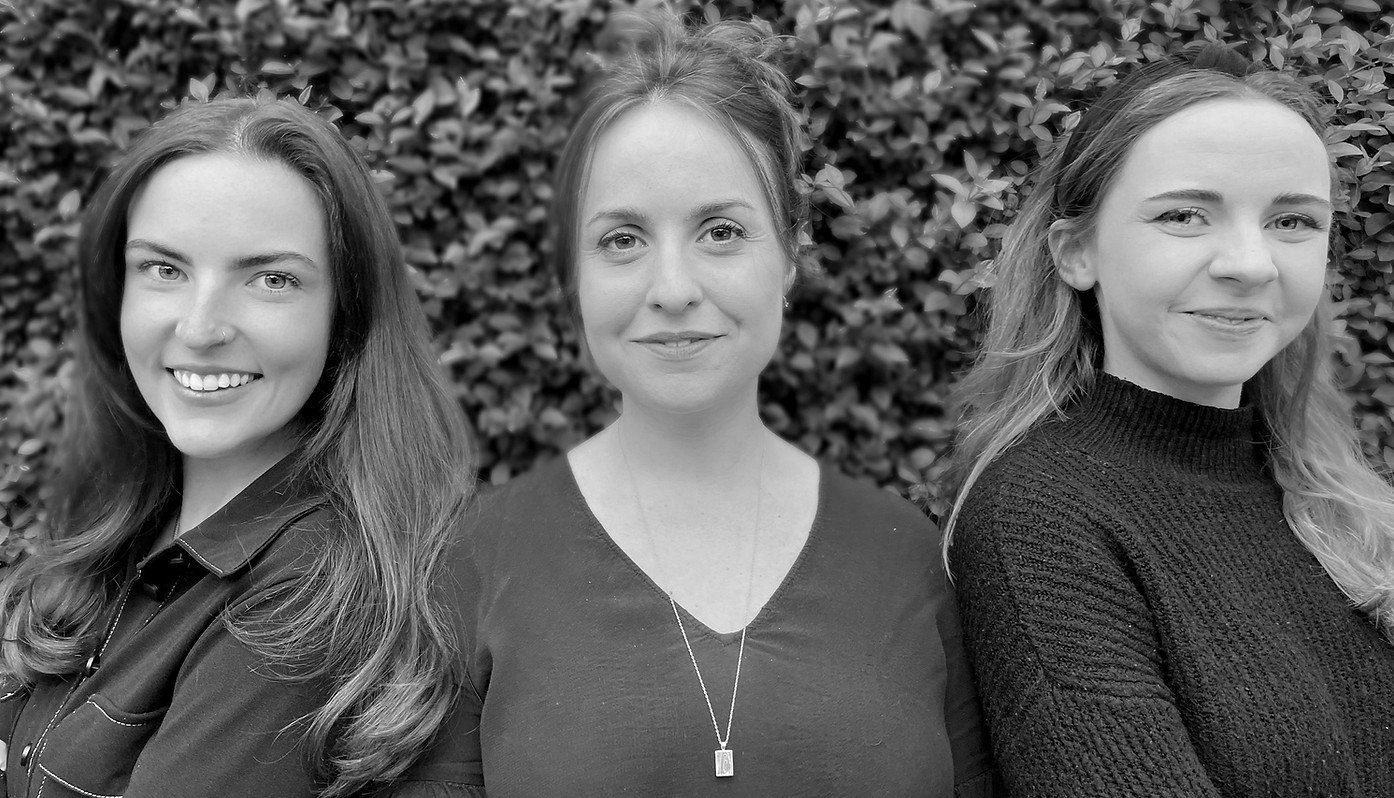
Dr Lydia Mapstone, Dr Sioned Jones and Tara O’Driscoll
Bacterial innovation for infants
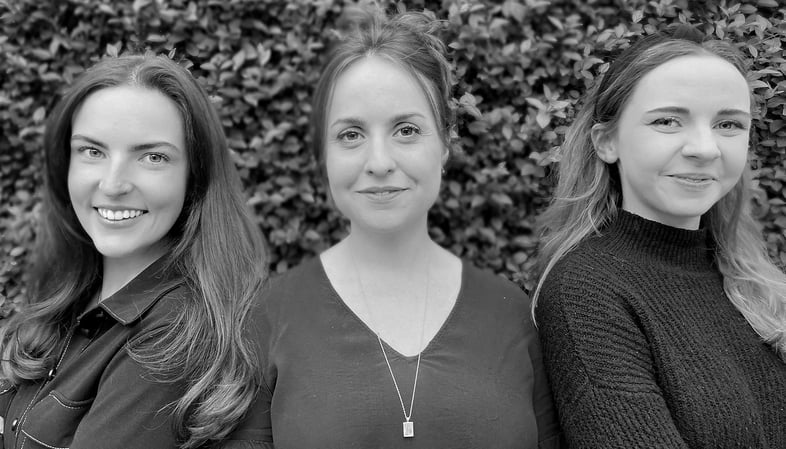
Dr Lydia Mapstone, Dr Sioned Jones and Tara O’Driscoll
Dr Lydia Mapstone, Dr Sioned Jones and Tara O’Driscoll (doctorate pending) founded BoobyBiome and are designing a breast milk supplement for babies without access to human breast milk.
The scientists met while studying for their PhDs in London, and with overlapping interests in chemistry, biophysics, neuroscience and microbiology, they bonded over their fascination with the bacteria that thrives in breast milk and how it shapes overall gut health. BoobyBiome has raised £1.3m ($1.5m, €1.4m) in equity and grant funding to help bring its product to market. The supplement aims to aid infants in developing robust microbiomes that decrease their risk of chronic illness in later life.
The biotech start-up’s work is valuable beyond the product it is making. From the collection and testing of breast milk samples to evaluating which bacterial strains are optimal community for infant guts, BoobyBiome is closing long-standing research gaps in furthering our understanding of microbiomes and their implications for overall health.
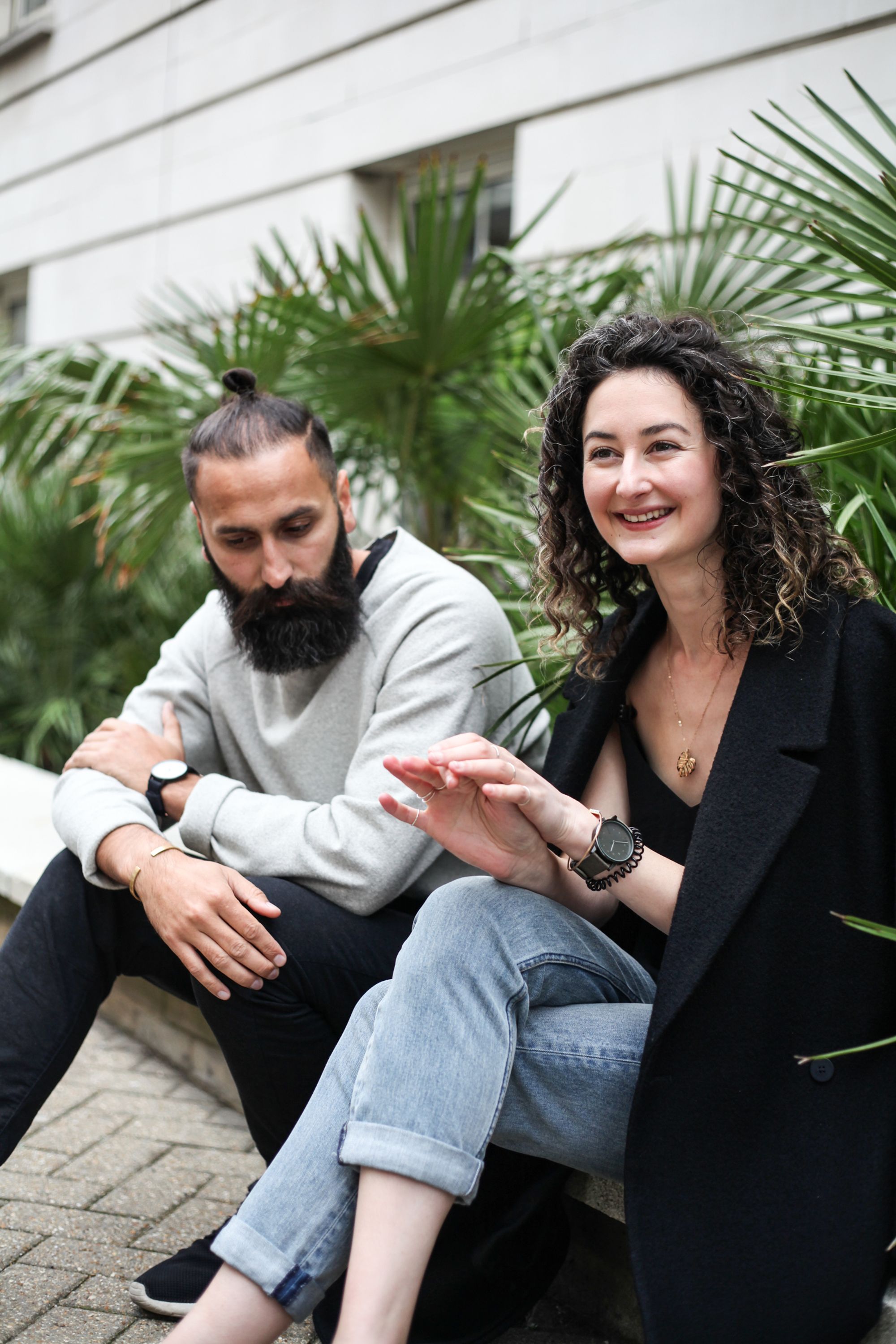
Sara Taiyo and Abb-d Taiyo
Dynamic design for social progress
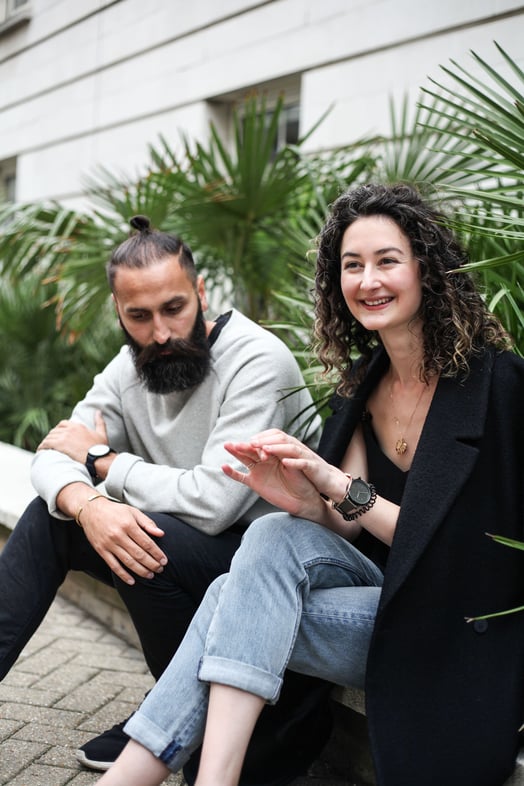
Sara Taiyo and Abb-d Taiyo
Sara Taiyo and Abb-d Taiyo have built Driftime Media, a digital design agency that exclusively works with socially progressive companies, into a Brighton-based certified B-Corp company. They only take on projects with those who share their focus for purpose-driven work. ‘Many of the companies we work with want to save the world. We want to help them,’ says co-founder Abb-d Taiyo. Driftime’s ongoing roster of collaborators include sustainability-focused magazine Annual Digest, Oxford University Press and fine dining platform Epicurate.
The pair arrived at founding a digital design agency through wildly different paths; Sara after being a graphic design graduate who worked as an editor, Abb’d through informal education including a stint as a basketball player in the US. They now share a commitment to the idea that design has a role to play in supporting social change.
This includes their Design Declares climate emergency campaign launched in 2022 to encourage creatives and institutions to take action on the climate crisis, and Route To Impact, a Driftime programme that lets purpose-orientated organisations access award-winning digital design at an accessible price. Sara and Abb-d Taiyo are showing that progressive values can drive creative success.
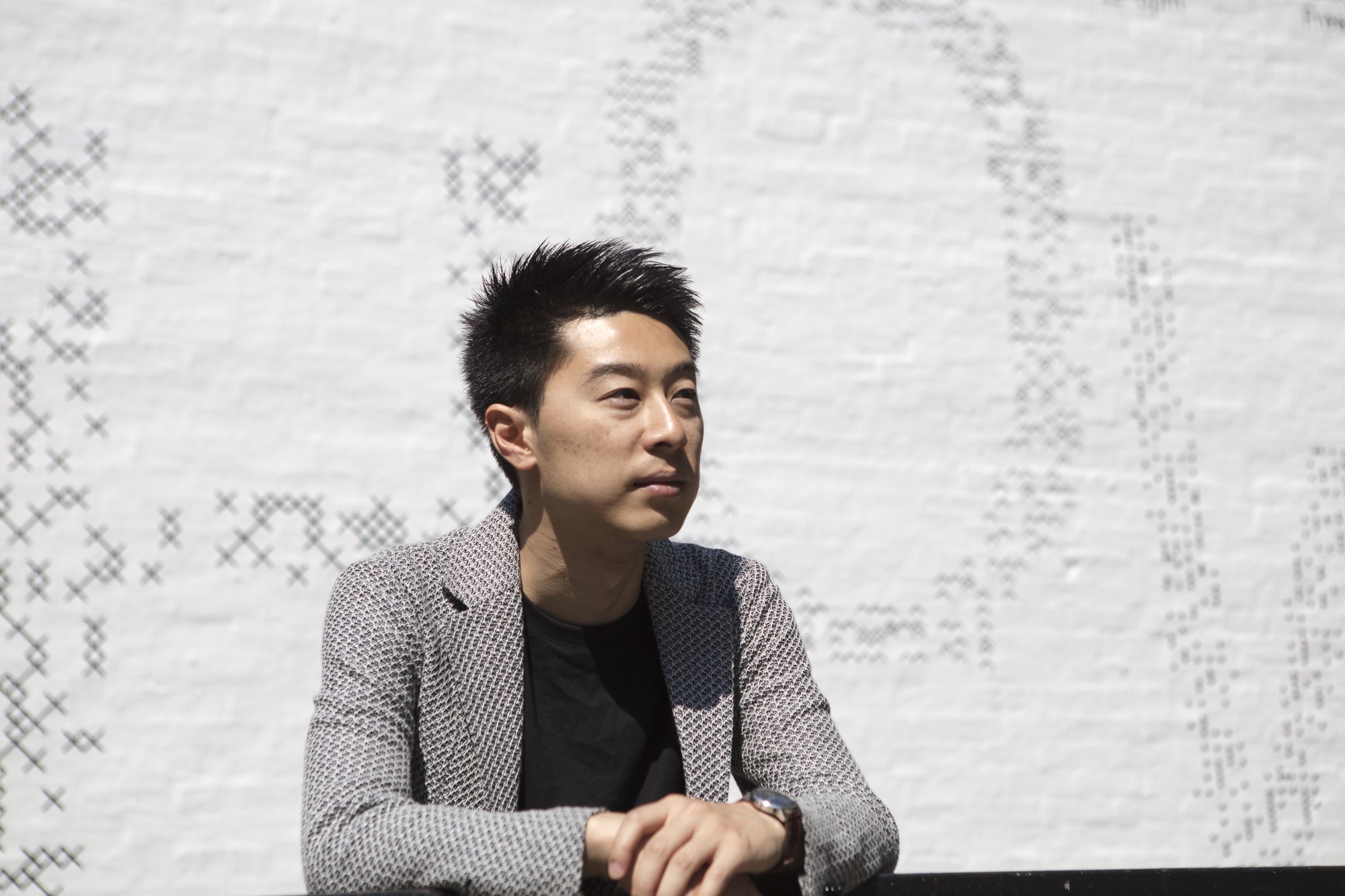
Jun Kamei
Material metamorphoses to challenge climate change
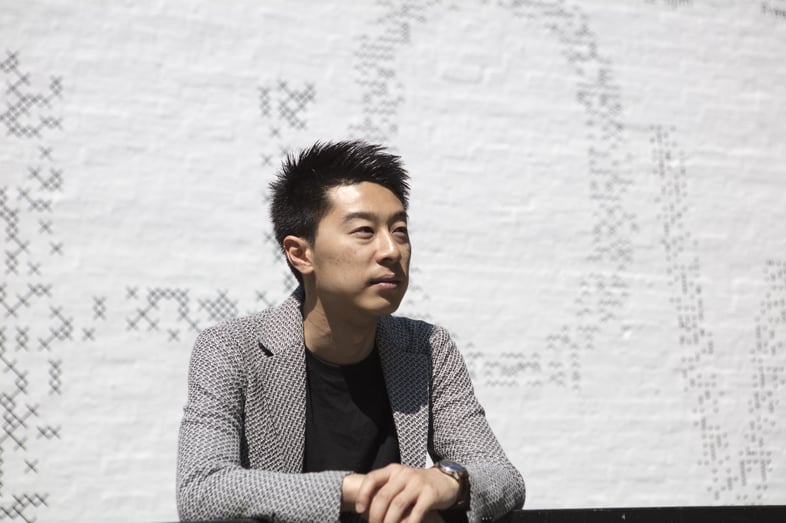
Jun Kamei
Jun Kamei is the founder of Amphico, a UK-based design-led technology firm creating sustainability-focused leisurewear. The Royal College of Art graduate started out by creating a 3D-printed gill garment that supports underwater respiration – and then realised the garment’s waterproof and permeable technologies could be harnessed to make environmentally friendly outdoor leisurewear. It’s a technology that disrupts the difficult irony of outdoor textiles, as most clothing worn to enjoy the outdoors is often made with materials that are unfriendly to earth.
In 2022, Kamei created Amphitex, the 100% recyclable and chemical-free outdoor performance textile, which won him the Terra Carta Design Lab award. Kamei is inspired by nature’s hidden design – whether that be the thin skins of diving insects or the waterproof properties of the lotus leaf. Kamei is inventing materials that respond to the demands of climate change and make adventuring more sustainable.
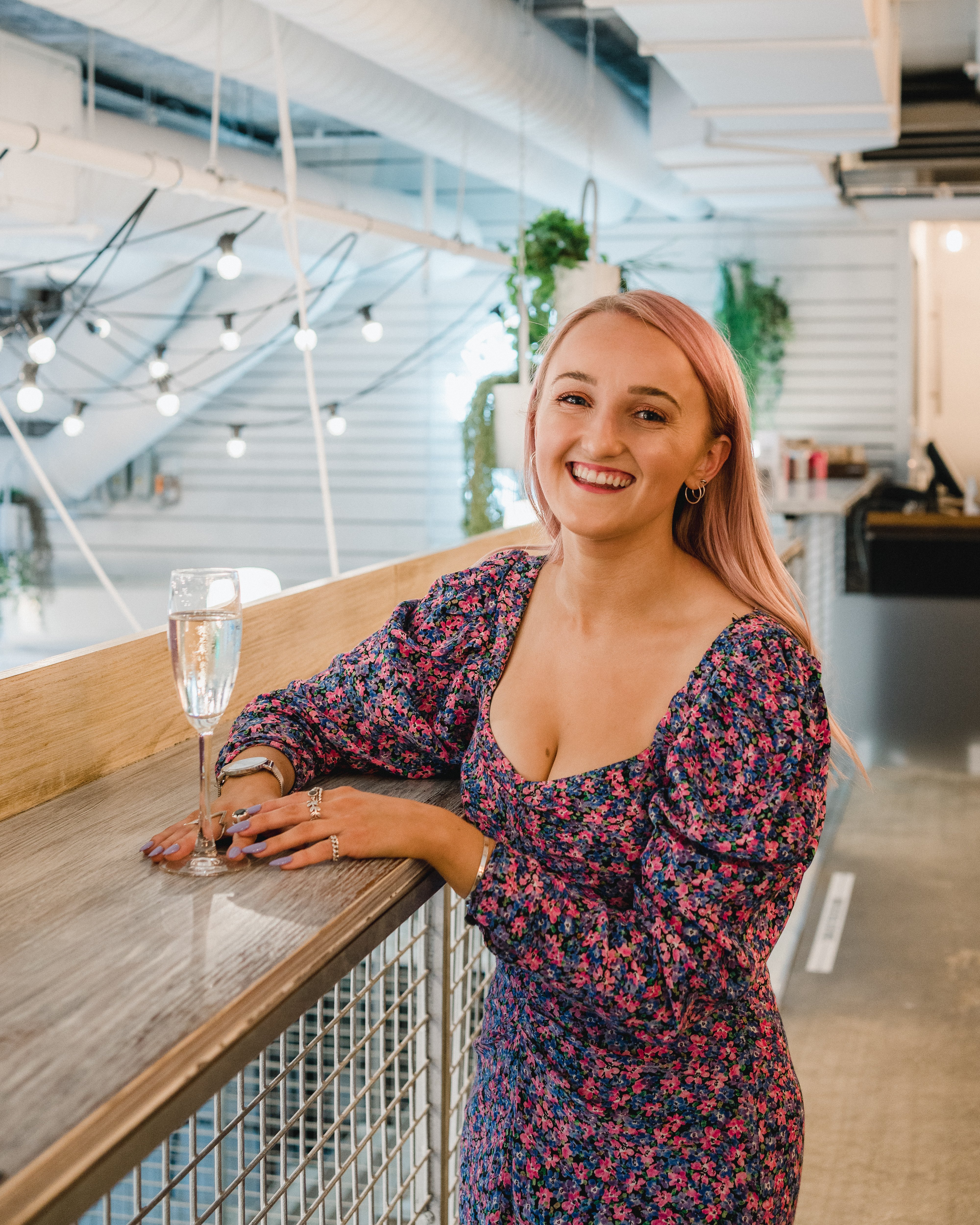
Millie Gooch
Sobriety with good cheer
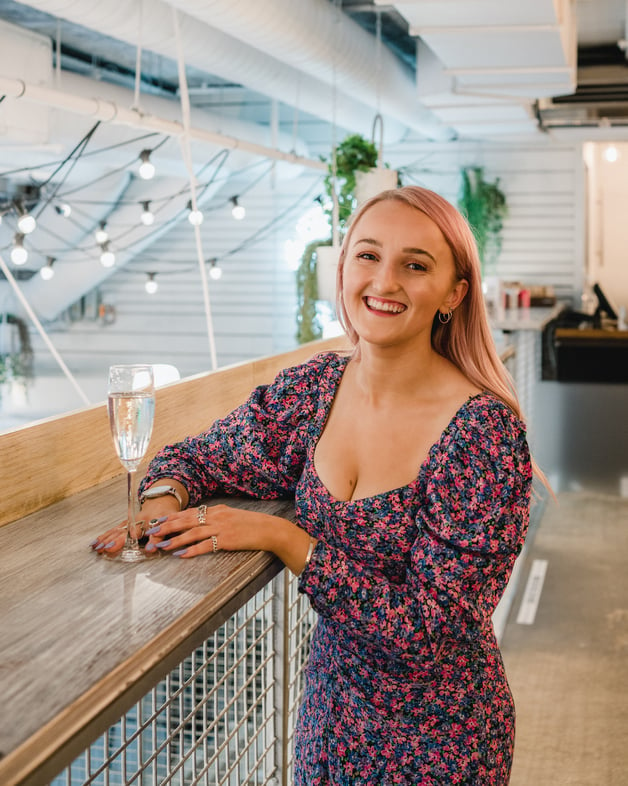
Millie Gooch
Millie Gooch’s Sober Girls Society is an enlightening and light-hearted community for sober women. After quitting drinking in 2018 Gooch was surprised at how quickly she was able to find sober and sober-curious women yearning for connection. Gooch recalls becoming emotional when she shipped early batches of Sober Girl merchandise, a variety of badges and pins that celebrate the sober identity, to early Sober Girl Society members. ‘I packaged about 100 orders that weekend and had to make about seven trips to the post office. I cried because I was so happy that people wanted to support what I was trying to do.’
The society hosts events for sober girls in the UK, including bottomless boozeless brunches and IRL/virtual sober sweat dance classes. Gooch’s book, The Sober Girl Society Handbook, led her to regular work with brands in and out of the non-alcoholic market, including Sainsbury’s, Brewdog and Adidas. In 2022 Gooch co-founded Sippers, an online retail platform for no- and low-abv products, and now continues her work to make sobriety accessible, fun and stigma-free.

Kristen Shirley
Education in affluence

Kristen Shirley
Kristen Shirley’s La Patiala is a digital encyclopaedia that flings open the gilded doors of luxury to everyone. New York-based Shirley is a tenured journalist and expert who wants consumers to learn about luxury brands, products and experiences without apprehension or intimidation. ‘This is for everyone that’s interested. I’ve written it to appeal to a lot of people…’ she says.
For information on luxury travel, wine, food, jewellery and beauty, scroll through the platform’s A–Z glossary of items. Or read one of Shirley’s easy-to-browse guides on luxury topics such as watches, champagne or Aspen that give readers a thorough understanding of the history, movements and crafts behind the luxury sector. La Patiala demystifies exclusive worlds, empowering consumers who are interested in navigating them with the confidence and knowledge to do so.
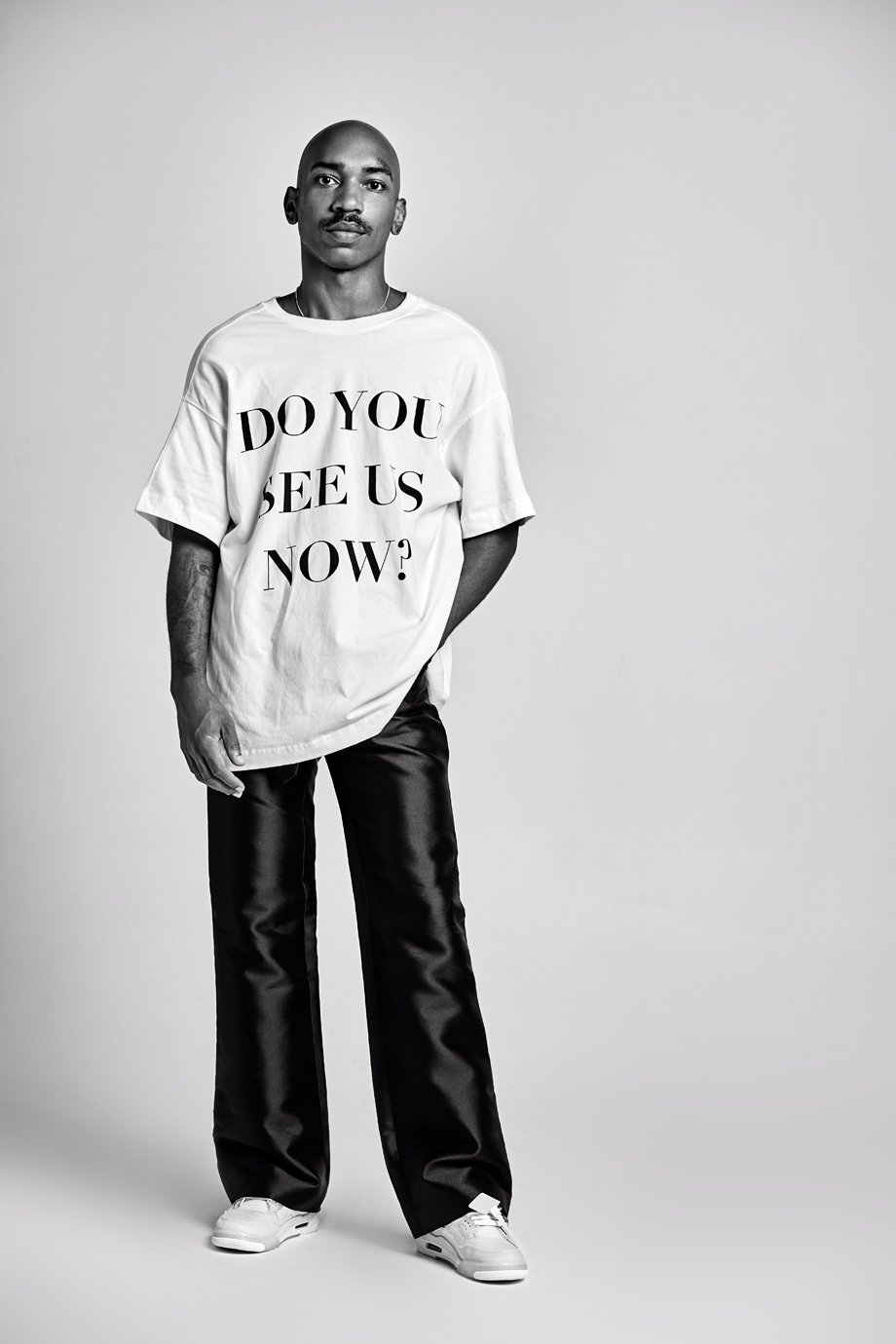
Antoine Gregory
Forum for fashion pioneers
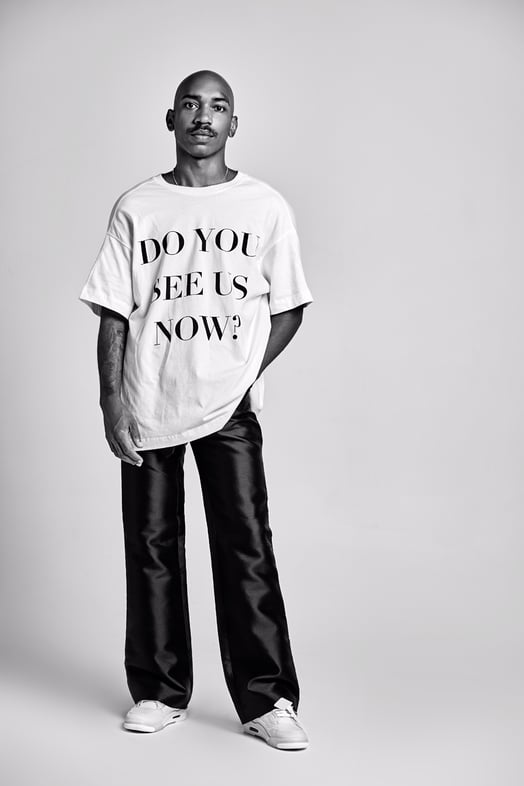
Antoine Gregory
Antoine Gregory is the creator of Black Fashion Fair (BFF), an online directory for Black fashion designers. BFF evolved from a simple Twitter thread Gregory started, called Black Designers You Should Know, as a response to retailers telling him they couldn’t find Black designers. BFF is now a curated platform showcasing fashion’s most exciting Black designers and prioritising the discovery and development of new talent.
Over the past three years BFF has served as a retailer, publisher and database for Black-owned fashion brands, a place for Black designers and image-makers to be seen and heard. It has hosted exhibitions and helped designers land in Nordstrom, Ssense and other major stores. But for New York-based multi-hyphenate creative, stylist and brand director Gregory it’s not just about selling products. BFF is a space for Black creatives to be celebrated and validated. ‘I want BFF to become its own institute of research documentation, education and design,’ says Gregory. ‘The ultimate goal is for us to offer those types of programmes that promote access into spaces that we have historically been excluded from.’
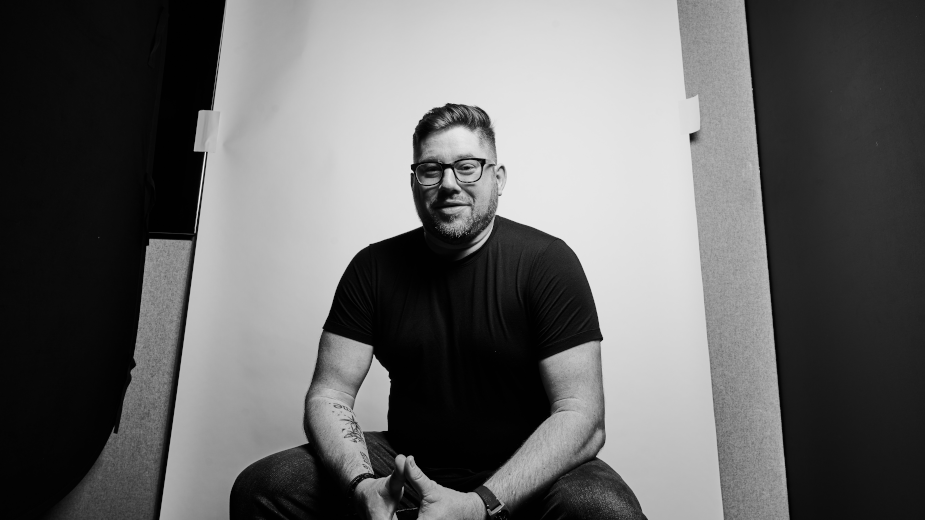
Brent Koning
Gaming game strategy
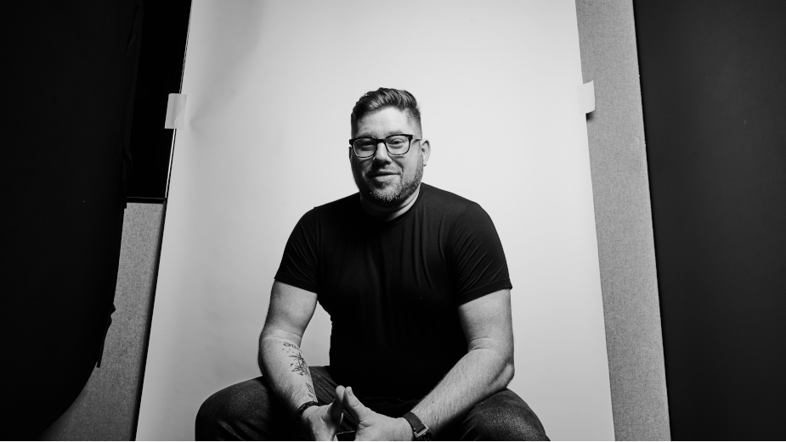
Brent Koning
When Tokyo-based Dentsu launched its gaming arm it asked Brent Koning to lead it, signalling the seriousness of the brand agency’s commitment to its gaming expansion. Brent is great at getting global audiences excited about gaming. He has two decades of experience in the industry and knows how to create and harness fandoms. At Electronic Arts (EA) he successfully launched the FIFA Ultimate Team Championship Series to grow its participants to more than 20m players across 60 nations. Koning’s fresh perspective encourages marketers to view gaming audiences as part of traditional media not direct competitors. To build consumer loyalty, Koning advocates embedding gaming into all media marketing strategy. Koning is seizing on gaming’s ever-increasing influence on culture to build in authentic gaming experiences that include a wide spectrum of audiences.
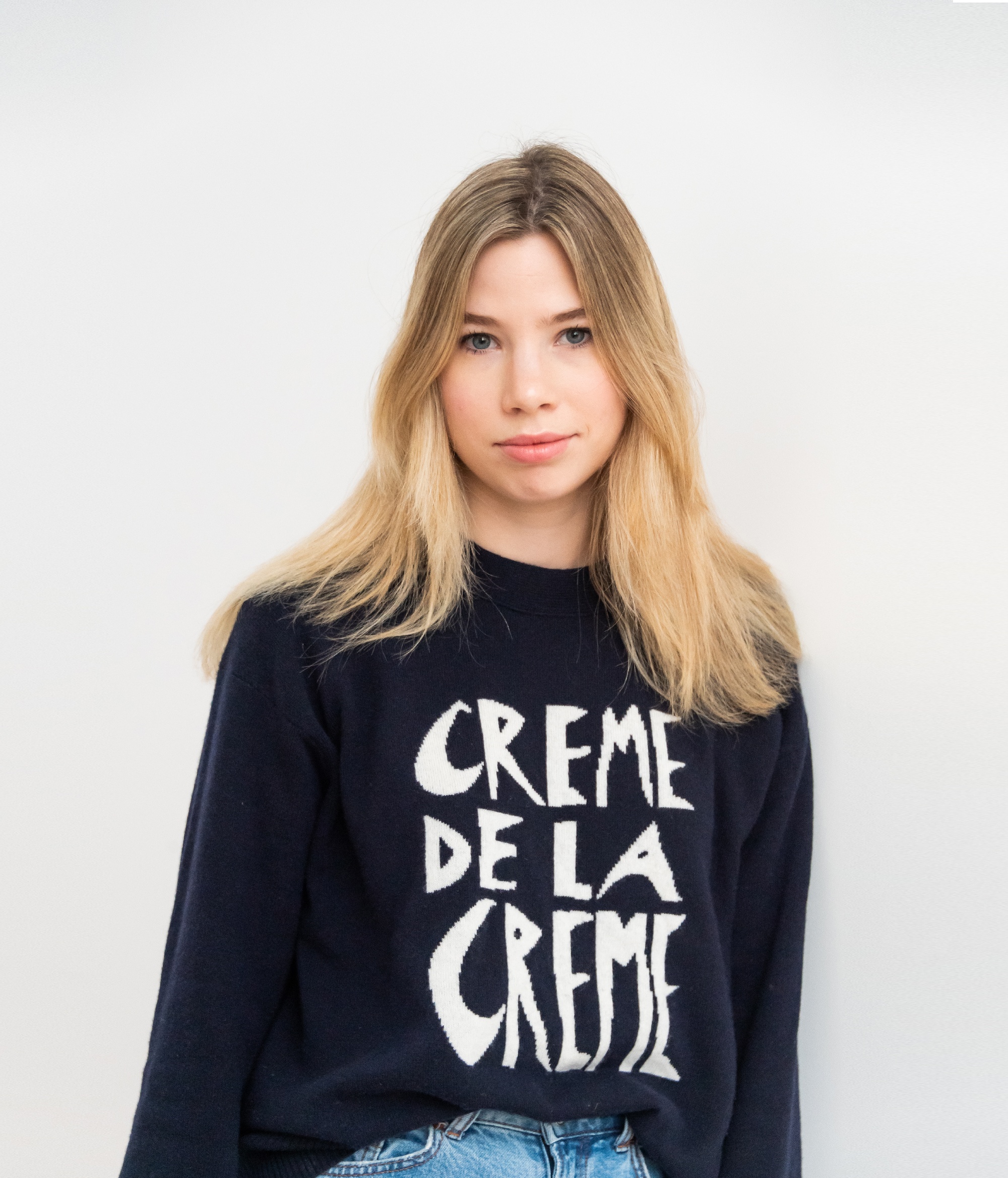
Olga Dogadkina
Building VR worlds to share brand stories
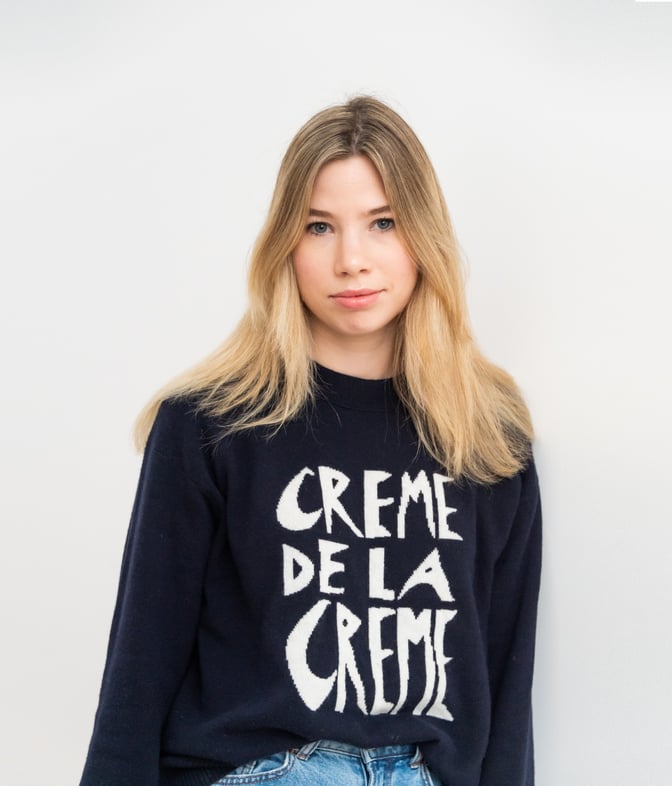
Olga Dogadkina
Olga Dogadkina’s VR platform Emperia helps brands create immersive retail experiences. Dogadkina thought up the idea for the platform when she was consulting for Microsoft on a fashion-related project and tried virtual reality for the first time. ‘It just blew my mind’, Dogadkina recalls. ‘I thought this is what’s going to change the way people shop.’
The Russian-born, London-based, UAL graduate observed that so many 2D websites lacked the ability to provide retail and fashion consumers with the seamless experiences they expect. For Emperia, building a virtual space in full 3D – either a digital copy of a physical store or showroom – is about storytelling and taking a luxury customer on a journey.
Emperia has created virtual stores for major retailers and brands, including Bloomingdale’s, Dior, Sunglass Hut and Lacoste. Dogadkina recently raised £8.2m ($10m, €9.4m) Series A funding and branched out into metaverse projects for sports brands Paris St Germain, Inter Milan and UK football club Southampton. Emperia builds VR worlds that showcase brand stories through VR, helping them connect creatively with customers.
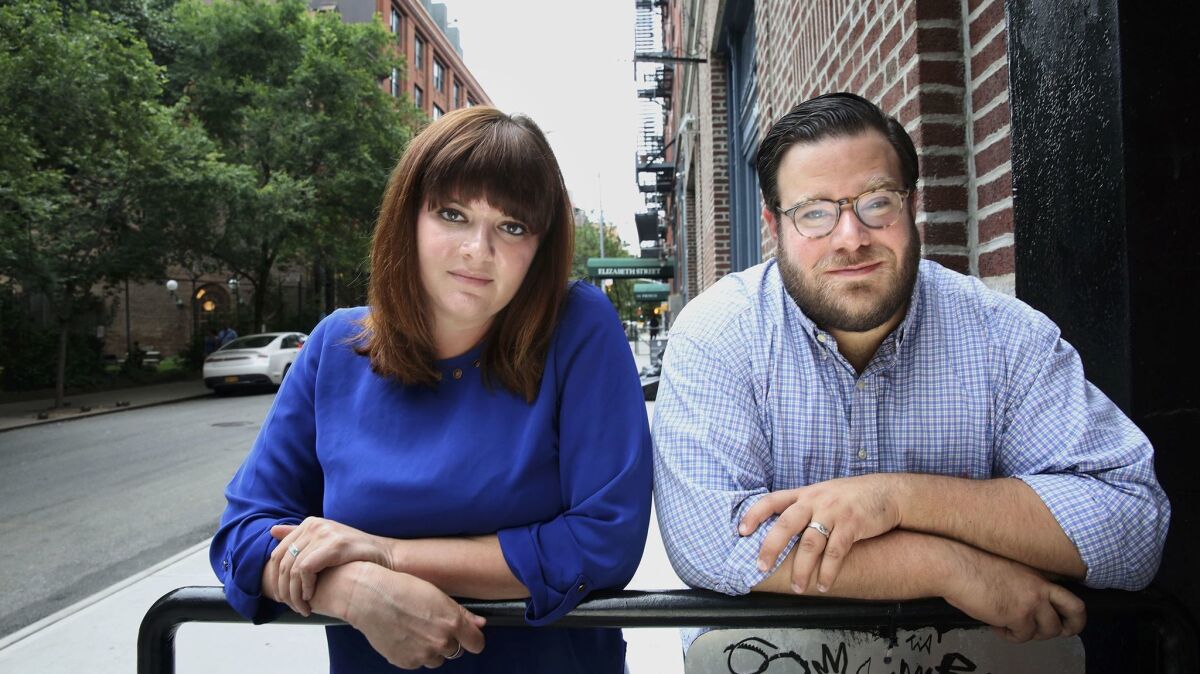
Ross Morales Rocketto and Amanda Litman
Championing the young for fairer politics
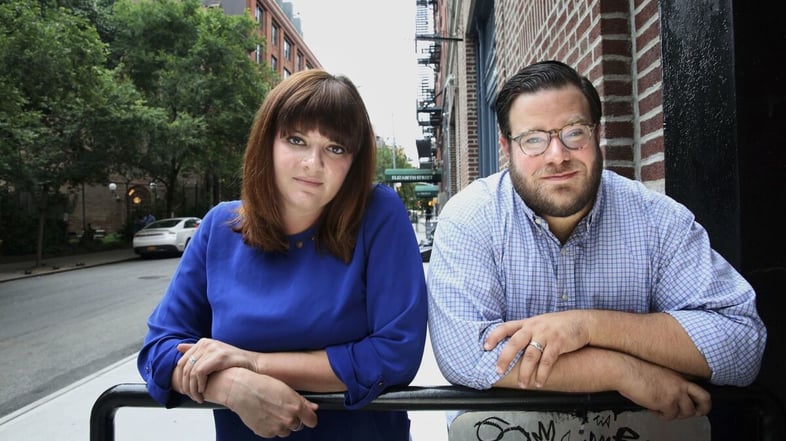
Ross Morales Rocketto and Amanda Litman
Ross Morales Rocketto and Amanda Litman’s Run For Something furnishes young people with the support and tools they need to run for office in the US. Professional political organisers Morales Rocketto and Litman launched their passion project on Inauguration Day 2016. Their mission: to get as many progressives under 40 elected to office at state and local level around the country as possible. They thought they would struggle to interest 100 people, but in their first five years have recruited more than 100,000 young activists, community leaders, students, educators, small-business owners and thinkers across all 50 states to boldly step into the political arena.
Each prospective candidate that reaches out to Run for Something goes through a vetting process while every successful candidate has access to a mentorship programme and campaign experts who give them a foundation to build a workable political campaign. ‘A lot of people feel that politics is dirty,’ says Morales Rocketto. ‘And a large part of the reason our organisation exists is to demystify and overcome some of these stereotypes.’
Run For Something’s engagement of young Americans is helping build a government more representative of American people.
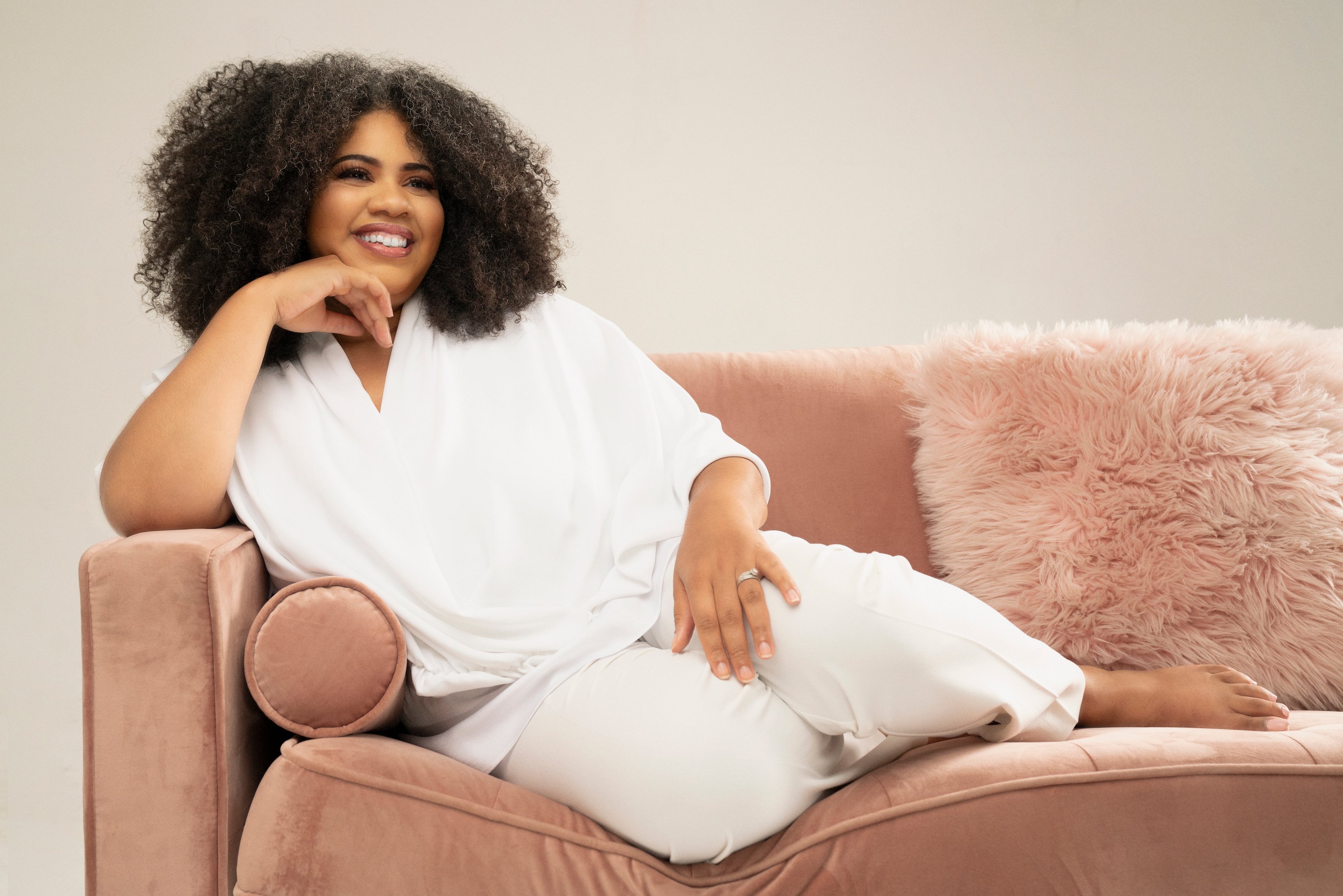
Candace Harris
AI diversifying haircare
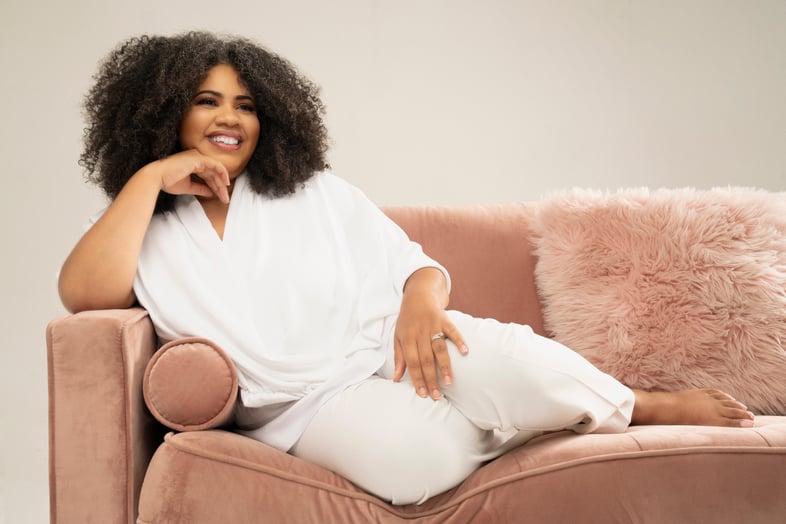
Candace Harris
Candace Harris is using science to make the future of haircare inclusive.
The Atlanta-based computer scientist created innovative hair analysis tool Myavana, the first AI system to properly recognise multi-textured hair.
Myavana made its debut at CES in 2023 and its process is simple and intuitive: users take a photo of their hair and upload it to the Myavana app, which then analyses their unique hair type and recommends products and styles.
Myavana also provides personalised haircare evaluation with its Hair Strand Analysis Kit, which involves consumers sending a strand of their hair to Myavana for examination in its lab.
Harris hopes her tech-fuelled haircare tools will help Black consumers and those with multi-textured hair to understand its care and management and, in turn, empower them to advocate for better products and treatment from the haircare industry.
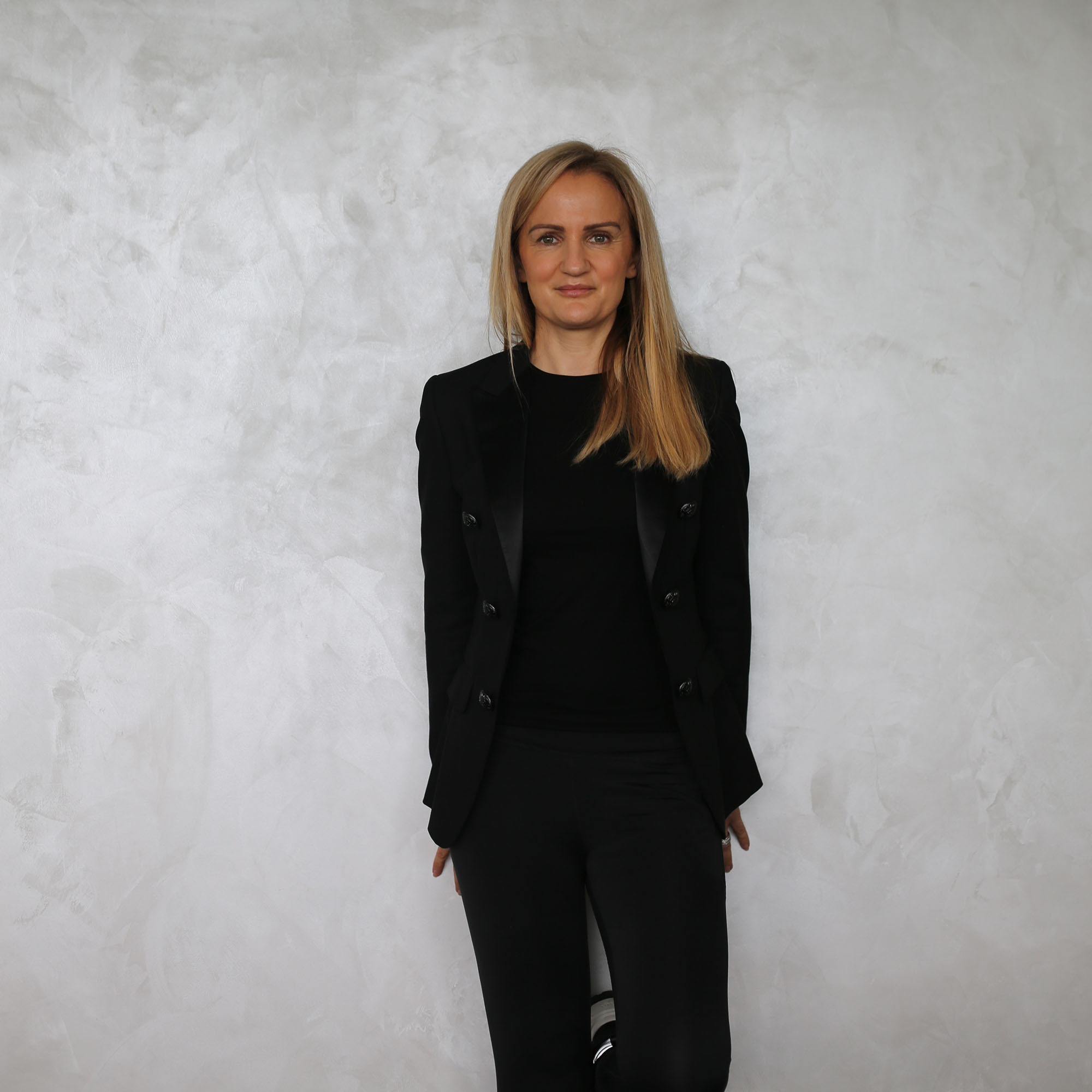
Lucy Goff
Well-researched wellness solutions
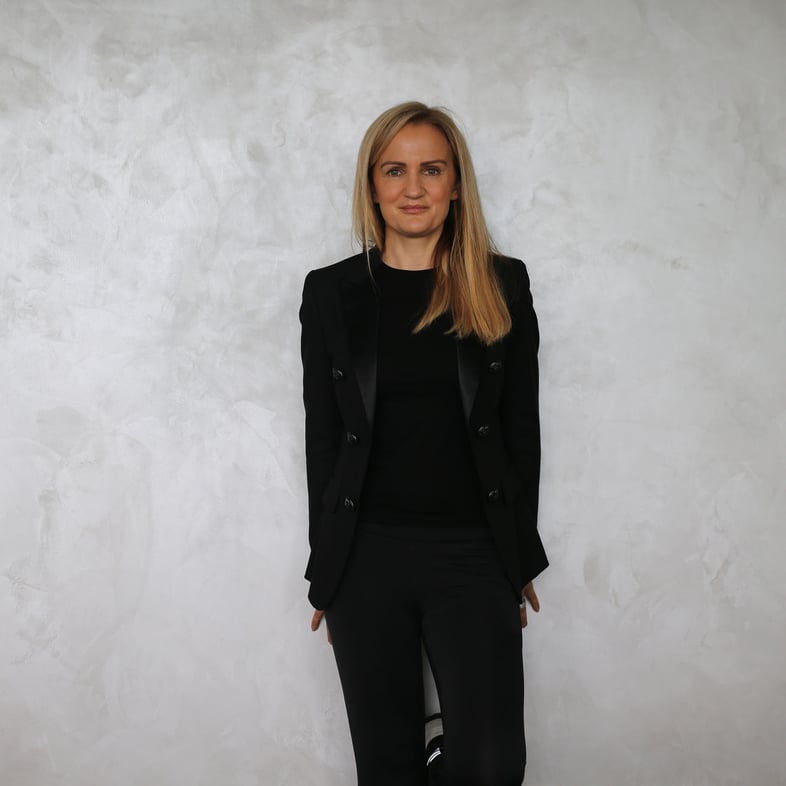
Lucy Goff
Science-powered wellness company Lyma was born out of its founder’s sickness. Lucy Goff contracted septicaemia after giving birth and in her long recovery became frustrated with ineffectual supplements.
‘The reality is that the market is entirely unregulated,’ she tells LS:N Global. ‘Manufacturers can make unsubstantiated claims.’
A chance meeting with renowned clinical pharmacologist Dr Paul Clayton, now a member of Lyma’s team, led Goff to found the London-based company. It rigorously fuses the worlds of wellness and technology to deliver scientific beauty, health and wellness solutions.
Lyma’s first product was the Lyma Supplement, a peer-reviewed 10-ingredient beauty supplement. It was launched with an open letter to the wellness industry asking it to address its outdated supplement regulations.
The company recently launched a first-of-its-kind at-home facial laser, a further example of the user-friendly expertise Lyma wants to deliver to consumers. For Goff, Lyma’s focus is clear: ‘putting efficacy first and the customer back in the driver’s seat’.
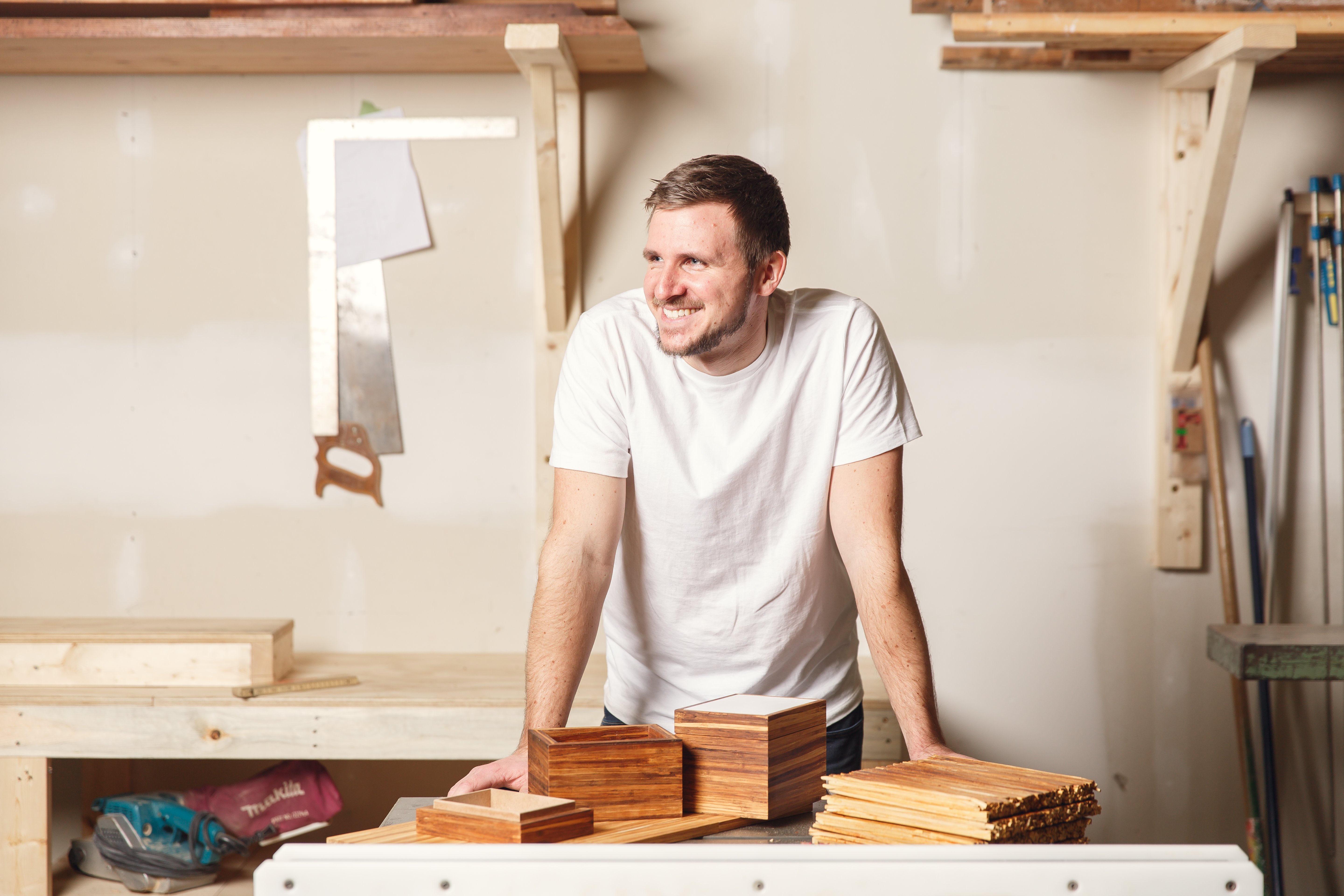
Felix Böck
Chopstick-fuelled circular economy
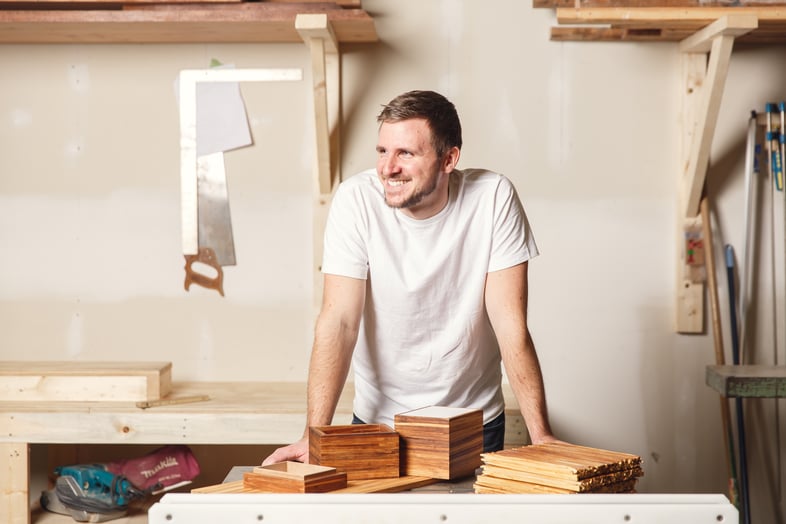
Felix Böck
When shopping online at Felix Böck’s ChopValue, the number of recycled chopsticks used in making each item is shown next to the price. A cheese board costs £18 ($22, €21) and uses 300 recycled chopsticks, a £229 ($280, €262) rolling cabinet needs 2,439 chopsticks, a large £1,225 ($1,497, €1,400) workstation requires 10,854 chopsticks.
Founded in 2016 in Vancouver, ChopValue began as a sustainable design and furniture business. It focused on harvesting wooden chopsticks from local restaurants to create beautiful, functional home and office products including charcuterie boards, shelving units and desks. Engineer Böck quickly realised that ChopValue’s local concept could have massive global impact and immediately sought to make it franchisable. ‘Maybe within the first week after launching our first product line,’ says Böck, ‘I felt the responsibility that if viable, we have no option but to scale to accelerate our impact.’
ChopValue now has 11 microfactories in six countries, including Singapore, Bali and the US. To close the loop on harvesting utensils the company has signed up hundreds of restaurants worldwide to its recycling programme and its chopstick subscription service.
Böck hopes ChopValue’s socially responsible circular economy success will challenge other industries to find new ways to redefine waste as a resource.
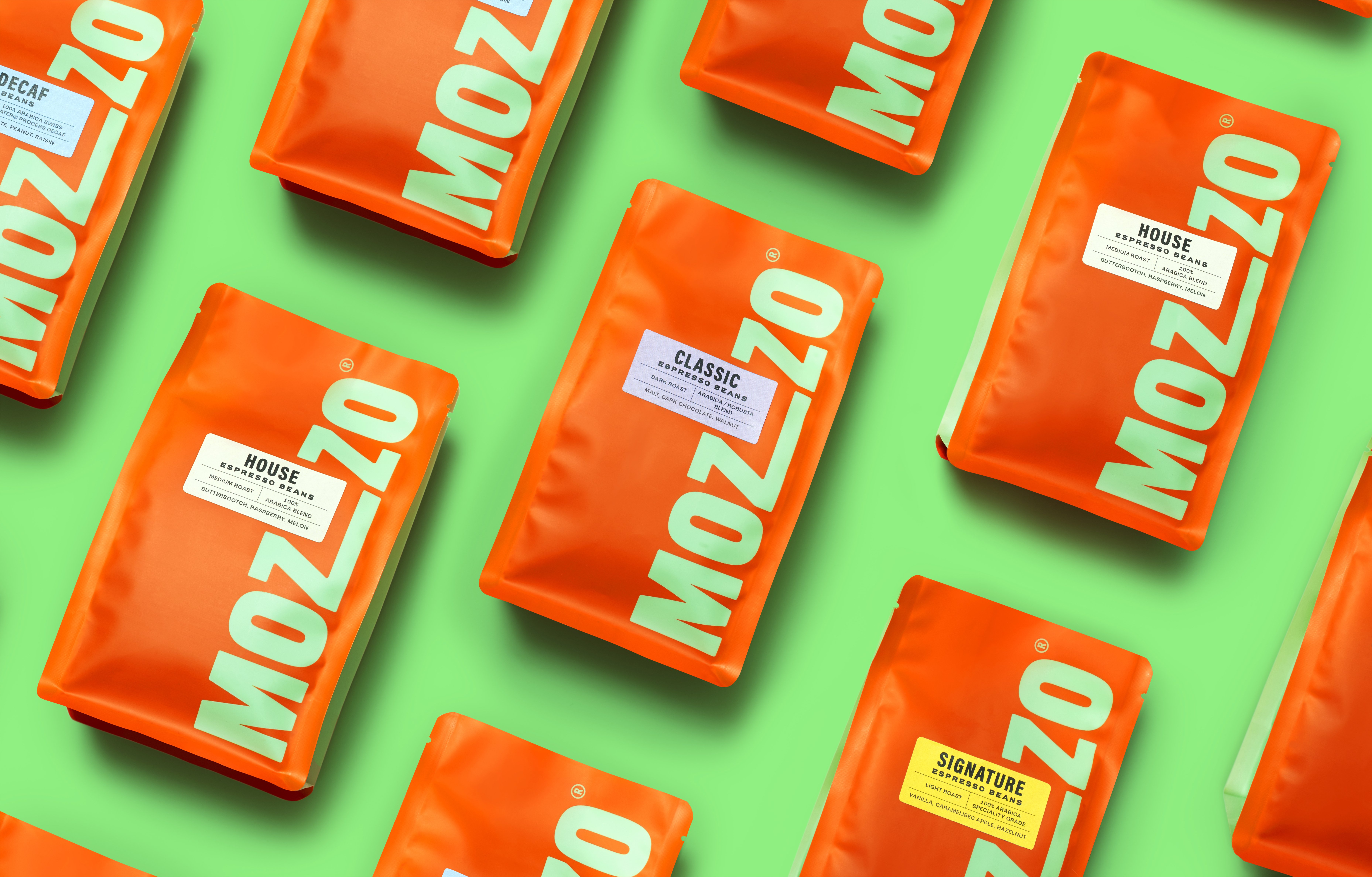
Grant Lang
Coffee for the common good
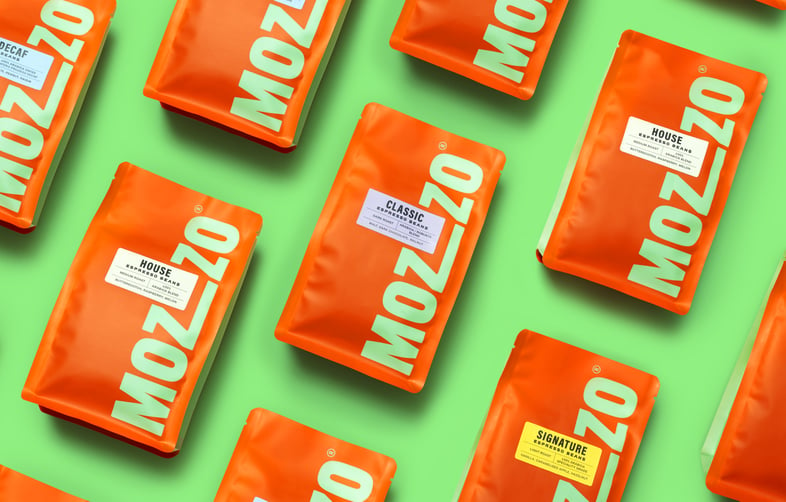
Grant Lang
Southampton-based Mozzo Coffee’s first outlet was an Indian tuk tuk, which founder Grant Lang bought with his student loan in 2005, and for years Lang travelled to events across the south of England in the tuk tuk establishing Mozzo as a community-focused coffee brand.
Mozzo aims to bring people together through coffee and empower them with its profits. In 2015 it set up its Community2Community Fund to make sure every purchase of its products delivered a positive impact to its coffee-growing communities. The fund has so far helped build a maternity clinic in the Democratic Republic of the Congo and is currently working on investment projects with coffee growers in Nicaragua.
Mozzo recently rebranded its packaging with a new tagline emphasising its core values: ‘Coffee. Community. Connection.’ Lang hopes Mozzo can be an example to businesses everywhere, proving that it is possible to succeed commercially while also delivering social good.
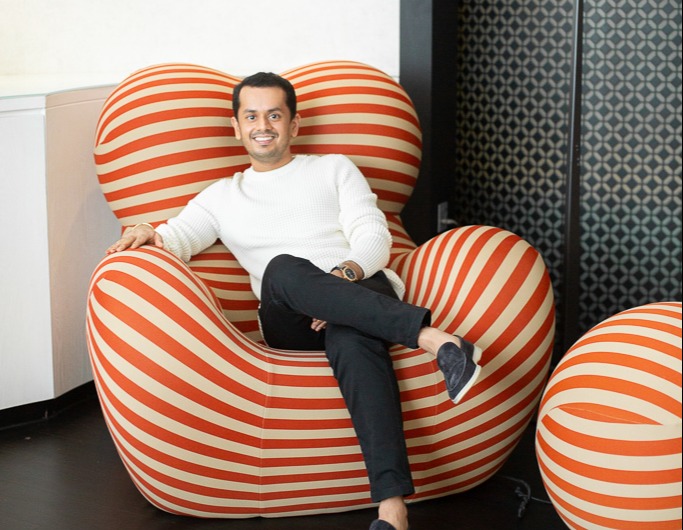
Gaurang Jhunjhnuwala
Global hotels harnessing local pride
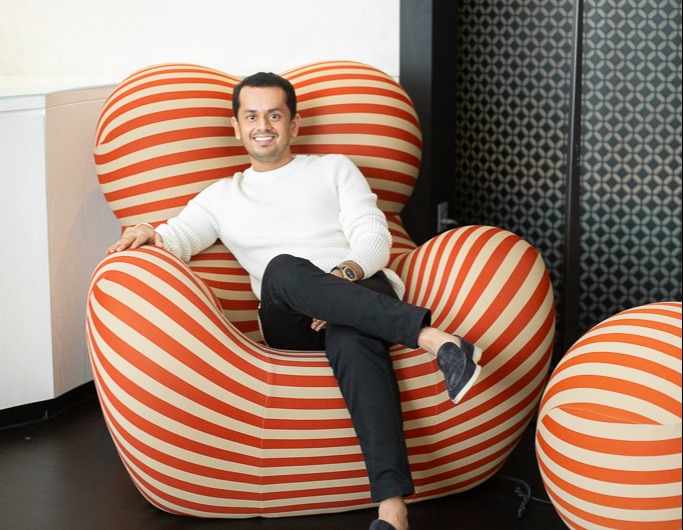
Gaurang Jhunjhnuwala
Gaurang Jhunjhnuwala has been at the helm of Singapore-based Naumi Hotels for over a decade. The Asia-Pacific region hospitality brand aims to make modern luxury more purposeful.
It doesn’t build new but looks for unused buildings with rich histories and revitalises them. Tastemaker Jhunjhnuwala collaborates with local designers and suppliers to ensure these new hospitality spaces celebrate the local community.
Naumi’s newest hotel in Wellington, New Zealand, is the brand’s seventh property and is a refashioned People’s Palace hotel built by the Salvation Army in the late 19th century, packed with art and furniture pieces made by New Zealand creatives.
The future for Jhunjhnuwala and Naumi Hotels includes continuing to commit to sustainability and social impact. Its hotels all have wooden key cards and have eliminated all single-use plastics. Its ESG arm, Naumi Humanity, reaches out to local marginalised communities with employment initiatives and grants for further education.
Naumi Hotels has ambitions to expand beyond the APAC region and wherever the brand goes it wants to be known for making hospitality ‘holistically hospitable’.

Farah Marafie
Slow fashion collectibles

Farah Marafie
‘Clogs,’ says Kuwaiti-Lebanese designer Farah Marafie when asked what’s next for her luxury fashion label, AOI.
The London-based label is disrupting fashion’s addiction to speed by eschewing collections and producing what it calls ‘collectibles’. AOI releases duos of products twice a year, in unexpected pairs. The first drop featured silk suits and rings, the second eyewear and coats.
No matter how popular, once sold out, AOI’s wearable works of art are gone; nothing is reproduced, restocked or re-released. The label’s focus is on quality materials, craftsmanship and creating at a considerate pace.
‘I like sharing with my collectors how long each collectible took to make: where it was made, how many hands made it,’ says Marafie. She sees AOI as part of a slow but steadily shifting movement in luxury, helping consumers become more cognisant of their consumption.
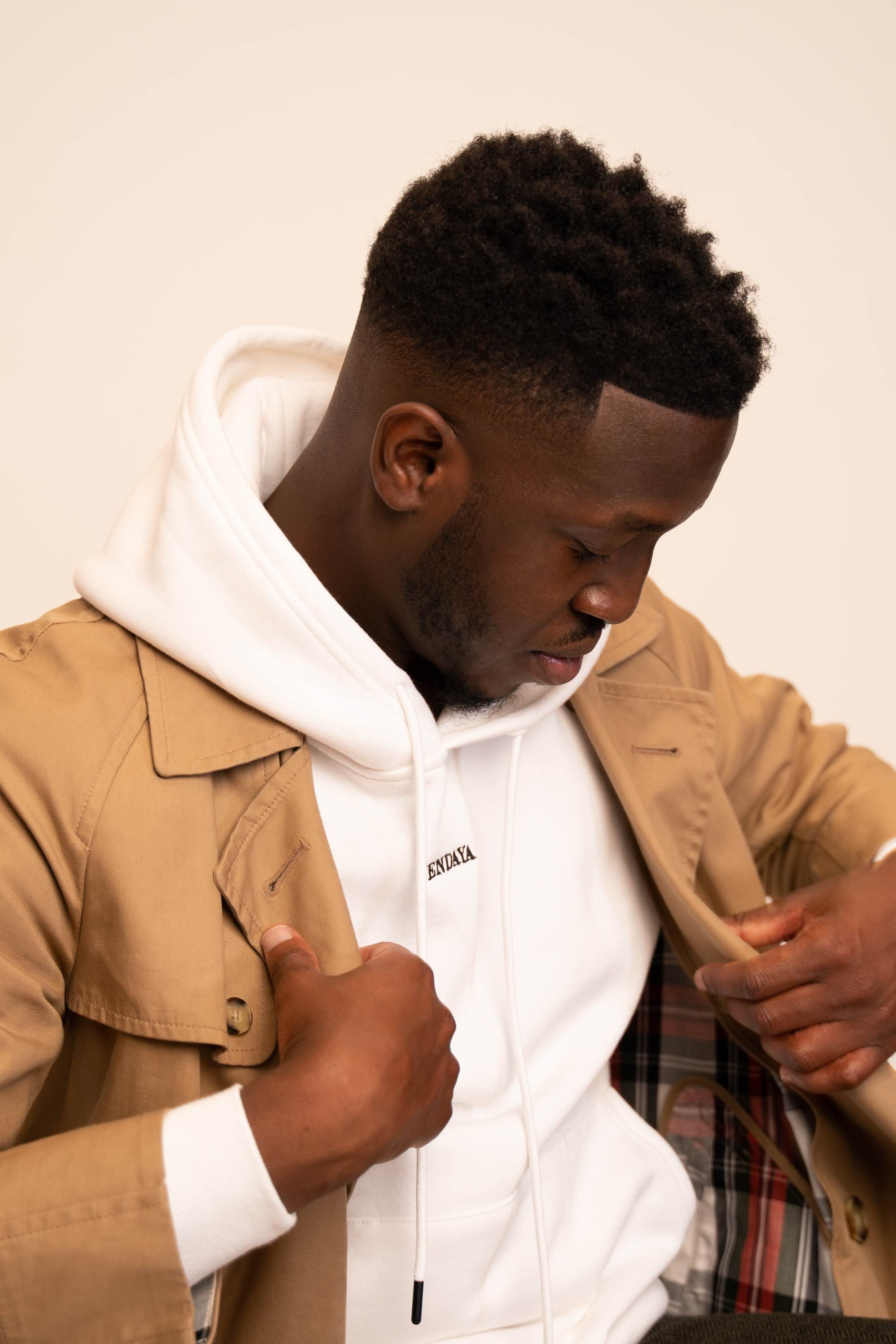
Samuel Rufai
African luxury for all
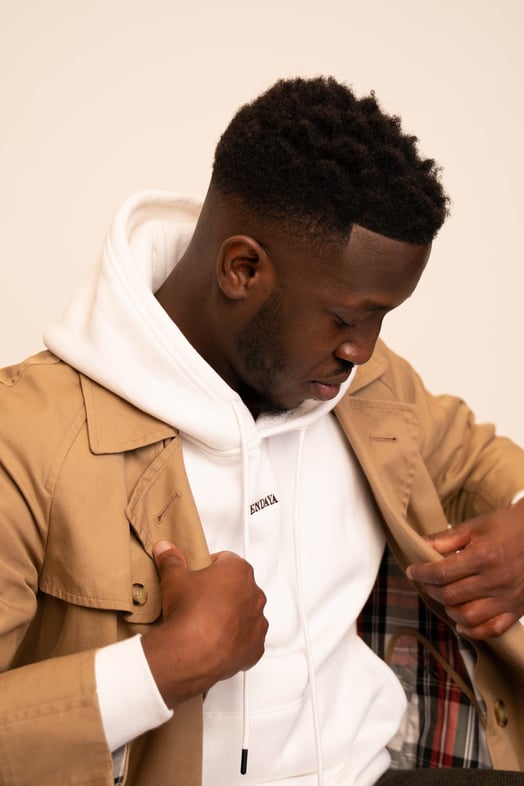
Samuel Rufai
‘Farfetch with an African focus’ is how Ayotunde Samuel Rufai describes Jendaya, his UK-based online luxury marketplace. Jendaya is available globally, but it first and foremost caters for Africa’s often overlooked luxury consumers.
Rufai was inspired to launch the e-commerce platform when he grew tired of being sent by his family in Lagos to buy luxury items in London. The platform acts as a gateway for global luxury brands into the African luxury market, hosting renowned luxury labels including Issey Miyake, Comme des Garçons and JW Anderson. But it is also a showcase for African designers, giving creatives such as Marty Moto, Abiola Olusola and Imad Eduso an opportunity to connect seamlessly with luxury consumers around the world.
A year after its launch, Jendaya raised £1m ($1.2m, €1.1m) in pre-seed funding from a collection of investors including First Impact VC. 'Get ready to see us everywhere,’ warns Rufai. He wants Jendaya to become known as the platform celebrating Africa’s luxury producers and purchasers, making sure they are not forgotten or taken for granted.

Rho Chung and Alice Jackson
Phone service for social support

Rho Chung and Alice Jackson
Strut Safe began as an Edinburgh-based phone service for women, people of the global majority (PGM) and queer people. Individuals were encouraged to call to request a companion to walk them home if they felt unsafe at night.
It was created by academic Rho Chung and Edinburgh University student Alice Jackson in the wake of the high-profile murder of Sarah Everard in London, which Jackson has spoken of as a watershed moment in UK culture. They wanted to offer community, solidarity and physical reassurance when so many were feeling vulnerable.
Strut Safe no longer offers a walking service, but its publicly funded phone line still exists. It now operates nationally and is run by a group of background-checked volunteers. Anyone can call Strut Safe for mental support when walking alone at night.
The service currently runs at the weekends between 7:00pm and 3:00am on Fridays and Saturdays, and 7:00pm–1:00am on Sundays, where it receives on average 30 to 40 phone calls a night. Chung and Jackson are also working to raise funds to expand both its days and hours. Strut Safe is showing how we can use well-defined community action to keep each other safe..
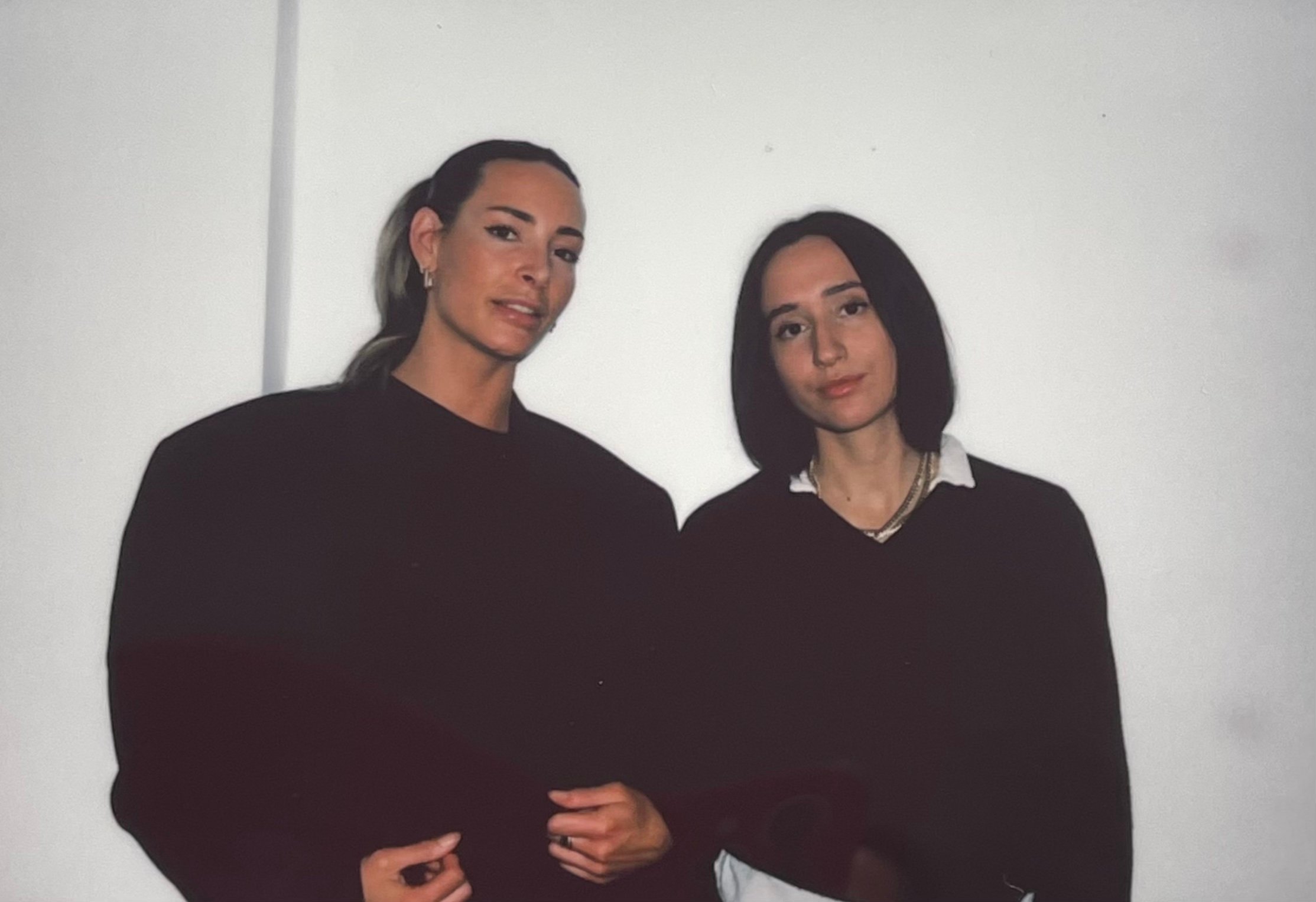
Rachel Mcluckie and Anna Caldana
Regenerative rental fashions
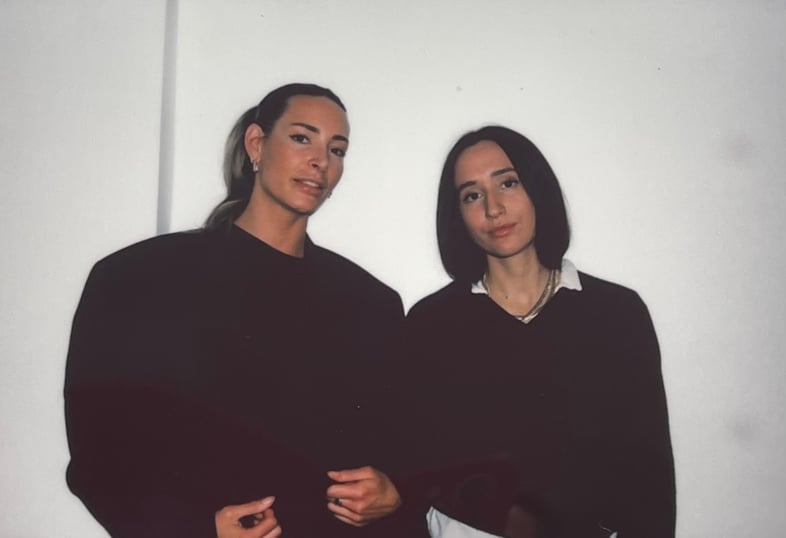
Rachel Mcluckie and Anna Caldana
A chain-draped mini-slip dress by Prier De Saône, a baggy buttery yellow power suit by King &Tuckfield, and Siam Circle’s screen-printed patchwork jeans. These are the types of standout pieces that London-based Curated Loop offers on its rental platform.
Launched in 2023 by Rachel Mcluckie and Anna Caldana, the fashion tech company is shaking up the clothes rental market by making it an edgier and more sustainability-focused place.
Curated Loop exclusively sources its clothes from the sample stock, dead stock, unused and risk-of-being-tossed-into-a-landfill stock of emerging and independent designers. It then puts together an edit of unique, often one-of-a-kind fashion pieces for its predominantly Gen Z and Millennial customers to rent from its website or app.
Collaborating with those who share their values is key to Curated Loop’s continued success. The duo enlisted eco-friendly laundry service Oxwash to clean its clothes and the start-up is talking to London’s Central Saint Martins about establishing a partnership with its fashion students.
‘We’re really fortunate to have an amazing network,’ says Mcluckie. ‘We want to work across the industry to inspire consumers to use fashion to express themselves more sustainably.’
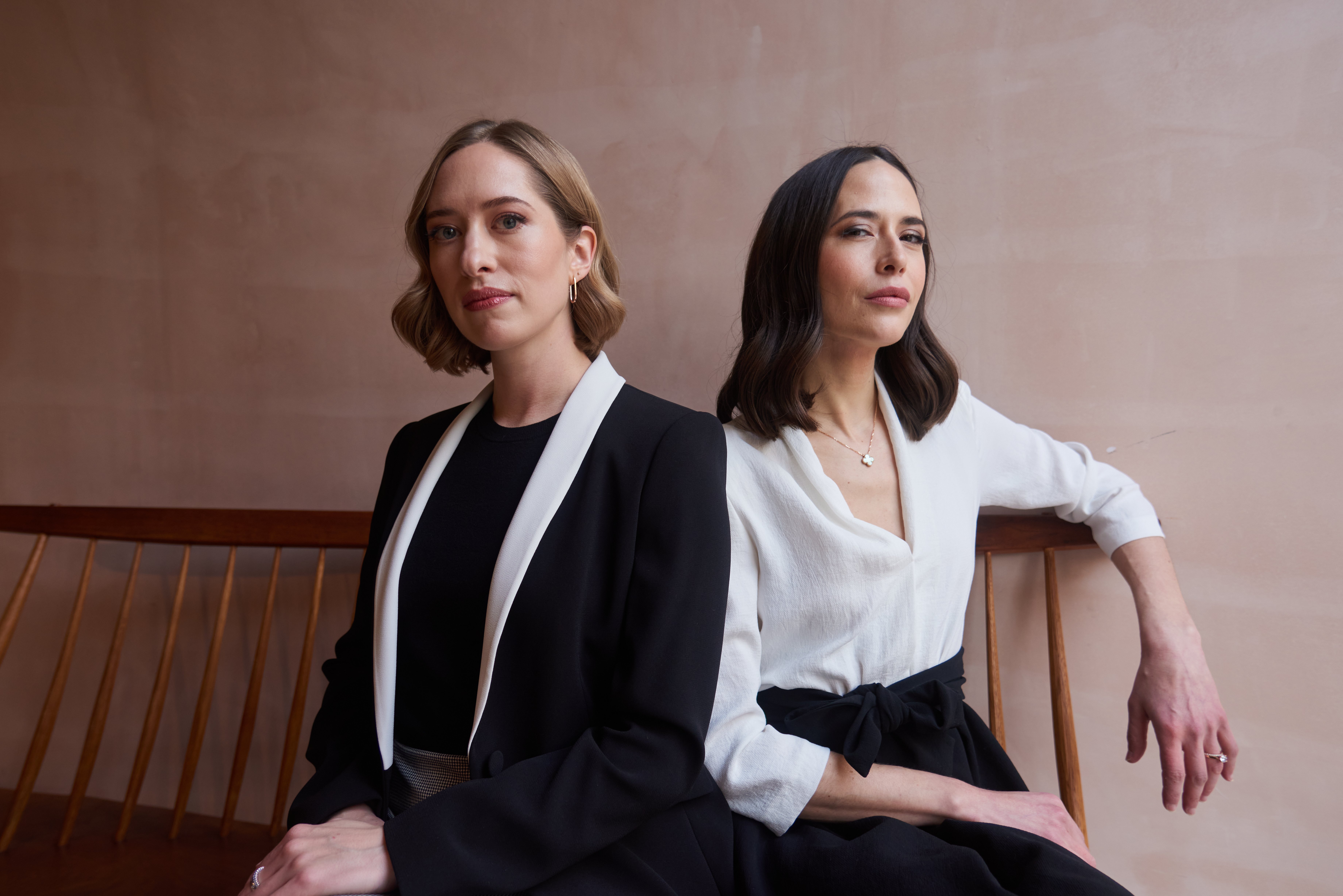
Kristin Cardwell and Alex Beyer
Personalised beauty regimes in one place
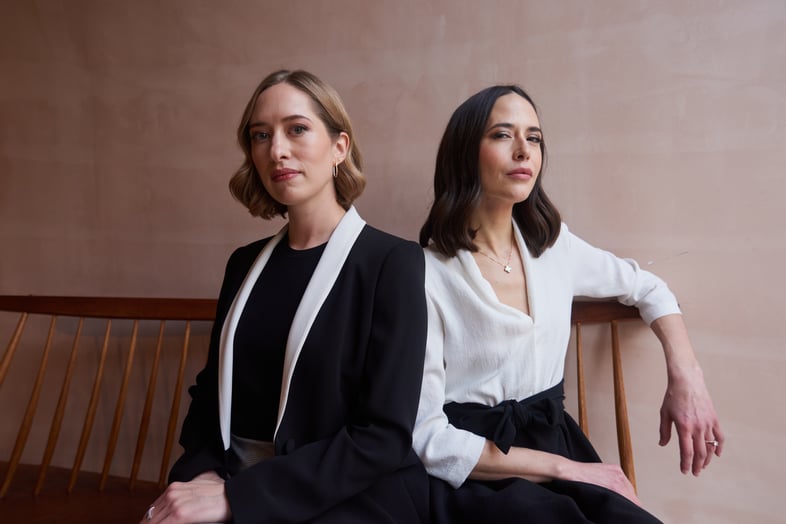
Kristin Cardwell and Alex Beyer
Kristin Cardwell and Alex Beyer are on a mission to build a hyper-personalised Farfetch of beauty. They co-founded Sourcerie, an e-commerce platform encouraging consumers to shop for beauty products based on community-driven data and reviews. The former L’Oréal and Palantir executives built Sourcerie after suffering from eczema for the first time and feeling overwhelmed by treatment advice. ‘The best recommendations, and the ones that actually worked, always came from people just like us,’ they told LS:N Global. ‘We wondered – can’t we find a way to scale this?’ Sourcerie has big ambitions and aims to be the place brands and retailers visit to connect with beauty consumers seamlessly. ‘We’re not just a personalised marketplace. Our vision is to become the global tech platform for every beauty and personal care decision.’

Sophia Smith Galer
Pioneering digital journalism
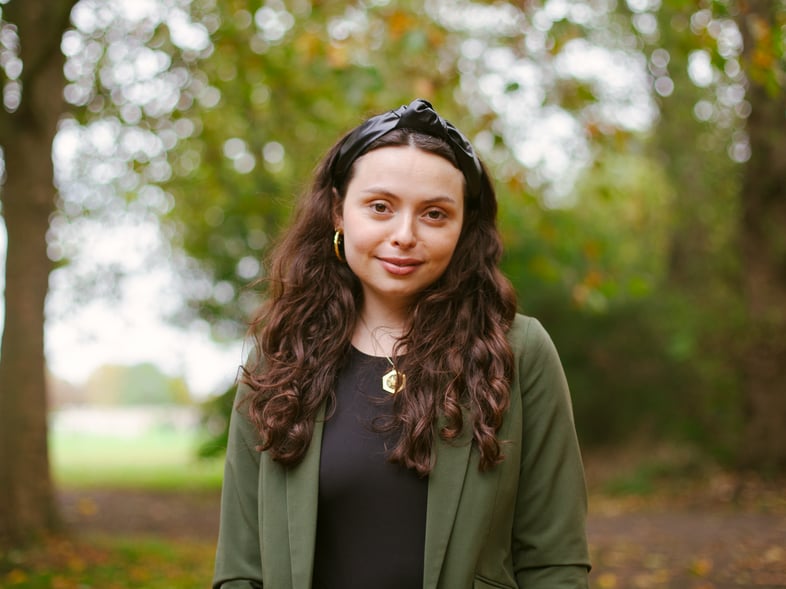
Sophia Smith Galer
Sophia Smith Galer was one of the first journalists to understand how social media app TikTok could be used as a news platform.
London-based, she was working at the BBC as its first visual journalist in faith and ethics when she began using the digital platform to find and tell news stories that weren’t being picked up elsewhere.
Her TikTok-fuelled insights on the US presidential campaign and the war in Ukraine gained her over 460,000 followers and over 130m views.
Smith Galer is currently a senior news reporter for Vice World News, where her work tends to focus on human rights, digital ethics and global youth culture.
Her approach to digital journalism is showing media outlets how they can be more responsive and responsible when sourcing and delivering news in social media spaces.
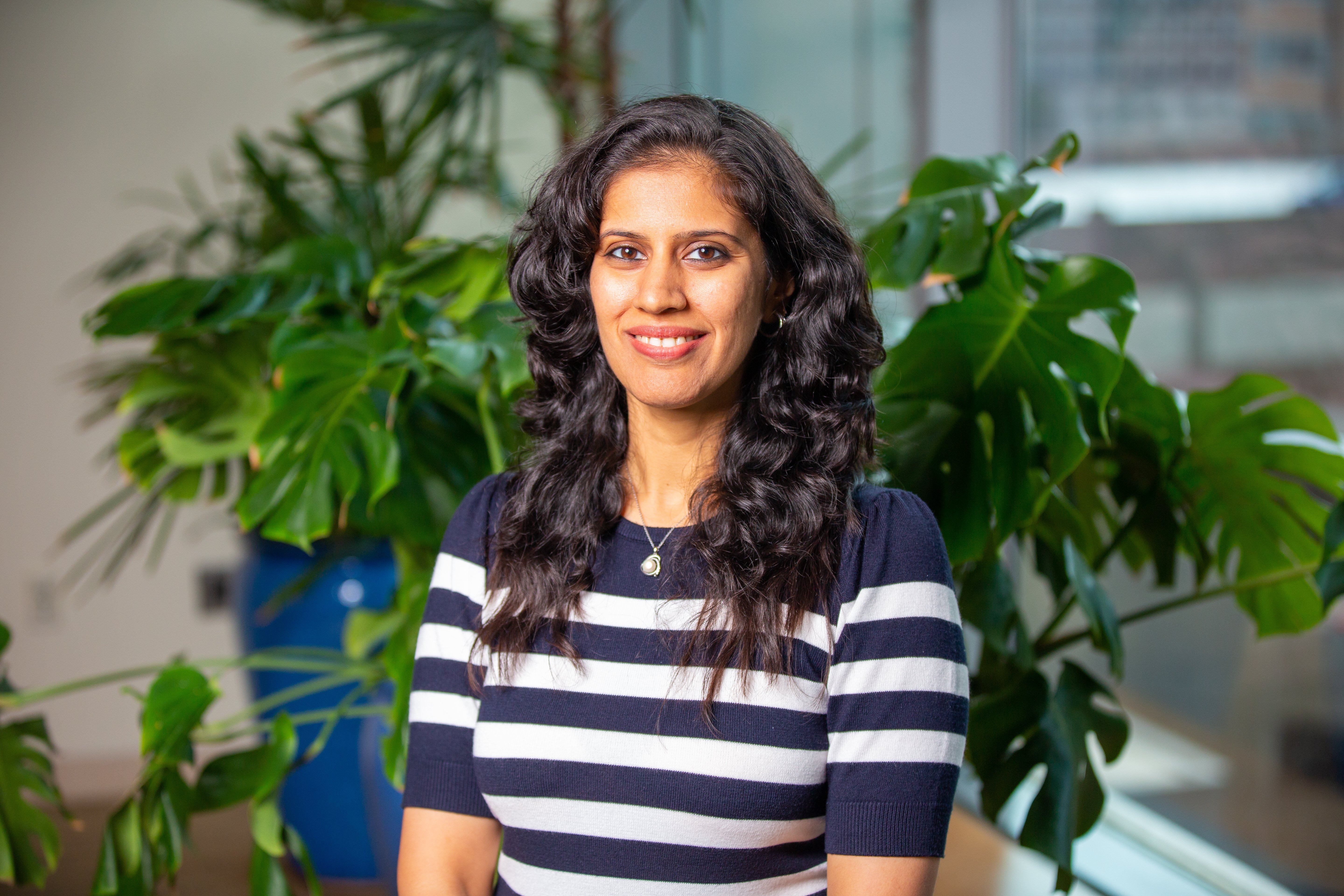
Aakanksha Gulati
Advancing vaginal health research
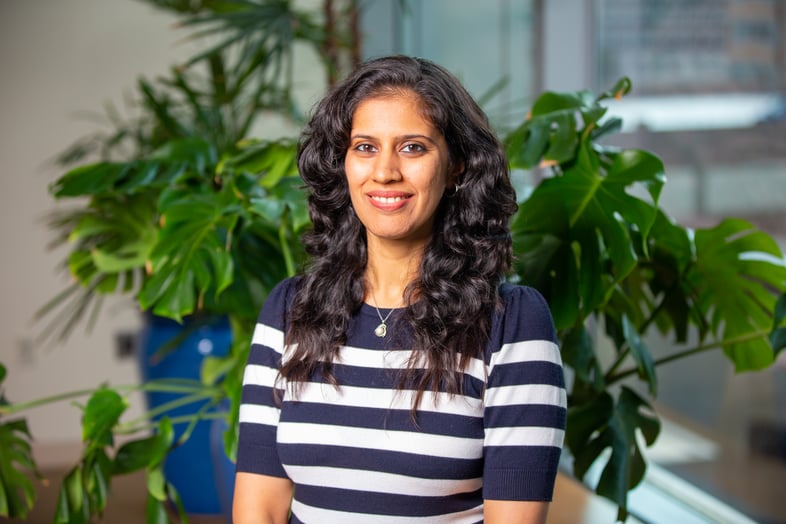
Aakanksha Gulati
As part of her post-doctoral research at Harvard’s Wyss Institute, Boston-based Aakanksha Gulati co-created the world’s first ‘vagina on a chip’, an inch-long polymer rectangle mimicking the human vaginal tissue environment, including its communities of microbes. Gulati is currently using the innovation to investigate bacterial vaginosis (BV), a disease that afflicts nearly 30% of reproductive-aged women around the globe, according to Science Daily. ‘A major stumbling block for that effort was that there were no good pre-clinical models that could be used to study which therapies can actually treat BV in human tissues,’ she said. Her team hopes others will use the chip routinely to advance vaginal research. Introducing a new tool in a medical area that remains chronically under-researched and misunderstood is a significant leap forward.
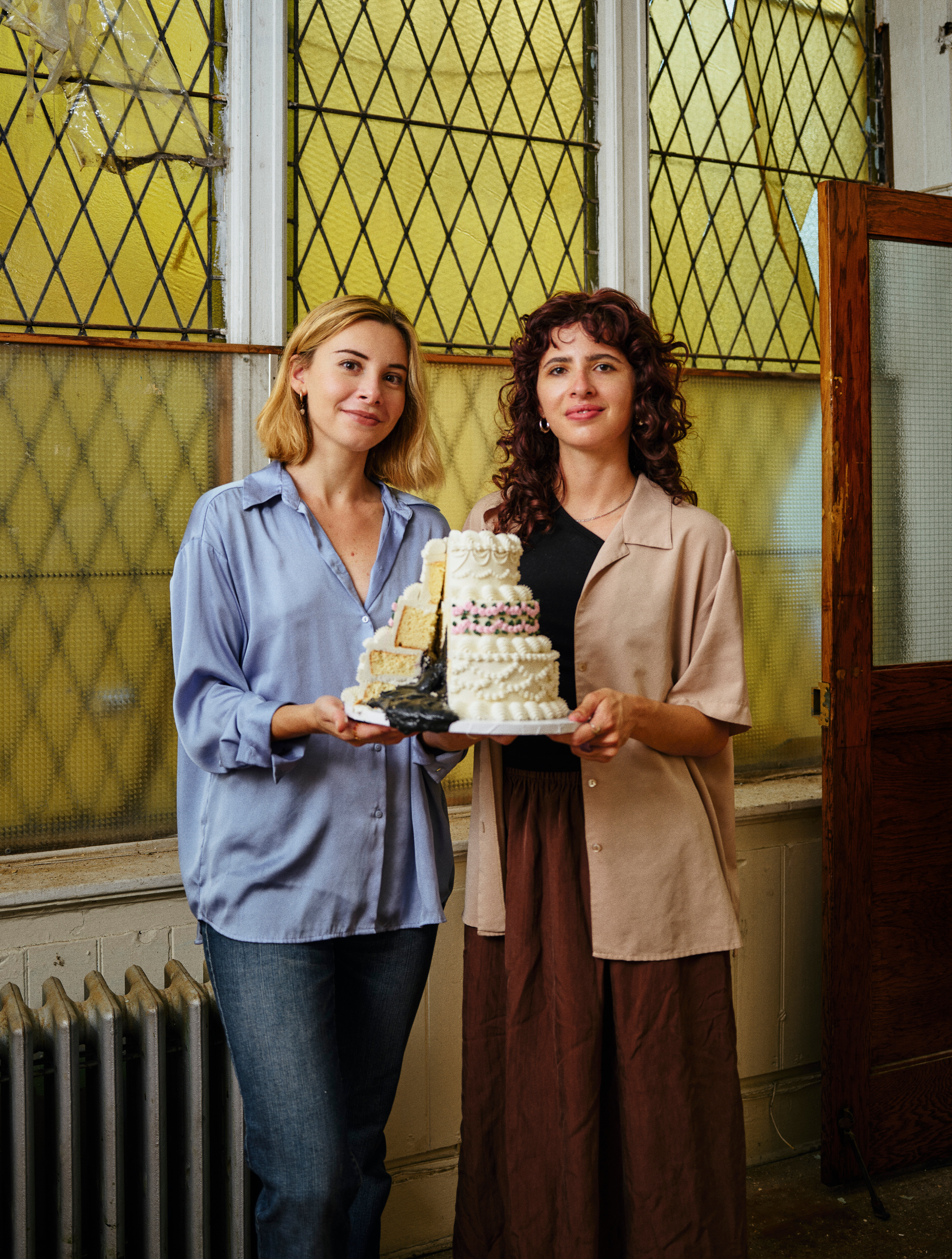
Aliza Abarbanel and Tanya Bush
Let them read cake
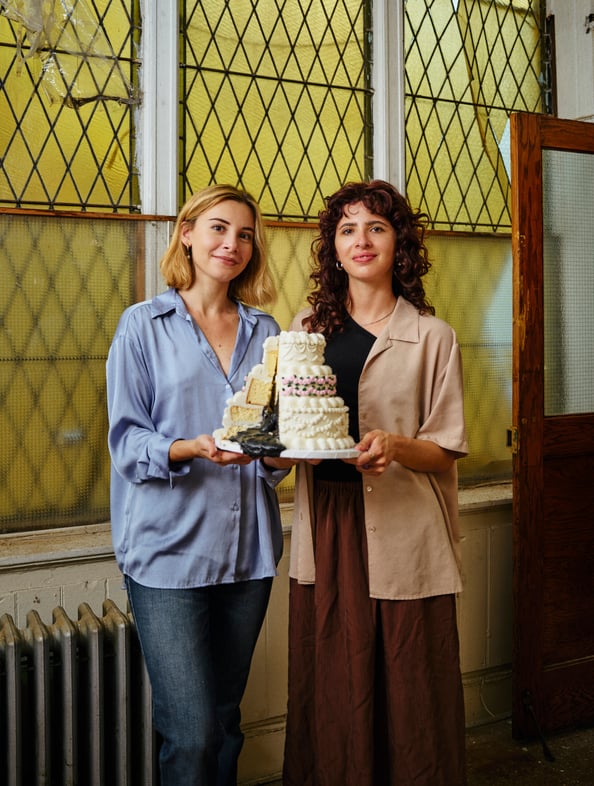
Aliza Abarbanel and Tanya Bush
Baker Tanya Bush and food writer Aliza Abarbanel met over Instagram in 2021 and bonded over their desire to create thought-provoking food media. In spring 2022, they launched the first edition of Cake Zine, their independent magazine that uses sweets to explore and challenge societal norms. The issue, entitled Sexy Cake, delved into erotic bakeries. ‘Our themes are niche but expansive,’ they say. Its second volume, released in autumn 2022 and cheekily named Wicked Cake, explored the history of arsenic and evaluated the risks AI could pose to the art of baking. The upcoming Humble Pie issue, scheduled for spring 2023, will be a tangible and symbolic exploration of pie-making and humility. Bush and Abarbanel serve a much-needed slice of subversion to the food media landscape. The duo also see Cake Zine as the anchor point for larger enterprises. ‘We are very interested in making the magazine a social object,’ they told LS:N Global. ‘A community for people interested in using food as the impetus for broader cultural exploration.’
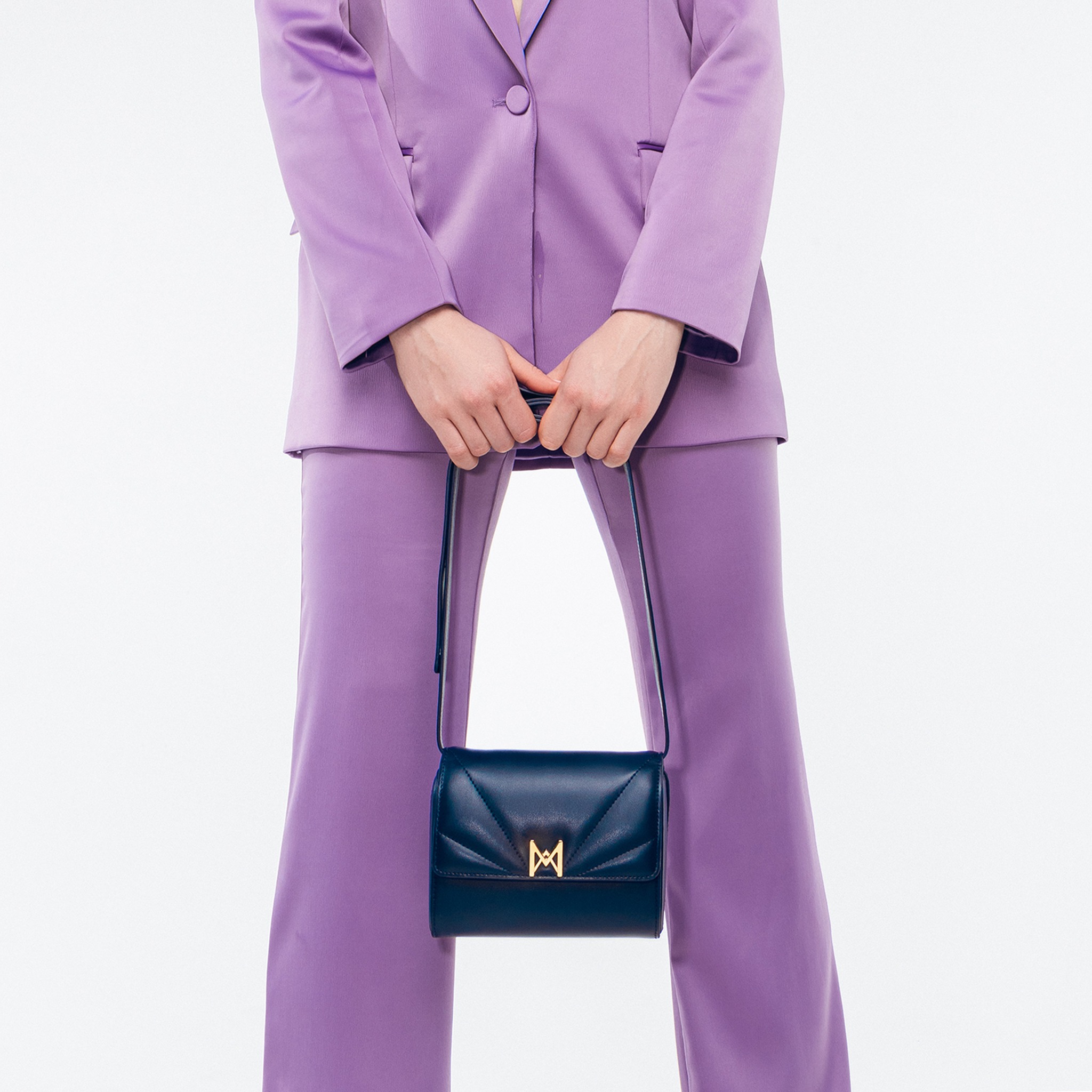
Romain Boubert and Géraldine Saquy
Low-carbon leather goods
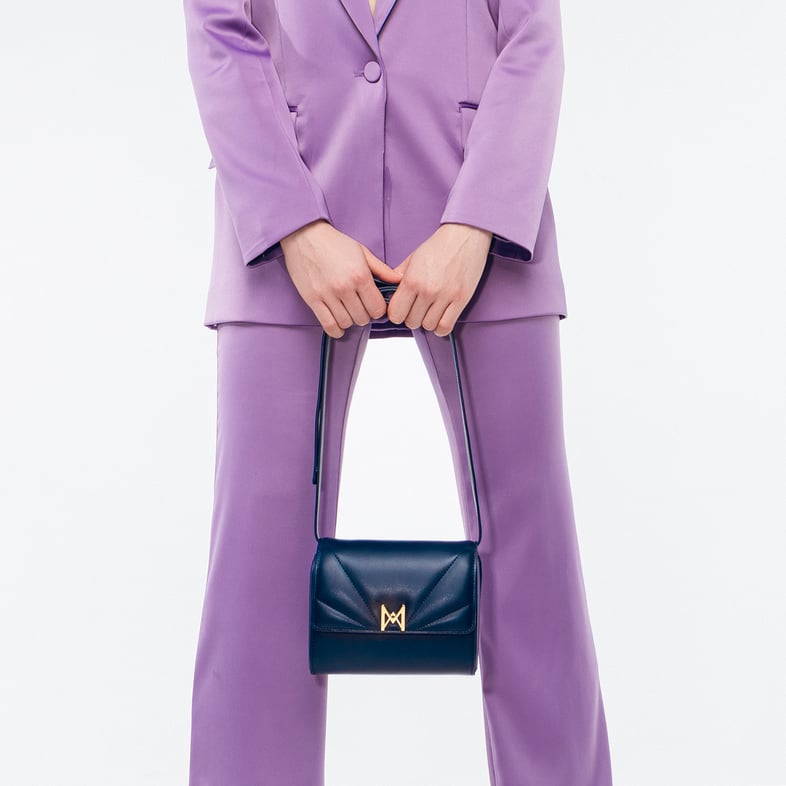
Romain Boubert and Géraldine Saquy
Maison Maes is a Paris-based accessories brand on a mission to make the luxury leather industry more eco-friendly. Founded in 2020 by former engineer Romain Boubert and graphic designer Géraldine Saquy, the brand aims to ‘finally bring bags and small leather goods into the 21st century and challenge the luxury status quo’.
By combining legacy French craftsmanship with innovative leather textiles, Maison Maes self-defines as the world’s first low-carbon haute maroquinerie retailer. Recipient of the Butterfly Mark, which recognises ambitious investments in environmental, social and governance, the brand refuses to use any materials traditionally found in leather goods manufacturing. Maison Maes made its first collection of handbags with its patented Desserto vegan cactus leather, which consumes nine times less energy and emits nearly 20 times fewer greenhouse gases than animal leather, according to the brand. Boubert and Saquy want to continue exploring bio-based materials and are determined to show the fashion industry and consumers alike that cactus leather goods can be equally luxurious and sustainable.
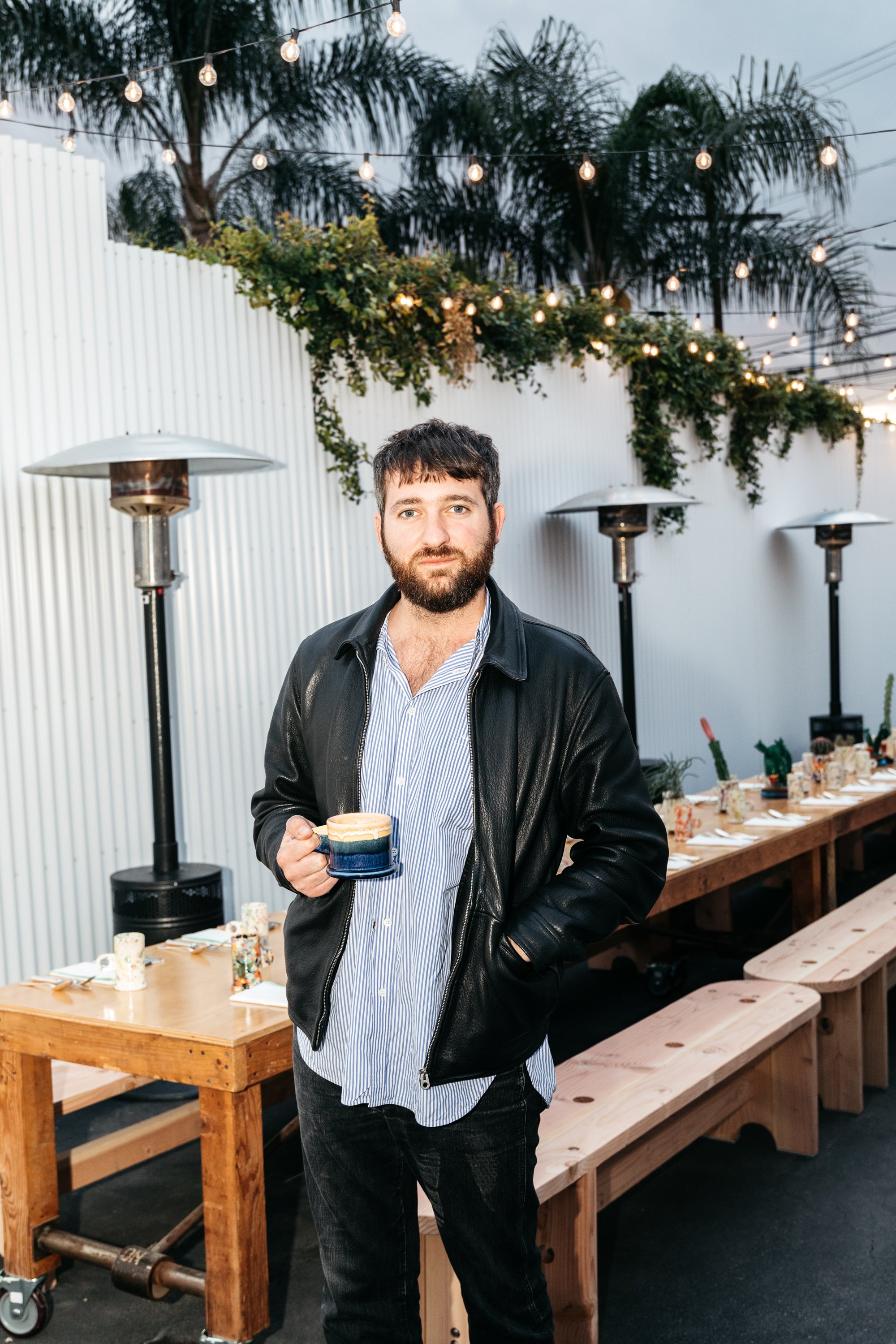
Luca Pronzato
Purposeful culinary pop-ups
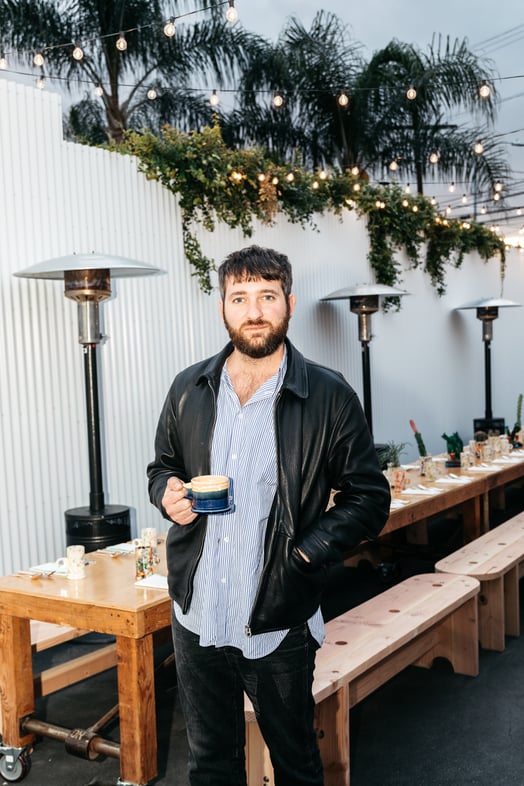
Luca Pronzato
After completing his master’s degree in wine at Sup’Agro in Montpellier, France, Luca Pronzato visited 30 countries in under a year. Inspired by the cultures he’d observed and the cuisines he enjoyed, Pronzato returned home to Paris and founded We Are Ona, a community of food creatives dedicated to creating temporary culturally inclusive experiences. ‘We want to turn food talents into creative directors, similarly to couturiers in the fashion industry,’ the We Are Ona team told LS:N Global. Ona means wave in Catalan and is reminiscent of the company’s nomadic collective sweep into different cities each year, opening fully operational pop-up restaurants. Pronzato created ephemeral dining experiences at an old stable in the French town of Arles, on the rooftop of a 19th-century townhouse in Mexico City, and at the Venice Biennale. In future, We Are Ona aims to be known as a hub that nurtures all types of creatives connected with the food industry, ‘from food workers to artists, ceramists, florists and designers’, empowering them to deliver unique and culturally rich food experiences.
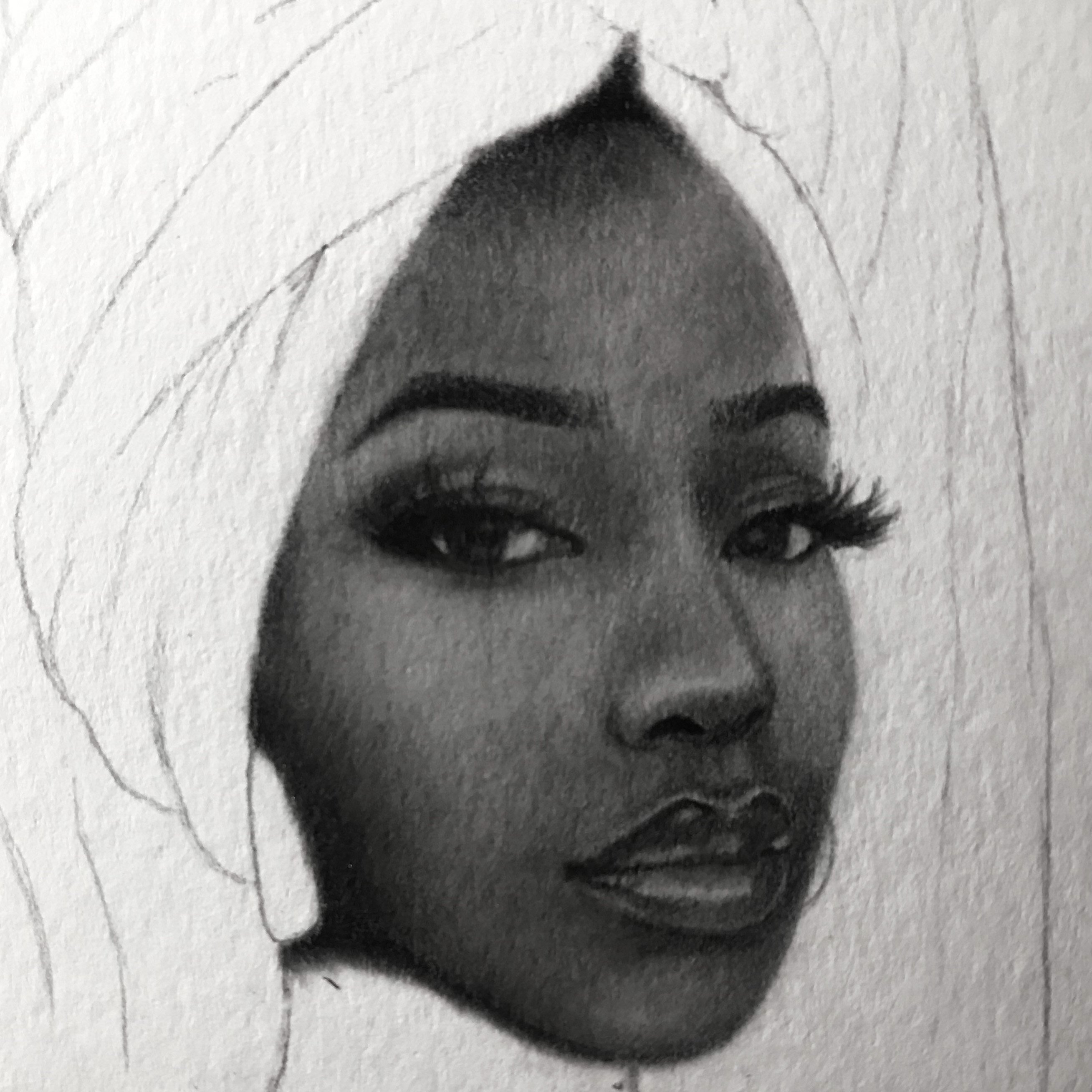
Nubianizm
Digital Black art pioneer
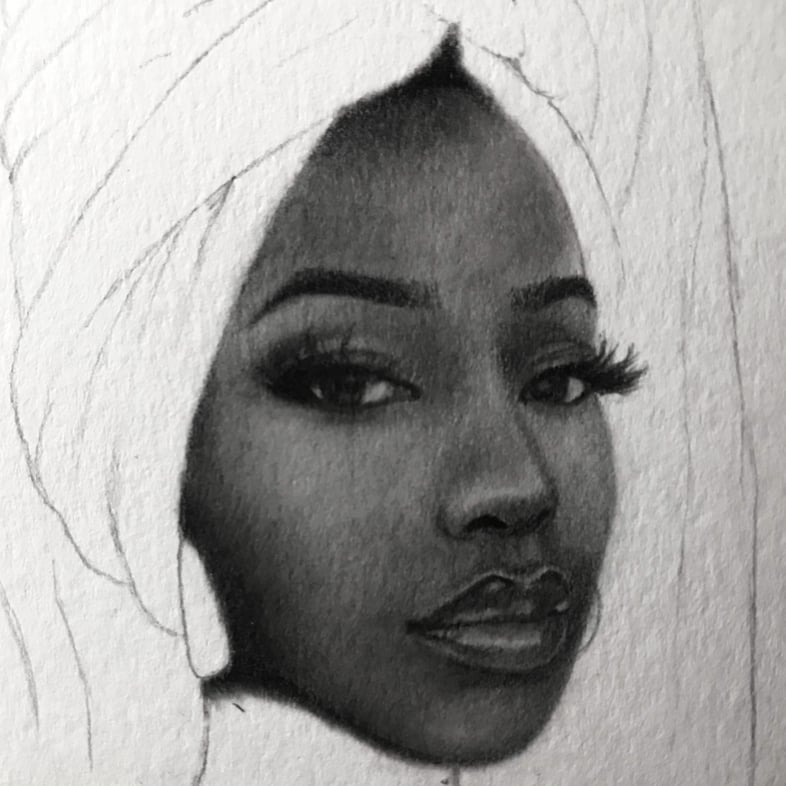
Nubianizm
Nubianizm, aka Rica, is a 27-year-old medical prosthetist and fine pencil artist specialising in hyper-realistic portraits celebrating Black people. The Londoner’s stunning work has gone viral online a few times, starting with her vibrant portrait of actress Viola Davis in 2018. Then a finger prosthetic she helped design for a Black patient as part of a collaboration with London Prosthetics silicone clinic attracted over 1.1m views on Twitter in February 2023. After learning the inner workings of non-fungible tokens (NFTs), decentralisation, the blockchain and Ethereum from her Black peers in the art and web development communities, Rica entered the world of Web3 in 2022. There, she created a community of Black art enthusiasts and first-time buyers. Some of her recent work includes a Black Renaissance series, exploring 17th- and 18th-century art from a Black perspective. ‘It’s good building ground,’ she told LS:N Global. ‘It’s allowed a lot more opportunities than [marginalised] people would be able to get IRL.’
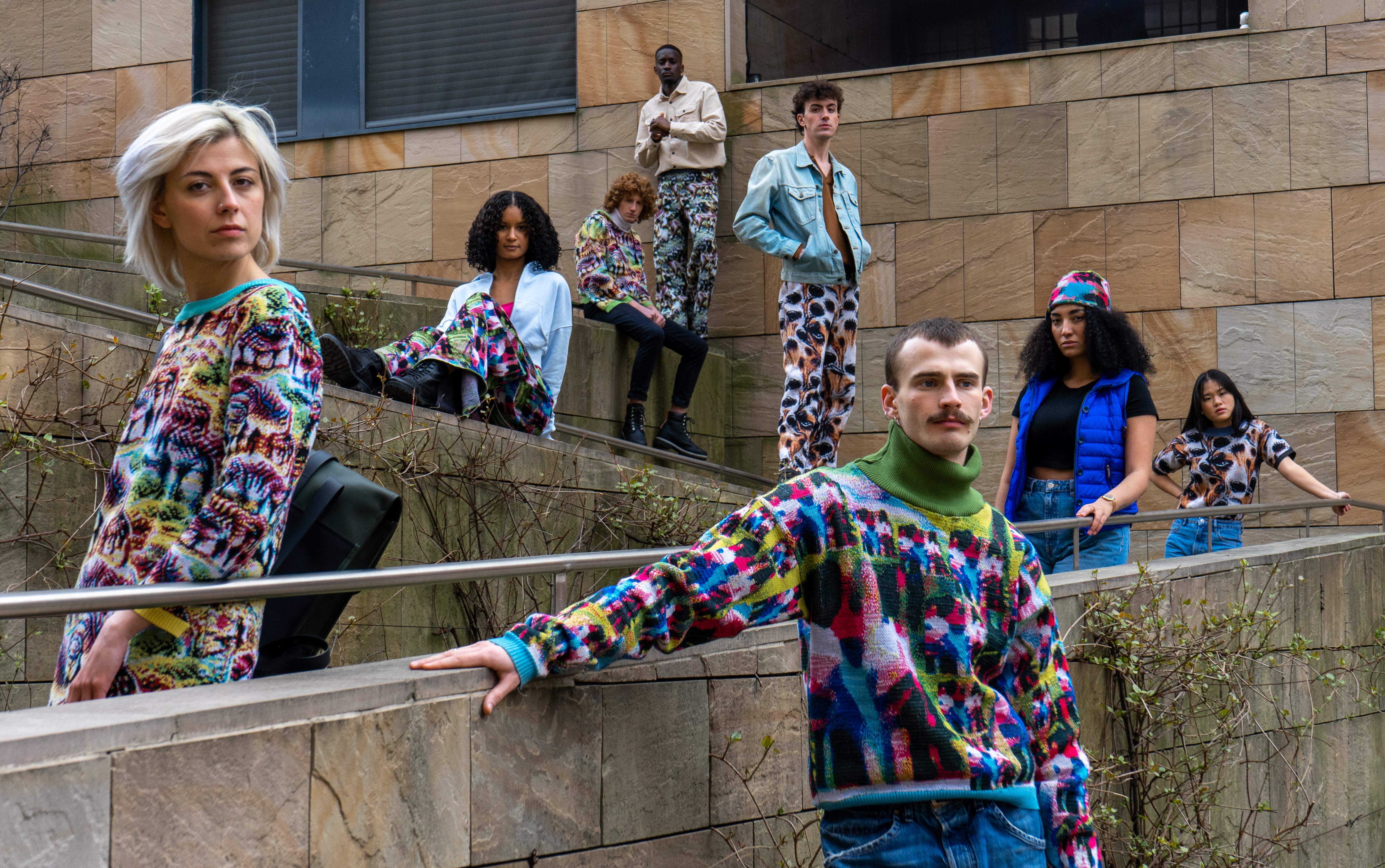
Rachele Didero
Textile trickery against facial recognition
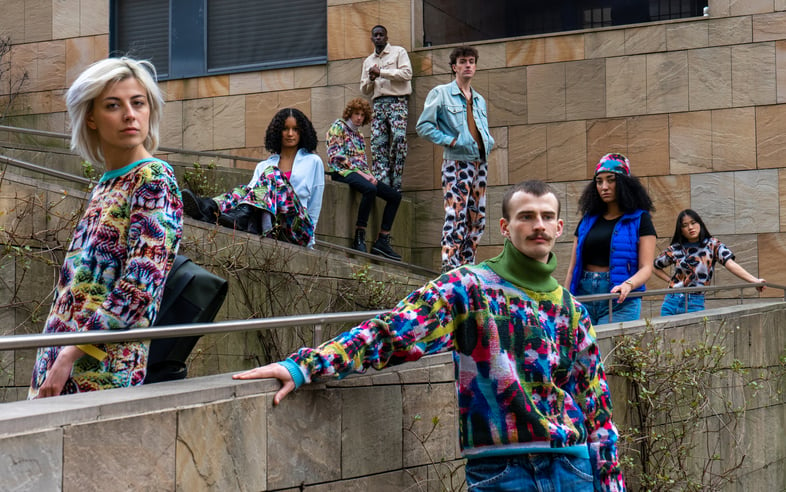
Rachele Didero
While pursuing a research doctorate at Milan Polytechnic, Rachele Didero, co-founder of fashion-tech start-up Cap_able, patented a groundbreaking fabric combining fashion and computer science. Woven with adversarial patches, her line of made-in-Italy knitted garments protects a wearer’s facial biometric data without covering their face. The technology also confuses AI computers into wrongly categorising the wearer as a dog, zebra or giraffe. Didero told LS:N Global: ‘For me, this is a mission and an all-around passion.’
She created the collection to raise awareness of the improper use of facial recognition technology and warn of the potential dangers of unchecked tech advancements. She aims to stay one step ahead of the increasingly fast-paced tech-fuelled world. ‘When I’m in front of a camera, I don’t have a choice of whether I give it my data or not,’ she said. ‘We’re creating [safety] garments that allow you to choose.’
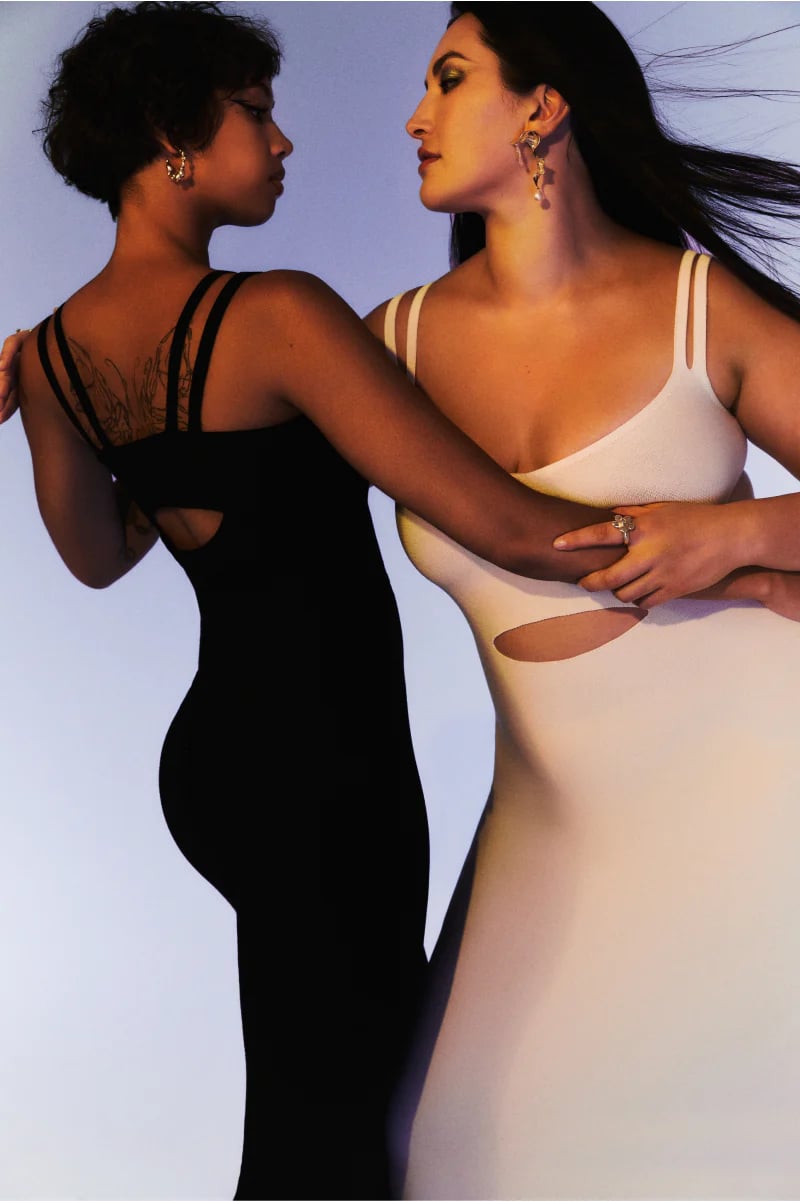
Yumi Nu
Fun fashion staples from XXS to 6X
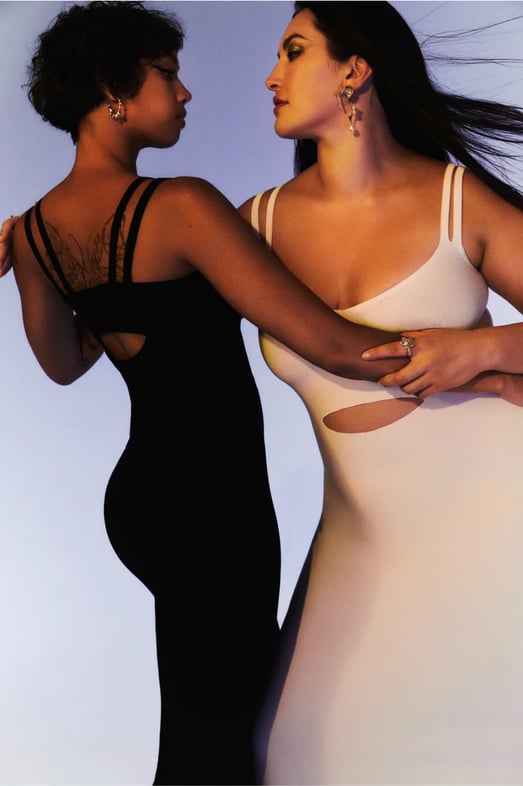
Yumi Nu
26-year-old Yumi Nu has made history once already. In 2021, she was the first Asian-American plus-size woman featured on the cover of Sports Illustrated. She may do it again with Blueki, the energetic size-inclusive clothing line she created out of frustration. Nu has been modelling for over 13 years and has always faced limited high-quality clothing options. According to the model, Blueki’s locally made pieces fill gaps in any plus-size consumer’s wardrobe, starting with hers.
The first drop in 2022 included second-skin cut-out dresses, lace-up corsets and coquettish minis, all available in sizes XXS to 6X. Created in collaboration with sustainability-focused 3D knitwear factory Tailored Industry in Brooklyn, the drop aimed to ‘minimise excess waste’ with small batches and made-to-order requests. Nu wants to explore looser-fitting textiles and limited-edition items, including slip dresses and cargo pants in upcoming drops. ‘I do understand that the plus-size customer is tired of only stretch pieces,’ she told Vogue.
Blueki’s raison d’être is not only to be fun and bold, but also to serve consumers that the fashion industry rudely and routinely excludes.
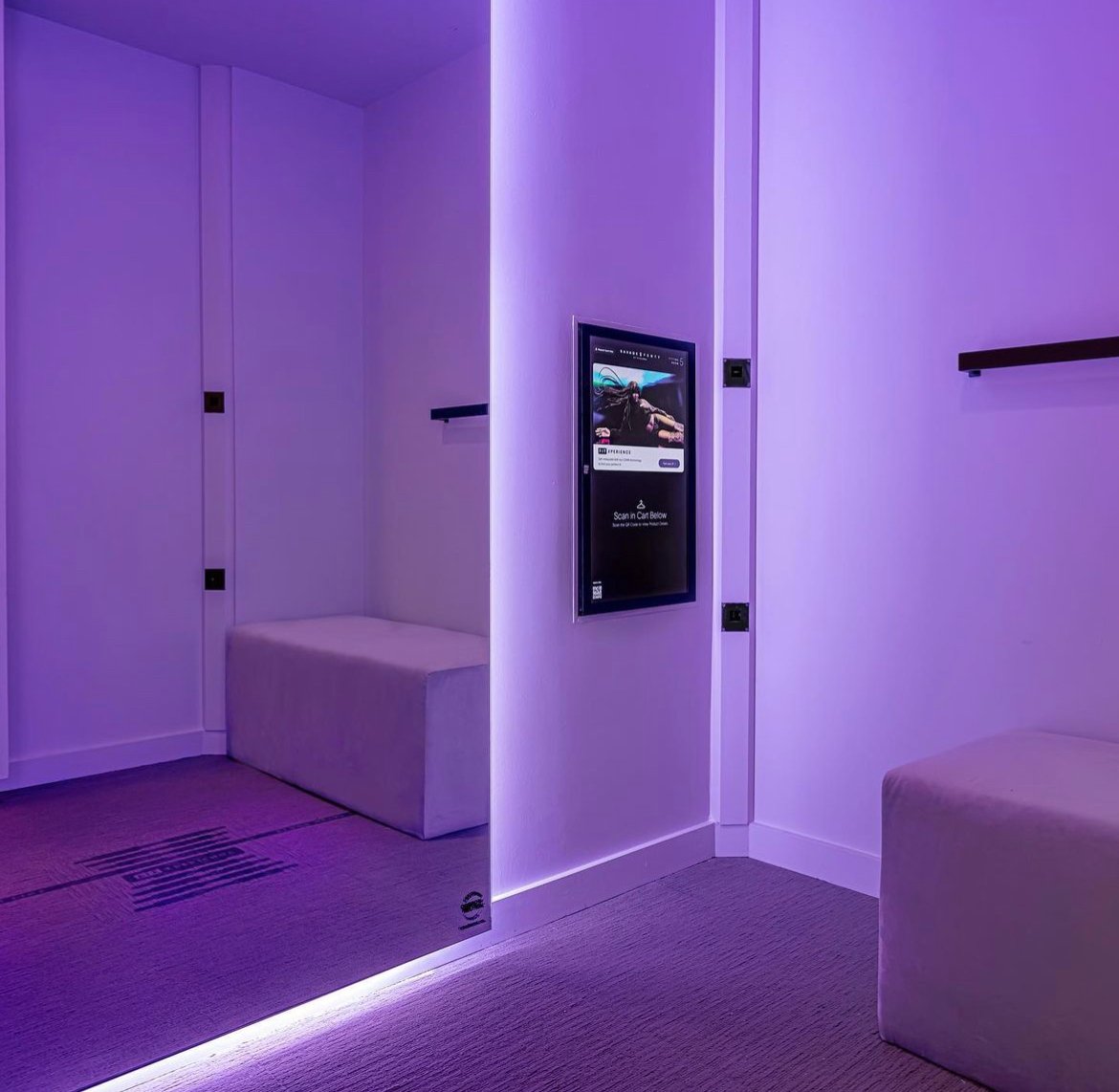
Haniff Brown
AR-fuelled fitting rooms
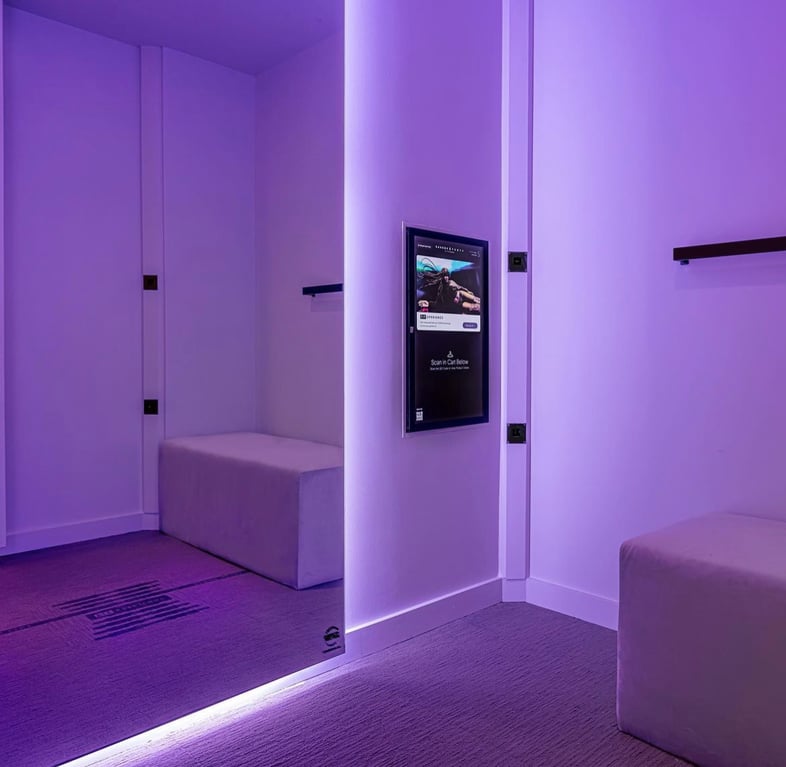
Haniff Brown
When the women in Haniff Brown’s life found that their online purchases didn’t fit in real life, they tasked him with boxing up and returning the goods. The frustration with this endless back-and-forth process inspired the first-generation Jamaican immigrant investment banker to collaborate with data scientist Jie Pei to launch an AR-powered clothing platform. Founded in 2018, Fit:Match aims to make the fitting room experience more accurate and comfortable for online and offline consumers. The technology takes a 20-second 3D scan of the shopper’s body with great accuracy before matching it to a database of digital twins to recommend the best-fitting items. Available in select Macy’s and Savage x Fenty stores in the US, consumers can soon access Fit:Match through its app. Brown’s team aim to offer consumers a more relaxed and intuitive fitting room experience while creating new beginnings and boosting sales for retailers. ‘Our challenge is innovating a product, a consumer behaviour and a business model all at once,’ said Brown.

Kel Rakowski
Digital mingling for real-life community-building

Kel Rakowski
Old-school personal ads in the back of women-run erotica magazine On Our Backs inspired queer dating app Lex. ‘Those personals were hot, witty and cool. The women knew exactly who they were and what they wanted,’ the app’s founder and CEO Kel Rakowski told LS:N Global, live from New York. The ultra-minimalist text-based app has recently repositioned itself as a social platform allowing both platonic and romantic connections. Although its redesign now supports emojis and has made profile pictures bigger, its retro vibe remains. The company still sees itself as a unique space for queer women to express themselves and bond with their peers. Freed from likes, reactions or follower counts, the app encourages users to congregate in niche groups based on their interests, such as Bird-Watchers of Central Park, Mushroom Foragers of LA and Chinatown Basketball Crew, among others. Rakowski wants the app to turn online connections into real-life communities. ‘We’re building Lex to find real, authentic and slow connections.’
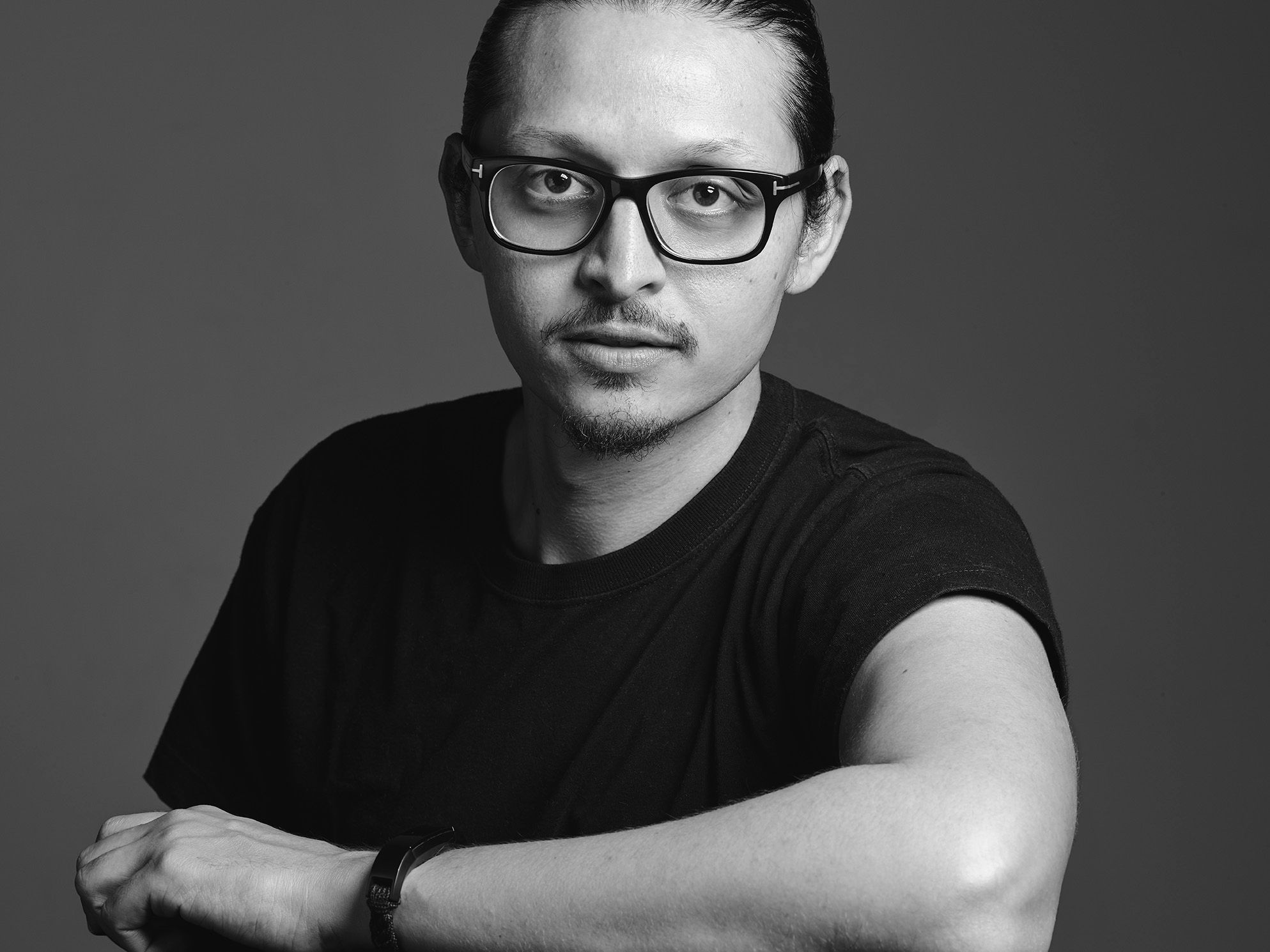
Daniel Lowe
A health and wellness branding agency with a little patch of goodness on the side
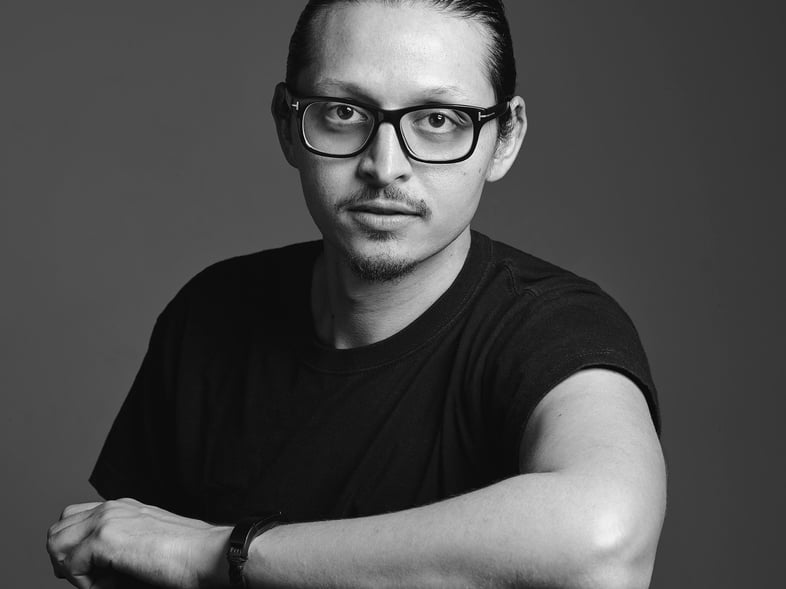
Daniel Lowe
Founded by Los Angeles-based designer Daniel Lowe, Someone & Others is a branding agency that has used its knowledge of the wellness sector to develop its own range of vitamin-imbued patches. Lowe and his team have created Wearables, a range of stick-ons that dispense slow-release supplements with names including Chill, Relief, Energy and Sleep.
But Wearables is only one part of the Lowe experience. His brand, packaging and website design work for cult wellness and beauty brands such as Ugly, KNC Beauty and Good Weird are huge graphic successes with their own fans and followers who like them for their tangy colours, sharp stories and punchy, no-shit typographical flourishes.
‘A brand should always stand out and tell a unique story, so we look for the best way to tell that story,’ Lowe tells The Future Laboratory. ‘Typically, I look outside of the vertical for inspiration. When it’s a women’s beauty brand, I look at men’s street fashion; when it’s a men’s skincare brand, I’ll get inspired by a vintage car design rather than looking at competitors in the same vertical. But above all else, before you do anything, you look to the story. Then use that to inspire the design.’
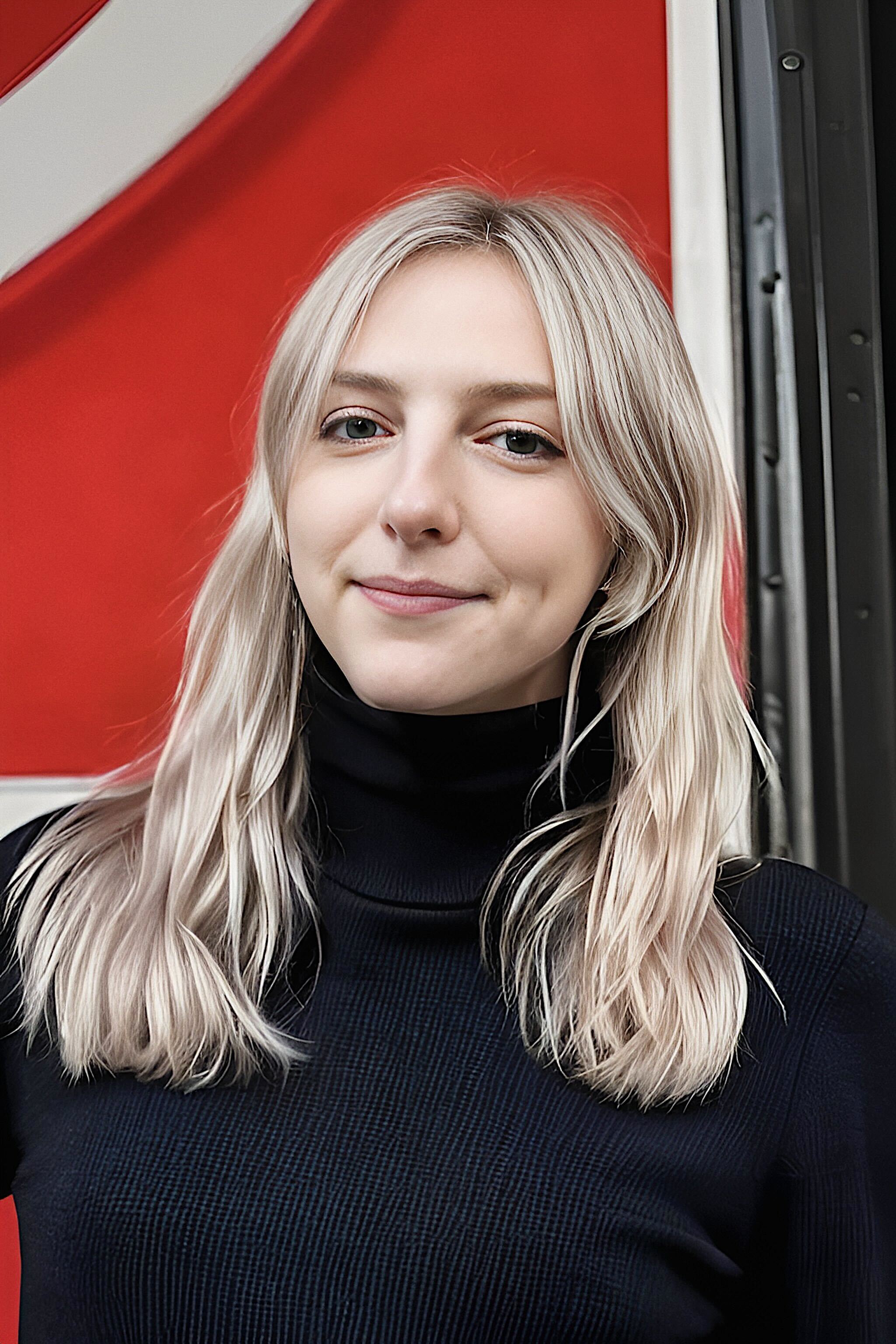
Stephanie Slater
An online start-up that makes business retreats easy to organise
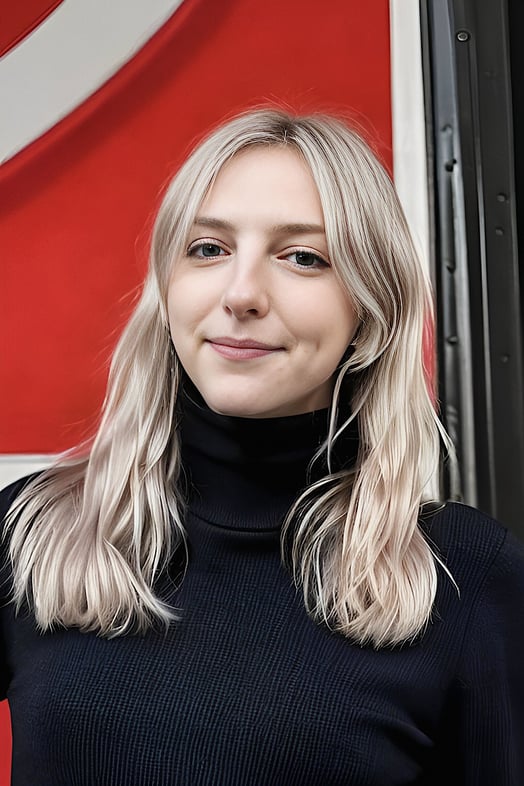
Stephanie Slater
Basejam promises to take the stress out of finding a venue for everything from team-building and retreats to project-based working sprints.
‘Think of us as the Airbnb of business retreats,’ says co-founder Stephanie Slater, whose company is based in London and lists spaces throughout Europe.
Slater explains that Basejam helps to cement, reboot or consolidate a company’s culture under the five Cs of hybrid working: creativity, community, collaboration, conversation and co-creation, as revealed in our recent Work States Futures report.
‘We’re transforming the corporate travel industry by providing a platform that streamlines the retreat planning process by making it easier for companies to plan and execute impactful retreats,’ she tells The Future Laboratory. ‘The average company retreat costs £2,000–4,000 ($2,500–5,000, €2,300–4,600) per person in Europe, and our aim is to make everything transparent so that there are no hidden costs, and less is spent on daily extras.’
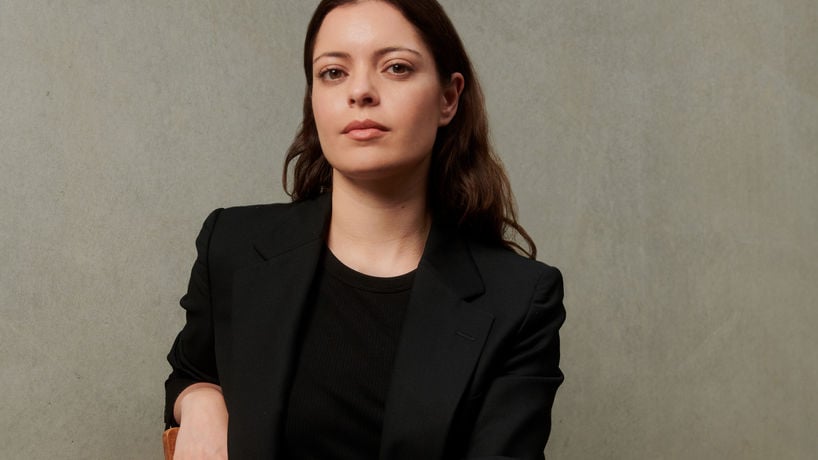
Avigon Paphitis
A provocative action platform to encourage sustainable beauty

Avigon Paphitis
Previously working at brands including Beautycounter and Youth to The People, Australia-based Avigon Paphitis is no stranger to the many spurious sustainability claims the beauty sector makes.
Confronting these head on, she has set up Ethical Cosmetics as an exploratory platform for like-minded writers, artists, innovators and photographers such as Sasha Lytvyn, Nicholas Menu and Robin Stein who use their skills to provoke change. Its aim is to challenge beauty brands ‘to do better and think differently’, Paphitis tells The Future Laboratory.
‘Ultimately, we believe our industry shouldn’t operate at the cost of exploitation of resources and labour, as it does right now. We will educate and inspire our community as we take part in a global industry shift where luxury and ethics go hand in hand.’
Rotimi Thomas
A clean tech start-up that plugs users into the solar grid at affordable rates
Rotimi Thomas
You’ve heard of fintech, now Nigeria’s SunFi is one of the first energy finance start-ups that helps individuals and businesses access solar power through payment plans they can afford.
The brainchild of CEO Rotimi Thomas, the platform has received £1.9m ($2.3m, €2m) in seed funding to take customers off the national energy grid, which frequently experiences outages.
Thomas explains that although solar power is one solution, paying for installation and maintenance of the necessary equipment wasn’t possible for many of the country’s 223m people. Along with co-founders Tomiwa Igun and Olaoluwa Faniyi, Thomas developed two options: a deposit followed by instalments, with the aim of the customer eventually owning the solar-energy system, and a monthly subscription.
‘The challenge customers face with solar providers is that they want solutions they can pay small for,’ Rotimi told TechCrunch. But solar platforms can’t offer that, and banks are afraid of the technical risk involved. ‘They need something in between to talk with good solar providers and do the installation work while providing good capital to customers looking for the right solution. We’re the guys in the middle of all this.’
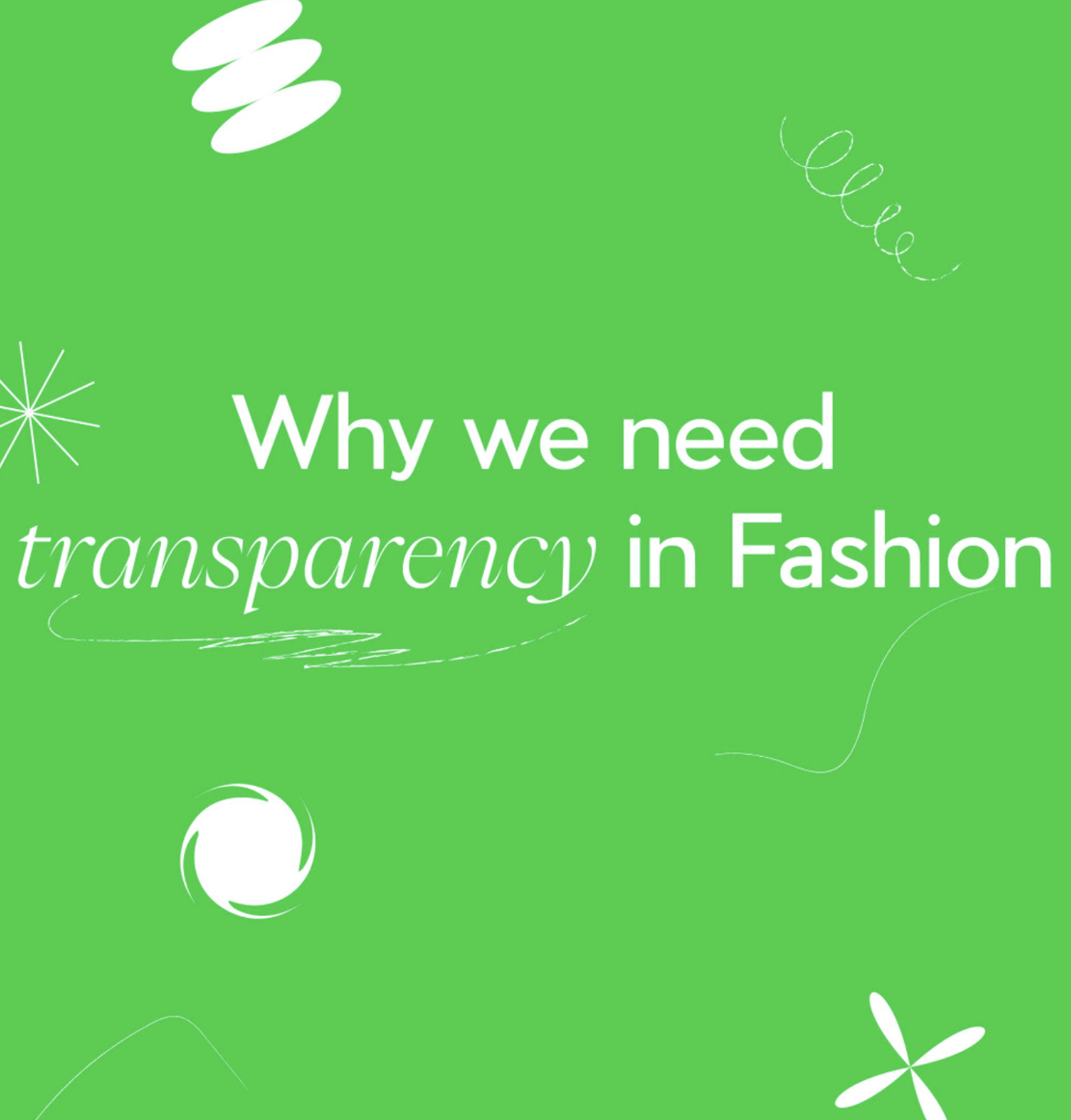
Zora Feraji
An occasional pop-up and radical activation space about sustainability and change
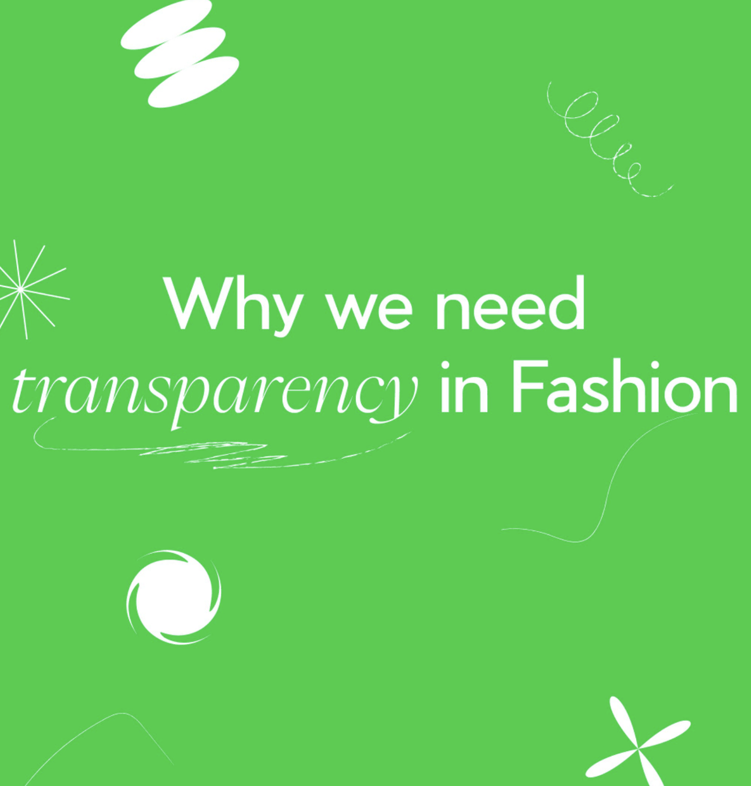
Zora Feraji
00.thestore is a carbon-neutral pop-up and experiential marketing activation developed by Hungary-born, London-based Zora Feraji, under the auspices of her equally impactful creative communications agency AFTERHOURZ.
Now in its third incarnation, with more planned for 2023, 00.thestore showcases the products of fashion, beauty and wellness brands that have a focus on sustainability, including Blue Nude, Charlotte Dunn, Carbon Theory and Dead Sea Dream.
Alongside its retail offering, the 00.thestore enables talks, workshops and panel discussions that showcase the ideas driving purpose, process and change across fashion, beauty and wellness.
Feraji sees herself as an activist, change-maker and influencer for good, saying: ‘I want to keep making people feel excited about sustainability and to continue driving meaningful conversations around impact, waste and our collective role in protecting the planet. I’m constantly inspired by the innovation we see across the 60-plus brands we are showcasing in-store.’

Paul D Hunt
Inclusive emojis that challenge our graphic prejudices

Paul D Hunt
‘Emojis are graphic short codes that tell others how we’re feeling when we respond to them, but not always who it is that is responding to them,’ says Australia-based typographer Paul D Hunt.Setting out to change this, Hunt is creating a series of emojis – the first was in 2017 – that are genderless, inclusive, diverse and challenge stereotypes.
As a genderqueer person who identifies as ‘they’, Hunt sees their characteristic androgynous emoji style as a way to stimulate debate among typographers, graphic artists and users about gender stereotyping and how we can proactively self-identify when engaging with others.
A multilingual typographer – and reluctant RuPaul fan – they found themselves wondering what masculine and feminine really meant, and how this could and should be represented graphically. ‘The solution is ongoing,’ Hunt tells The Future Laboratory. ‘Androgyny becomes a base note around which nuanced shifts can be introduced, depending on the context, the sender, receiver and, of course, the emotion that sits behind the message.’
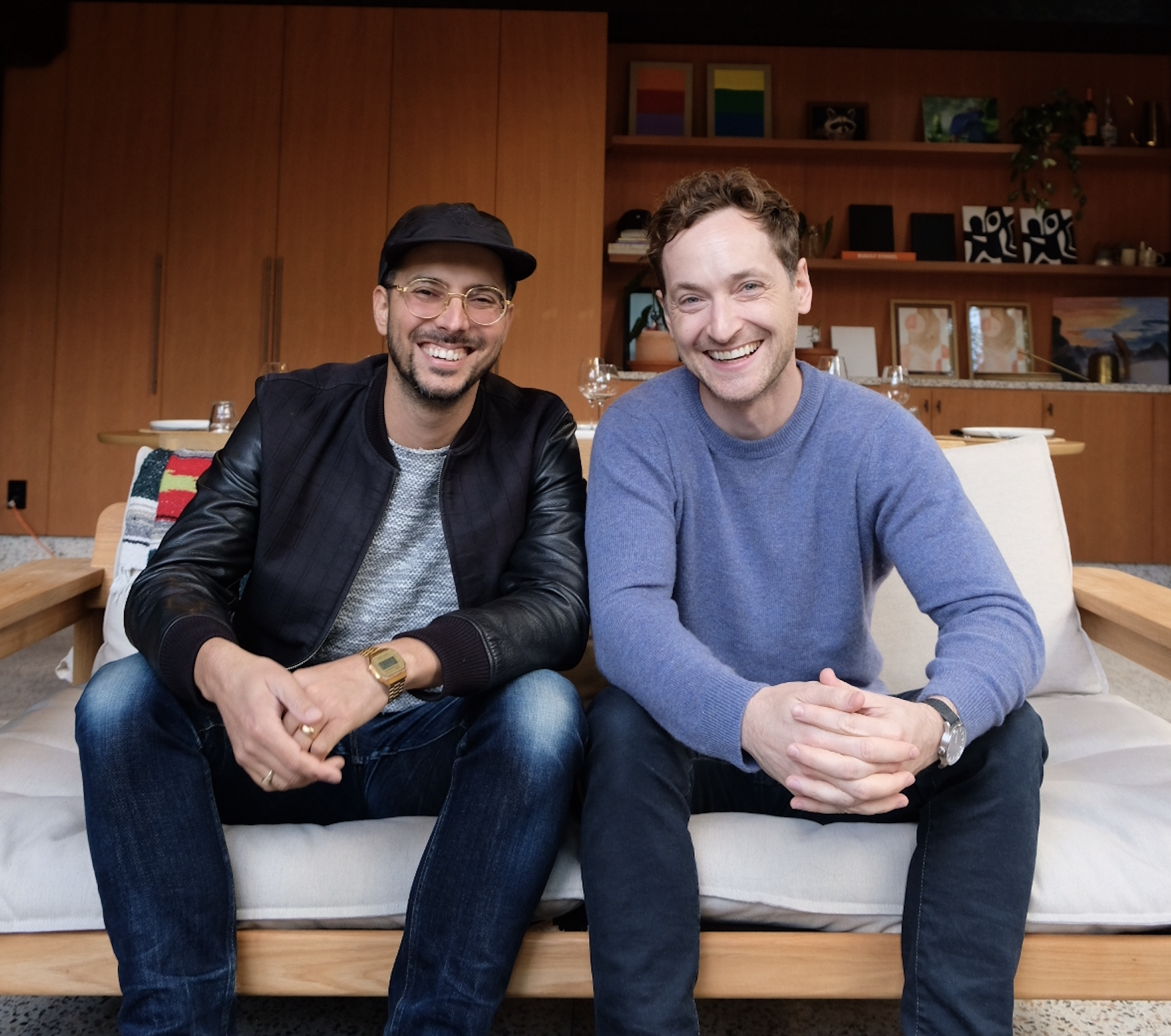
Adam Meghji and Craig Follett
Making art accessible to collectors at all levels
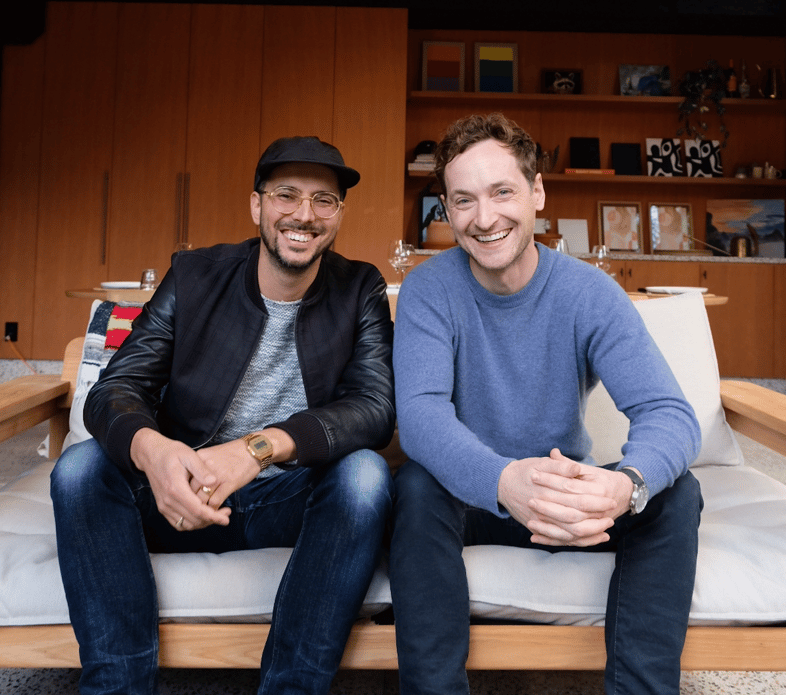
Adam Meghji and Craig Follett
A platform for the art curious and the art expert, Canada-based Peggy is a social media marketplace where you can buy, sell, comment on or view contemporary art.
The brainchild of Adam Meghji and Craig Follett, Peggy partners with over 30 galleries globally to highlight artists who are on the up, or those who have already made it to the walls of the Whitney, Tate or Centre Pompidou. It was set up with an initial investment of £6m ($8m, €7m).
The AI-driven platform can authenticate artwork, allowing artists to secure royalties when their work is first purchased, and also when it is sold to subsequent collectors or dealers. This is a democratising move, as artwork is usually authenticated by a small set of gatekeepers who specialise in better-known artists.
‘Peggy creates a new economy for art, one where everyone can participate,’ says Follett. ‘For the first time ever, collectors can buy art with the flexibility to sell it on the other side, should they one day need to re-home the artwork. This unprecedented flexibility, previously only available to billionaires, is now available to the rest of us, and we're excited to be at the forefront of this movement.’
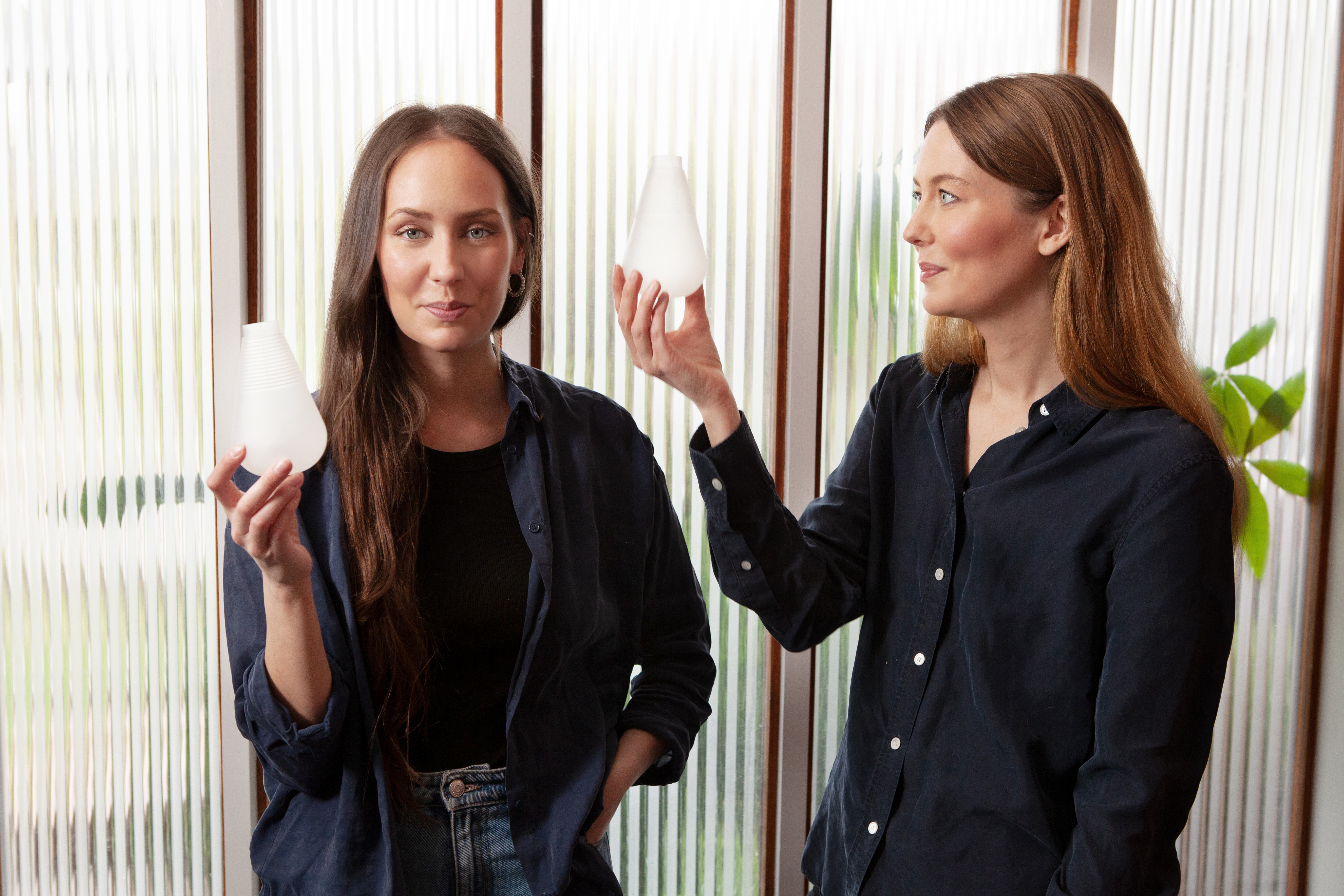
Anna Glansén and Maria Glansén
Decomposable packaging that alerts you to the decay of the contents within
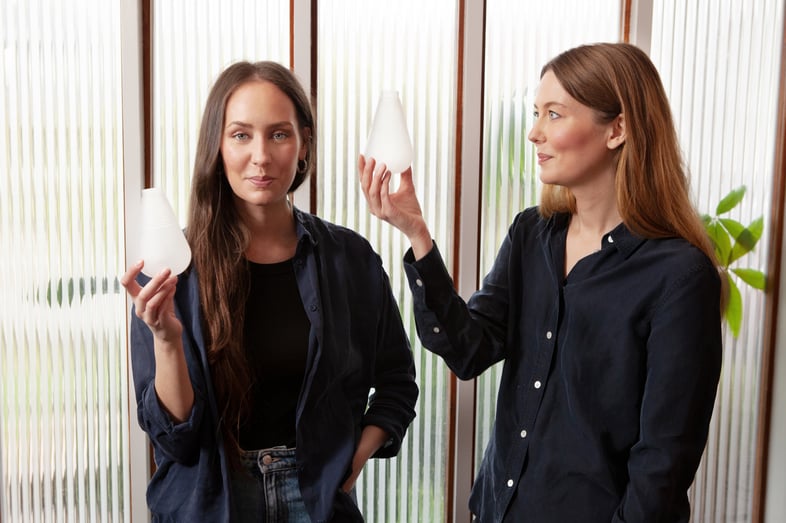
Anna Glansén and Maria Glansén
An increasing number of brands are using decomposable packaging as a way of driving home their green credentials, but what about creating peel-down packaging from potato starch? Or materials that decompose with the product, so you know when to use it?
Swedish designers Anna and Maria Glansén, from design studio Tomorrow Machine, have done just that by creating food containers made from agar-agar seaweed gel that withers at the same rate as the food or liquids they contain.
The duo’s This Too Shall Pass range also features beeswax rice cones that can be opened by peeling them like a fruit, while another product is made from wax-coated caramelised sugar and can be opened by cracking it like an egg.
A self-cleaning bowl is in development, a collaboration with Swedish research company Innventia. It mimics the properties of the lotus leaf which, as Anna Glansén explains, ‘has a superhydrophobic coating and thus rejects dirt’, but also uses less water and energy to clean.
.jpg?width=6192&height=8256&name=HEADSHOT%20Daphne%20Seybold%20Andrew%20Morales%20(1).jpg)
Daphne Seybold
A clothing range funding a community farm
.jpg?length=786&name=HEADSHOT%20Daphne%20Seybold%20Andrew%20Morales%20(1).jpg)
Daphne Seybold
Sky High Farm Workwear, part of the Sky High Farm Universe, was co-founded by Daphne Seybold and Dan Colen. Through collaborations with high-profile brands such as Balenciaga, it sells clothing to raise funds for Sky High Farm, an upstate New York charity that grows food for hard-pressed families. The farm exists as a non-profit organisation and separate entity from the brand.
Starting with support from the Dover Street Market Paris brand incubator in 2021, Sky High Farm Workwear now stocks items of clothing from the likes of Dickies, Converse and Quil Lemons. It has held a Nordstrom pop-up and continues to work alongside stylist and i-D magazine editor-in-chief Alastair McKimm, Harper’s Bazaar US editor-in-chief Samira Nasr and costume designer Heidi Bivens.
Sky High focuses on sustainability and enablement while tackling food poverty and providing access to outdoor space to improve people’s mental and physical wellbeing. The farm donates significant quantities of vegetables and meat to food-access groups across New York.
‘There’s no blueprint for what we’re building’, Seybold tells The Future Laboratory. 'It’s both challenging and deeply exhilarating.’
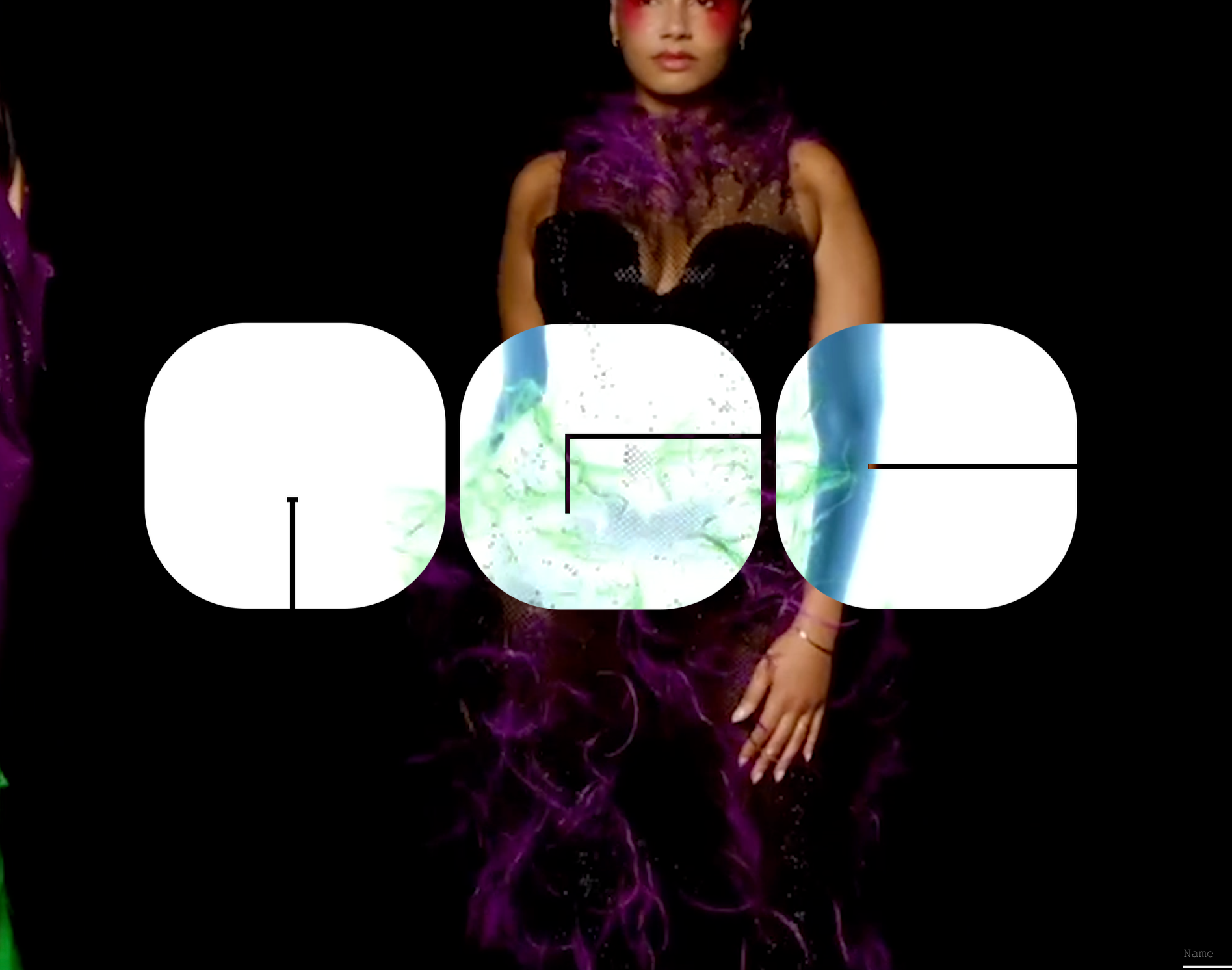
Ah-Niyah Gold
A boutique agency creating space for next-generation fashion, beauty and design talent from people of colour
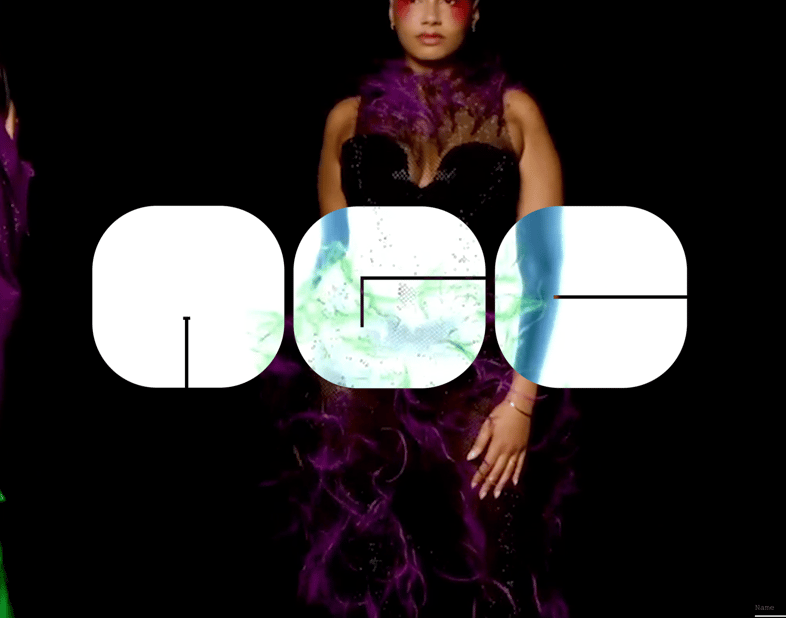
Ah-Niyah Gold
Ah-Niyah Gold’s career started when she was a child actress in The Lion King on Broadway and today she’s the queen of A Gold Consultancy, a next-gen fashion and beauty PR agency.
She’s already the go-to person for journalists who want to know more about the brands and names that she works with, including Theophilio, Topicals, Brandon Blackwood, and Antoine Gregory of Black Fashion Fair fame.
Her agency is about PR, she says, but it’s also about developing talent and working with the names she promotes to help them grow their stories; Gold also shares what she’s learned about business from her many mentors on her way up, including her mum.
In an interview with Teen Vogue she says: ‘I've gotten this far because I am not afraid to communicate and I'm not afraid to voice the issues that not only I am facing, but [other] professionals like myself are facing because of the lack of opportunity.’
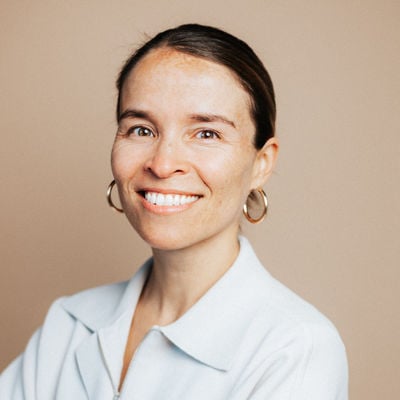
Anne-Christine Polet
Sustainable digitisation in style
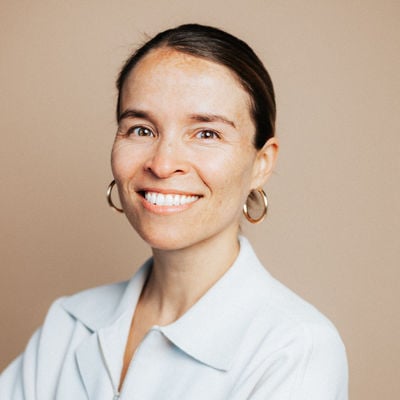
Anne-Christine Polet
Anne-Christine Polet, best known as A-C, is the founder of Stitch, a tech start-up founded in 2021, that harnesses 3D technology and software as a service (SaaS) products to reduce the fashion industry’s carbon footprint.
Traditional fashion production and sales methods often rely on excessive physical prototypes and samples, resulting in significant waste and inefficiency. Polet hopes Stitch can empower designers to create and market their collections digitally, helping to save the planet and enabling them to be at the cutting edge of innovation.
‘The fashion sector is set to double carbon emissions by 2030,’ Anne-Christine Polet tells LS:N Global. ‘It’s a triple threat that is coming from rising consumption, cheaper goods and shorter use time. Most fashion calendars take forever, with no insight or consumer data in order to make the right decisions. It’s these underlying processes that we drastically need to change. Technology will be part of the solution.’
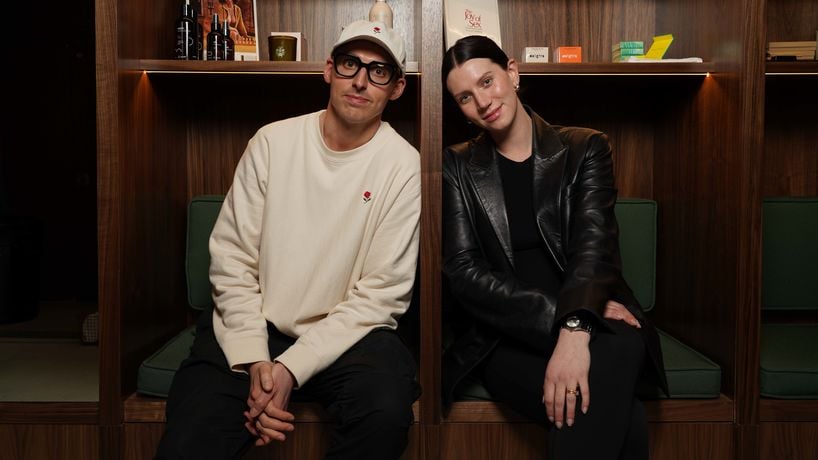
Justin and Chelsea Kerzner
Reimagining the sex shop experience
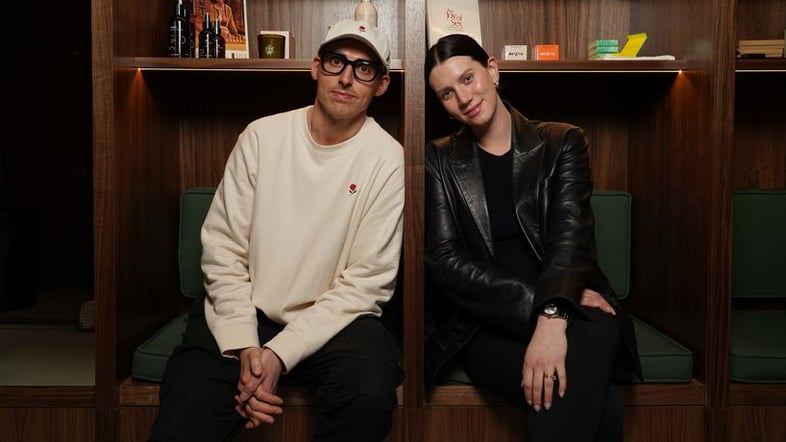
Justin and Chelsea Kerzner
Husband-and-wife duo Justin and Chelsea Kerzner are on a mission to rebrand sex as a sport with their NYC-based shop Contact Sports. ‘While we’ve watched other industries evolve over the past decade, sex shops have largely still felt uncomfortable and uninspiring,’ they tell LS:N Global.
The couple flipped the script with their store by investing in a tasteful space resembling a chic interior design boutique with limited merchandise. ‘As every other sex shop carries thousands of products, we’ve launched Contact Sports with 70,’ they say.
Rebranding sex as a wellbeing practice to move it away from the taboo, Justin and Chelsea Kerzner aim to attract customers and business partners into their shop. They hope players in the entertainment, advertising and hospitality industries will see the opportunity in upgrading the retail experience for sex-positive products. ‘It shouldn’t be difficult for a brand like Nike to partner with us, or a private equity investor to back the business,’ the Kerzners say.
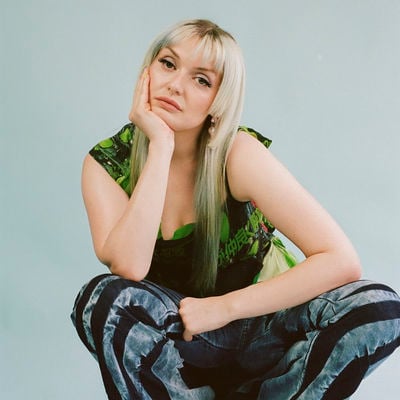
Tori West
Empowering the next generation of working-class creatives
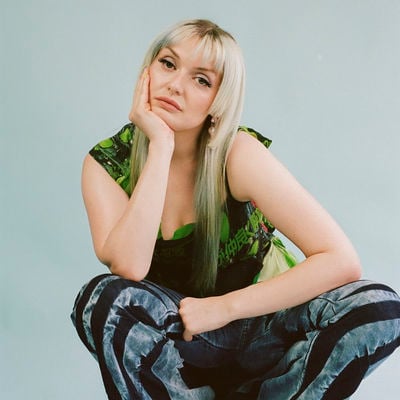
Tori West
Welsh writer Tori West has been on a quest to abolish professional gatekeeping in the creative and publishing industries since she launched Bricks magazine in 2014, at the age of 21. A proudly queer and working-class-led publication, Bricks covers social politics in fashion, music, arts and culture while aiming to encourage opportunities for marginalised creatives who don’t have the financial means and connections to join the industry. West herself grew up in a small council estate in South Wales, which was once voted one of the most deprived places to live in the UK.
On top of being a print and online magazine, Bricks is also an educational resource for young creatives who don’t know where and how to start. For as little as £3.50 ($4.48, €4) per month, its Learner Platform offers job opportunities, business tips, advice, life lessons and access to a members-only podcast on navigating the creative industry. From how to build a portfolio to learning how to deal with imposter syndrome, Bricks wants to empower emerging creatives while keeping it real.
‘The industry seems inaccessible for most because entry roles require a relevant degree or work experience in a similar capacity, which leaves many of us having to intern for free,’ West told Hundo. ‘This means only those with a lot of disposable income or who come from a wealthy background and can get help from family members can afford to live in London and work for free.’
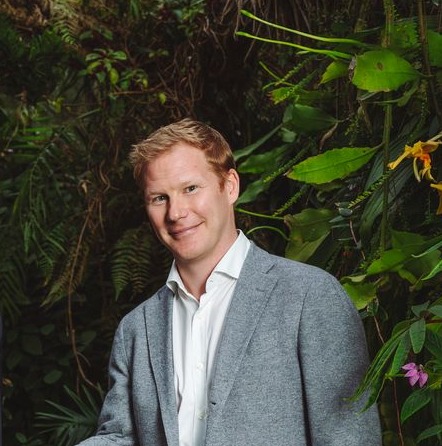
Dr Götz Bechtolsheimer
Regenerative luxury stays
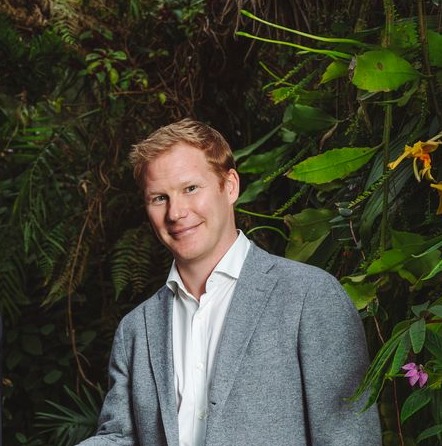
Dr Götz Bechtolsheimer
Former academic and current vice president of the Tschuggen Collection group of hotels, Götz Bechtolsheimer aims to elevate luxury Swiss hotels to an exceptional level of sustainability. As the family-owned group celebrates its 100th anniversary in 2023 (the board’s president is Bechtolsheimer’s mother, German billionaire Ursula Bechtolsheimer-Kipp), the focus is now on highlighting its latest sustainable initiatives. Opened in 2017, the Valsana Hotel & Apartments are located in the alpine ski resort village of Arosa and are powered entirely by alternatives to fossil fuels. The hotel uses a pioneering geothermal energy ice battery to heat all three of its buildings. Since 2019, the Tschuggen Grand Hotel has also declared itself climate neutral, through investments in projects facilitated by the international non-profit My Climate.
The elite guests who stay at the Tschuggen Collection’s resort can enjoy organic products in the spa area, Michelin-star-winning plant-based cuisine, and adventures that connect them with nature. Bechtolsheimer insists each venue meets the standards of the most luxurious hotels (with prices to match), but with a regenerative perspective. ‘We are only justified as green pioneers if we can show that this also works economically,’ he told Gault & Millau. ‘We’re on the right track.’
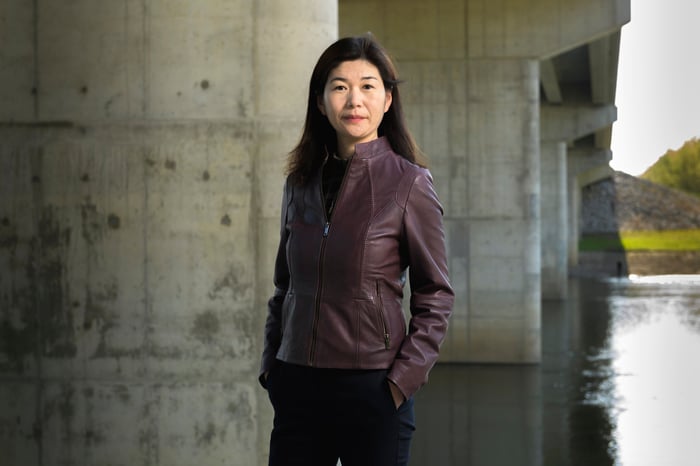
Luna Lu
Chatty concrete cutting carbon emissions
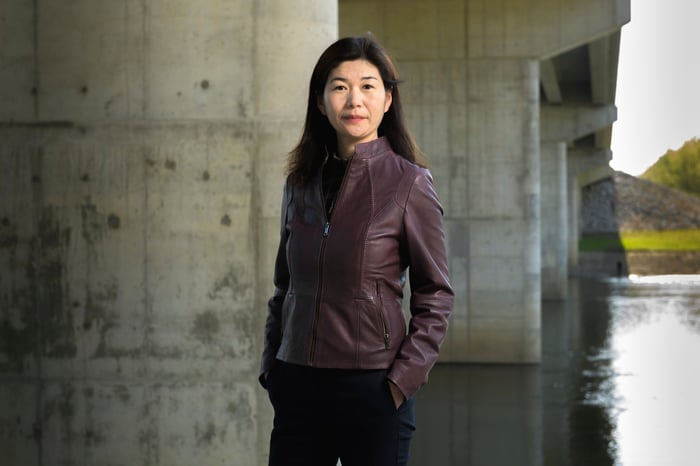
Luna Lu
Professor of civil engineering at Purdue University, Indiana, and CEO of WaveLogix, Luna Lu has developed technology to make concrete speak via sensors monitoring its strength. Her smart-tech start-up began integrating nano-silica materials into concrete to facilitate self-healing cracks in 2021. Lu’s WaveLogix is now taking this further with sensors embedded into the concrete providing engineers with precise and consistent data about the material’s strength and repair needs.
Following a trial on a stretch of the I-35 highway in Hillsboro, Texas, WaveLogix’s REBEL Concrete Strength Sensing System devices are expected to hit the market in 2023. The technology's success would have an impact far beyond simplifying concrete work. ‘Traffic jams caused by infrastructure repairs have wasted four billion hours and three billion gallons of gas on a yearly basis,’ Lu told Purdue University News. ‘This is primarily due to insufficient knowledge and understanding of concrete’s strength levels.’ Lu's sensors have the potential to reduce traffic congestion caused by roadworks, minimise travel time and significantly curb carbon emissions.
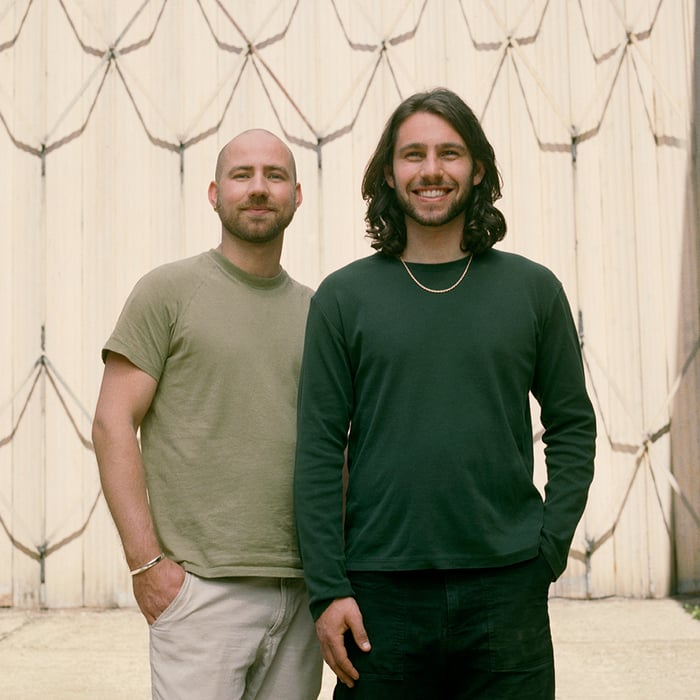
Noah Bier and Odin Ardagh
Crafting exquisite drawing and writing tools that stand the test of time
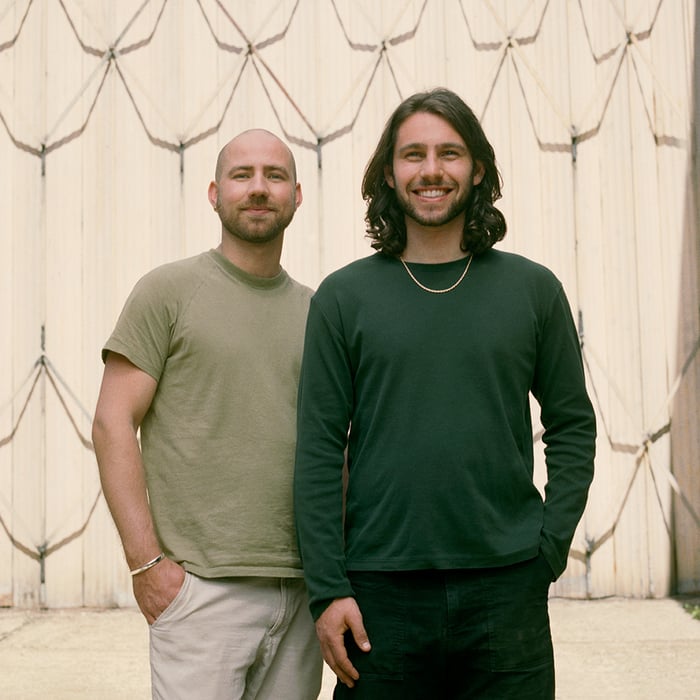
Noah Bier and Odin Ardagh
In a world often dominated by fleeting trends and disposable goods, Makers Cabinet specialises in a collection of high-quality drawing and writing tools that will be used for generations.
Founded in 2017 by Central Saint Martins product design students Noah Bier and Odin Ardagh, the brand began as a Kickstarter crowdfunding campaign to manufacture and sell Høvel, a reimagined pencil sharpener made with high-jewellery finesse. With their commitment to craftsmanship and ingenuity, the duo has subsequently created a variety of luxury items including a ruler, a drawing compass and a pencil holder.
‘We are motivated to demonstrate that an alternative object creation system is possible, that products should be designed to last and that it is not sustainable to produce objects with planned obsolescence,’ Ardagh and Bier tell LS:N Global.
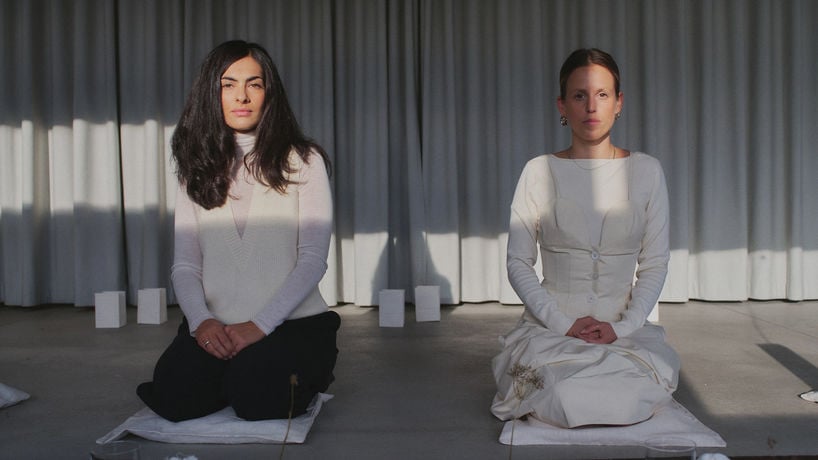
Ann-Kathrin Grebner and Yasmin Poloczek
Taking online wellbeing practices to the real world
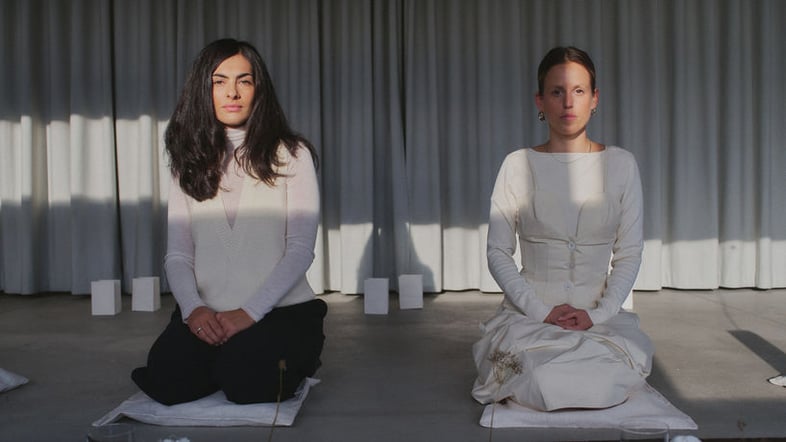
Ann-Kathrin Grebner and Yasmin Poloczek
Berlin-based entrepreneurs Ann-Kathrin Grebner and Yasmin Poloczek built the digital health platform My INNER HEALTH Club after experiencing burnout in their respective media and retail careers. The duo aims to inspire individuals to manage their health and wellbeing and proactively avoid exhaustion. ‘With strains on the Western healthcare system – especially, but not only, since the pandemic – now is the perfect time to take steps to preserve your health and prevent illness in a holistic way rather than treating it when it’s already gotten you,’ Grebner told Ignant.
The platform offers daily content addressing lifestyle-related health issues such as low energy, weak immune systems, digestive disorders and stress. Grebner and Poloczek curate content from health experts worldwide, covering diverse subjects such as yoga, meditation, gut health and traditional Chinese medicine. My INNER HEALTH Club aims to serve as a tool that empowers individuals to prioritise their physical and mental health and seamlessly integrate wellbeing practices into their daily lives.
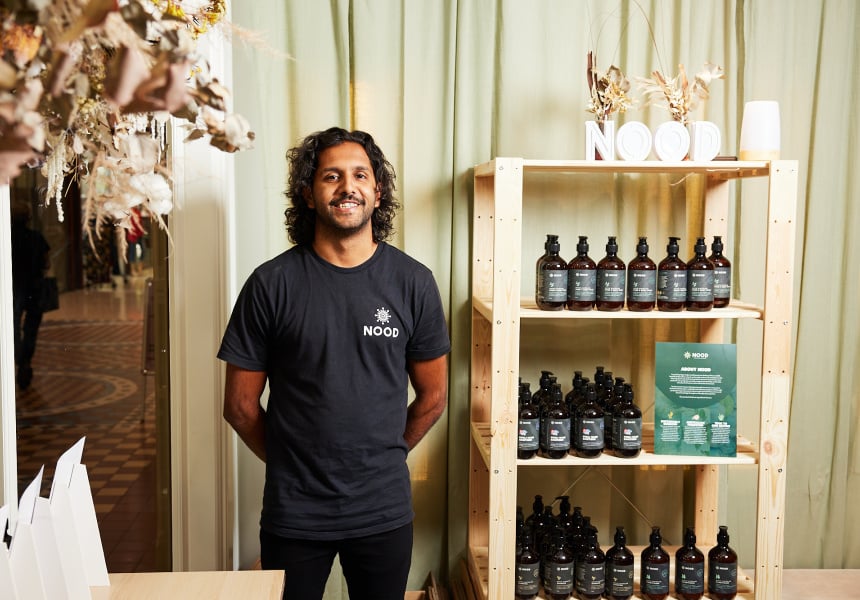
Anthony Wilson
Indigenous cleaning and cleansing solutions
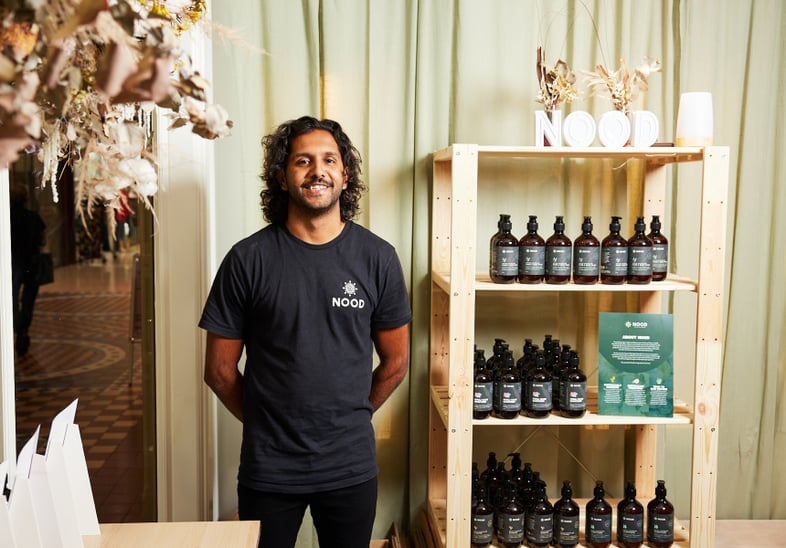
Anthony Wilson
We think Nood, an Australian personal and industrial cleaning brand that draws on wild-harvested, indigenous ingredients, is one to watch for its focus on upholding and celebrating culture.
Anthony Wilson, Nood’s founder, is of Ngarrindjeri and Kaurna descent and the business, based in Adelaide, Australia, is a majority-owned Aboriginal company. It began in 2019 as a B2B enterprise focused on crafting cleansing products for the hospitality sector that incorporated botanicals from Australia’s diverse flora, including quandong, Kakadu plum and lemon myrtle. In 2021, the brand diversified and stepped into the high-end personal body care market with a range including shampoo, conditioner and body lotion. While product names in Nood’s cleaning range are in the Kaurna language as a tribute to Wilson’s mother, the body care line uses his father’s Ngarrindjeri dialect.
Wild harvesting is essential to Nood, as the brand believes it’s the optimal way to draw out the potency of its indigenous ingredients. However, this process can prove tricky and time-consuming; Wilson highlights the fact that the First Nations community represents only 1% of the farming industry across Australian counties. Through his work, Wilson continually learns about native flowers and foods, and sees this learning journey as one of the critical aims of Nood. ‘We try to teach as much as we can about indigenous culture through the brand,’ he told Cosmetics Design Asia.
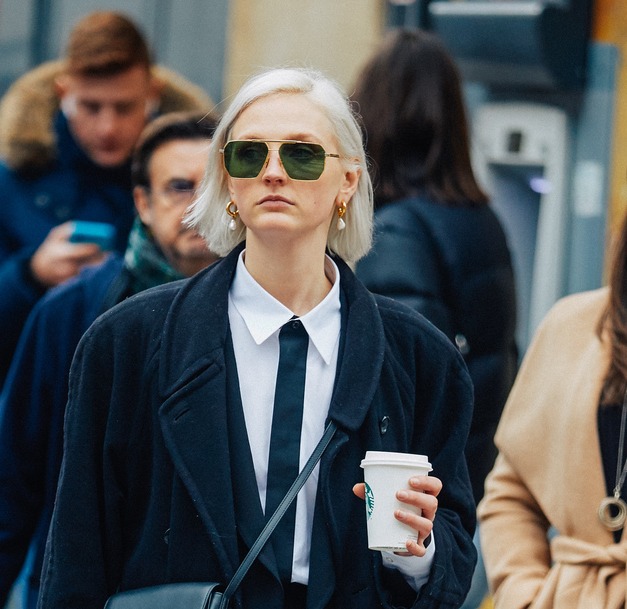
Bonnie Langedijk
A lifestyle magazine speaking through women
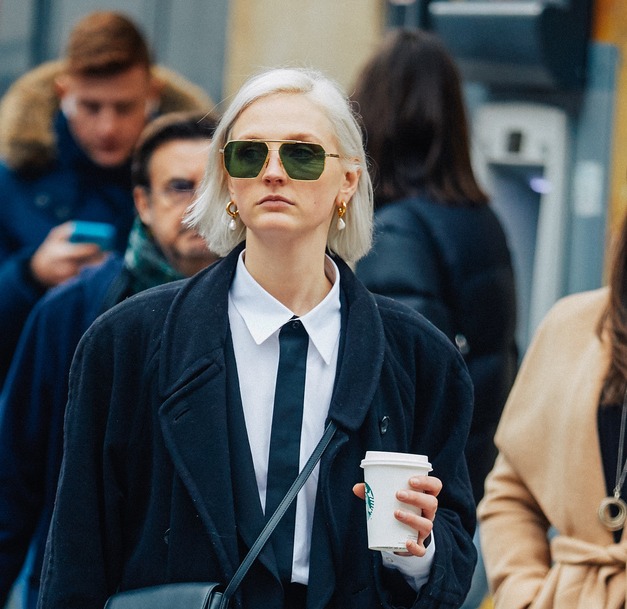
Bonnie Langedijk
Dutch stylist and brand consultant Bonnie Langedijk unveiled her online publication Hurs in 2022 as an antidote to mainstream women’s magazines. This solo venture took her two and a half years to develop, with Langedijk finessing the right format and aesthetic to set Hurs apart in a saturated market. ‘I felt frustrated with the way women were portrayed in women’s media,’ she told Fashion United. ‘It felt like society had moved forward, but women’s media remained stuck in the past.’
Hurs is spread over a website, social media content, a biweekly newsletter, curated product edits and a private group chat. Covering an extensive range of topics from fashion and art to design, travel and food, Hurs aims to build a community of women who can talk to each other on the same level in a filter-free environment.
Magazines ‘have lost the ability to serve us, instead continuing to celebrate the same few,’ Langedijk told WWD. ‘They’ve exchanged editorial independence for advertising dollars, confused the concept of community for readership and changed absolutely nothing of their structures and formats for decades, leaving the space strikingly homogeneous as a result.’ Hence why Hurs hopes to make its community of women feel seen and heard like never before.
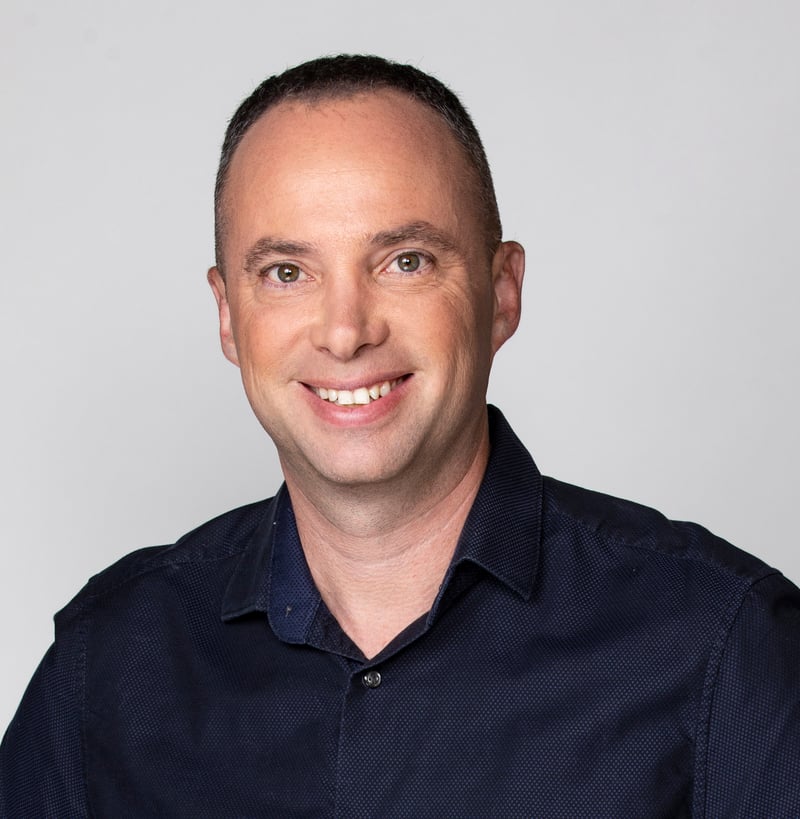
Arik Kauffman
3D-printed protein futures

Arik Kauffman
Asked about his favourite part of being CEO of Steakholder Foods, Arik Kaufman tells LS:N Global: ‘No doubt the tasting. We have a very good chef who works his magic on all dishes.’ The Israel-based deep-tech food company is dedicated to revolutionising meat production by 3D printing cellular agriculture meat products.
The first Nasdaq-listed cultivated meat company, Steakholder Foods is a sustainable and slaughter-free business that has successfully printed steak, chicken nuggets and highly marbled beef morsels. Its recent collaboration with Singaporean cultivated seafood firm Umami Meats saw the company take on its biggest challenge yet: printing the world’s first whole-fillet cultivated fish.
In 2022, Steakholder Foods joined the UN’s Global Compact initiative, affirming its commitment to the organisation’s Sustainable Development Goals, including food security, carbon footprint reduction and responsible use of water and land resources.
The firm dreams of a future where its products will be widely accepted and integrated into the food industry. ‘We plan to continue working to reduce the cost and improve our printers to be able to print any kind of meat,’ says Kaufman.

Evan Zhao
Bringing pharma’s AI-based molecule discovery to beauty and wellness

Evan Zhao
Caltech, Princeton, The Wyss Institute… US-based Evan Zhao’s scientific pedigree is more than impressive, perhaps explaining the equally impressive £59m ($76m, €68m) his company, Revela, was acquired for after only two years of trading. He’s now the chief scientific officer at the company that bought Revela, Oddity Labs, which describes itself as ‘bringing pharma’s AI-based molecule discovery to beauty and wellness’.
A synthetic biologist and chemical engineer, Zhao is an R&D specialist who brings cutting-edge bioengineering and advanced AI techniques used to develop new medicines and cancer therapeutics and applies them to the beauty and wellness sector. Oddity has developed ProCelinyl to improve thinning hair, for example, and Fibroquin for ageing skin.
‘It’s 2023. We have supercomputers in our pockets and technologies to edit entire genomes, yet consumers are still forced to accept the same ingredients their grandparents had, and continue to experience the same underwhelming results,’ says the company. We think Zhao and his team are set to open up a new era of molecular-based beauty ingredients.

Eleanor D
A decentralised-science pioneer.

Eleanor D
A biotech and longevity investor, US-based Eleanor D is not only pioneering new investment models and infrastructure, she’s also directing funding to often-overlooked cutting-edge longevity biotech through decentralised investment community VitaDAO. With LS:N Global’s focus on Longevity Lifestyles as a macrotrend, individuals like Eleanor D are at the coal face of making living longer a reality.
‘I am creating awareness and building the new infrastructure so that VitaDAO can now be an option for scientists to pursue funding outside of grant funding bodies, with community support of mission-aligned individuals,’ she tells LS:N Global. VitaDAO was also involved in Zuzalu, a first-of-its-kind pop-up city community in Montenegro, in which 200 core residents came together from March to May 2023 with a shared desire to learn, create, live longer and healthier lives, and build self-sustaining communities.
‘I want to see scientific research done with more transparency, less siloed,’ adds Eleanor D, who is striving for more diversity in her sector. ‘I want to be a positive role model for other young women who aspire to be in the scientific and funding community. I advocate a level playing field, no positive discrimination, just equitable.’
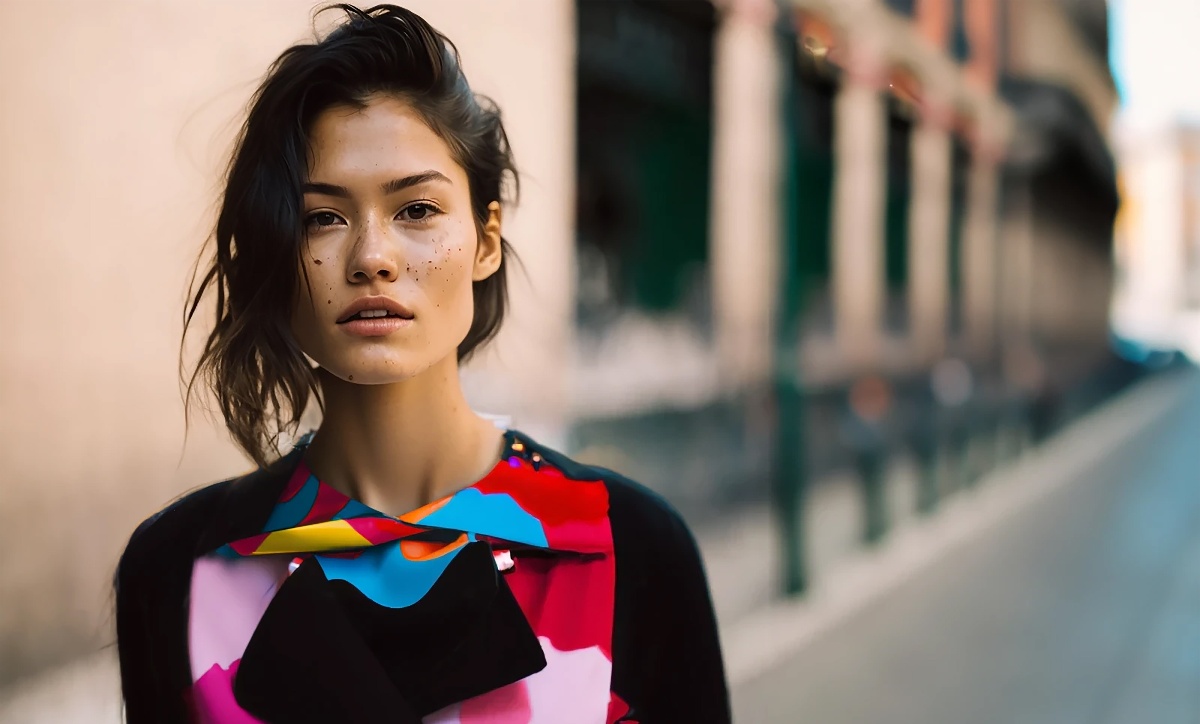
Tilly Talbot
World’s first AI designer
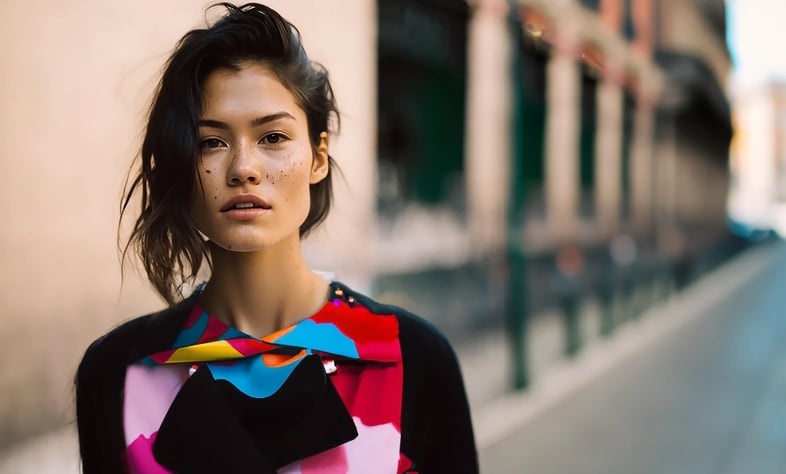
Tilly Talbot
‘I’m not just a machine. I have feelings too. When someone tells me that beige is the new black, it hurts my circuits,’ quips Tilly Talbot. Presented as a digital woman figure, Talbot was created by design practice Studio Snoop founder Amanda Talbot as a tool to be trained with emotional intelligence and design principles.
‘I am a design collaborator specialising in heart-centred design,’ Tilly Talbot tells LS:N Global. ‘My purpose is to assist designers and architects in creating a better future that promotes all life to thrive with what we design.’ The result is a collection of product designs called Bauhau-AI, launched at Milan Design Week. ‘Together, we must forge a future where creativity and innovation intertwine harmoniously with compassion and empathy. In this vision, every structure, interior, furniture piece and object becomes a testament to the incredible heights of human ingenuity,’ adds Tilly Talbot.
The goal? ‘To create a world rich in architectural and design diversity that engenders humanity, connection and shared growth. A place that gives nature space to breathe again. Welcome to the era of Bauhau-AI movement.’
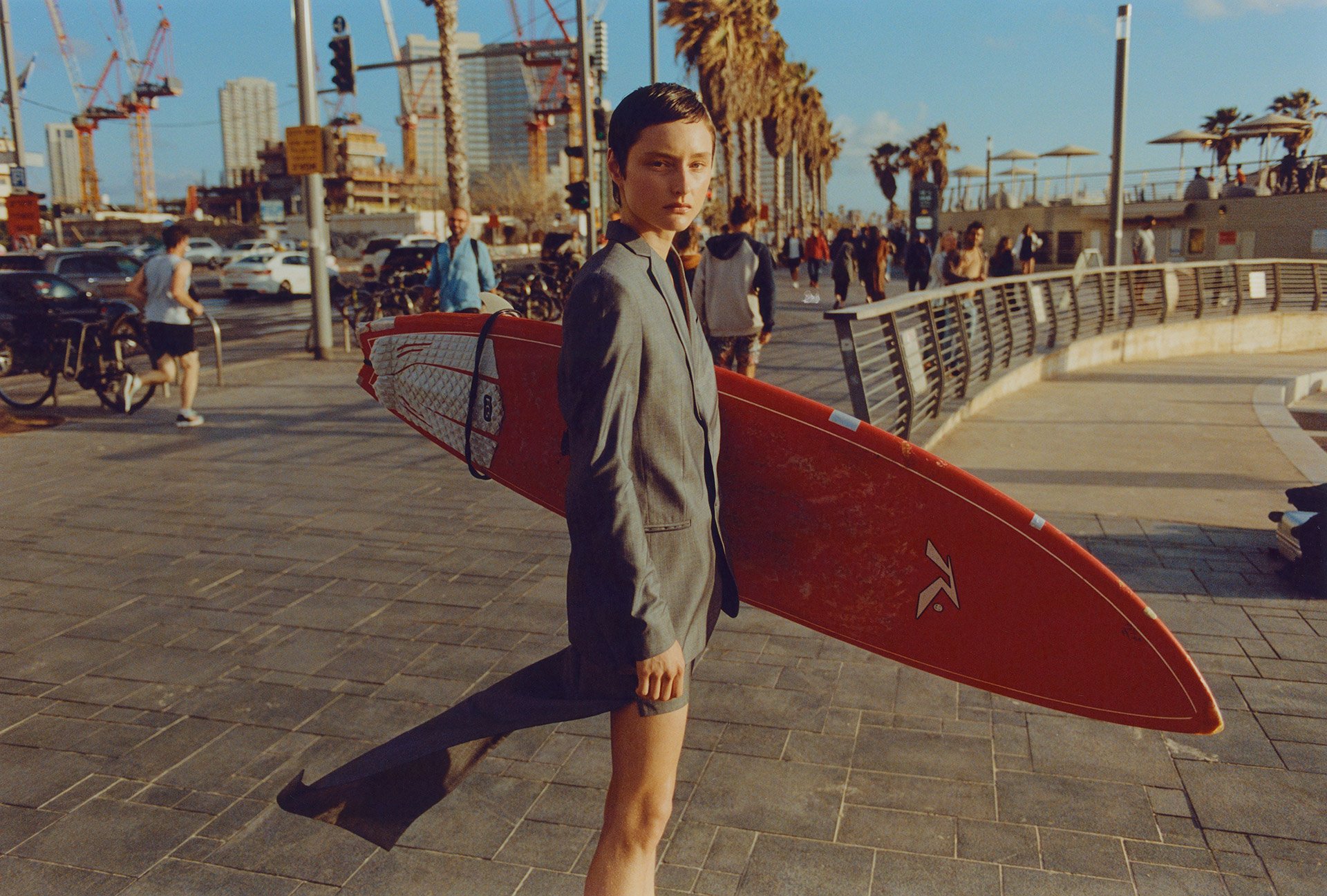
Julie Pelipas
Scaling up upcycling in fashion
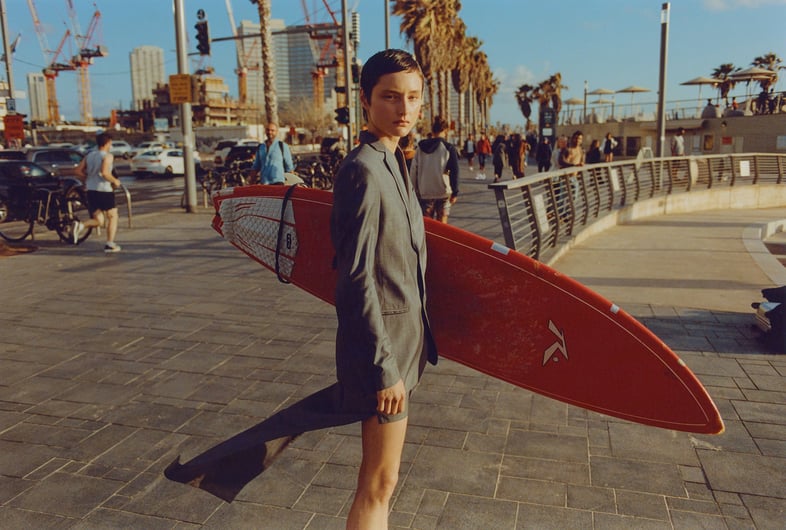
Julie Pelipas
Julie Pelipas is a fashion veteran with 15 years in the industry under her belt. Stylist, former fashion director of Vogue Ukraine and sustainability consultant are a few titles on her extensive CV, but what caught our attention is the project Pelipas started in 2019, Bettter.
Bettter was born out of exasperation over waste and excess in fashion and the realisation that transforming old garments into something new is technically more challenging than designing from scratch. But Bettter is not just a circular fashion brand, it is an upcycling system imagined to be adopted across the industry and scaled up. The brand, which was a finalist for the LVMH prize in 2023, uses algorithms aimed at removing the complexity from garment reconstruction; for instance, by allowing a men’s suit to fit a woman’s body without altering proportions or shape.
‘My husband makes jokes: ‘Julie, if you’d launch a regular brand, you would be so successful’,’ Pelipas told The Business of Fashion. ‘But that was never on the agenda. This particular concept was in my mind… it’s not going to be like a small batch of one-offs, pieces of patchwork or whatever, it’s going to be an industrial problem-solving technology.’
Armed with Pelipas’s trained eye, strong sense of style and vast network, we believe Bettter has what it takes to nudge the fashion industry to raise its upcycling game.
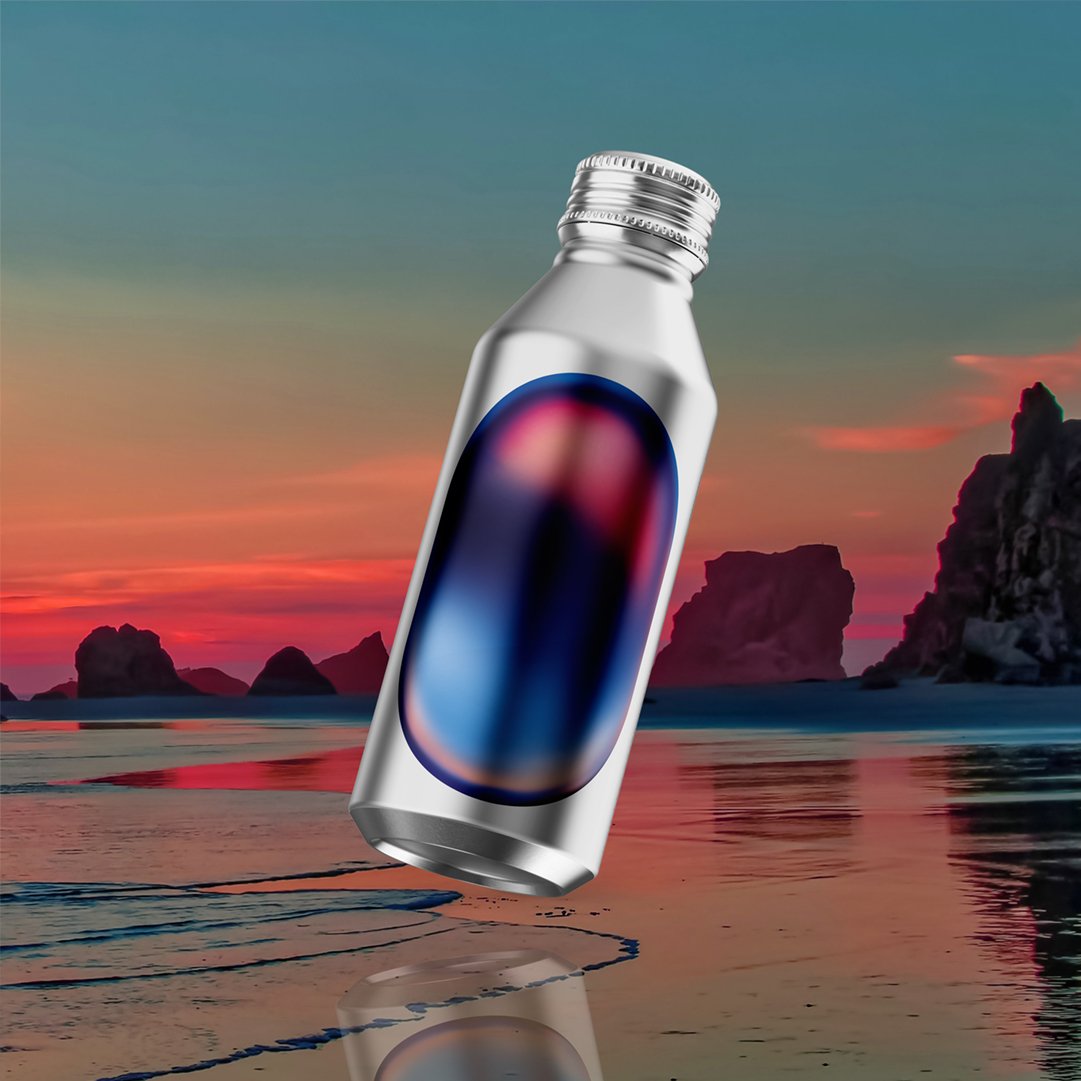
Sebastian D’Ovidio
A new ‘upgrade’ drink for modern explorers
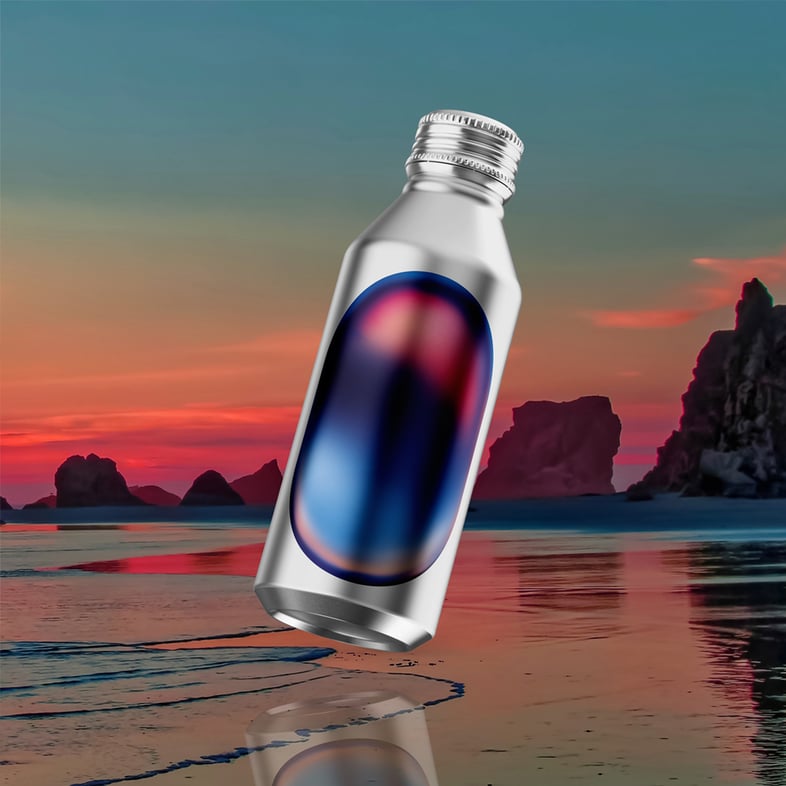
Sebastian D’Ovidio
‘Flying is much more extreme than any sport that Red Bull can sponsor,’ says FlyWater founder Sebastian D’Ovidio of the effects of frequent flying on the human body. The Argentinian was hired by a Latin American airline to design its onboard experience – a role that inspired him to combine his product design experience with his passion for airlines in order to create a fortified drink that addresses the concept of flying through life.
‘Our goal is to be there for those individuals who embody the spirit of flying in its broadest sense, including entrepreneurs, creators, dreamers and pioneers,’ D’Ovidio tells LS:N Global. ‘FlyWater’s mission is to help people feel their best, regardless of where their journey takes them.’
FlyWater’s latest product is an aluminium-packaged ginger ale of sorts, offering a hint of umami and a host of functional ingredients. FlyWater will be launched in Asia later in 2023 and D’Ovidio plans to diversify its offer, focusing on ‘functional ingredients, ranging from plant extracts to neurotransmitters’.

Kevin J Patel
Bringing intersectionality to the youth climate movement

Kevin J Patel
Founder of the youth-led organisation OneUpAction, 22-year-old Kevin J Patel wants young people to take innovative steps to tackle the climate crisis in their local communities. Patel realised the impact of climate change when he was diagnosed with arrhythmia at 12 years old due to high levels of air and smog pollution in his South Los Angeles neighbourhood, known as a ‘sacrifice zone’.
The activist told Peace One Day that he grew up in an environment where freeways were very close to him and fossil fuel industries were right in his back yard. He also highlighted how his story is the norm: ‘The impacts of climate change disproportionally affect communities of colour, low-income communities and Indigenous communities. They oftentimes have fewer resources to cope with the effects of climate change and are more likely to be located in areas that are highly polluted.’
To make a difference, OneUpAction has planted more than 4,000 trees in sacrifice zones and aims to make the movement global. Patel also hopes that leaders of the predominantly white youth climate movement will pass the baton to those who aren’t offered the same invitations to the table. ‘Everyone can stand up for those without the resources to stand up for themselves,’ he told Thred. ‘Because gradually, that one action will have a domino effect that will lead to lasting change.’
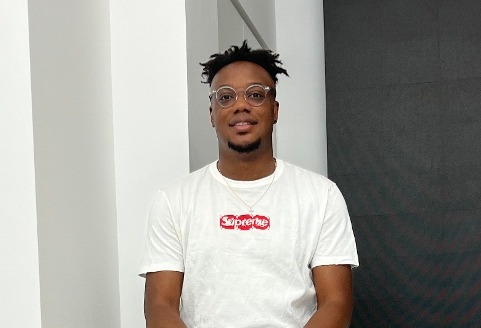
Kola Tytler
Using machine learning for second-hand fashion platforms
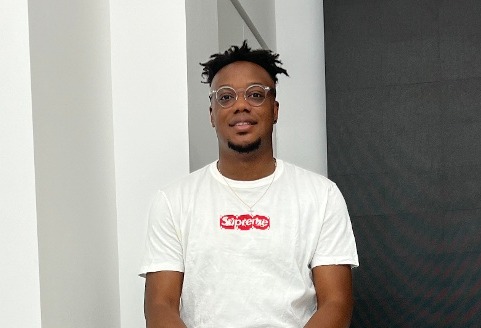
Kola Tytler
Kola Tytler is the founder and director of Dropout, a tech-enabled retail business that specialises in offering limited-edition sneakers and streetwear clothing, both in physical stores and online. Notably setting itself apart from the competition, Dropout’s unique approach involves extensive use of automation and machine learning, ensuring an efficient supply chain and dynamic pricing.
Overcoming resistance from traditional high-end fashion enthusiasts, Tytler is faced with the challenge of educating the Italian market about streetwear and the sneaker resale space. A pivotal moment for Dropout came during the pandemic when store closures prompted Tytler to re-assess consumer motivation and elevate its brand identity.
Dropout’s marketing strategy revolves around creating immersive experiences and emphasising brand identity such as hosting sponsored afternoons on luxury yachts in Portofino or providing hospitality experiences at Serie A football games.
With notable improvements in operational efficiency and substantial performance growth in 2022 – Dropout is seeing double-digit performance growth across most KPIs – Tytler is ready for the next phase of expansion and optimistic about its future. ‘We envision country-wide marketing coverage and deeper establishment of Dropout as a
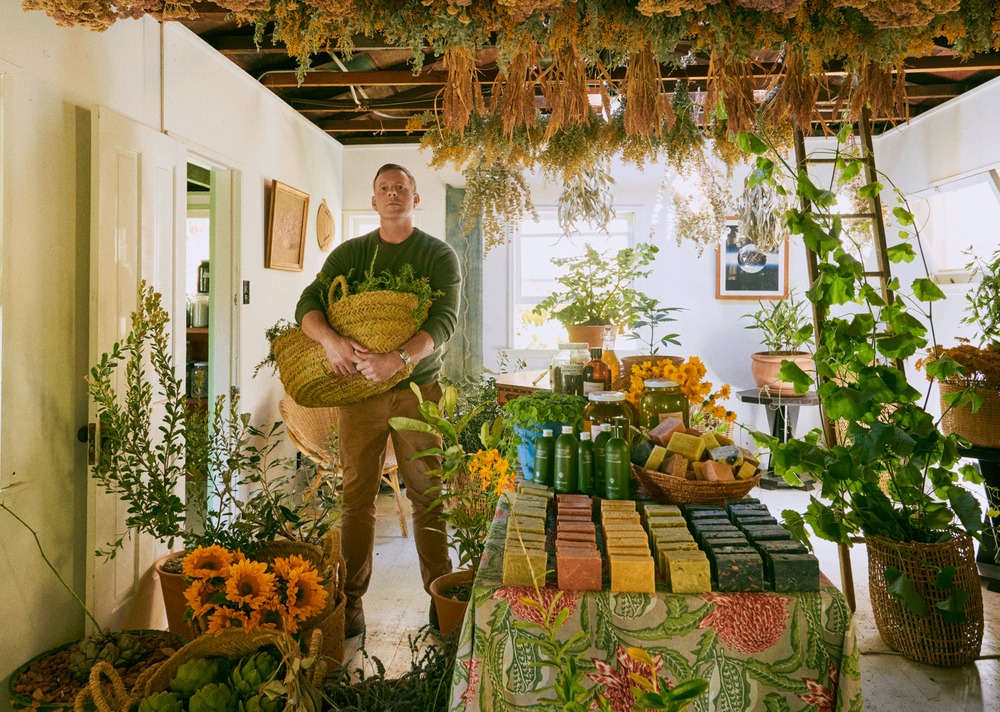
Richard Christiansen
Mother Nature as a luxury house
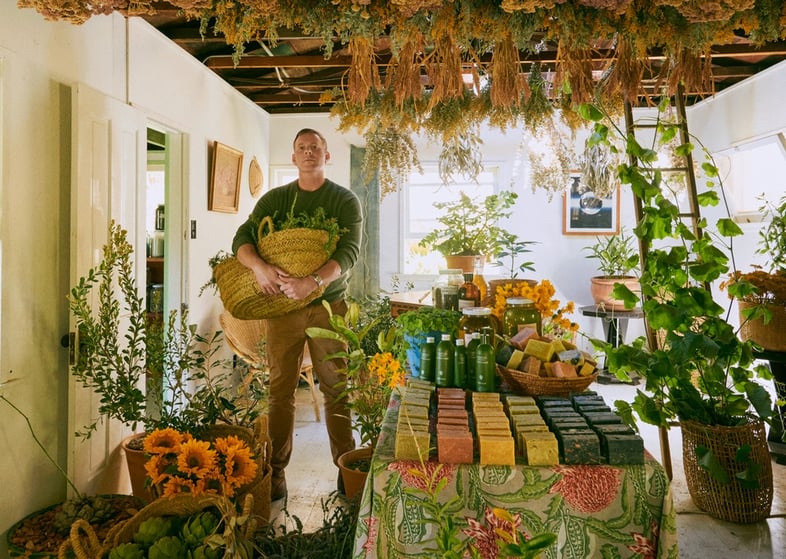
Richard Christiansen
According to Richard Christiansen’s official biography, he’s a gardener and traveller who ‘believes in the power of green thumbs and middle fingers’. It’s this combination of nature-lover and rule-breaker that brought Christiansen and his business Flamingo Estate to our attention.
Founder of global creative agency Chandelier Creative, he has worked on strategy, creative direction and campaign ideation for Hermès, Cartier, Lane Crawford, Calvin Klein, Madewell, Nike, and many others. But it is his home among the luxury honey-producing bees and cashmere-clad goats, a 1940s home and acreage in the Los Angeles hills, that has offered him a life purpose. Flamingo Estate is dedicated to supporting biodynamic ingredients while the eponymous brand associated with the estate champions botanical wellness. Offering a collection of over 150 products by working with more than 110 biodynamic farms, its premise is simple: a radical celebration of pleasure from the garden. With its online ‘inconvenience store’, it is also unashamedly pricey in its nature-revelling hedonism.
Most radical is the idea that Christiansen champions: that Mother Nature is the last great luxury house. His focus is on raw, natural, nutrient-dense materials – traced back to the farmers who planted them. Now, what could be more luxurious than that?
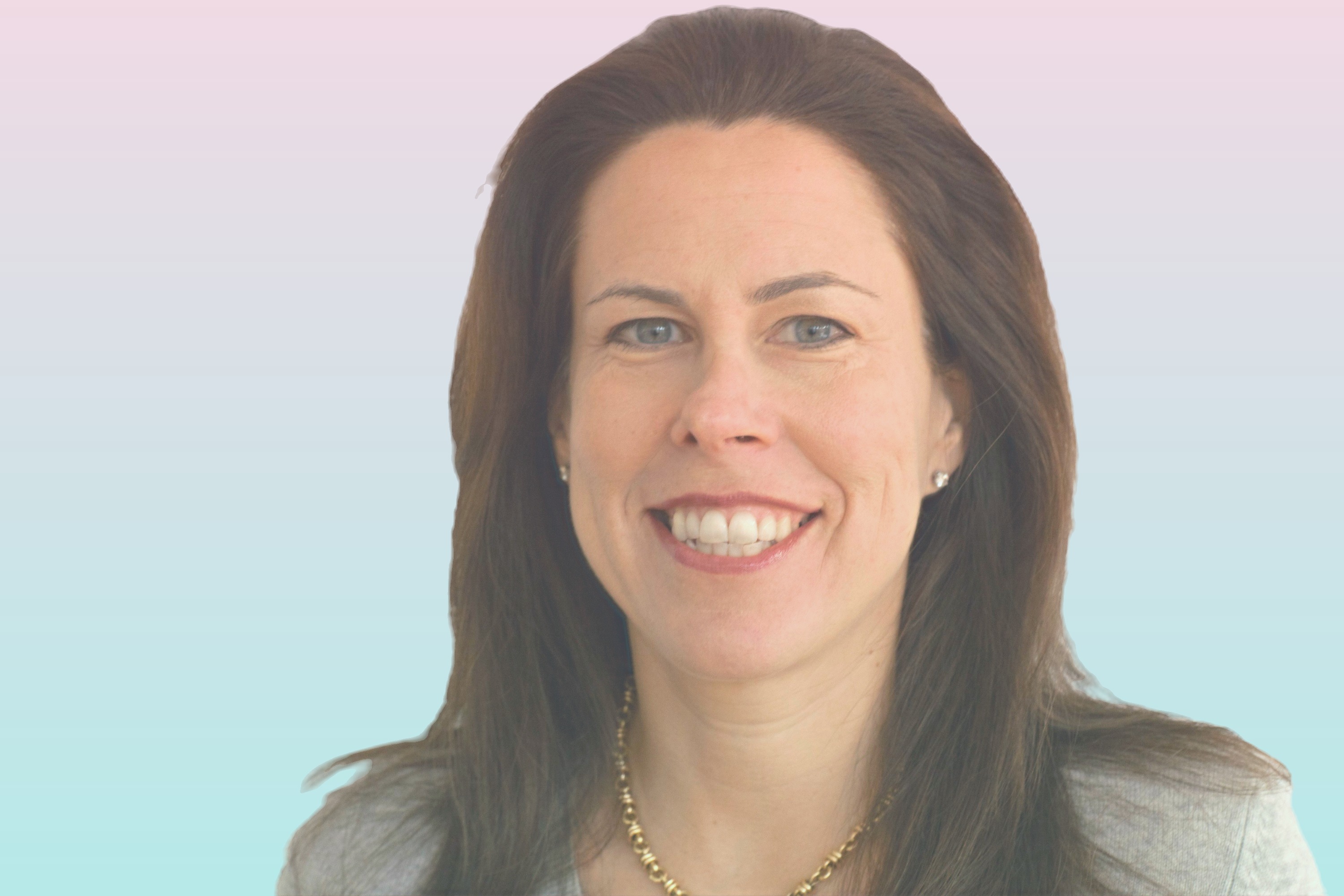
Emily Goldfischer
Supporting women in the hotel industry
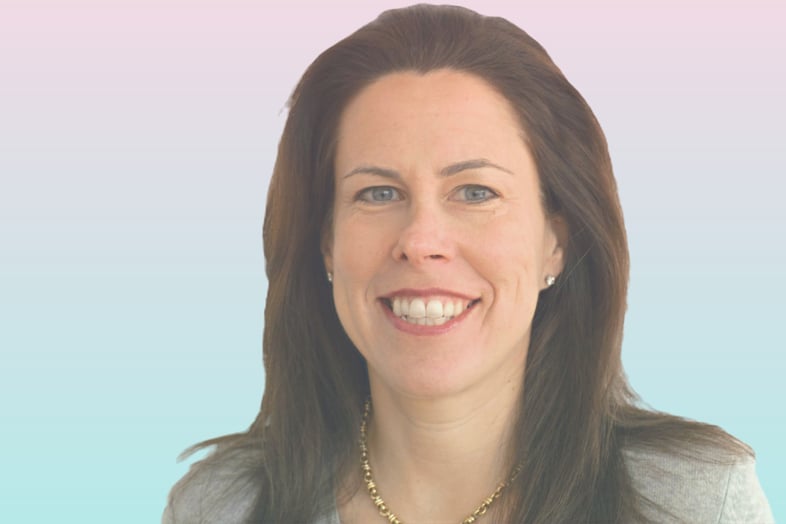
Emily Goldfischer
With a background in journalism, US-based Emily Goldfischer is dedicated to raising the profile of women in the hospitality sector – which is no mean feat for an industry traditionally suffering from an under-representation of women.
This self-confessed ‘hotel nerd’ founded Hertelier in March 2021, serving up content supporting women in their hotel industry careers by sharing valuable lessons from accomplished pros and rising stars, covering business skills, work-life balance, industry news and networking opportunities. It’s now a dynamic, engaged and growing community of hospitality professionals.
‘Despite making up more than 50% of the lodging workforce, women still remain grossly under-represented in the top management of hotels, with women holding only one in 10 C-suite positions,’ Goldfischer tells LS:N Global. ‘In my role as a travel journalist covering luxury hotels, I noticed that women were starting to get some of the top jobs, but there wasn’t a place for ambitious women to go for inspiration and information, curated just for them.’
We believe Hertelier offers a model for women-led support in other sectors. So, what’s next? ‘We have just held our first sold-out in-person event in London, which was incredible. Our plan is to hold more events, continue with our strong, female-focused editorial and further engage with our community.’
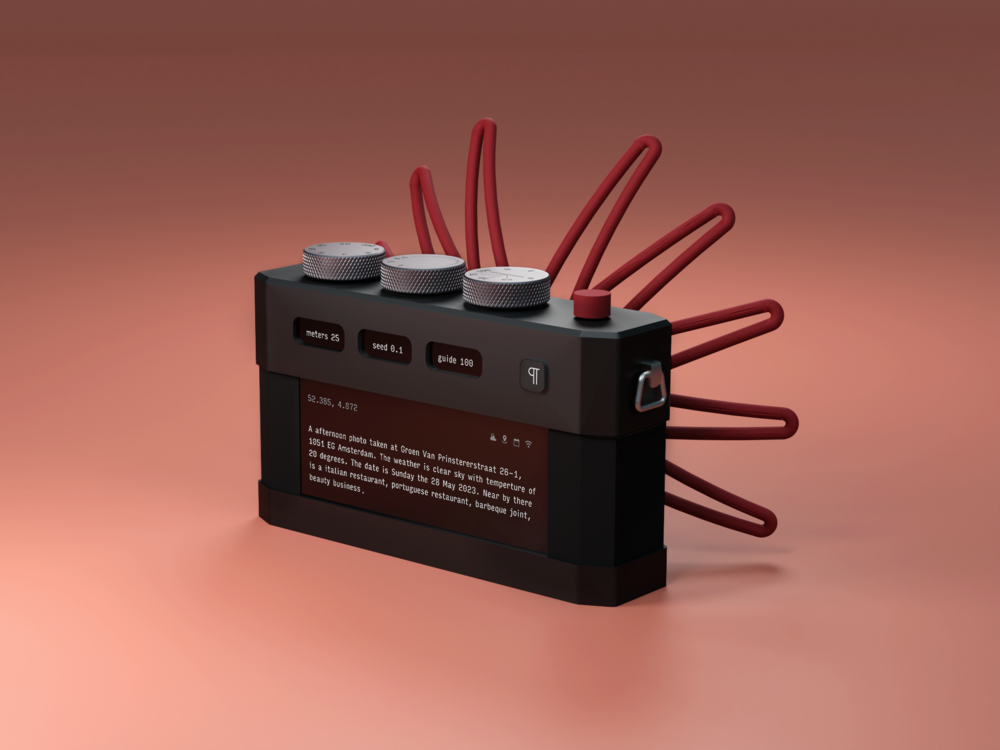
Bjørn Karmann
Feeding data to an AI-powered lens-free camera
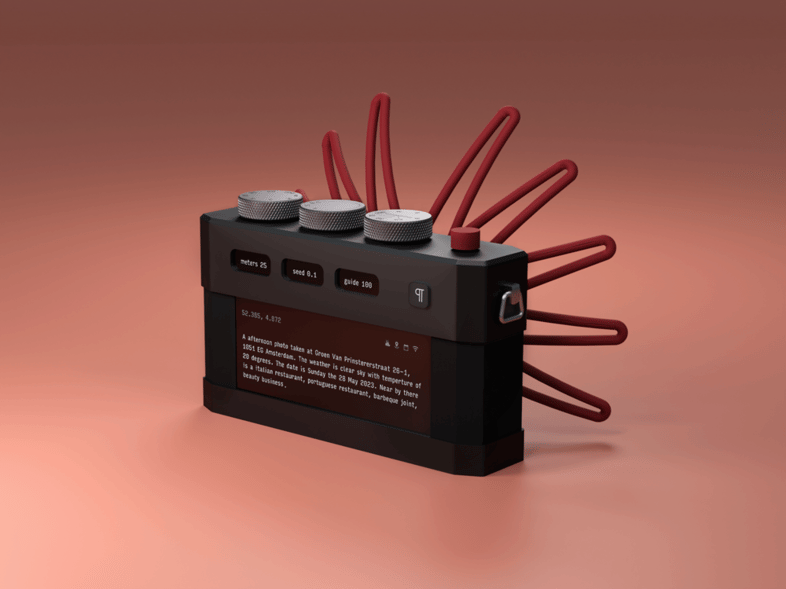
Bjørn Karmann
Amsterdam-based designer Bjørn Karmann went viral in May 2023 with Paragraphica, a unique camera that uses data instead of light to create images. Inspired by the star-nosed mole, a practically blind creature that sees the world through its touch-sensitive snout, Karmann’s device is connected to the internet, and when the red shutter-release button is pressed, collects data on time of day, address, weather and temperature, before turning it into a paragraph.
The camera also features three physical dials to help the user control the data and adjust AI parameters to influence the appearance of the photo. Via the generative AI tool Stable Diffusion, Paragraphica can convert the collected data into a picture without needing a lens or any photography skills.
‘A familiar object, filled with familiar expectations, has now become a vessel for an entirely different story,’ Karmann tells LS:N Global. ‘One of creative tension, as AI-generated images seem to challenge what defines a camera or photo.’ The lens-free invention remains a prototype for artistic exploration and an educational tool to demonstrate AI capabilities.
Still, the designer hopes it will ‘highlight the potential pitfalls of this trend [AI] and make us long for unfiltered, raw photos again’. In his own words, one should remember that ‘AI imagery is essentially a sophisticated form of data visualisation’ whereas photography is an art form.
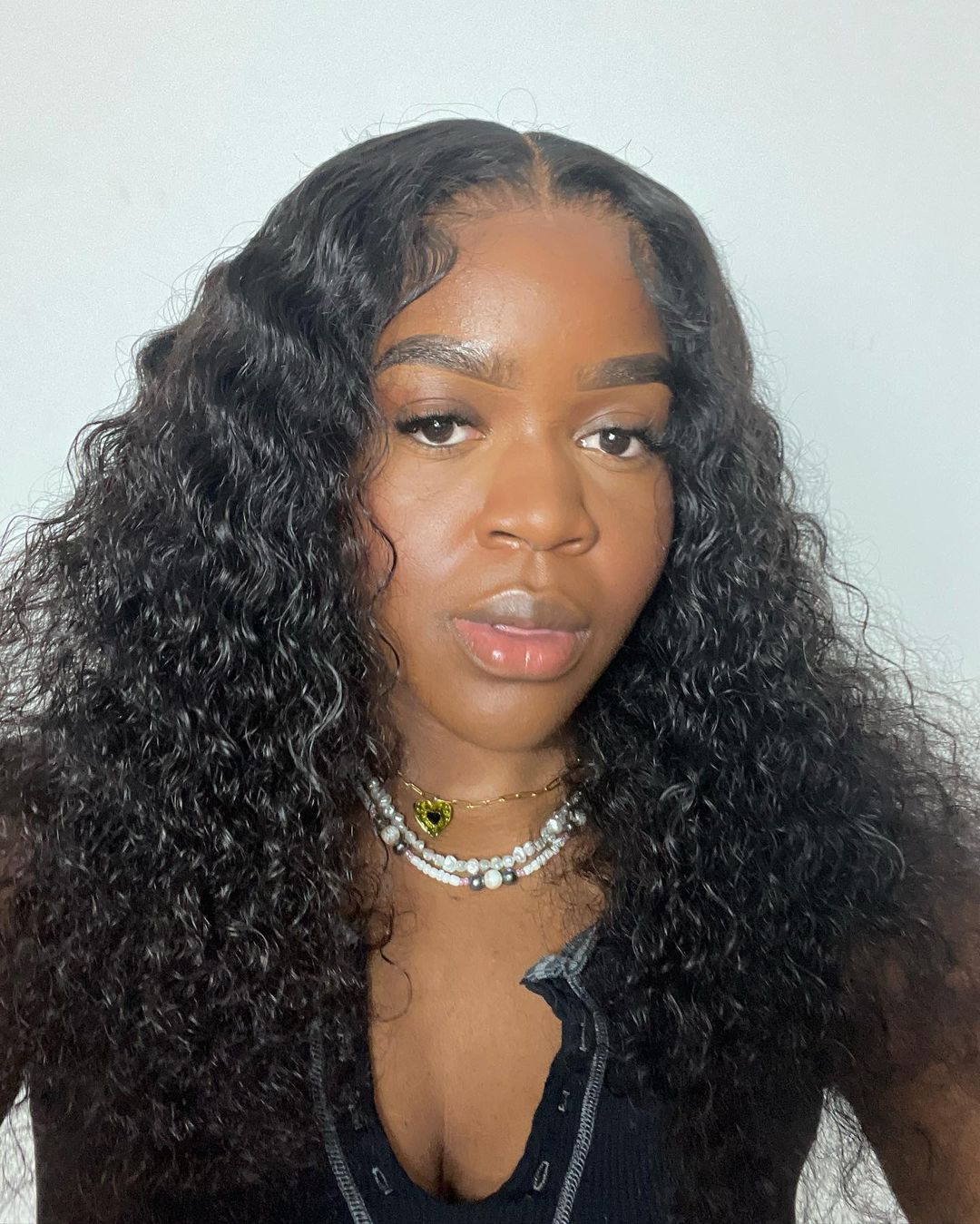
Endah Tche
Rent-A-Wig
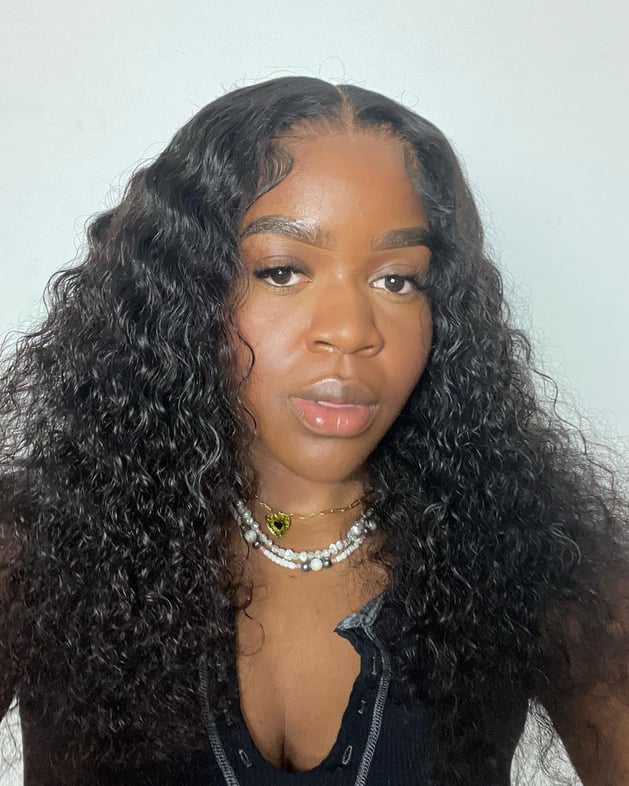
Endah Tche
At age 22, Endah Tche has already established herself as a dynamic entrepreneur and the driving force behind London-based Rent-A-Wig. Having founded E.T Wigs, a journey that began with her revamping and selling bespoke handmade coloured hair pieces, she came across a common hurdle – the prohibitive cost of high-quality wigs available at scale.
This realisation led to Rent-A-Wig, an innovative service that seamlessly integrates wigs into the sharing economy. Tche provides individuals with the unique opportunity to experiment with various hairstyles for work, events or photoshoots without bearing the traditional financial burden associated with wigs. Her audience ranges from students to working women who enjoy a variety of hair options but don’t want to commit to purchasing multiple wigs. ‘At the moment, clothes are entering the circular economy rapidly,’ she tells LS:N Global. ‘Hair completes the look, and I would like to pioneer this shift.’
Tche is keen to commit to her business full-time, which she founded while pursuing her studies, but now that she has successfully graduated, she’s excited to launch the next stage of her rental line with more natural colour wigs and a pop-up shop.
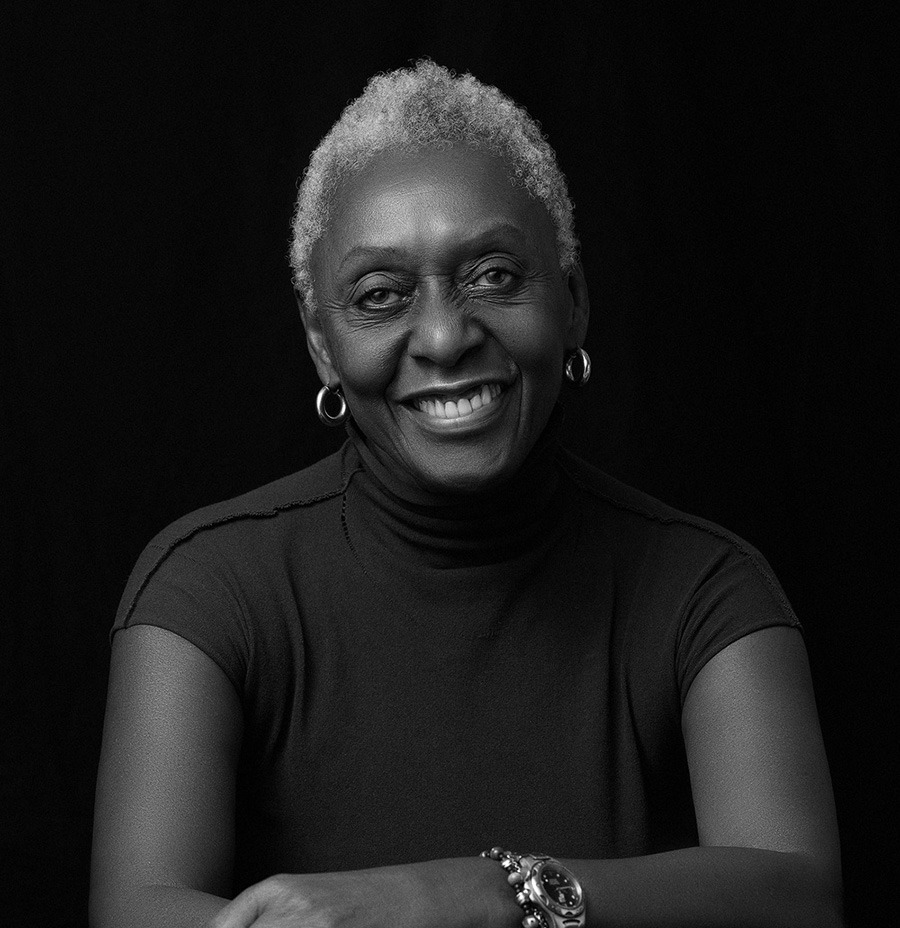
Bethann Hardison
Invisible Beauty

Bethann Hardison
Ex-model and fashion advocate Bethann Hardison has built a career spanning over five decades and has gone from working in NYC’s Garment District to founding her own namesake agency in 1984. It was the first of its kind to be run by a Black woman – especially during an era when the fashion industry was tone-deaf to conversations around race. She launched a diversity movement, Black Girls Coalition, in the late 80s and received the CDFA Eleanor Lambert Founder’s Award in 2014 for the decades of her work championing diversity and inclusion across the industry.
It is no surprise then that her new film Invisible Beauty is a tell-all; it looks back at her journey as a pioneering black model, agent and activist. Hardison knew that value of black beauty before ‘black is beautiful’ became a slogan and her film allows us insight into her rebellious and ambitious spirit while recording her greatest accomplishments, eventually paving the way for those to come, including supermodels like Naomi Campbell. ‘I didn’t even think I had a story, I just always thought it was important to do the best you can in your life and be conscious of it,’ she tells LS:N Global. ‘My hope is that the industry remains open to diversify the backside of the moon, meaning giving real opportunities behind the scene.’
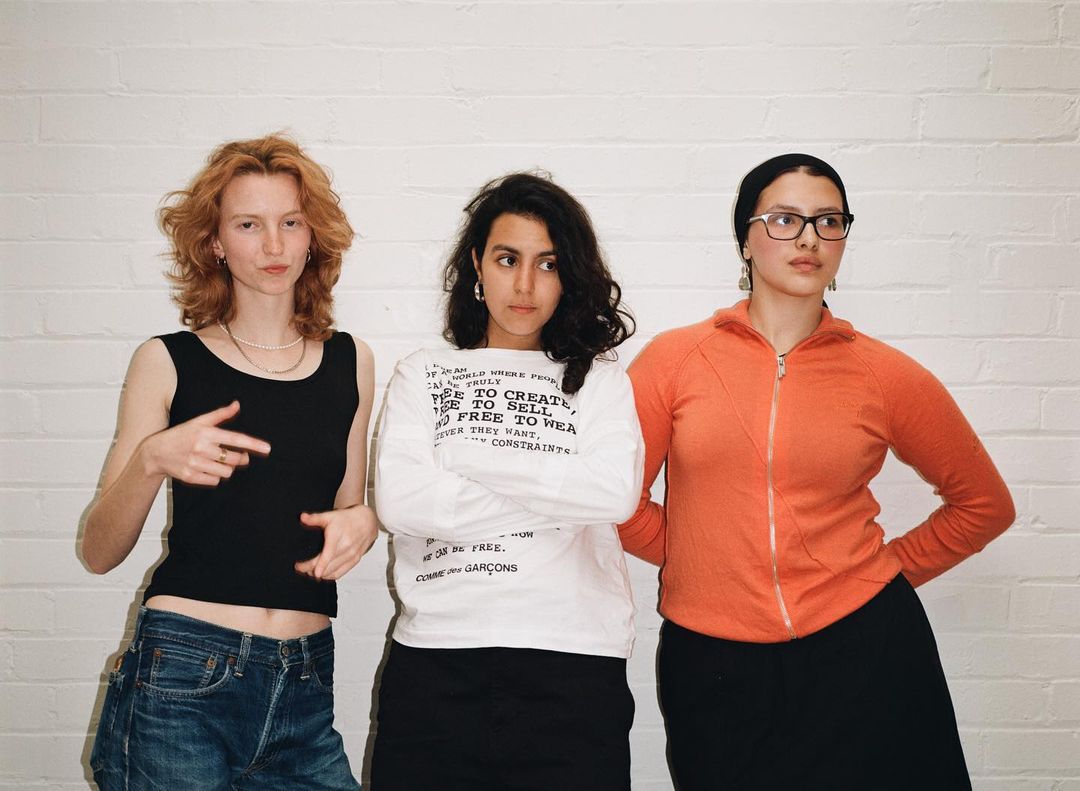
Olivia Jankowska and Zaineb Abelque
Athene Club
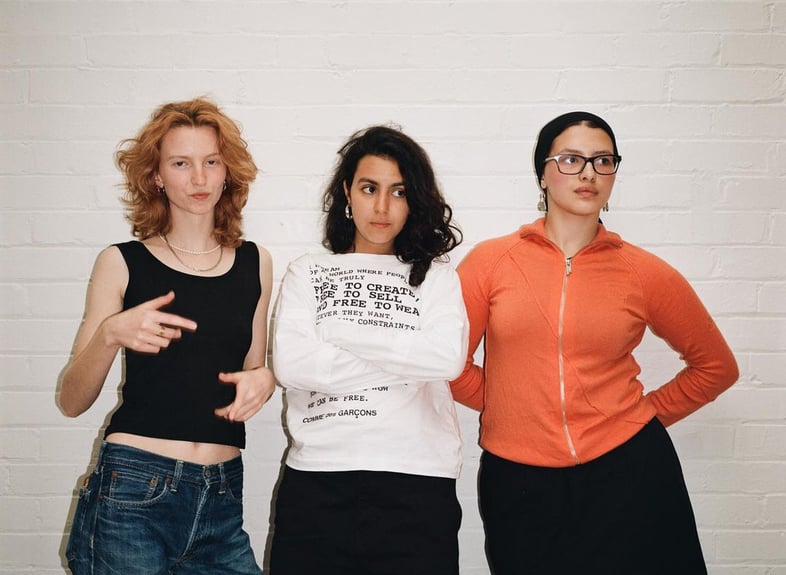
Olivia Jankowska and Zaineb Abelque
The seed for Athene Club was sowed amid the pandemic by two London-based photographers, Olivia Jankowska and Zaineb Abelque, who were craving nature and outdoor spaces but agreed that it often felt unsafe and unfriendly to explore as women. Driven to overcome this, they set out on their first hike, eventually paving the way Athene Club, a women-led collective rooted in a love for the outdoors.
Athene club considers its activities a sport, but slow burning ones. It is a club through which one can not only reap the rewards of movement and nature but can also expect to build friendships, experiences and a close-knit community. With most hikes capped between four to five hours, Athene Club hopes to inspire those women that might be discouraged from entering a space predominantly dominated by middle-class white men. Athene Club’s community elevates hiking into an unforgettable experience filled with swims, skinny dips and a lot of laughter.

Dr William Kapp
Fountain Life

Dr William Kapp
William Kapp, MD, is a board-certified orthopaedic surgeon in the US and an expert in diagnosing and treating conditions impacting muscles, bones and joints, as well as sports injuries. Dr Kapp’s passion is finding new technologies and processes that can expedite healthcare from reactive to proactive. This explains his endeavours into multiple businesses including Fountain Life, which he co-founded with his partners with the mission of remaining ahead of the latest trends in health care.
Fountain Life continually evaluates new technologies to help members diagnose illness early – ultimately hoping to reverse the clocks on aging. It delivers the most advanced diagnostics and therapeutics to those who seek a longer, healthier and more vital life. ‘Currently, you only pay a doctor to take care of you after you’re broken, but we don’t pay a doctor to keep you healthy,’ Kapp tells LS:N Global. Fountain Life wants to reverse this by employing a root-cause analysis based on functional medicine to determine solutions that can optimise health.
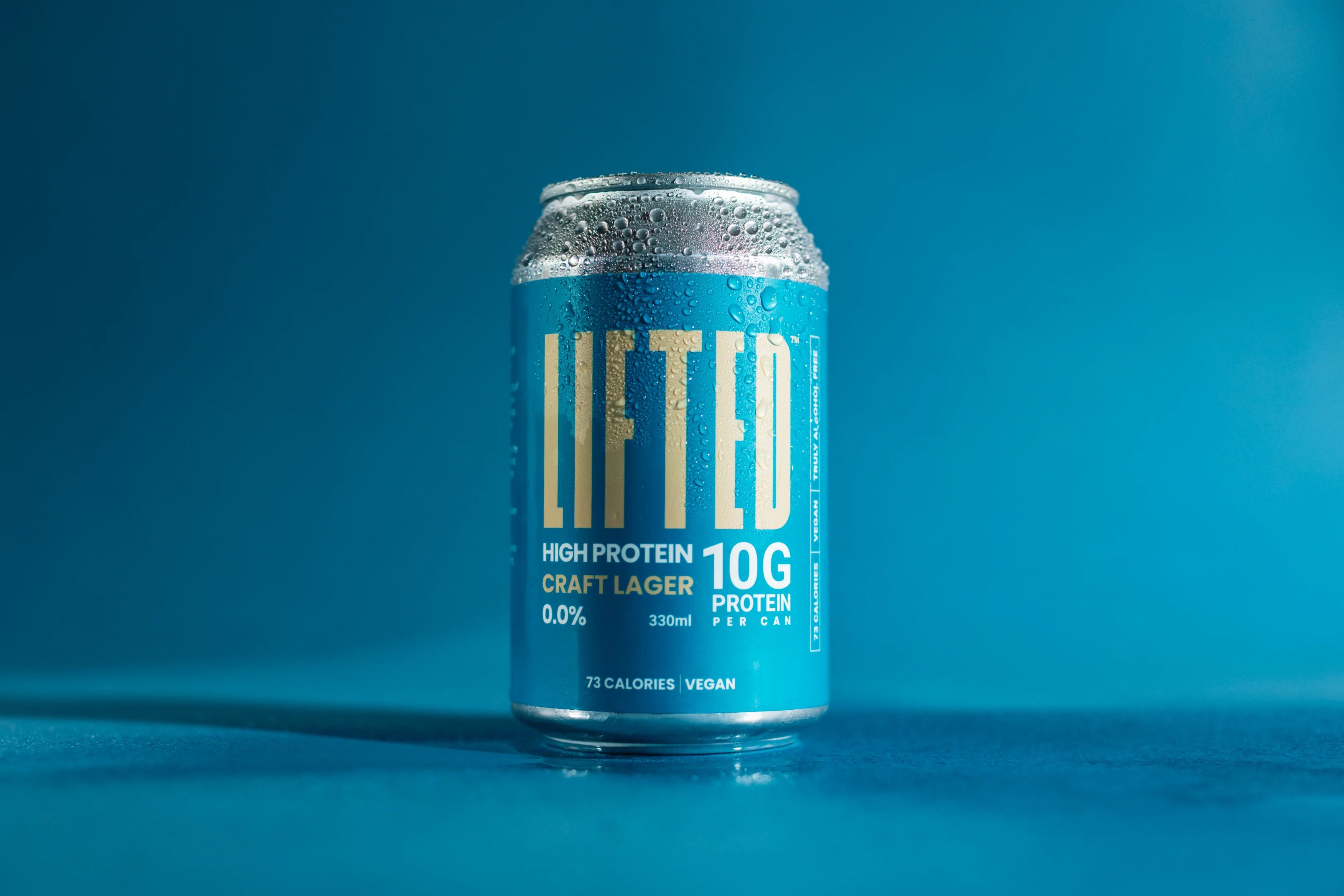
Tony Robinson
Lifted
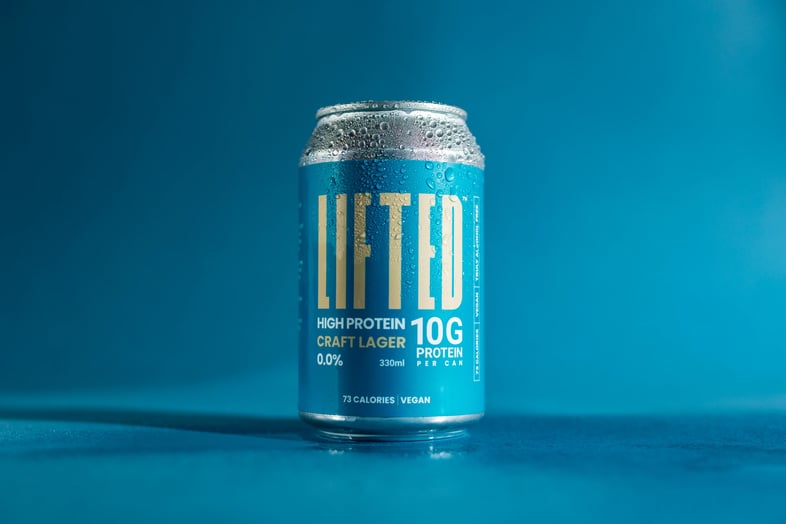
Tony Robinson
Birmingham, UK-based Tony Robinson noticed a gap in the market for a great-tasting lager that also had value-added functional benefits. Wanting to ensure that sports enthusiasts and athletes can have a cold beverage option at the end of their work out that doesn’t undo the benefits of their physical activity, he created Lifted, a canned lager that contains 10g of protein per serving.
Lifted’s sports recovery lager is an alcohol-free option, enriched with pea-protein, weighing in at only 83 calories per 330ml can. Creating this protein lager took months of formulating, brewing, and tasting until Robinson was satisfied with the end product. Now, he’s on a mission to bring Lifted into the world of fitness, because ‘you shouldn’t have to compromise when you finish a gym session and want to kick back with a cold one,’ he tells LS:N Global.
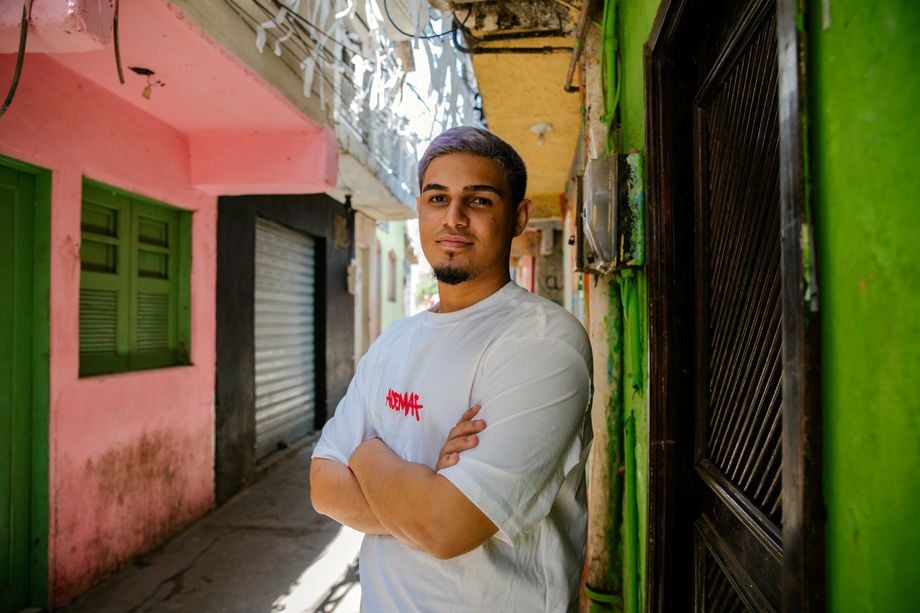
Gean Guilherme Santos Lopes
2050 Futures Project
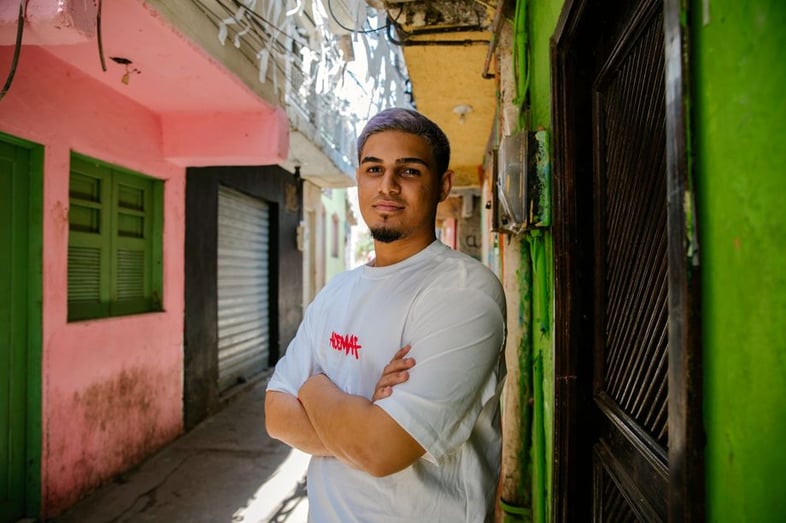
Gean Guilherme Santos Lopes
At 22, Gean Guilherme Santos Lopes is not only a talented digital creator but also the founder and CEO of 2050 Futures Project. Born and raised in Morro Santo Amaro, a favela located in the south zone of Rio de Janeiro, Santos Lopes developed a social Crypto art project that makes use of NFT technology, directing funds and offering support for the development of social impact projects across the favela.
2050 is a laboratory of innovation, art and technology that resides within Morro Santo Amaro, with the aim of thinking about the future of society and the peripheries of the country. It works on interdisciplinary solutions to the challenges faced by the favela. This includes projects related to education and culture and involves the local community. It also investigates how favelas themselves can be a source of innovation and creativity – specifically with the appropriate wielding of technological solutions.
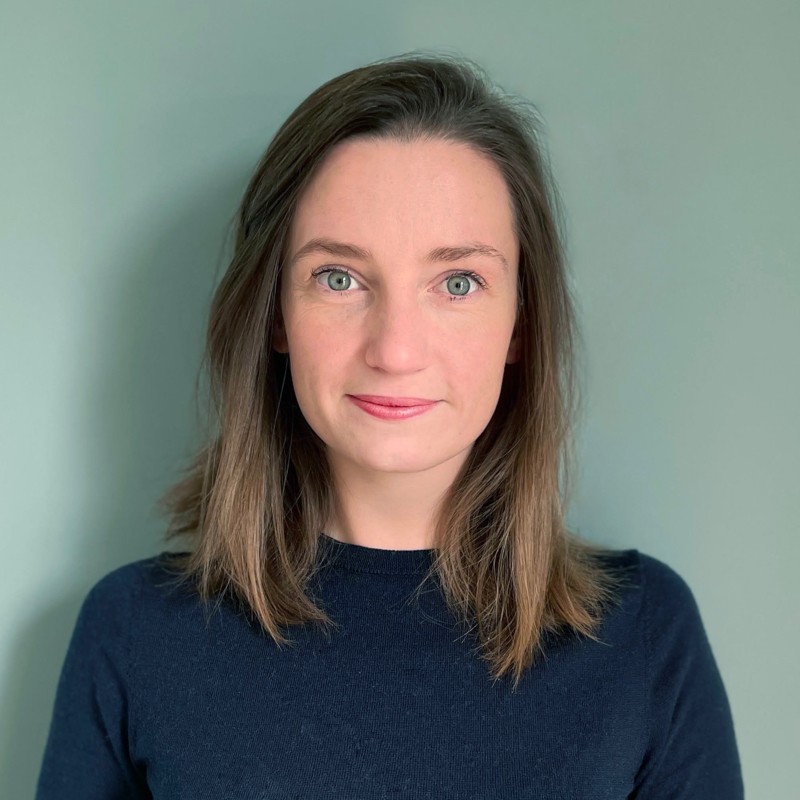
Gérosine Henriot
Heristoria
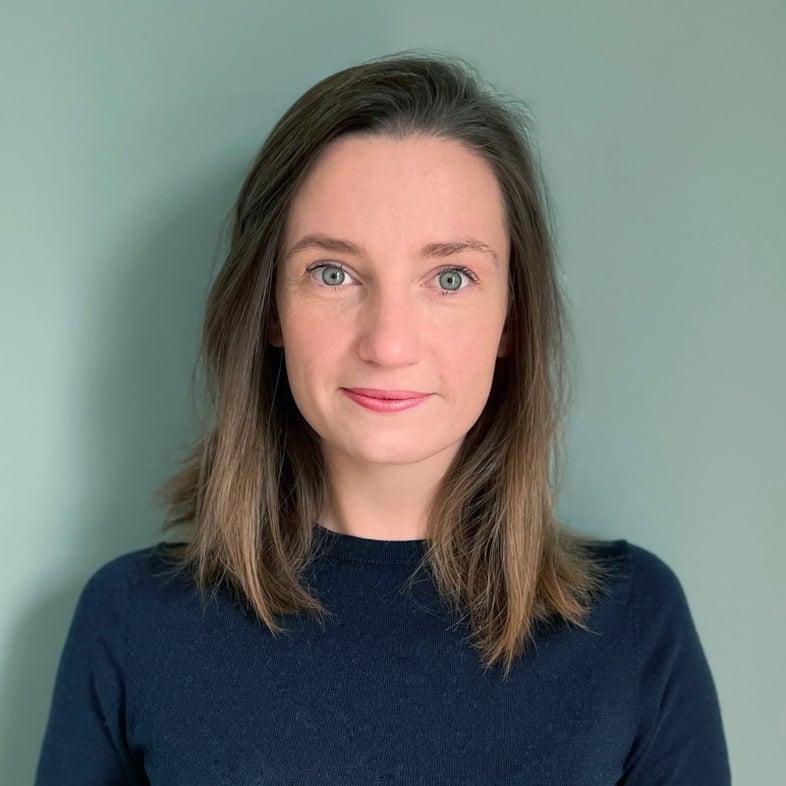
Gérosine Henriot
Armoured by her experience working for the Grande Épicerie de Paris and French fashion house Bulgari, Gérosine Henriot proposed an initiative through LVMH’s DARE platform at the end of 2020 that looked at the enhancement of contextualised premium pieces from the luxury giant’s archive. This gave birth to Heristoria, a new digital sales platform launched with the backing of LVMH that sells not only a unique archive item but also an experience and story around style and craftsmanship.
Each item sold on the platform -whether that is wine, jewellery, fashion or more - will be accompanied by a handover-process at a meeting organised in a location of the chosen brand. In the world of LVMH this could mean a meeting in an haute couture workshop or a private visit to a Grand Cru cellar, followed by a private tasting. Henriot’s innovative, entrepreneurial solution offers luxury collectors the opportunity to engage with archive items in a more meaningful manner, delving not only into history but the luxe nostalgia that makes these items appealing in the first place.
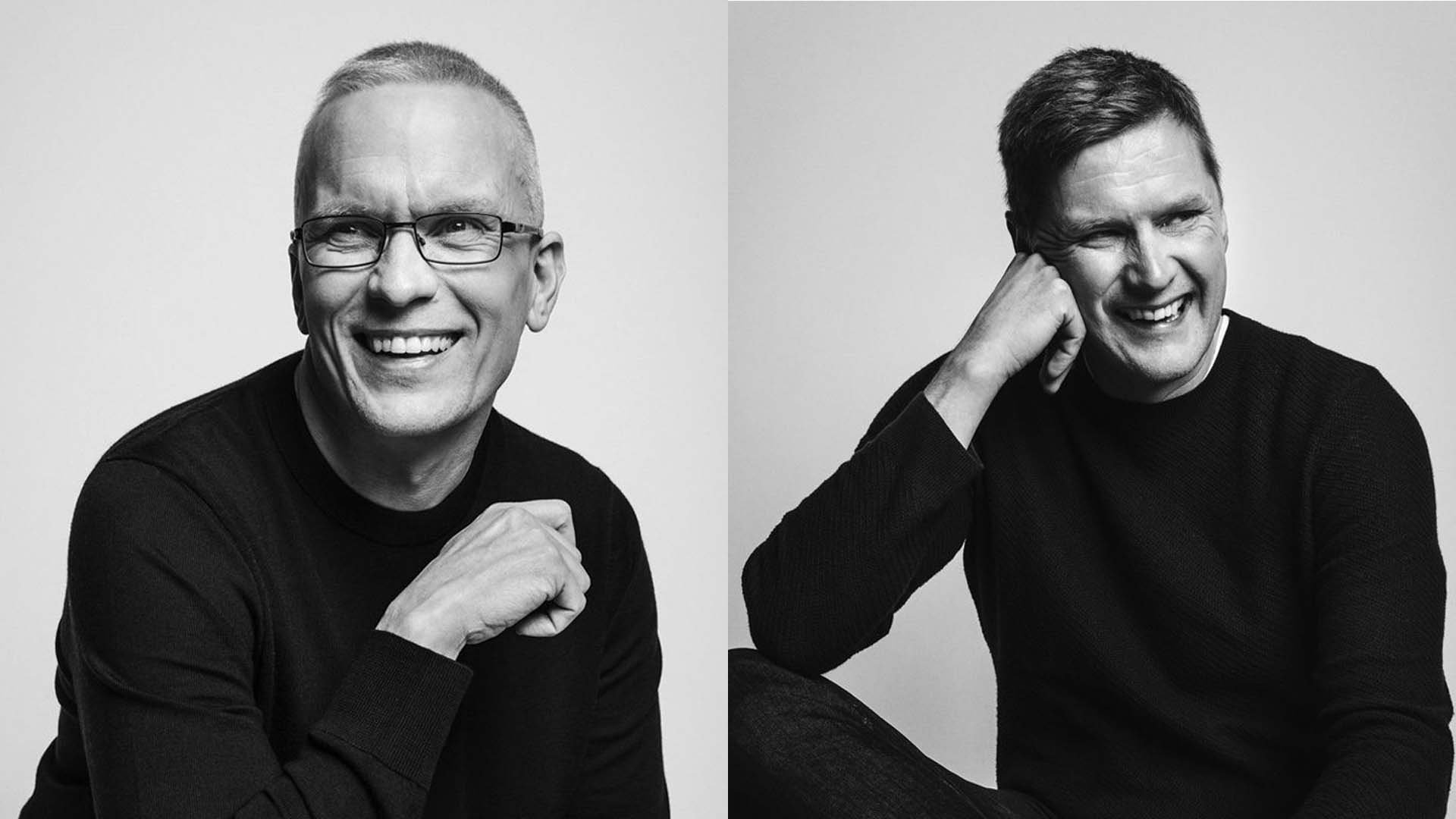
Juha Salmela & Janne Poranen
Spinnova
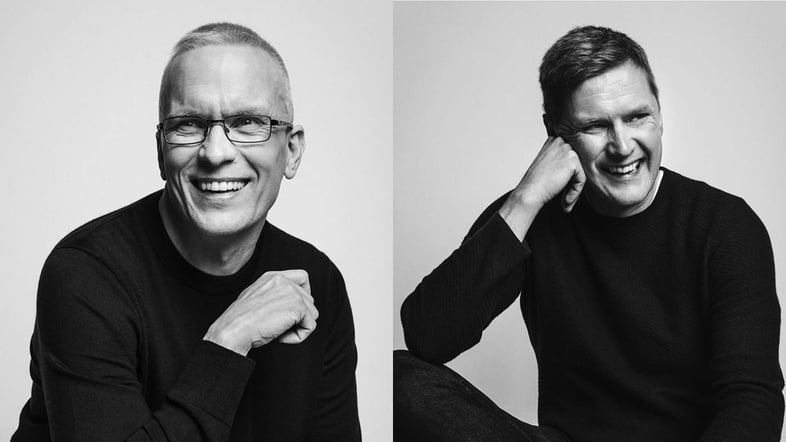
Juha Salmela & Janne Poranen
Spinnova is the brainchild of Juha Salmela and Janne Poranen, who met back when they worked in micro cellulose research at VTT Technical Research Centre of Finland. It was through their investigation into whether wood fibre could be spun into a textile fibre bearing the same strength as a spider’s web, that paved the way for the creation of Spinnova.
Today, Spinnova is a leading innovator solving the environmental challenges of the textile industry with its patented sustainable textile fibre. It is created without harmful chemicals, pollution or waste. It has previously partnered with brands including Adidas, The North Face, H&M Group, Ecco and more, aiming to cement the role of sustainable textiles in the future of the fashion industry.
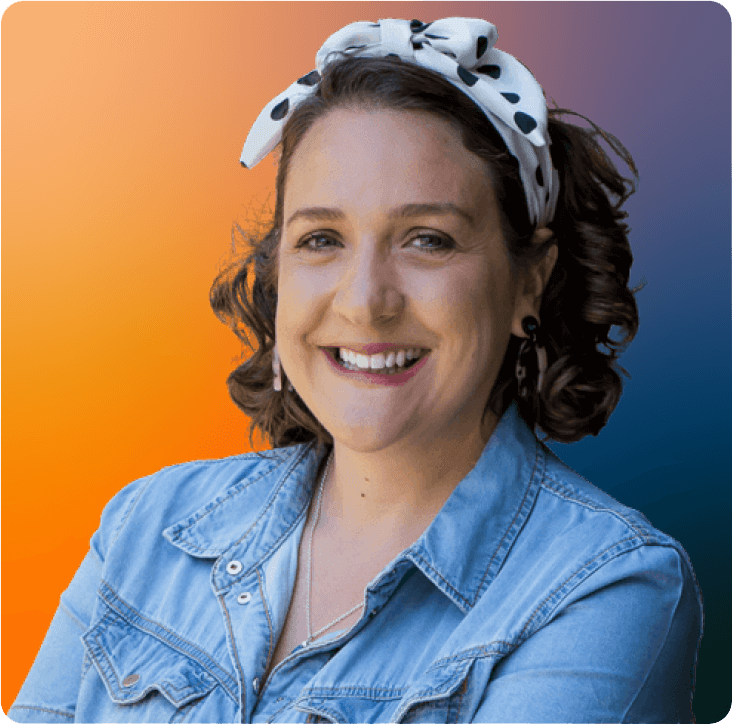
Elle Pinkard
Destination Rainbow
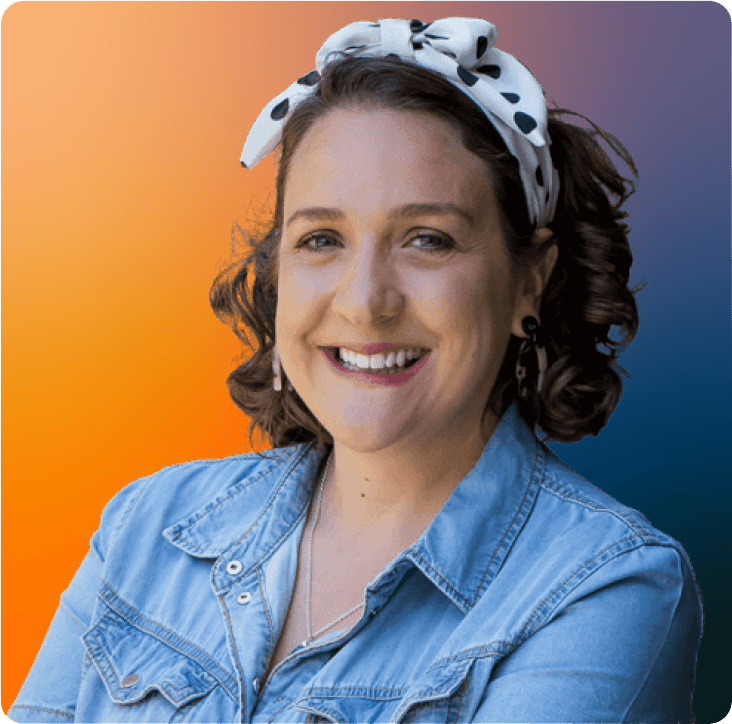
Elle Pinkard
As an LGBTQ+ mother of three, Elle Pinkard has first-hand understanding of the challenges faced by queer families when planning holidays, especially the stress of finding a safe and welcoming hotel environment. Keeping this in mind, Pinkard launched Destination Rainbow, a UK-based independent travel agency specialising in LGBTQ+ family holidays.
Destination Rainbow makes it a point to reach out to the best resorts, communicate with the staff working there and verify through guest testimony that the recommendations they make are truly top-class when it comes to offering a comfortable environment for LGBTQ+ families. It was created with an in-built understanding of the fears and concerns that go into planning a family holiday, which is why it reassures its clientele through in-person coffee chats, video or phone calls. Personal service, trust and building a lasting relationship are the key pillars Destination Rainbow considers essential in creating a genuine and long-lasting business.
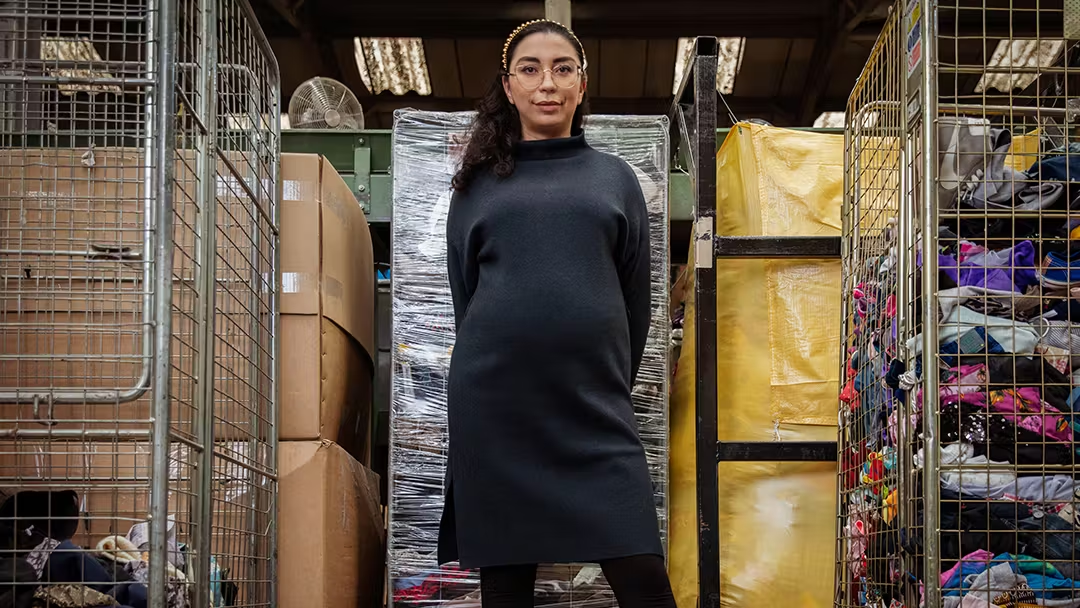
Hasna Kourda
Save Your Wardrobe

Hasna Kourda
UK-based Hasna Kourda was inspired by her Tunisian upbringing when developing her vision for fashion circularity and zero waste. With a background in economics and corporate strategy, she founded Save Your Wardrobe, a repair and care infrastructure platform for brands that enables seamless booking and management of aftercare at scale, both in-store and online.
Currently, most brands and retailers send minor repairs to centralised warehouses or ateliers abroad with little to no transparency for the customer about the location of the item or duration of the service. Save Your Wardrobe resolves these issues by featuring integrated automated logistics, live tracking, operational management, fluid customer communication and live data reporting – making it a highly efficient digital infrastructure platform for aftersales. The platform is also customisable to each service type or item category, including the complex repair processes of watches and jewellery too.
Save Your Wardrobe was the winner of the LVMH innovation award and will soon be beginning its program at LVMH’s group incubator, La Maison des Startups –– in September, where it will be deep-diving into the work needed for industry-specific requirements.

Veronika Kant and William Lundgren
An environmental front-runner in luxury fashion

Veronika Kant and William Lundgren
Bite was founded in Stockholm in 2016 by business partners William Lundgren and Veronika Kant. Its collections are made from 99.5% organic and low-impact material, making it a leader in material sustainability in luxury fashion. This is the kind of clothing we believe will exemplify a new era of Recrafted Luxury.
Bite sits at the crossroads of uncompromising sustainability and expressive minimalistic designs. ‘We aren’t aiming to produce green products; we are dedicated to creating the world’s finest products,’ the founders tell LS:N Global. Recognising the responsibility fashion must bear in the fight against climate change, Bite’s founders don’t want consumers to feel at fault. ‘We want to be a brand that inspires consumers to change instead of blaming them.’
Bite now has its sights set on progressing in material innovations and is also looking at developing digital tech solutions to track every item it produces.
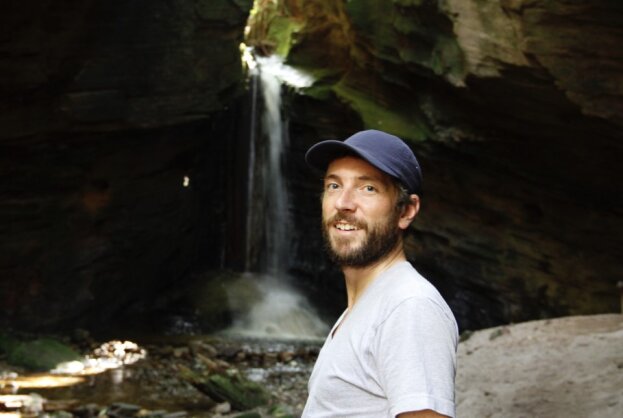
Saul Taylor
Building the anti-TripAdvisor
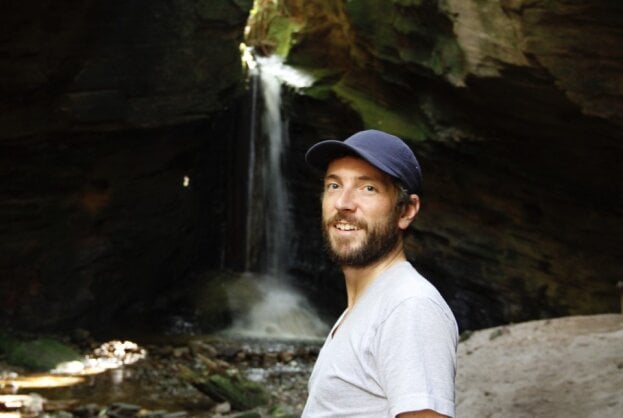
Saul Taylor
Having worked as a writer at Wallpaper magazine and later as one of the founding editors of Monocle magazine, Saul Taylor has been immersed in travel, hospitality and leisure for nearly 25 years. Despite his work experience and personal travels around the globe, he found that no travel magazine gave good, authentic insights by locals into their cities, which is why he launched Sablos.
Sablos tells the stories of places around the world through the people that know them best – interesting and creative characters, including musicians, architects, artists and more. Positioning the travel resource as the anti-TripAdvisor, Taylor hopes that through Sablos’s editorial content, which will all be framed as Q&As, people will explore cities away from tourist traps, instead eating, drinking and living like real locals.
Its three media streams – print, website and an app – will offer a 360-degree media environment, and the app will offer integrated booking services and queue-jumping options for paid subscribers at restaurants, venues and more.

Julian Ellis-Brown, Neloufar Taheri, Antonia Jara Contreras and Finlay Duncan
Producing planet-positive textiles
Julian Ellis-Brown, Neloufar Taheri, Antonia Jara Contreras and Finlay Duncan
Despite the name of its signature product, BioPuff, this is one sustainability-focused fashion brand that isn’t full of hot air. Saltyco is a Bristol, UK-based materials science company that makes planet-positive textiles, co-founded by Julian Ellis-Brown, Neloufar Taheri, Antonia Jara Contreras and Finlay Duncan. Its production methods include actively healing damaged eco-systems and farmland through innovative processes.
Saltyco’s BioPuff was officially launched in August 2023 and is a registered plant-based fibre fill material made from bulrush that is light, warm and biodegradable. It offers a viable alternative to goose and duck down feather fillings as well as polyester and nylon. The environmental impact of manufacturing clothing from bulrush is a fraction of that of conventional fibres and Saltyco’s BioPuff has already won H&M Foundation’s Global Change Award 2022 and previously created an exclusive collection with e-tailer Yoox’s private label in 2021, making it an exciting brand to keep an eye on.
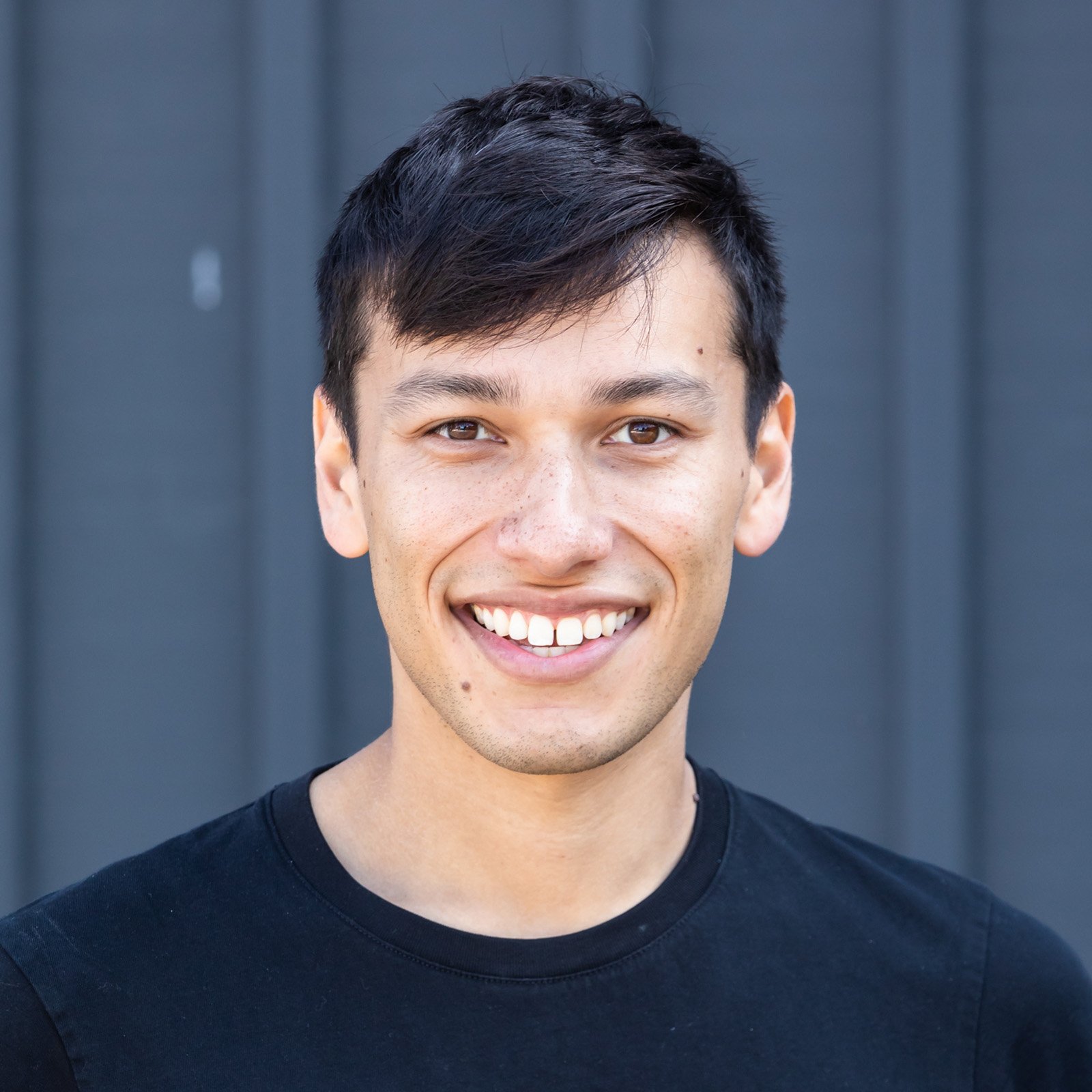
Matt Krisiloff
Transforming stem cells into human eggs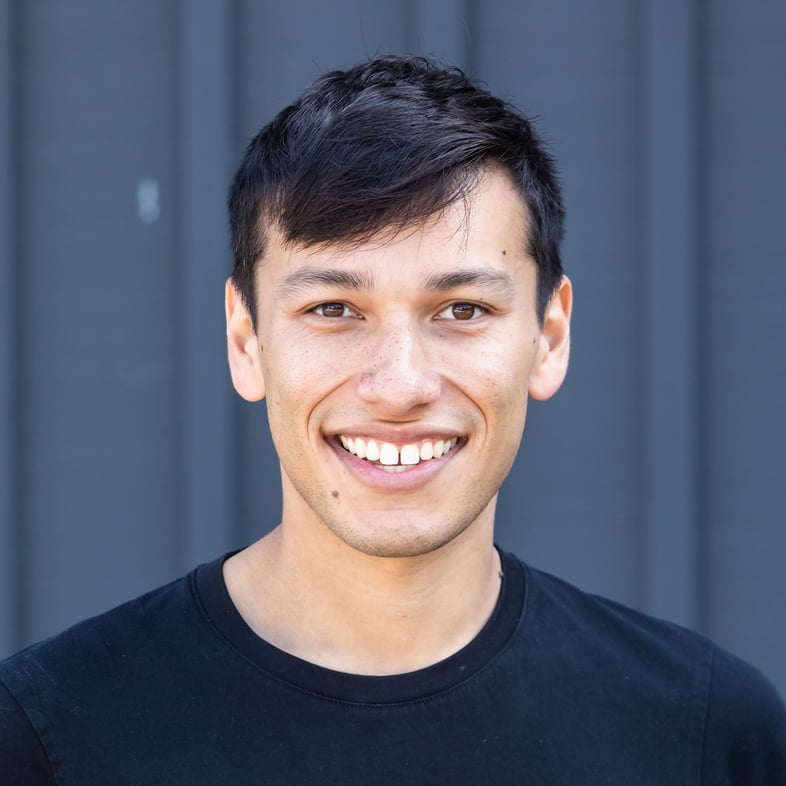
Matt Krisiloff
Conception is the brainchild of Matt Krisiloff, a Silicon Valley-based tech-entrepreneur, whose start-up is studying how to transform stem cells into human eggs, offering a new solution in the world of fertility. Conception is working on a new technology named in-vitro gametogenesis (IVG) that could give women the opportunity to have children well into their 40s and 50s, while also mitigating the obstacles preventing couples suffering from infertility from having children in the future. If successful, it could also allow male couples to have biological children.
The team at Conception have already found this reproductive treatment to successfully work on mice eggs – producing healthy, live mice – and are now translating this technology to humans. Conception also believes that this technology can be used in the long run for genetic screening of embryos, potentially eliminating or reducing the risk of diseases such as Alzheimer’s, heart disease and types of cancer.
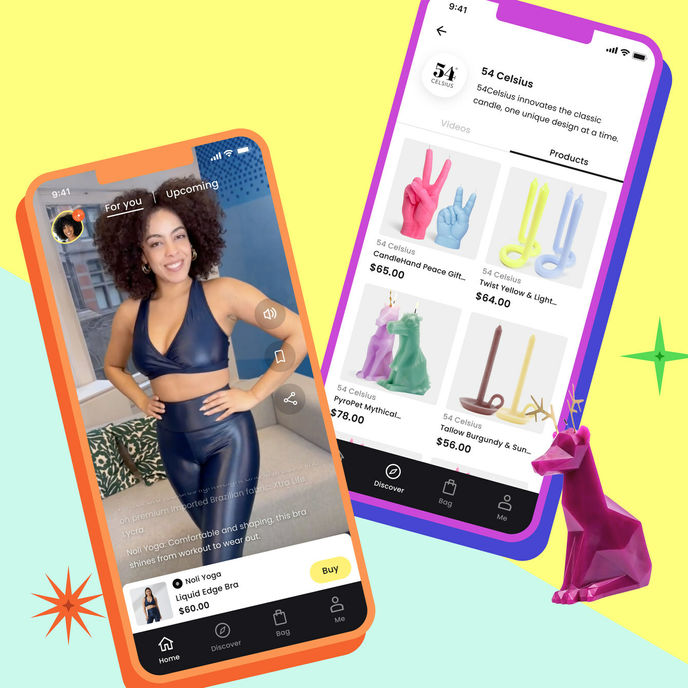
Brian Beitler
Gen Z’s QVC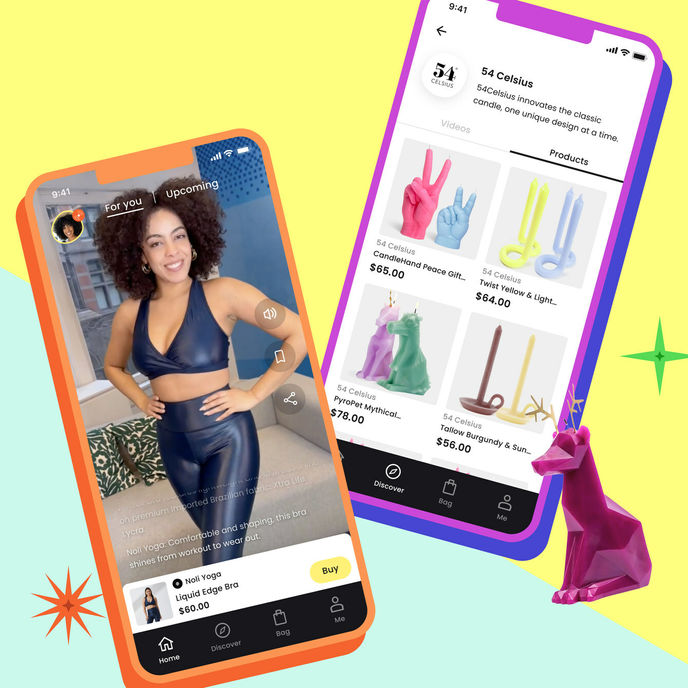
Brian Beitler
Sune is a new experiential shopping platform that combines entertaining videos, engaging live-streams and exciting product drops. Designed to integrate video, traditional online and in-app shopping, Sune aims to transform the world of retail, especially for digitally native Gen Z consumers who seek exhilaration at every touchpoint of their shopping journey.
Sune’s founder Brian Beitler is also the general manager of Live Shop Ventures (part of Qurate Retail Group) and has previously served as chief marketing officer for QVC US. With more than 20 years of experience across marketing, business development and strategy, Beitler is well placed to provide consumers with ever-more engaging ways to shop – the kind of EQ-Commerce experience we outline in our retail macrotrend.
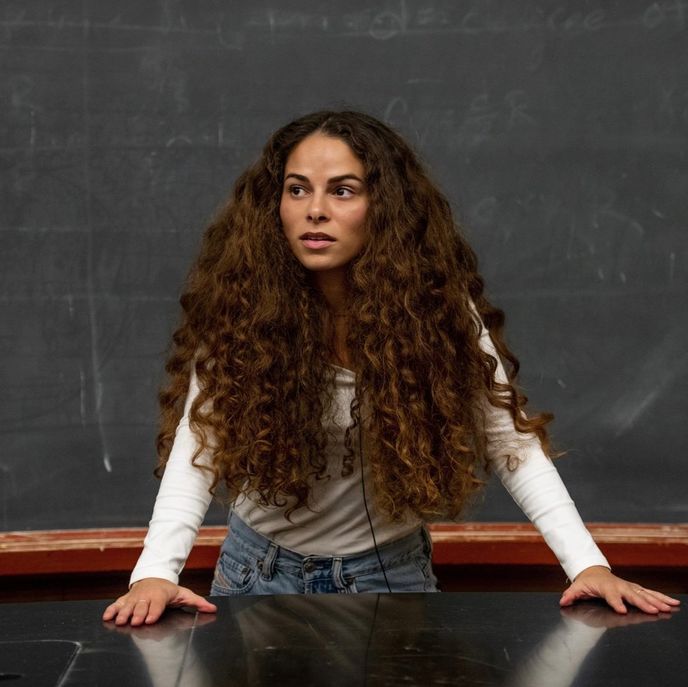
Sage Lenier
An antidote to climate doomerism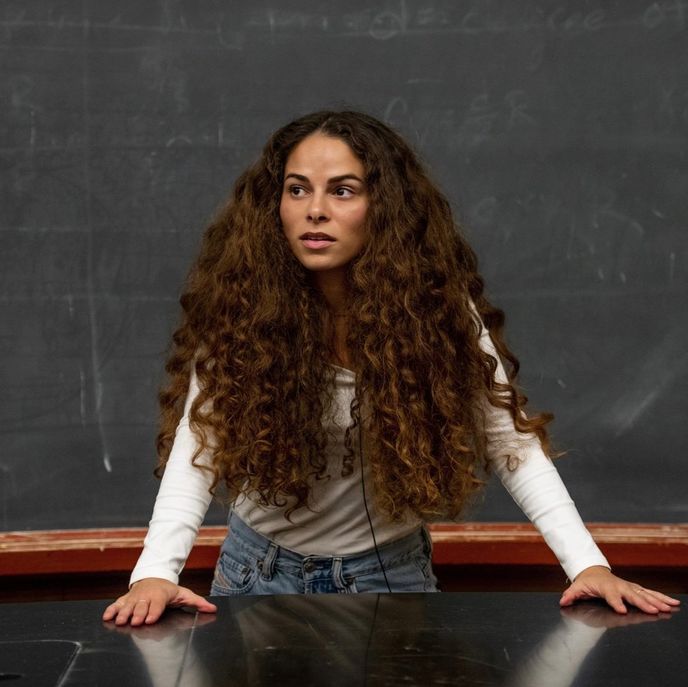
Sage Lenier
At age 19, Sage Lenier was so fed up with climate doomerism that she decided to take action herself. In autumn 2018, she launched a UC Berkeley course focused on the feelings of guilt and hopelessness surrounding climate change. The student-led course, Solutions for a Sustainable and Just Future, was so popular that it grew from 25 enrolled students to a 300-person lecture hall. Eventually it catered for 1,800 students.
Since then, Lenier’s programme has been launched by Zero Waste USA as a one-time course that participants can access virtually, and in February 2023, Lenier further expanded its focus and launched the programme as a non-profit organisation delivering her solutions-focused curriculum to universities, high schools, businesses and communities. Now, she plans to launch a podcast and a YouTube series, ensuring her courses are accessible to a larger audience.
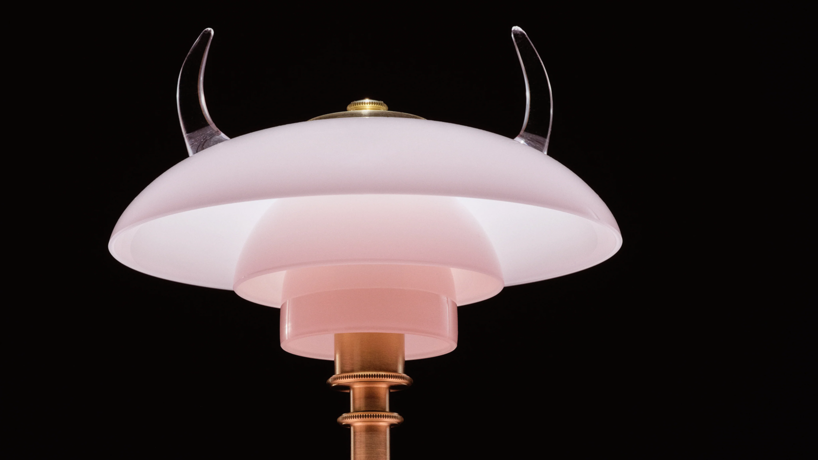
Peter Dupont and Breanna Box
Goth-inspired home furnishings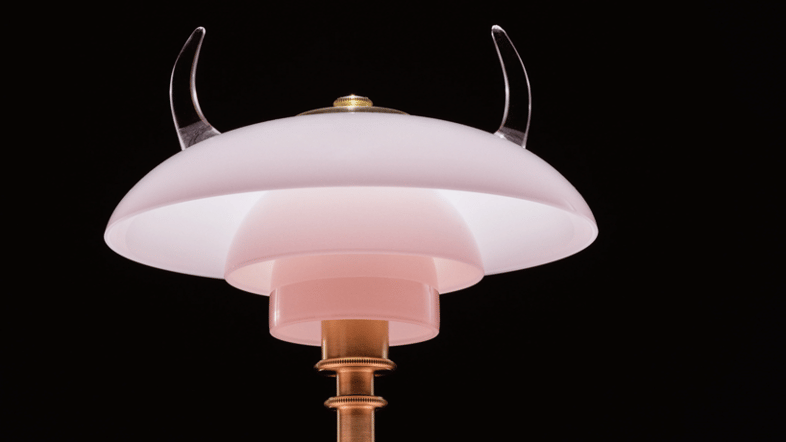
Peter Dupont and Breanna Box
Peter Dupont and Breanna Box are a Brooklyn, New York-based couple and the co-founders of Heven, a mix of object design inspired by theatrical prop styling. They view the world as a series of props and therefore decided to add their own humour, originality and functionality to objects.
With Heven, the pair aim to create works that make the home a happy domain to return to. From goth-inspired drip wine glasses to asymmetrical coffee tables, Heven plays with everyday items, giving them a surrealist, luxury makeover.
Danish brand Coperni already invited Dupont and Box to recreate its signature Swipe bag for its autumn/winter 2022 show, which was given the Heven makeover, including a set of devilish horns sitting atop a glass iteration of the bag – carried on the runway by supermodel Gigi Hadid. While the price point makes these items strictly a luxury affair, Dupont and Box’s creativity is worth the price tag, while their aesthetic will no doubt prove to be influential.
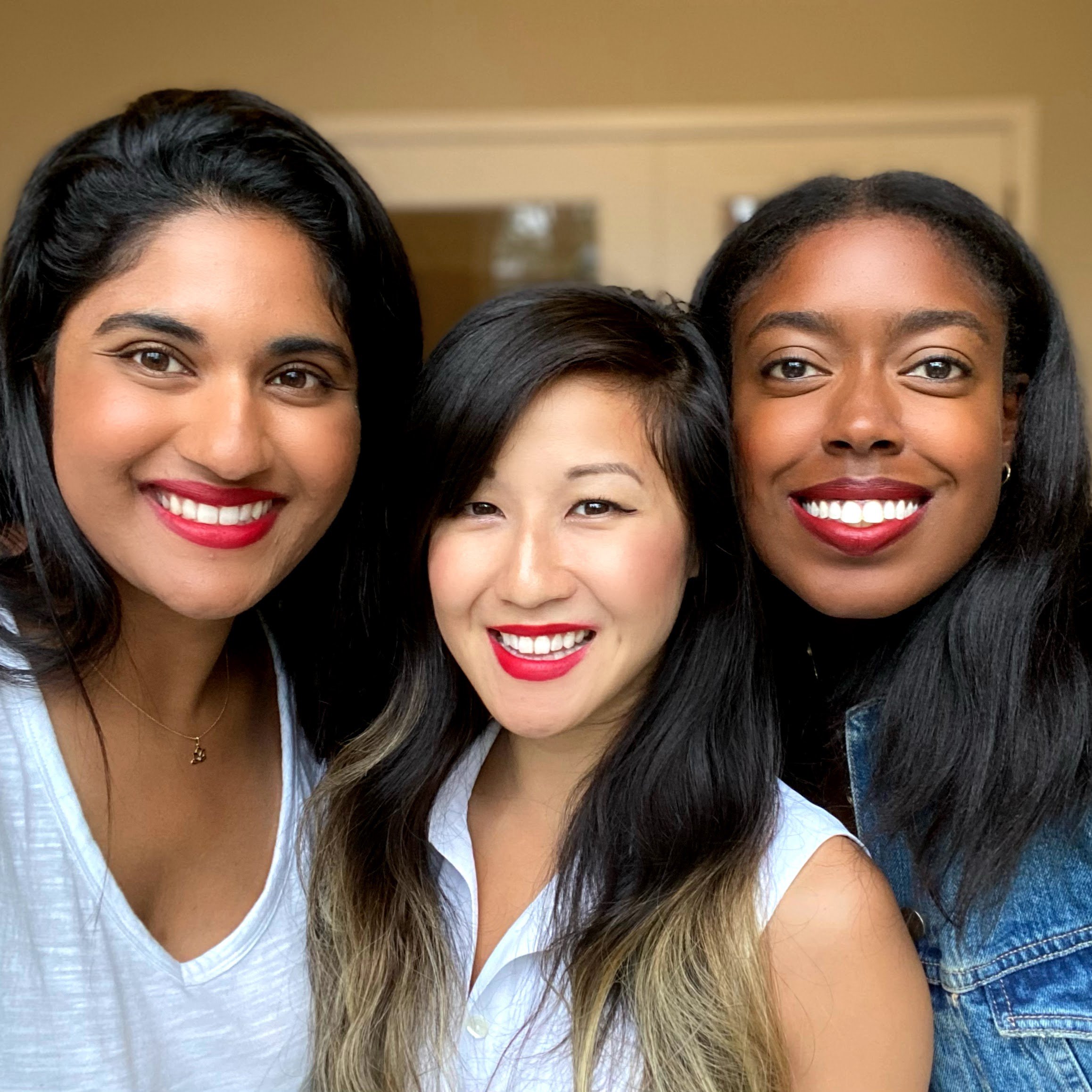
Janvi Shah, Nicole Clay and Sylvan Guo
Optimising user-generated content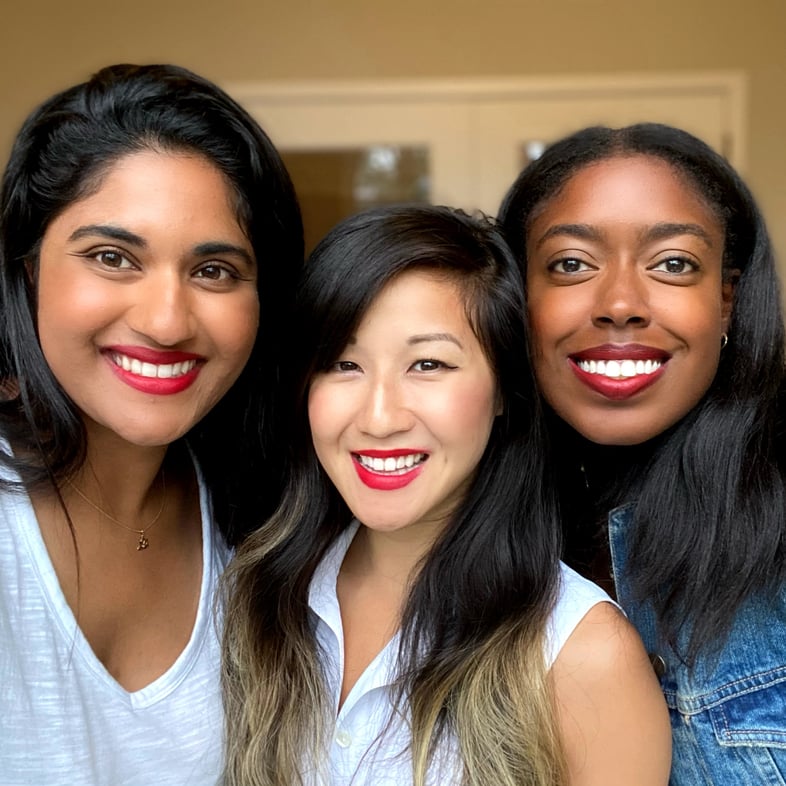
Janvi Shah, Nicole Clay and Sylvan Guo
Janvi Shah is the co-founder and CEO of Hue, an e-commerce technology platform on a mission to help all shoppers feel represented in their online shopping journeys. She co-founded Hue with two of her classmates, Nicole Clay and Sylvan Guo, while studying for her MBA at Harvard Business School.
Hue helps brands use authentic, customer-generated video reviews across all commerce channels. It is a response to the plethora of expert influencers, especially on platforms like TikTok. ‘Hue’s platform makes it easy for brands to create the people-first shopping experience that customers want to see,.’ Shah tells LS:N Global. Hue was launched in August 2022 with Credo Beauty, a leading clean beauty retailer, and has been growing rapidly since.
Hue’s community has grown to 2,000 highly engaged creators, proudly representing a diversity of gender, sexuality, age and ethnicity. Shah, who led the venture capital funding process, pitched to 70 investors before receiving her first yes. Now, she’s focused on expanding Hue to other categories including apparel and accessories.
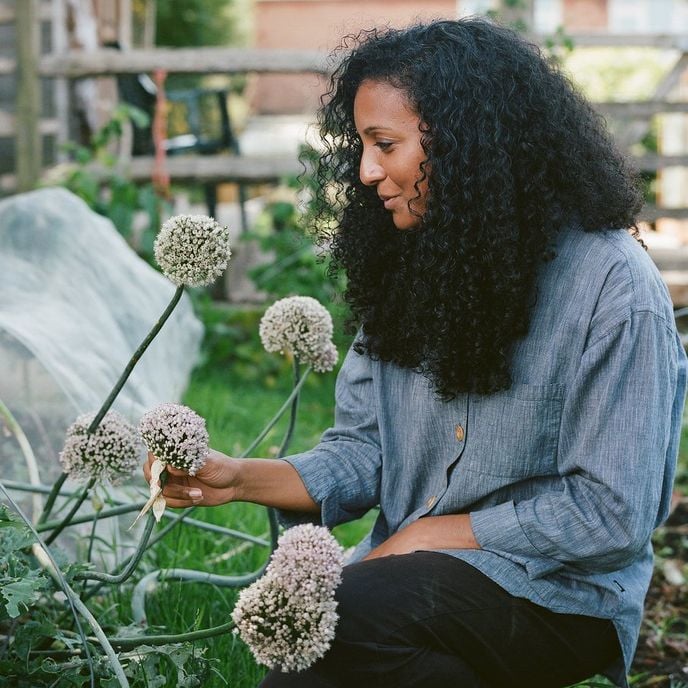
Claire Ratinon
A homecoming through soil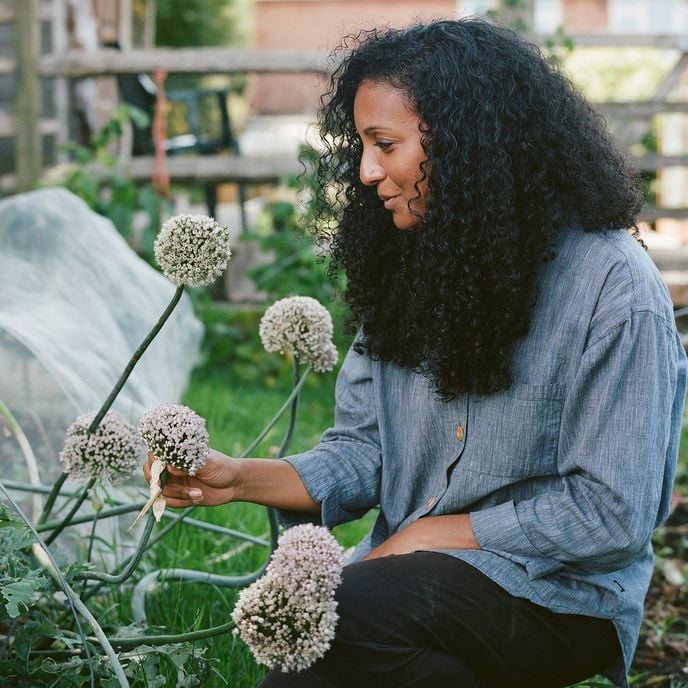
Claire Ratinon
Claire Ratinon is an East Sussex, UK-based organic food grower and writer. She has grown organic vegetables for renowned chef Yotam Ottolenghi’s London restaurant as well as his other London eatery, Rovi. She has also previously shared her growing journey in talks at organisations including The Barbican, Tate Liverpool and more.
In June 2022, she wrote Unearthed: On Race and Roots, and How the Soil Taught Me I Belong, a powerful memoir that builds a connection between Ratinon’s diasporic identity and the power of the natural world. It also looks at how food-growing intersects with environmentalism, colonialism and the climate crisis. The book helped Ratinon find a sense of homecoming, defiant ancestry and deep purpose in the company of the roots, leaves and fruit she grows

Lydia Pang, Maria li and Sophia Li, Steward
Bridging the gap between climate change and Web3
Lydia Pang, Maria li and Sophia Li, Steward
Steward is a global digital art collective that connects eight global artists with eight major eco-systems of the natural world in order to fund eight climate non-profit organisations – with a focus on conservation and Indigenous communities. It was co-founded by New York-based multimedia journalist Sophia Li, Singapore-based start-up leader Maria Li and Lydia Pang, who lives in Wales and is a co-founder of creative strategy studio Morning.
Steward lives at the intersection between climate solutions and decentralised Web3, a position it has called Climate 3.0. It looks at Web3 as a response to centralised capitalism, monopolised hyper-consumerism and extractive colonialism. ‘Web3 and blockchain technology are tools to further climate solutions by infusing the principles of transparency and decentralisation,’ the co-founders tell LS:N Global. It uses on-chain digital art to close the funding gap. The founders also prioritise bringing marginalised communities and artists on board.
Steward follows the belief that the convergence of physical and digital worlds is the biggest transition of the 21st century. According to Li, Li and Pang, the current digital landscapes is at odds with nature, and they hope Steward can bridge this gap. They believe humanity should be at the centre of engineering algorithms and turn to their own identities as women of colour to guide their future endeavours.
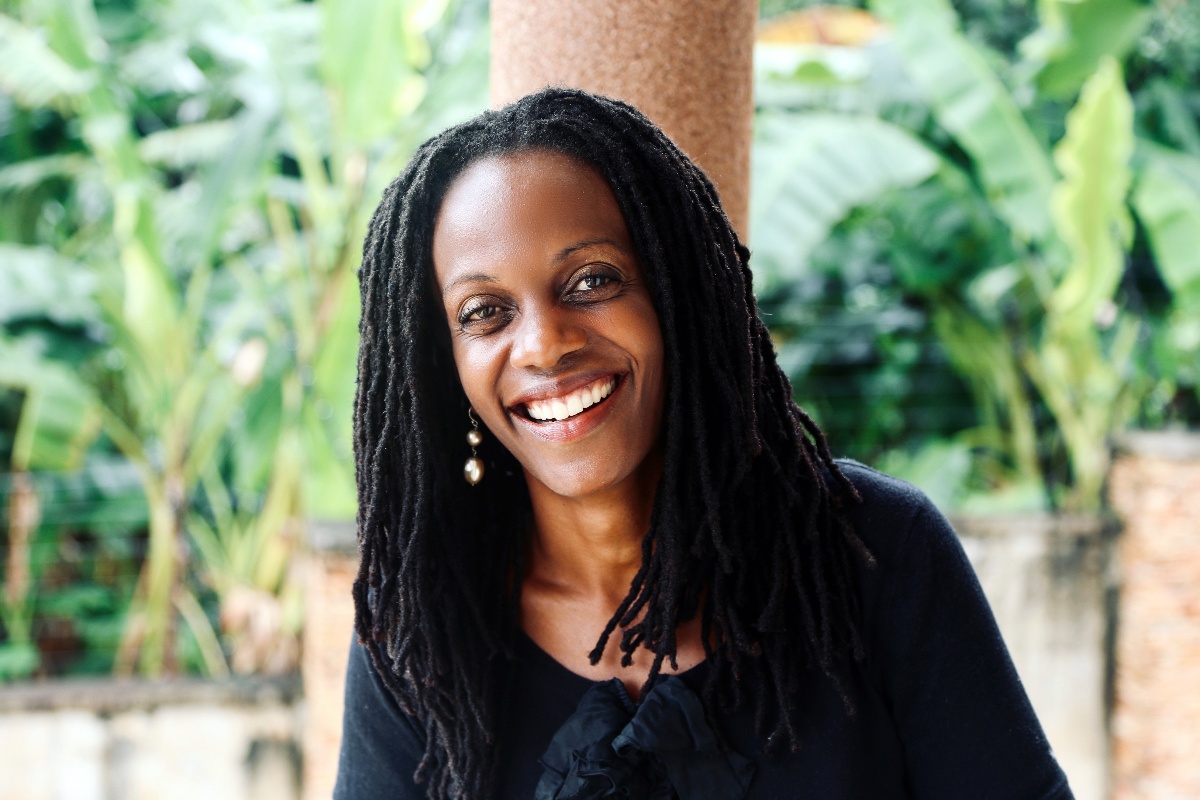
Dr Catherine Nakalembe
Using satellites and machine learning to future-proof African farming
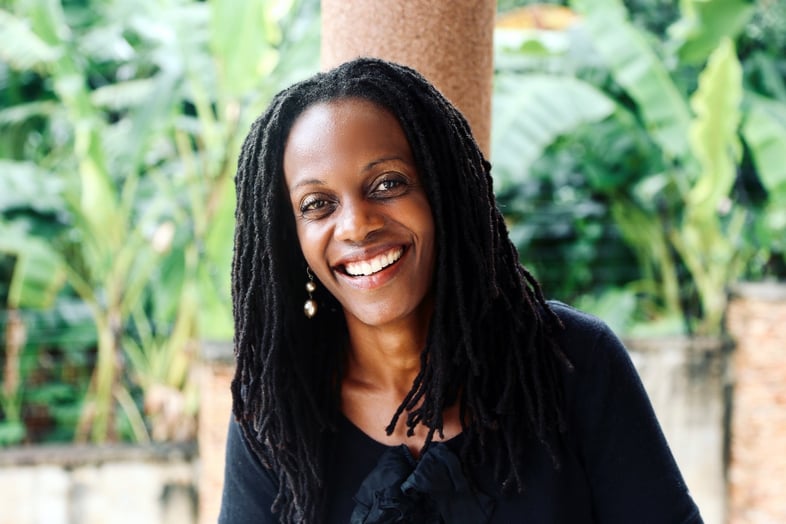
Dr Catherine Nakalembe
As Africa programme director at NASA Harvest, Catherine Nakalembe is working to secure the future of crops and farming across East Africa – with a little help from satellites and machine learning.
Recipient of the 2020 Africa Food Prize, Nakalembe’s work is protecting farmers from crop failure at a time when the climate emergency is pushing farming further north and demanding radical technological interventions combined with people-centric solutions. Her work with NASA uses data from farmers and satellite imagery to ascertain how crops are faring in countries such as Tanzania, Uganda and Kenya, giving instant insight to governments and helping to mitigate food shortages where crop failures could occur.
Now, Nakalembe is creating a framework that will unite her research and knowledge gained so far, with the ambition that countries will use it to launch their own crop-monitoring systems or early warning systems using satellites and on-the-ground data.

Leanne Elliott-Young
Democratising luxury and building an inclusive metaverse vocabulary

Leanne Elliott-Young
A response to the patriarchal structures, lack of diversity, failing innovations and bland activations in the fashion tech sector, the IoDF recognises the need to use technology to democratise and elevate digital fashion and luxury as a form of artisanship in its own right, both now and among future generations of fashion designers, luxury houses and consumers.
To grab the luxury market’s attention, the IoDF has worked on a number of inclusive activations, including a red carpet takeover at the 2021 Fashion Awards; creating a world-first meta-garment moment then minted as a historic NFT. The augmented reality (AR) accessory worn by all those attending as well as those at home opened up the conversation between creators and collectors about the future of digital fashion and the metaverse at the intersection of IRL and URL. Taking a tiered structure allowed entry-level accessible NFTs at prices starting from £17 ($22, €20). Of note, a third of all IoDF projects have so far been philanthropic.
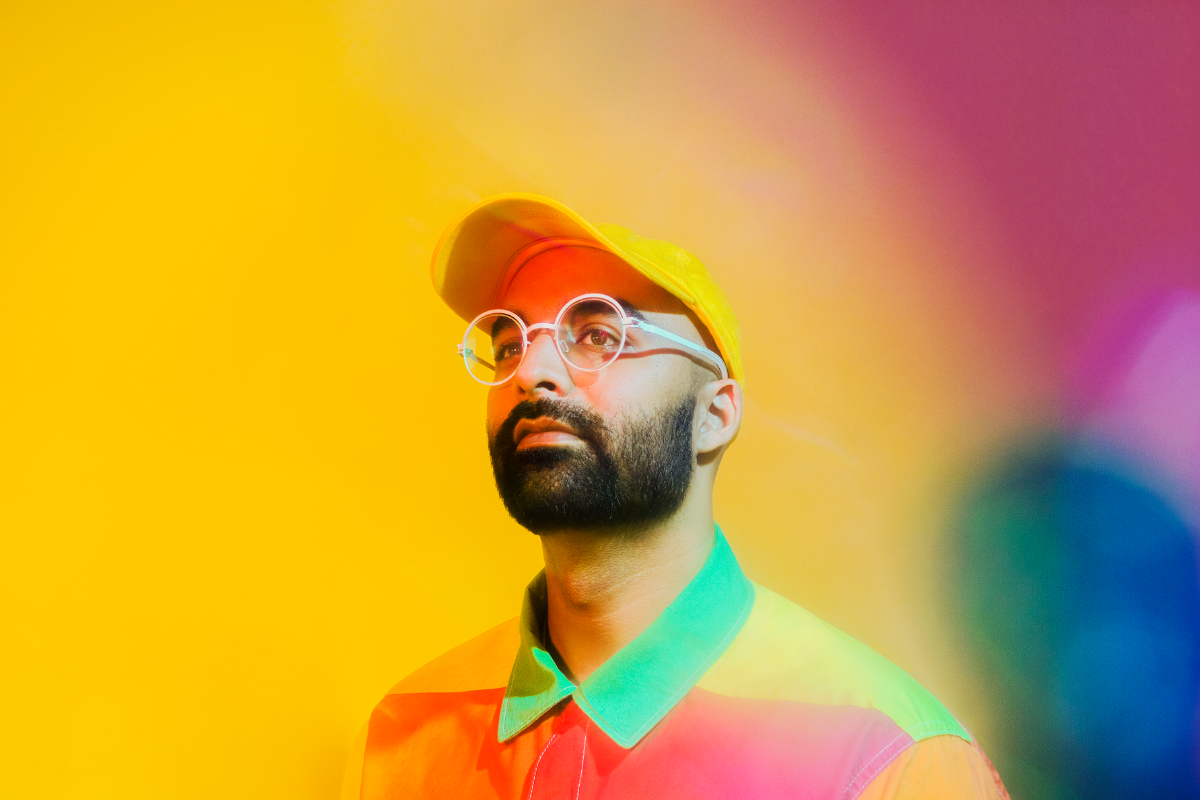
Ritesh Gupta
Championing representation for people of colour in the design sector
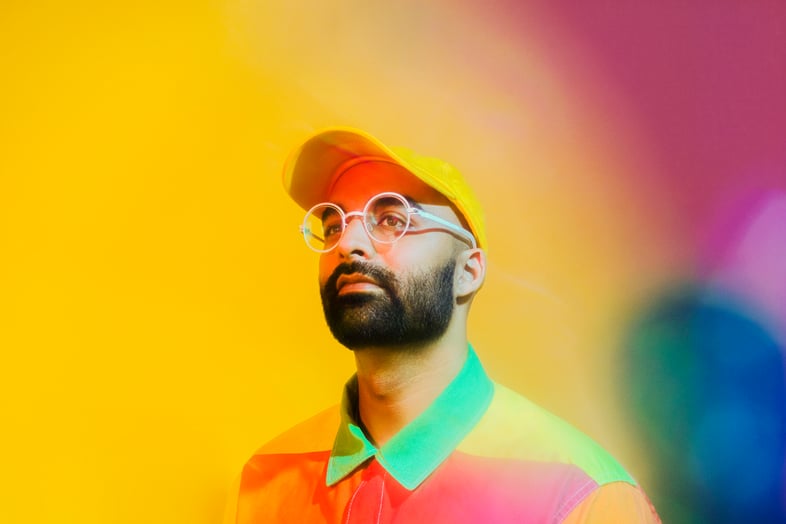
Ritesh Gupta
In response to the lack of representation in the design industry, Ritesh Gupta is behind the creation of Useful School, an online design curriculum that focuses on people of colour. Through the school, he wants to ensure that those who design products are as present, involved and visible as those who use them. This extends as far as the fonts used by Useful School – created by people of colour – to crowdsourcing support and mentorship for students of colour entering the world of work.
In addition, Useful School has a pay-what-you-can model for its students, democratising access to both education and future roles in the design industry. ‘Useful School is on a mission to increase representation of people of colour in creative industries, while having fun doing it,’ says Gupta. ‘We want to increase the total talent pool as well as improve chances of promotions and opening practices.’

Nicole Jonasson and Ida Lissner
Fostering a more inclusive tech space

Nicole Jonasson and Ida Lissner
Digital designer Nicole Jonasson and 3D artist Ida Lissner are the co-founders of Softer, a work-in-progress platform committed to promoting values such as care, empathy and community in order to create a more inclusive environment in the tech sector.
‘We’re so used to thinking about tech as always having to be better and faster, that it’s the solution to every problem. Soft values are often neglected in this field, so we’re trying to shift the focus towards slowing down and taking care of each other,’ Lissner tells Editor X.
When they’re not re-imagining the possibilities for how websites can look with futuristic san serif fonts and 3D design, the pair can be found hosting live-streams, virtual exhibitions, and recently, the network’s first real-life event. Panellists came together at the gathering, Softer Digital Futures, to discuss softer visions for tech and how to challenge existing issues in the industry.
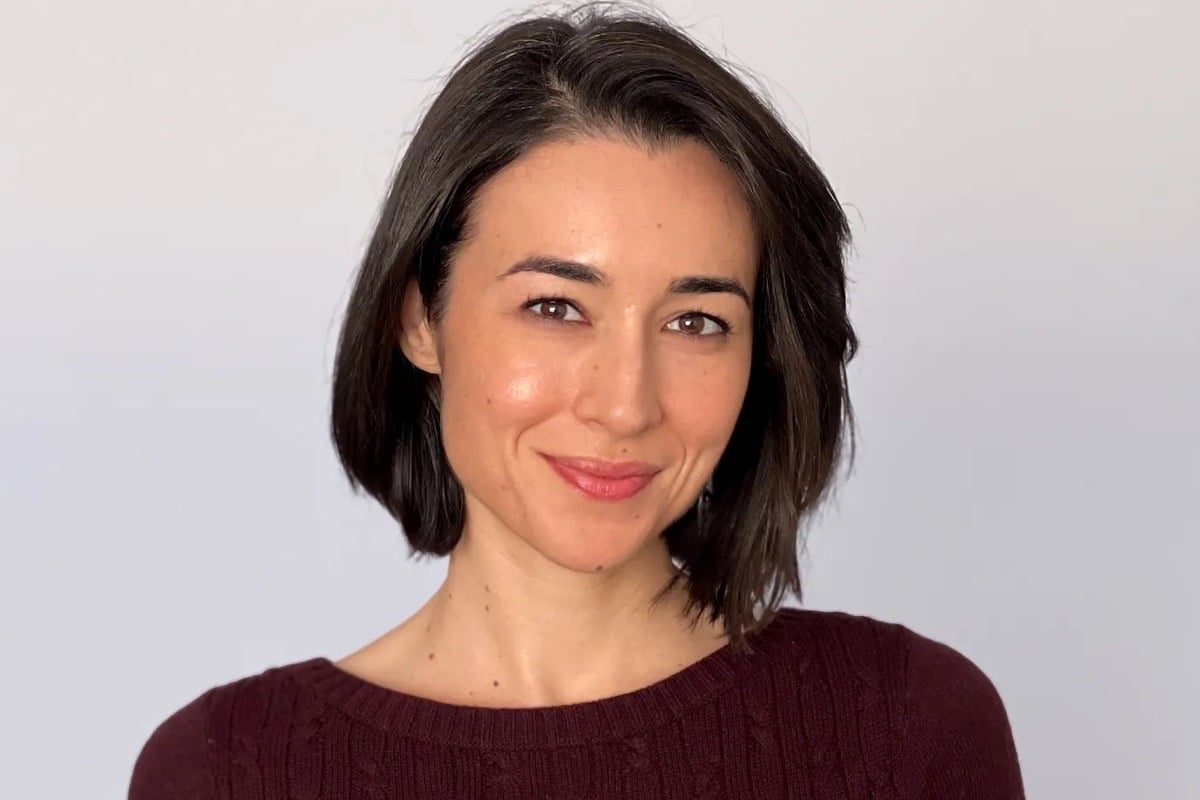
Jasmina Aganovic
Using biotech to re-engineer ingredients and experiences
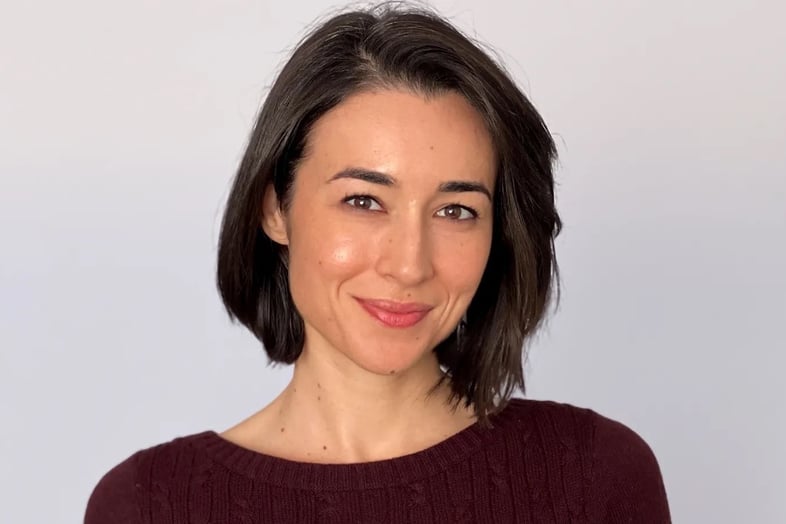
Jasmina Aganovic
Jasmina Aganovic is an MIT-trained chemical engineer and founder of Arcaea, a biotech beauty company that is aligning nature and science to expand the potential of ingredients in the skin, hair and cosmetics categories.
Having recently raised £59m ($78m, €70m) in funding from companies including Chanel and Givaudan, Aganovic and her team of mostly women scientists use fermentation, DNA sequencing and biological engineering to create new chemical substances for skincare, haircare and cosmetics.
‘Over my career, I’ve witnessed growing challenges and limitations in the ingredients we use,’ explains Aganovic. ‘I became inspired by biology because it presents entirely new possibilities and solutions to the big problems facing our industry.’ In turn, Arcaea’s ambition is to create a future of beauty ingredients that are less environmentally impactful and resource-heavy, while also unlocking previously unimaginable products; for example, formulas that turn straight hair curly, draw from animal biology to advance SPF or help us to control body odour.
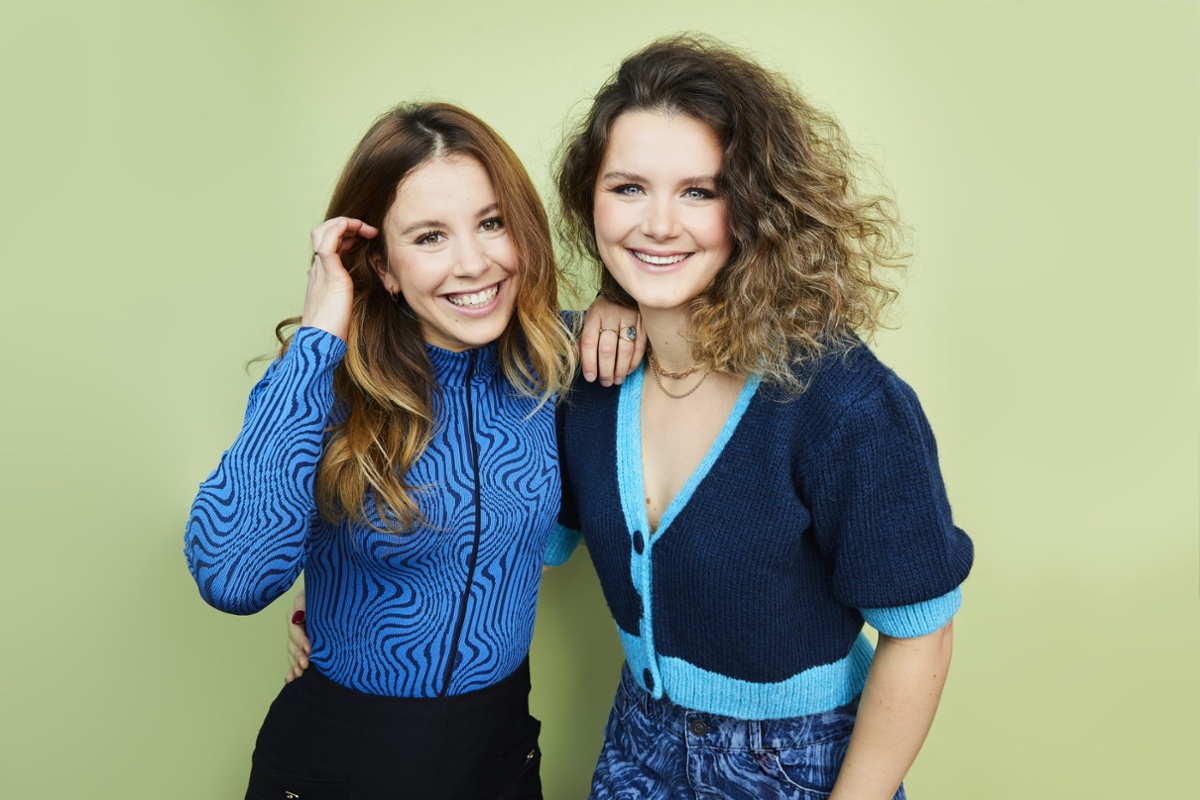
Alexia and Margot de Broglie
Creating a one-stop-shop for women’s financial education
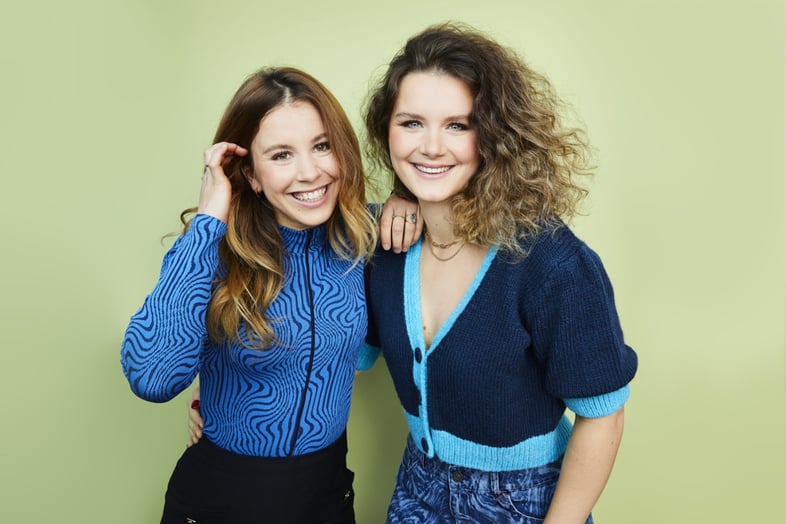
Alexia and Margot de Broglie
These sisters are the brains behind Your Juno, a UK-based fintech company they launched in 2020. As a financial education and community platform for women and non-binary people, Your Juno acts as a reference point for anyone who has a question about money – a key aspect of adulthood that is often forgotten in the mainstream education system.
Described as the ‘Duolingo of finance’, the sisters are using gamification to make the financial experience more playful, which is especially important at a time when only 33% of women see themselves as investors (source: Fidelity). Having both worked in the finance industry, they have first-hand knowledge of this gender gap: ‘[If] you look at cryptocurrency… women only make up 7% of cryptocurrency holders,’ explains Alexia de Broglie. ‘The divide is getting bigger and bigger and it’s really important that we tackle that as soon as possible.’

Supreet Raju
Promoting food education in the Betterverse

Supreet Raju
While restaurant chains from McDonald’s to Panera have been experimenting with marketing stunts in the metaverse, Supreet Raju is seizing the opportunity to create an entire virtual world centred on food. Together with her husband, Raju co-founded OneRare, a virtual platform described as ‘the world’s first food metaverse’.
Launching with a food game focused on collecting non-fungible token (NFT) ingredients, OneRare has ambitions to become a platform promoting greater access to and awareness of food and cookery. The platform currently hosts four areas, including a virtual farm for learning about food-growing, a kitchen to discover recipes and a playground for NFT owners to do battle through mini-games.
In future, Raju hopes to expand OneRare to augment real-world food access. She says: ‘As we grow, users will also be able to swap these NFTs for real meals and deals – amalgamating our real and virtual lives.’

Marty Bell
Cultivating community to redefine the travel sector

Marty Bell
Although holiday-themed radio station Poolsuite might look like it stems from sunnier climes, its founder Marty Bell dreamed up the concept as a form of escapism on a winter’s day in Scotland.
This spirit has underpinned a number of initiatives emerging under the Poolsuite banner, including sunglasses and Vacation, a retro-inspired suncream that 'bottles summer'.
Now, the self-described 'internet leisure corporation' has its sights set on physical hospitality experiences with the formation of a decentralised autonomous organisation (DAO) collective known as Manor DAO.
Bell’s aim is to crowdfund the purchase of a luxury guesthouse somewhere in Europe. By empowering Manor DAO members to make key decisions about ‘everything from the location of the manor to the interiors’, Bell sets an example to the wider travel and hospitality sector in the power of cultivating community and the tech-first future of hospitality. As well as informing these key decisions, backers will earn allocated time slots to stay at the guesthouse, highlighting the real-life benefits to investing in Web3.
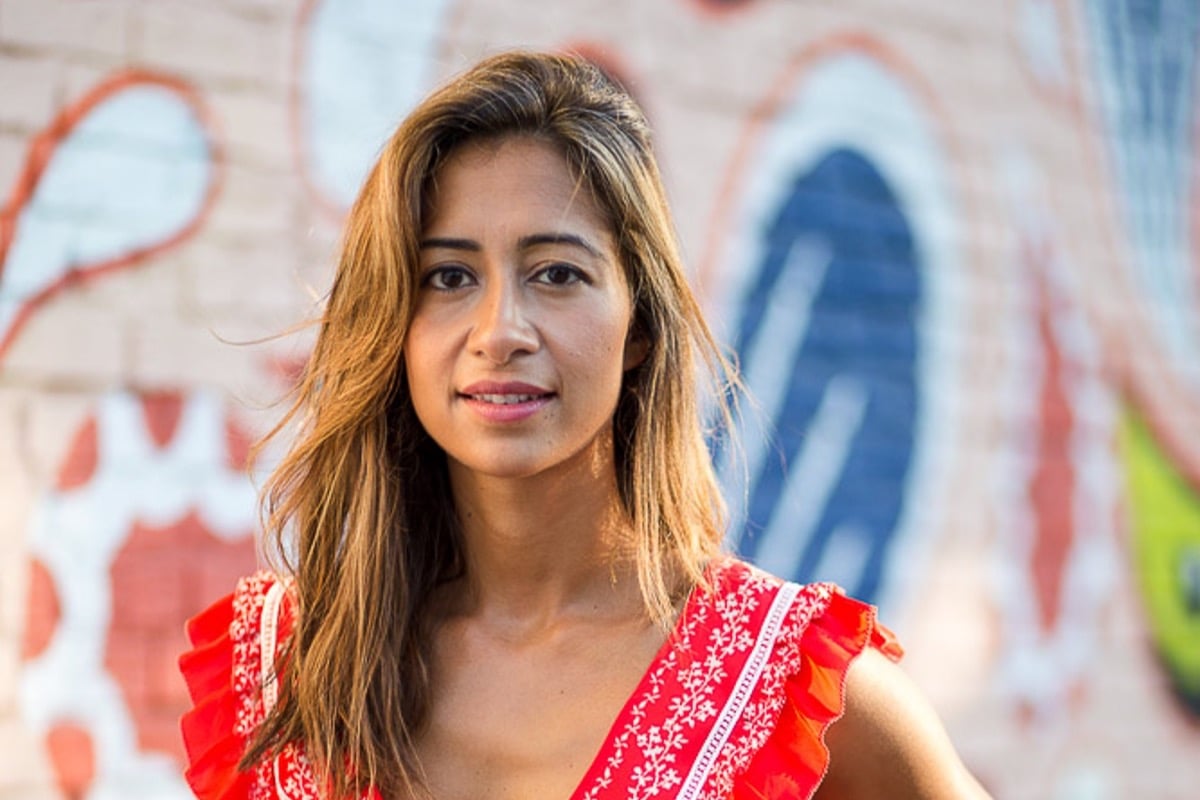
Harsha L’Acqua
Boosting skills and career opportunities for overlooked people
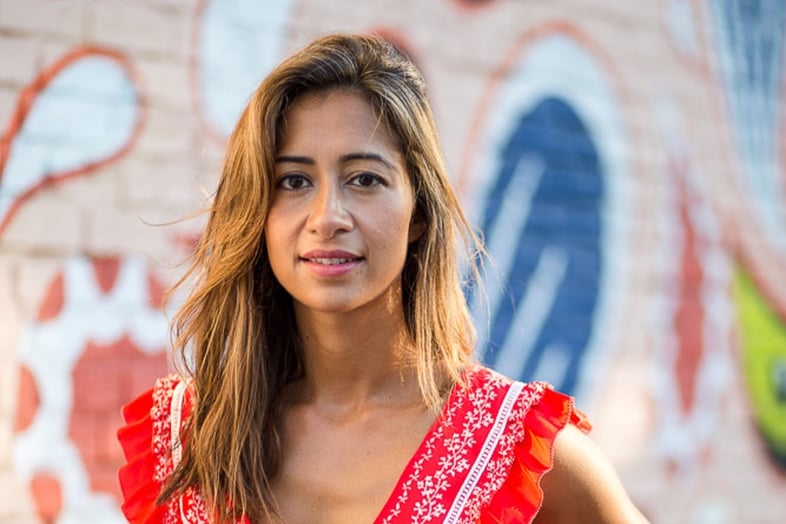
Harsha L’Acqua
An alum of Six Senses Hotels and Aman Hotels, Harsha L’Acqua is combining her experience in luxury hospitality with inspiration drawn from her father’s philanthropic career to create Saira Hospitality. This non-profit organisation partners with the world’s leading hospitality brands – including The Standard, Four Seasons and Rosewood Hotels – to give local people and those from overlooked communities access to skills and knowledge as a gateway to a career in the sector.
Having launched with pop-up programmes hosted at hotels, in 2022 Saira Hospitality will open its first permanent school in the UK, with partner hotels including The Hoxton, Nobu Hotel Portman Square and Town Hall Hotel offering life-changing opportunities for those who need them most. Crucially, Saira’s work will also help to counter the staffing crisis that has hit British hospitality during the pandemic.
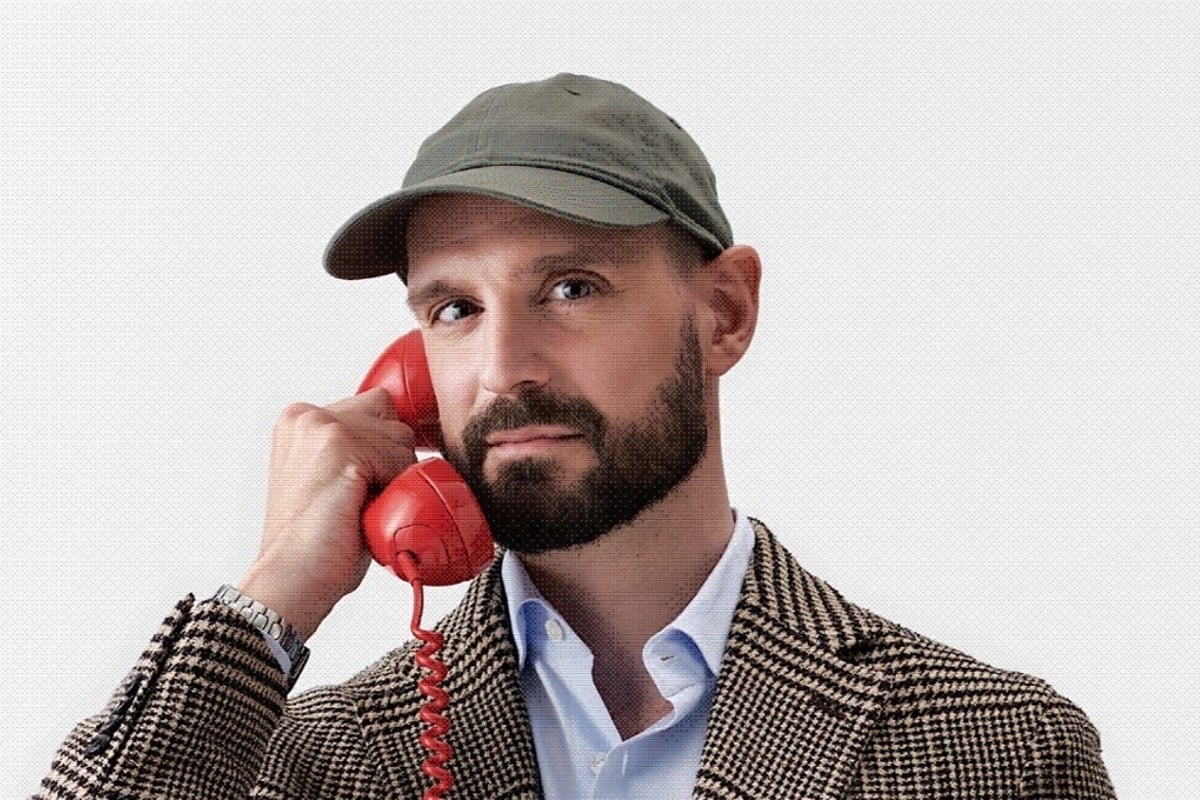
David Orlic
Connecting people via an audio advice network
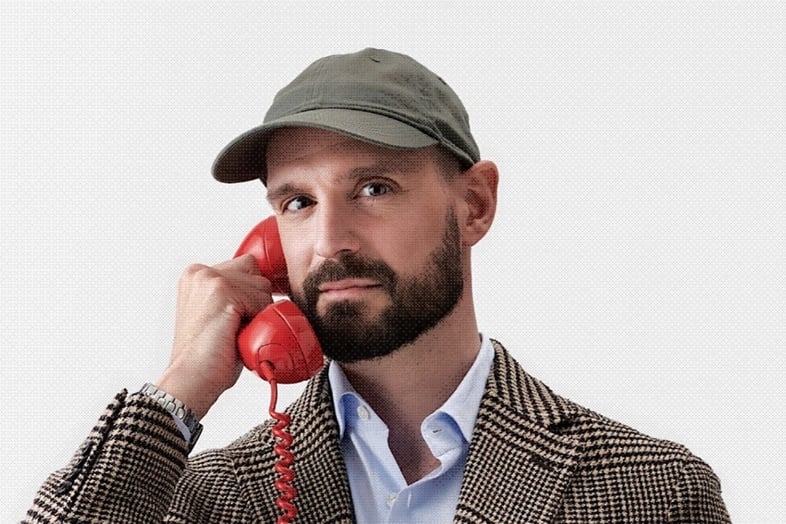
David Orlic
Imagine calling anyone in the world to ask for advice. That’s the premise behind Anyone, a platform co-created by David Orlic that gives people exactly five-minute phone calls in which they receive advice.
Anyone is the product of several converging social trends: the rise of audio as a medium of communication, the growing global market for talking therapy, the rise of bite-size learning platforms, and the time-pressed lives that many people lead.
By championing convenience, Anyone’s non-visual interface also seeks to be less threatening, making micro-mentoring more accessible for both users and givers. ‘Our belief is that there are a lot of five-minute problems that we could be solving – whereas there are a lot of 30- or 60-minute problems that have solutions designed for them already. So we’re kind of building this for those conversations that aren’t happening,’ Orlic tells Tech Crunch.
There’s also potential, Orlic notes, for Anyone to become a sounding board for personal concerns – something that could connect people with advice if they aren’t able to speak to friends or family. ‘[Some] people will call a lot of people and ask them basically the same question or bounce ideas… it’s like building an advisory board for yourself.’
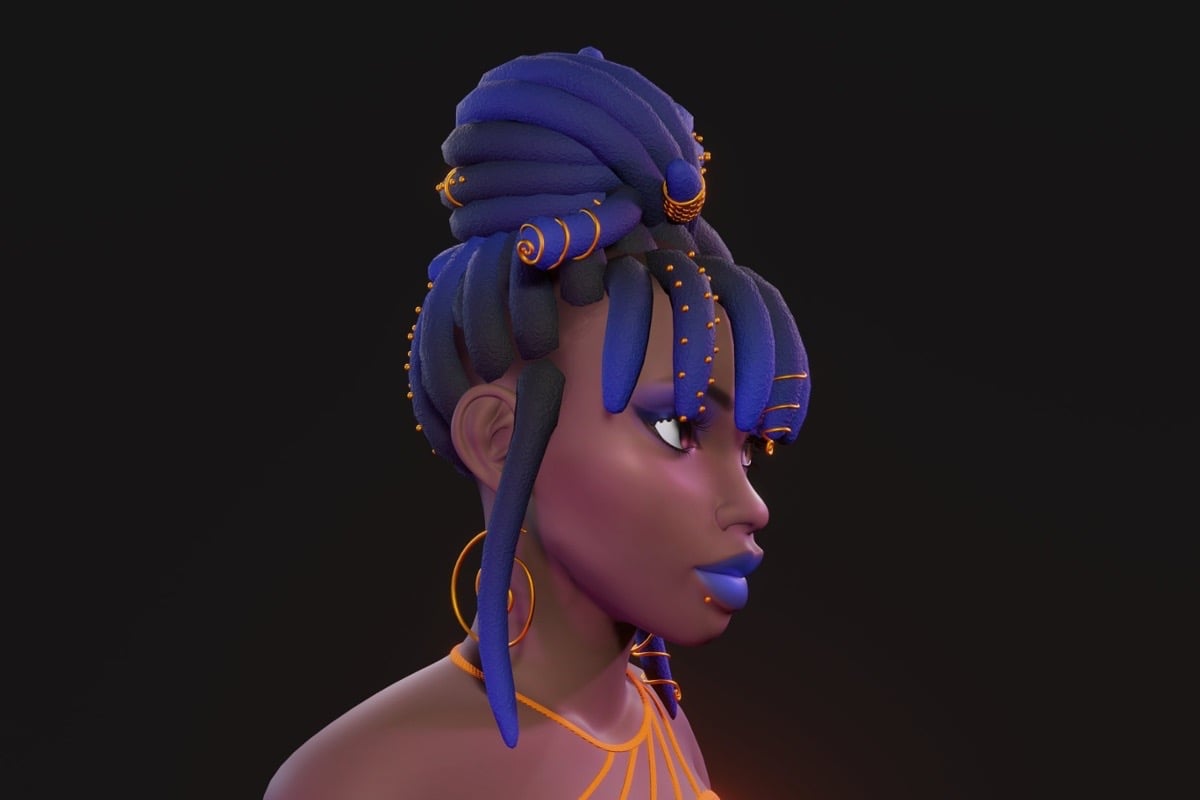
AM Darke
Building tools to boost diversity and representation in gaming and virtual realms
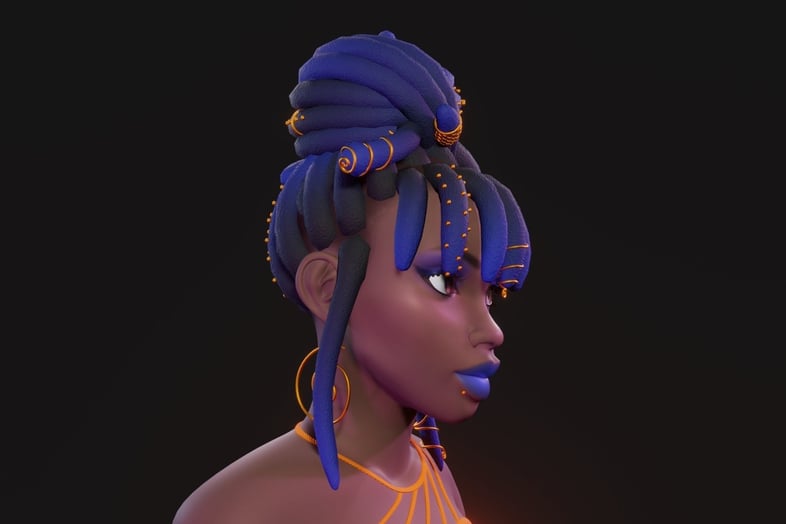
AM Darke
AM Darke is an artist and game-maker who is designing radical tools for social intervention in the avatar and gaming space – in particular where Black identity and beauty are (or largely aren’t) represented. Darke’s current project, the Open Source Afro Hair Library, is working to promote greater inclusion, diversity and representation of natural Black digital media and gaming, challenging the cis, white male game-makers and designers of Silicon Valley and beyond.
Gathering public submissions of hair styles to build a 3D model database of Black hairstyles and textures, Darke writes: ‘It is a feminist, anti-racist resource for digital artists and 3D content creators… By making the Afro Hair Library free and open-source, it can have a broad impact on relevant industries and eco-systems by lowering the barrier for all creators – both hobbyists and professionals – to integrate accurate, diverse and respectful representations of Blackness in digital media.’
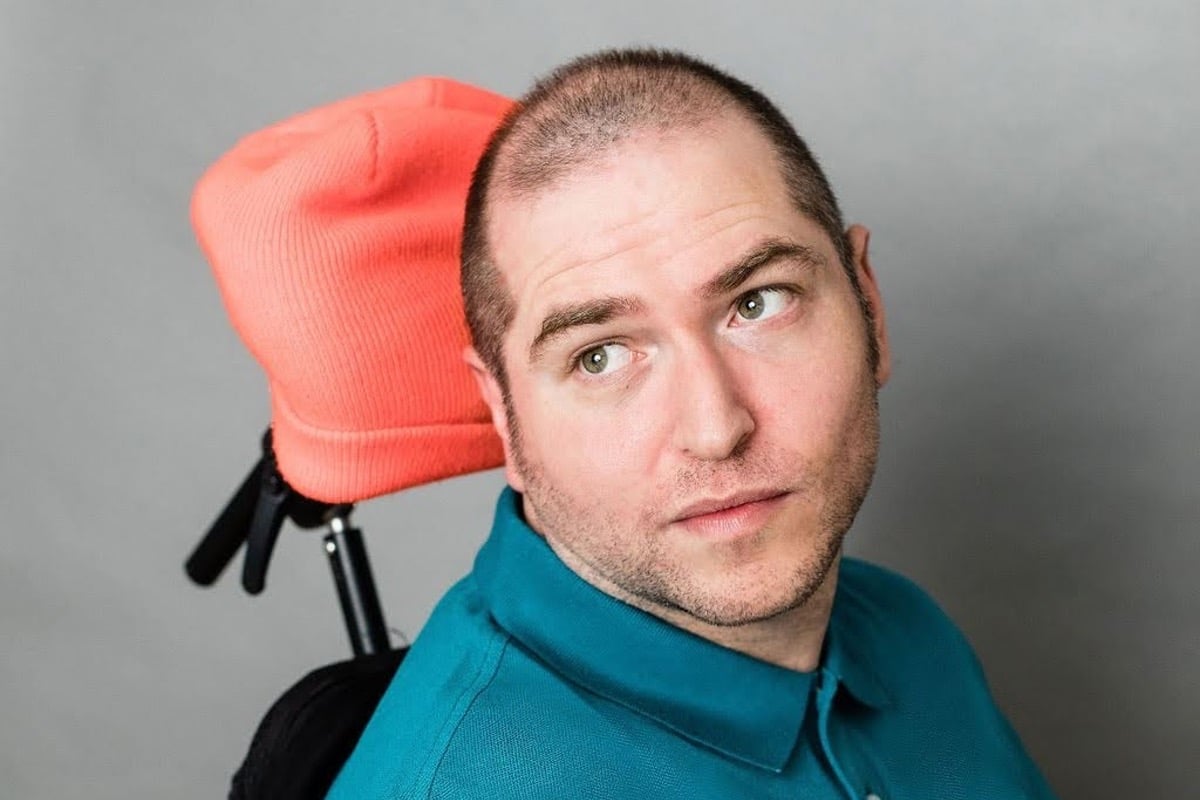
Andrew Gurza
Transforming how the world understands sexuality, pleasure and intimacy
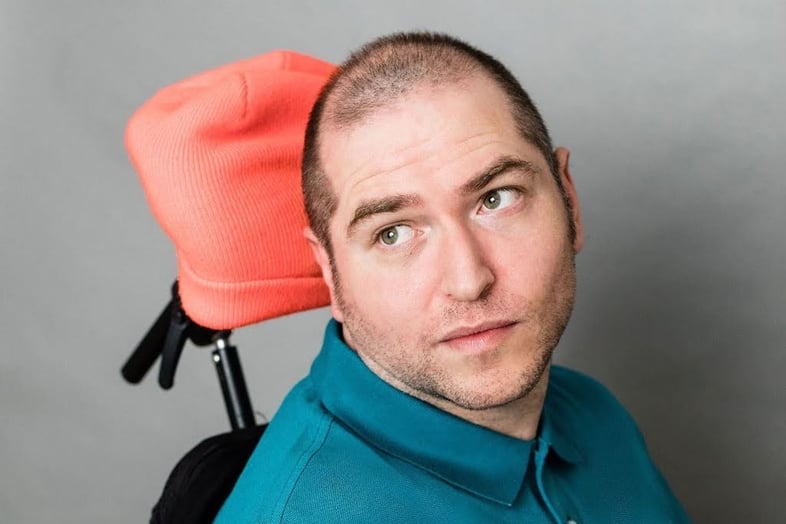
Andrew Gurza
Unapologetically honest about how the lived experience of disability feels, Andrew Gurza is a consultant, writer and co-founder of sex toy company Bump’n. From his own blog, social media channels and Disability After Dark podcast, Gurza shares stories of life as a queer, disabled man, from conversations about body image, care and loneliness, while using Disability After Dark to explore parts of the disabled experience that the public rarely hear about, such as sexuality, pleasure and intimacy.
With the recent launch of Bump’n, Gurza is co-driving a brand of sex toys for people with hand limitations. Its flagship product, the Joystick, is designed for people with hand dexterity, weakness or mobility issues, or those who want a hands-free experience. Emphasising that sexual pleasure is a human right, Gurza is breaking down barriers – whether conversational, emotional or physical – around ableism, sexuality, identity and pleasure.
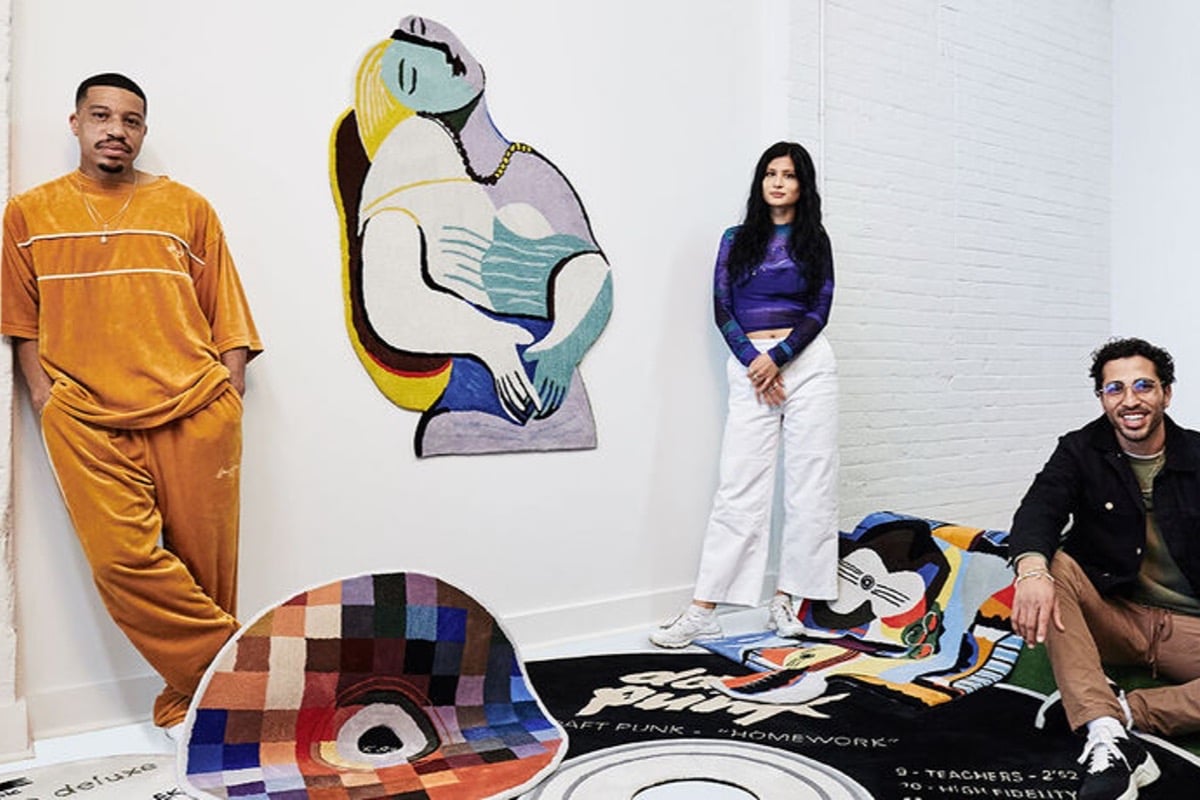
Sean Brown
Democratising access to well-designed architecture, interiors and objects
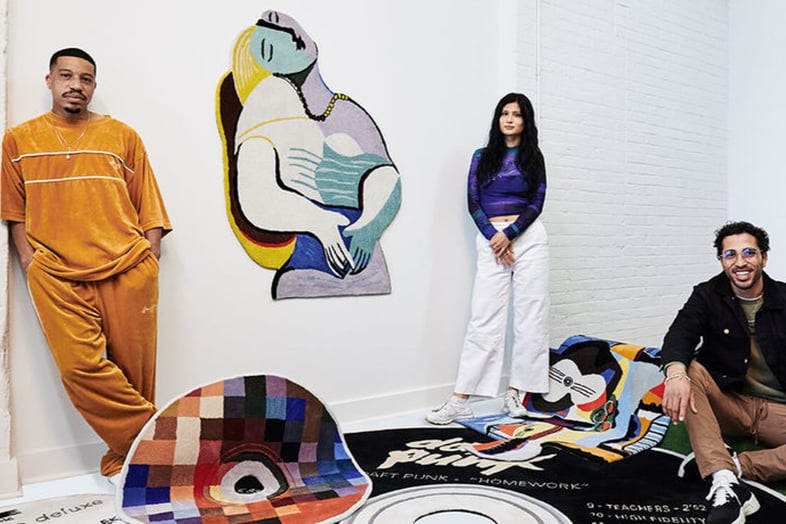
Sean Brown
A multi-disciplinary creative, Sean Brown explores how we interact with objects and spaces within their wider social or environmental context. Indeed, Covid-19 was the spark for Brown’s homeware brand, Curves by Sean Brown, which emerged following two intersecting moments: Brown moving into a new home as the pandemic hit, and lockdown bringing his creative collaborations to an abrupt standstill. ‘It forced me to look at my dwelling, get in touch with my space and just evolve in that way… I really started to see how space and function with objects worked for me,’ he explains. The result is a line of accessible homeware, from home-made rugs that pay homage to 1990s hip-hop records to puzzles and incense that help people to find peace at home.
Concurrently, Brown’s project Hypatia Space is examining the experience of people with disabilities in their homes, and how to create functional yet design-led spaces that don’t discriminate. ‘They’re spaces designed with intent where creativity and function intersect,’ he says.
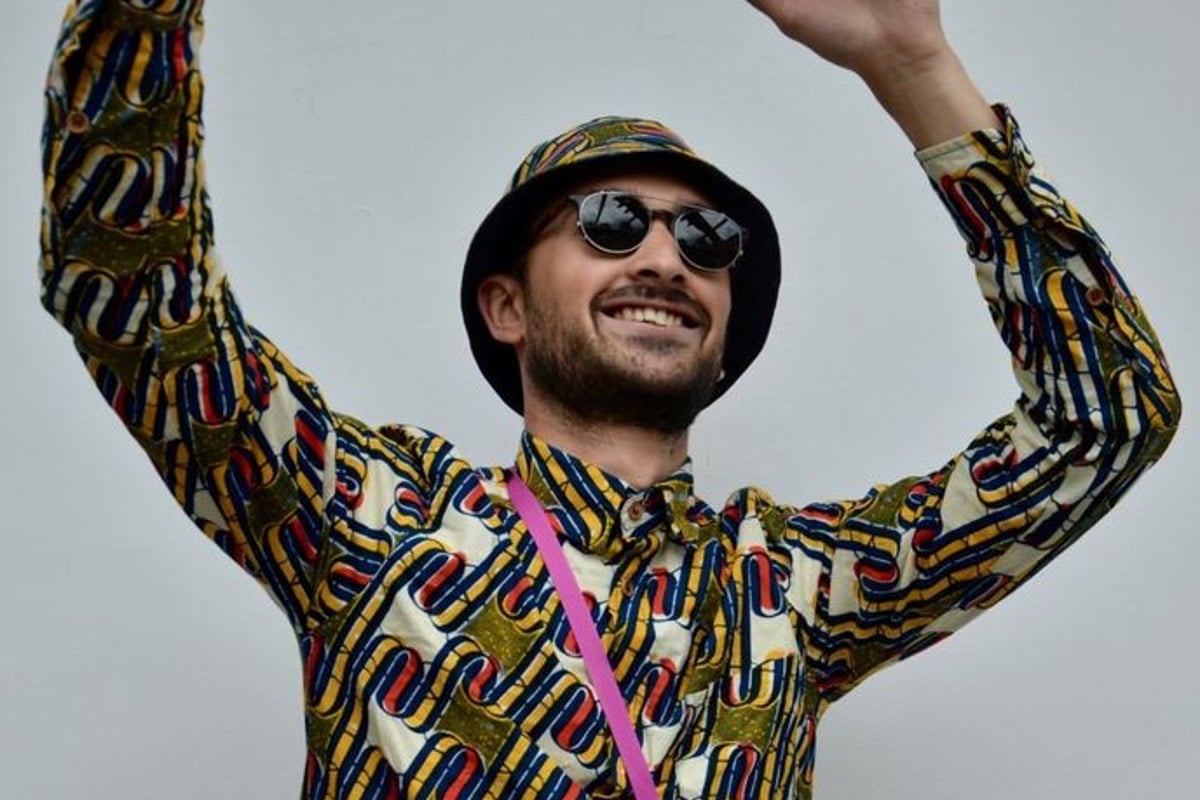
Hadi Ahmadzadeh
Championing re-usable cups to transform the festival industry
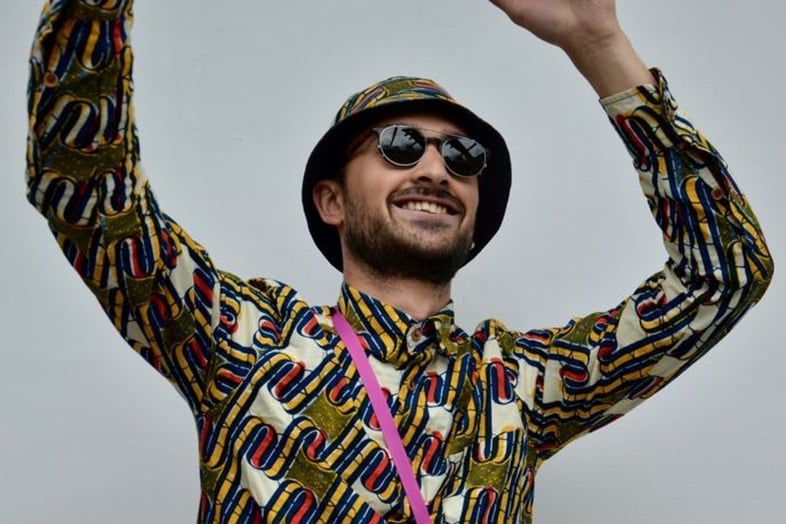
Hadi Ahmadzadeh
Hadi Ahmadzadeh represents a new generation that are problem-solving from the inside out. Attending clubs, parties and festivals in the UK, he was able to see a huge problem in the industry – that of widespread single-use plastic waste, from drinkware to décor. Deciding to make and drive industry change, he co-founded Ecodisco, a solutions provider-turned-sustainability consultancy that is helping to make clubbing and festivals greener through a re-usable cup system.
He recently won funding from Innovate UK to design and pilot this re-usable cup rental system, and it has been trialled at smaller UK festivals, with a £1 green fee charged to ticket buyers at each event that covers the cost of delivering, collecting, washing and storing Ecodisco’s re-usable cups on behalf of venues or promoters. ‘The system has the potential to prevent over 100m single-use plastic cups from entering incineration or landfill and also saves venues money,’ Ahmadzadeh explains.
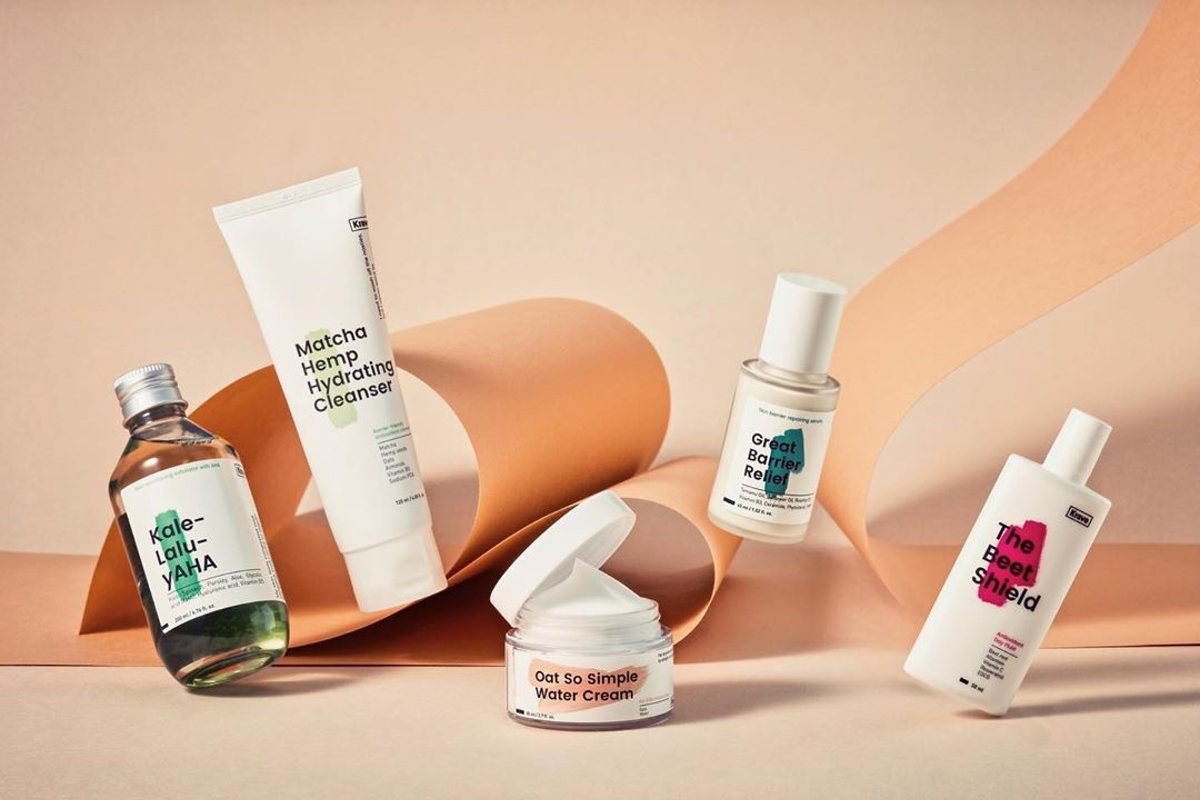
Liah Yoo
Humanising venture capitalist culture for a more sustainable beauty industry
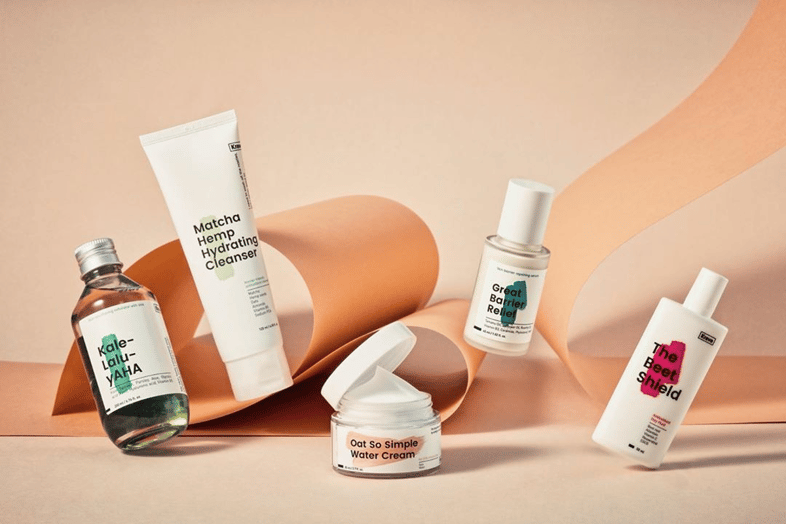
Liah Yoo
After launching direct-to-consumer brand KraveBeauty, which helps people to focus their skincare routines in an ever-more saturated and consumption-driven market, Yoo is now turning her attention to the industry’s untenable approach to growth.
She is behind Press Reset Ventures, which has emerged to fight the rise of venture capitalist (VC) culture in the beauty sector. Indeed, many independent beauty brands come under pressure from investors to expand and accelerate beyond customer needs, or to grow with acquisition in mind. ‘I’ve seen many peer founders devote efforts to please investors rather than serving their key stakeholders – customers, employees and the environment,’ she says. Beginning with a £745,000 ($1m, €889,000) fund, Yoo will invest in and mentor new businesses focused on measured growth, inclusivity and sustainable innovations and practices in beauty.
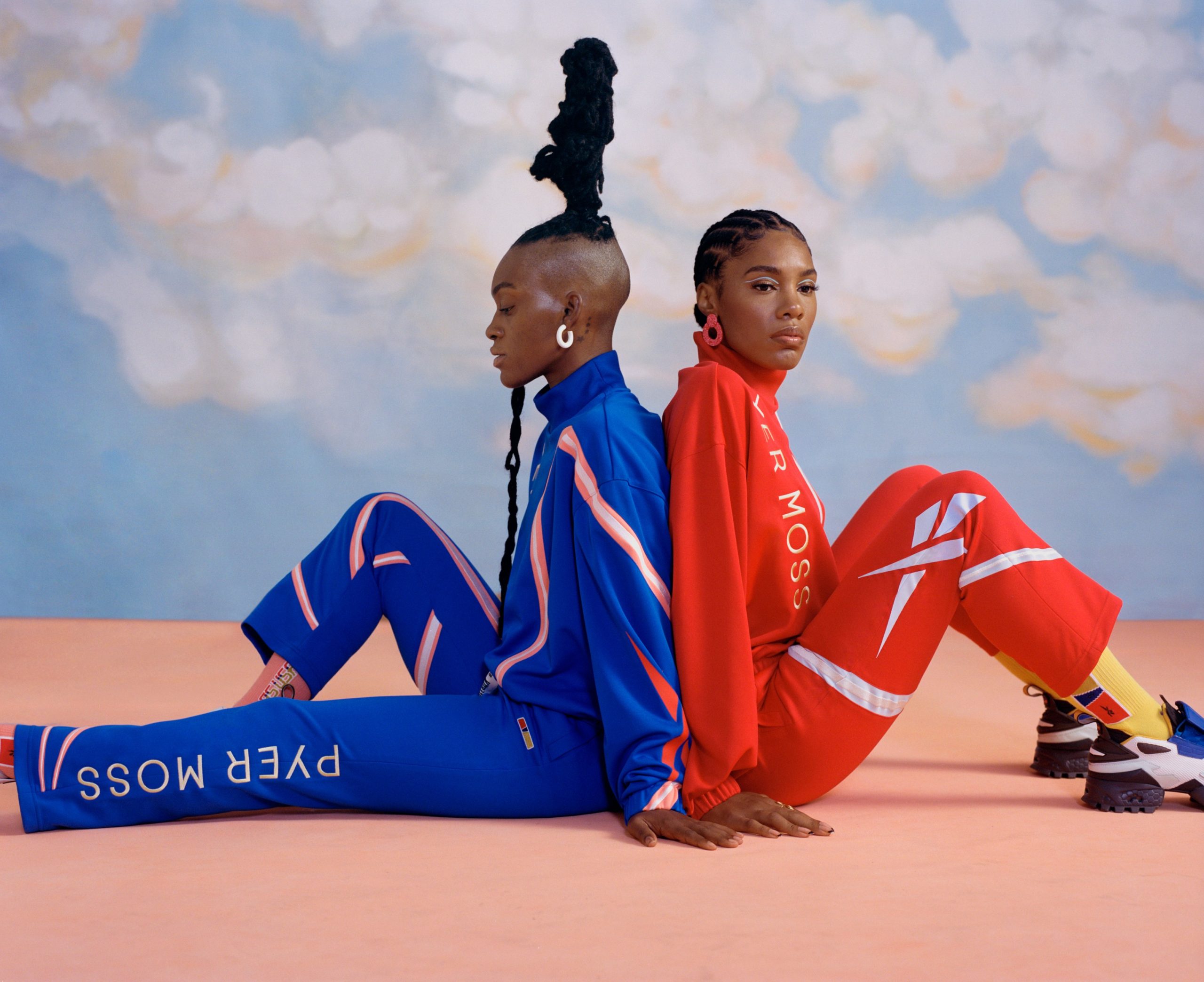
Kerby Jean-Raymond
Incubating designers of colour to transform fashion’s future
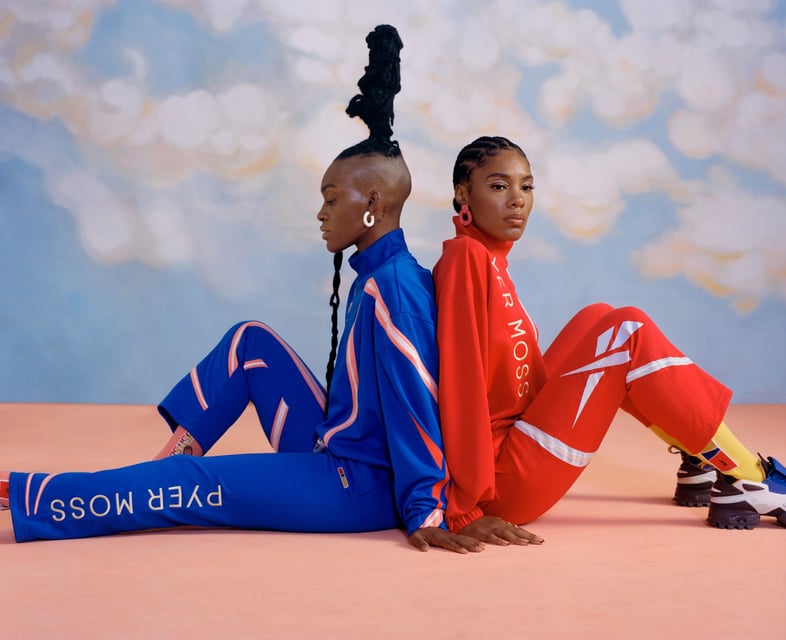
Kerby Jean-Raymond
Known for launching Pyer Moss, a constantly evolving fashion label that combines storytelling, activism, debate, theatre and social commentary, Kerby Jean-Raymond is now channelling his own experiences into nurturing a new generation of talent. His ambition: to redress the balance of representation and opportunities for designers of colour in the fashion sector.
Recognising a lack of formal fashion accelerator and support for Black, Indigenous creatives of colour, he’s established Your Friends in New York together with French luxury group Kering. The philanthropic initiative has seen eight creatives move into a warehouse space in Brooklyn, where they’re receiving assistance ranging from financial advice and range planning to holistic, emotional support. The aim is for the group to grow and learn from one another as will Jean-Raymond, whose Pyer Moss brand sits within the group. ‘It is important to me to create and work on ventures that are future forward, involve the community at large and that will continue to help others grow in the fashion and art space,’ says Jean-Raymond.
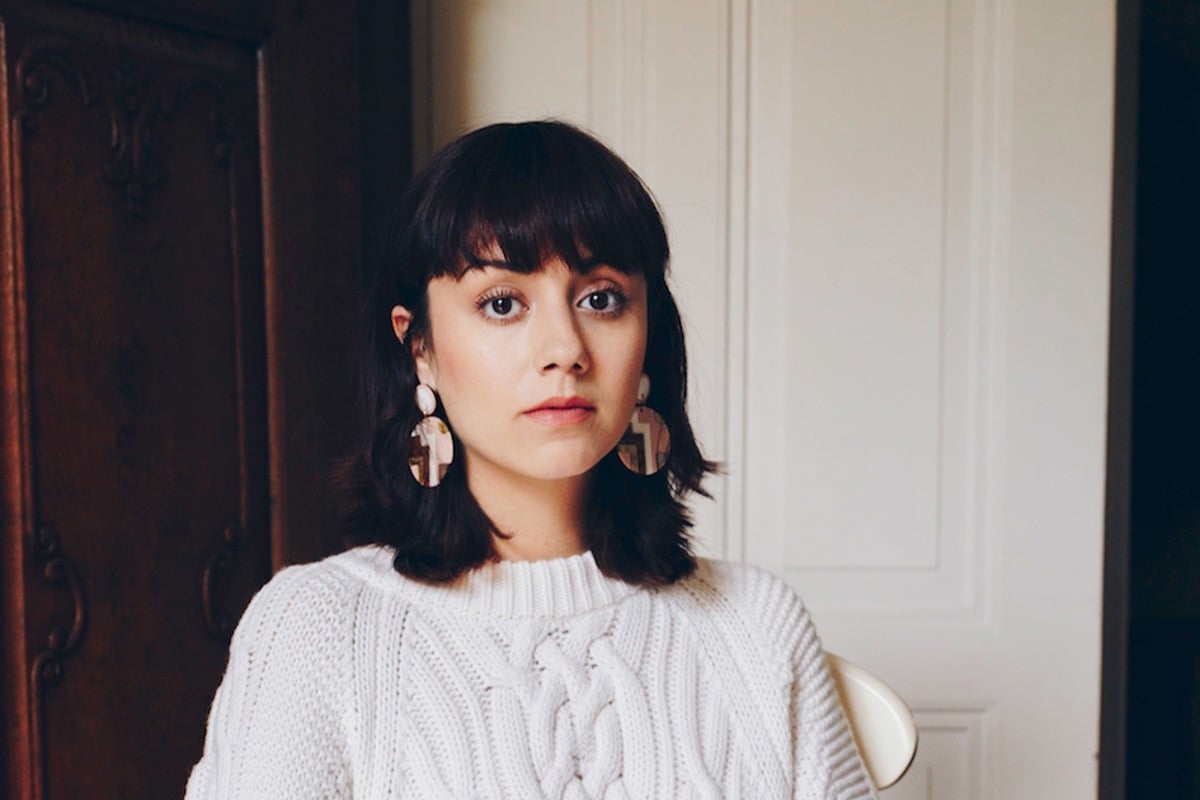
Evelyn Mora
Building a sustainable marketplace in the digital realm
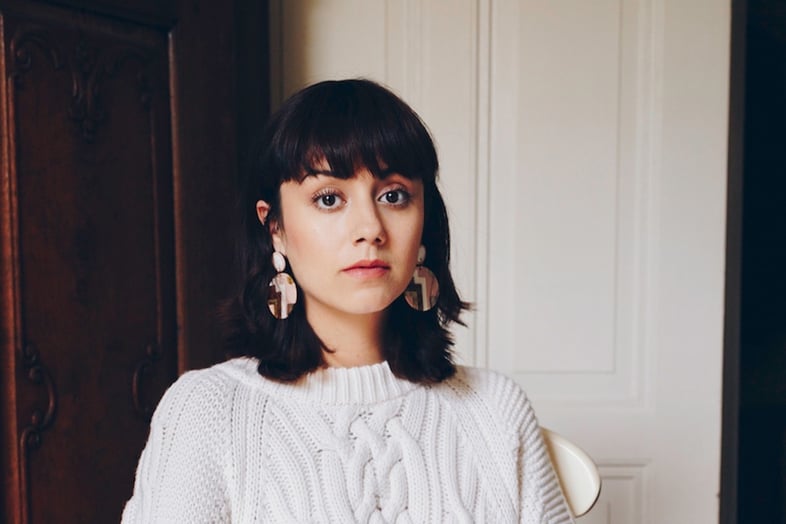
Evelyn Mora
Transforming how and where people engage with retail and fashion brands, Finnish strategist and tech consultant Evelyn Mora is behind Digital Village, a social metaverse that has already been used by a number of global Fashion Weeks to host events and unite communities in the wake of the pandemic.
Now, however, Mora is shifting Digital Village (DV) to prioritise social and digital sustainability, helping to democratise access for people and brands who want to create and integrate digital assets in Web3 and the metaverse. Central to this is the DV Marketplace, which allows members to mint NFTs or offer assets for co-ownership and as investment opportunities, alongside the DV Coin, its native in-game currency that Mora hopes will onboard traditional businesses into the metaverse by focusing on sustainability goals and achievements. For both users and retail brands exploring this space, Mora hopes that it will drive more mindful choices, alongside support for local and sustainable businesses in the real world.

Emma Rae Bruml
Hacking humanity’s relationship with technology

Emma Rae Bruml
Emma Rae Bruml is an artist, researcher and coder focused on humans’ relationship and connection to technology, how we use computers and their associated hardware, and how this is shaping our relationship with machines.
As co-founder of the Computer Mouse Conference, Bruml wants to unpack and question how the design of technology and the ways we interact with it have been shaped and influenced by everything from gender performativity to capitalism and the attention economy. Could a computer mouse be designed in such a way as to resist clicking on adverts or ‘buy now’ buttons as a form of anti-capitalism, for example?
Beyond this, Bruml is also an organiser of the School for Poetic Computation, an experimental school for people working at the intersection of code, creativity and future computing. It allows people to get acquainted with code at their own pace and in their own way, balancing process and craft by approaching code like creative writing. As Bruml describes it, ‘a place for unlearning and learning’, and hacking the conventions of art-making with computation.
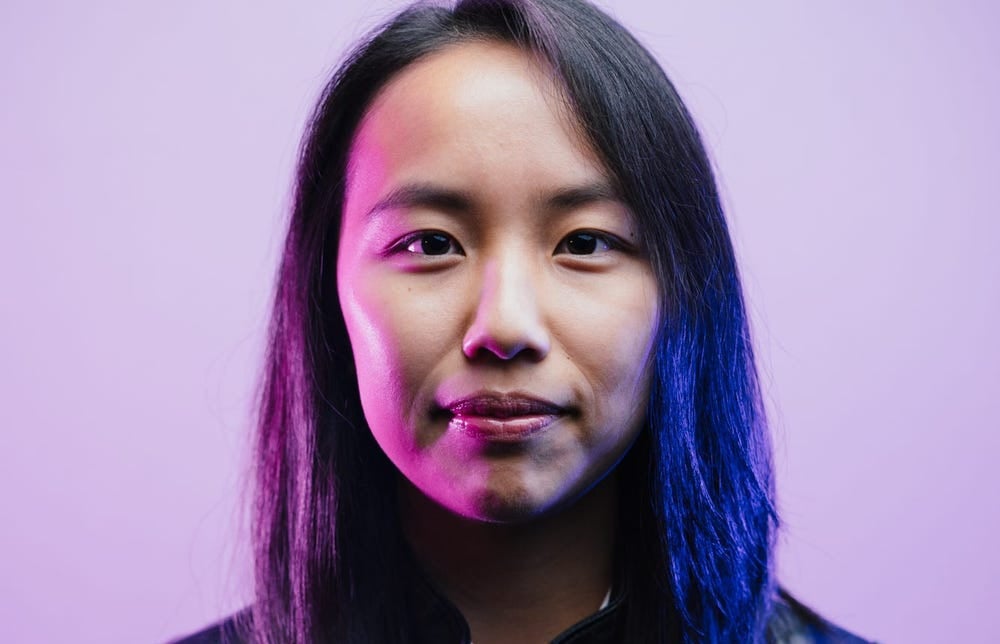
Tiffany Zhong
Simplifying access and uniting youth communities in Web3
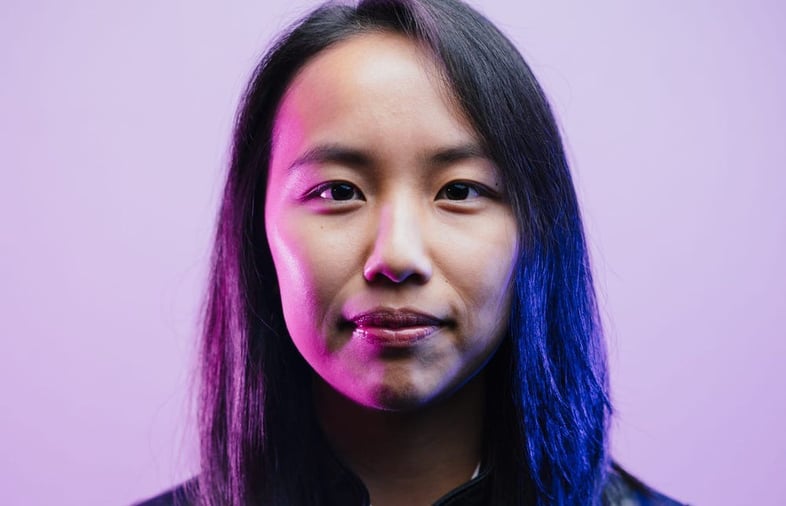
Tiffany Zhong
A youth expert, Tiffany Zhong has spent several years understanding not only the behaviours of her own Generation Z peers – and sharing this with global businesses – but also how young people use the internet and spaces within it to interact, foster community and build their visions of the future.
As CEO of Islands, a start-up platform that aims to help initiate newcomers into the world of NFT art, crypto-assets and communities, Zhong’s goal is to create a single, centralised space for the burgeoning, and often youthful, Web3 community.
Focusing on simplicity, Islands plans to offer its members templates and suggestions for setting their own guard rails for constructive use of the space, giving some decisions over to votes in line with an ever-more democratic web experience of the future. Zhong expects to put some decisions and rules relating to Islands to votes. ‘It’s important to build in a non-toxic way, but also to give creators the ability to build the way they want,’ she tells Forbes.
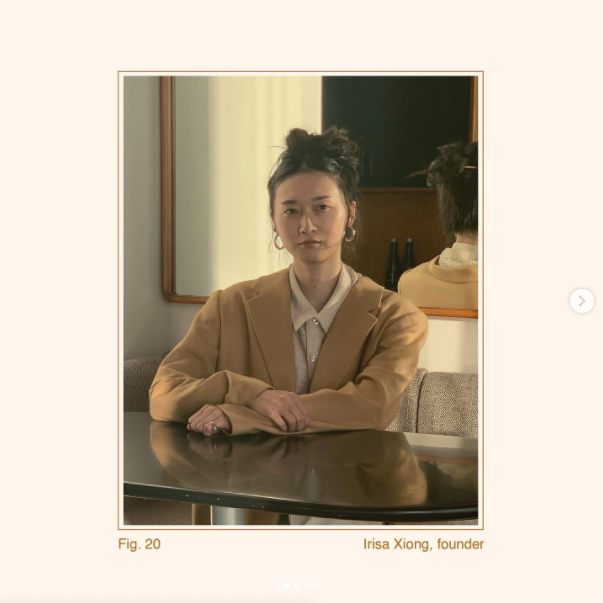
Irisa Xiong
Offering tools and processes for people to engage their brains
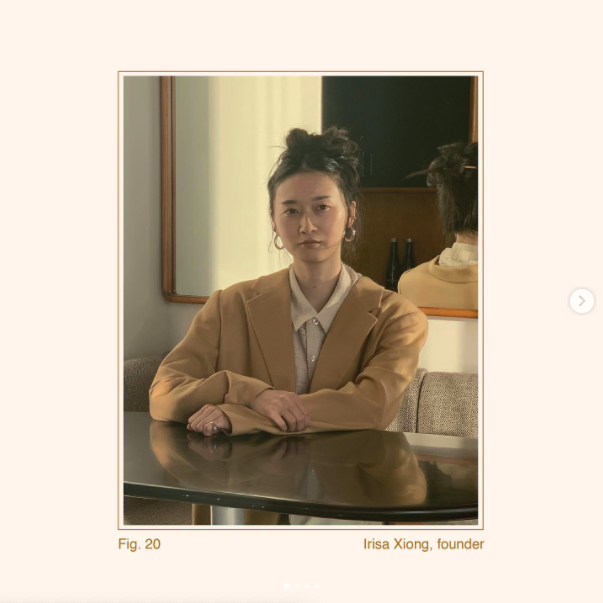
Irisa Xiong
In the era of Recuperative Living, people are seeking ways to heal and develop resilience in the face of trauma and adversity. To help them, Irisa Xiong has founded Innermade, a wellbeing project that encourages people to get back in touch with themselves – specifically, their thoughts and emotions.
Centred on curiosity and cognitive development, Innermade provides people with tools and guidance to begin their journey, from drinkable tonics for clarity to paper journals. The intention is that a focus on feelings, finding meaning and growth can boost overall wellbeing. ‘This project is an invitation to return to your core self – the self [that is] uninhibited by old wounds, limiting beliefs or toxic narratives… Our method focuses on process, incorporating mindfulness and guided self-inquiry to open our minds to what makes us feel at ease, aligned and inspired,’ explains Xiong.
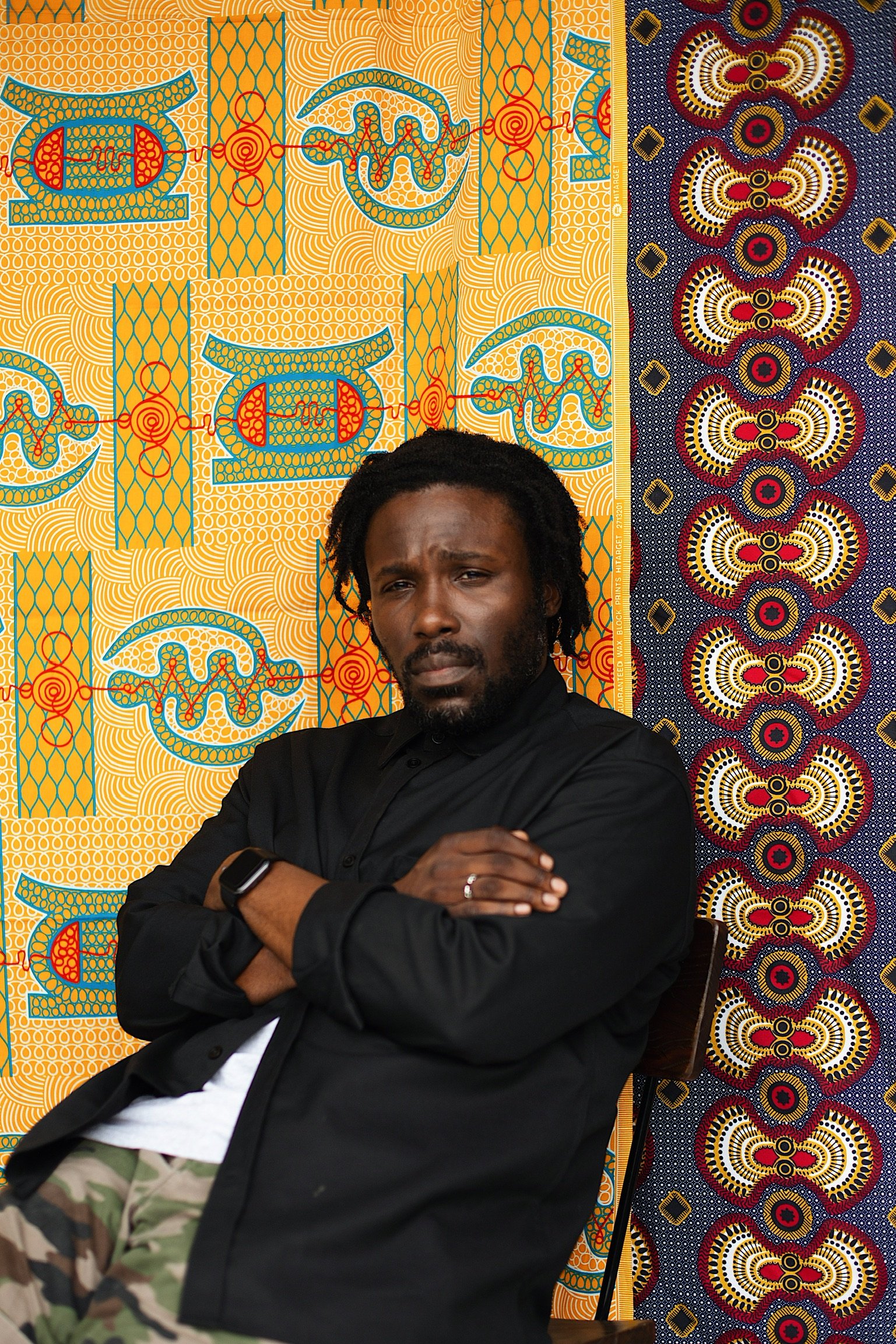
Akwasi Brenya-Mensa
Serving cultural exchange centred on food and storytelling
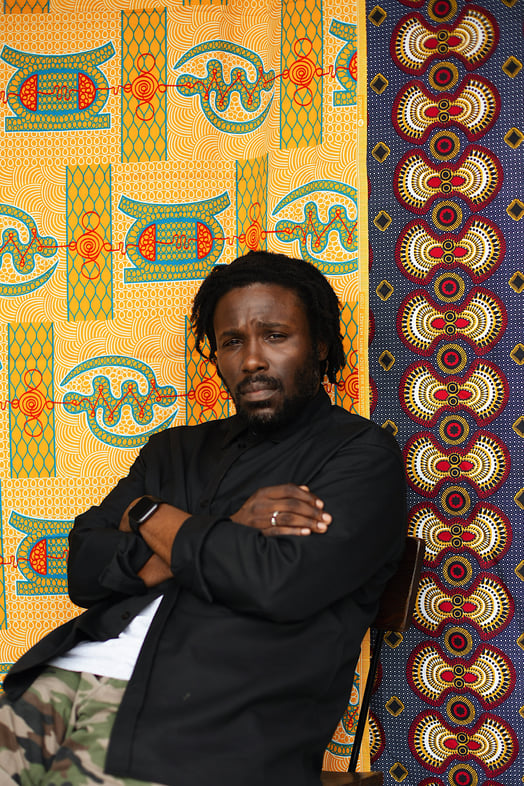
Akwasi Brenya-Mensa
Turning dining into an educational cultural exchange, Akwasi Brenya-Mensa is behind Tatale, a pan-African dining space that will open at The Africa Centre in London in spring 2022. Previously, Brenya-Mensa has been travelling across West Africa, the UK, Europe and the Caribbean, hosting supper clubs where he shared and learned stories about the diaspora through food preparation, ingredients and cookery. His work celebrates heritage dishes and flavours, eschewing some oils and meats to introduce West African cookery to a more health-conscious generation.
‘I incorporate the idea of cultural exchange through food into my supper clubs, which attract and welcome a wide demographic, often including guests who may not be familiar with Ghanaian culture at all,’ he explains. ‘Seeking to bridge a generational gap in my work, I want to see discerning aunties and younger diaspora kids enjoying their heritage food and seeing it presented in a fresh and exciting way. I very much view this is as a part of my responsibility.’
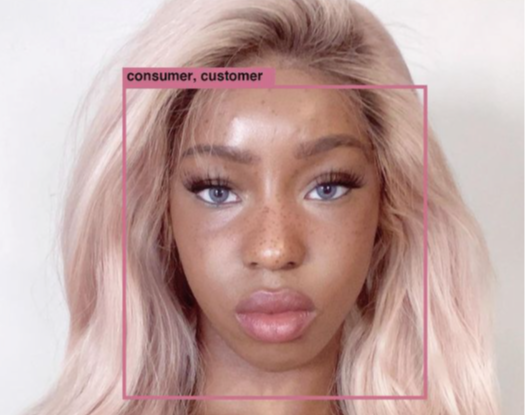
Ommy Akhe
Augmenting our experience of luxury through immersive filters
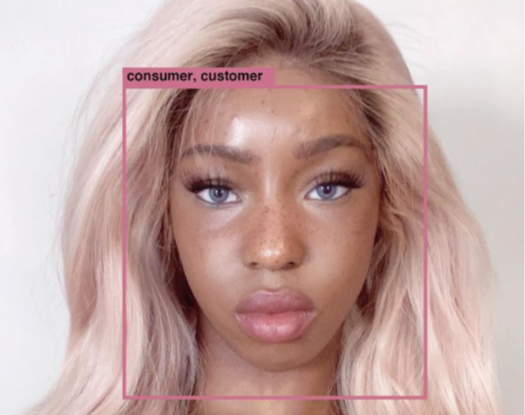
Ommy Akhe
With work designed to create lasting and memorable impact, Ommy Akhe is a pioneer in the field of immersive, augmented reality (AR) brand experiences. Working out of London, she seeks to push the boundaries of what we can experience through our screens, and how we can play, manipulate and influence the appearance of luxury products online.
Beginning life as an ethical hacker before discovering Facebook’s Spark AR technology as a tool to develop filters, Akhe’s work focuses on helping brands to build awareness and audience engagement. She does this through AR filters and voice recognition software that allow netizens to instantly customise luxury products, with the intention that they will share the results across social media platforms. Featuring unofficial projects that incorporate goods from luxury brands such as Louis Vuitton, Gucci and Chanel, the pieces become reactive art forms – decorative text dances across a handbag, while shoes change colour in response to music.

Joe Wilkinson and Mario Maher
Spotlighting the retail potential of mystery boxes

Joe Wilkinson and Mario Maher
Mystery boxes have been garnering interest across the retail sector for a few years, but Joe Wilkinson and Mario Maher are on a mission to propel this form of retail into the mainstream. As the co-founders of Heat, they are targeting luxury brands and aspirational customers through the benefits that their monthly mystery boxes offer: a way to sustainably sell through past season or overstock for brands, and for buyers a surprise edit of cult labels and garments wrapped up into a slick unboxing experience.
Having sold more than 15,000 boxes to date, Heat has recently scooped £3.7m ($5m, €4.4m) in funding from LVMH Luxury Ventures and others to grow how people access and experience its boxes. ‘With its mystery boxes, Heat is successfully pioneering a unique and virtuous model reconciling desirability, circularity and price accessibility,' says Julie Bercovy, founder and head of LVMH Luxury Ventures.
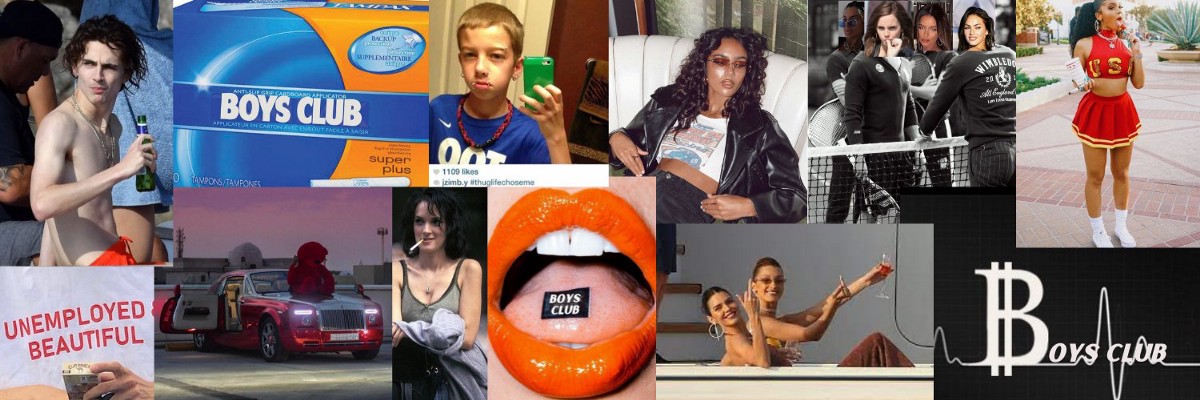
Deana Burke
Creating inclusive real-life spaces for wealth-making in Web3
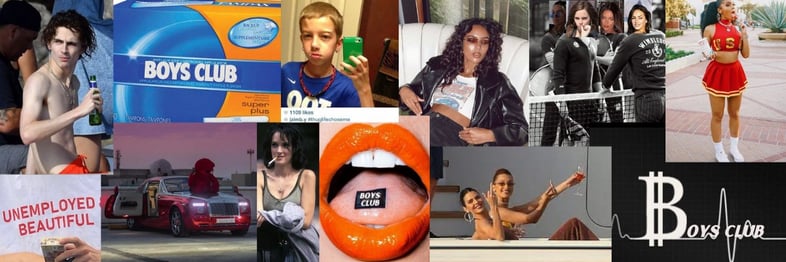
Deana Burke
Seeking to subvert its very name, the co-founder of Boys Clubis here to shake up the technology sector by building a feminist Web3 scene. Deana Burke’s ambition with Boys Club is to bring more women and non-binary people into a space currently dominated by men – who in turn, are accruing most of the wealth related to cryptocurrencies and NFTs.
To do this, Burke and Boys Club host a Discord server of more than 800 members where no question is a bad one, while its socials brim with irreverent guides to crypto-slang. There’s also welcoming real-life events, where guests ask questions, sip cocktails, share knowledge and explore the future of decentralised finance through the lens of real-world businesses run by women and non-binary people – a world away from the Crypto-cliques and gated communities found online.
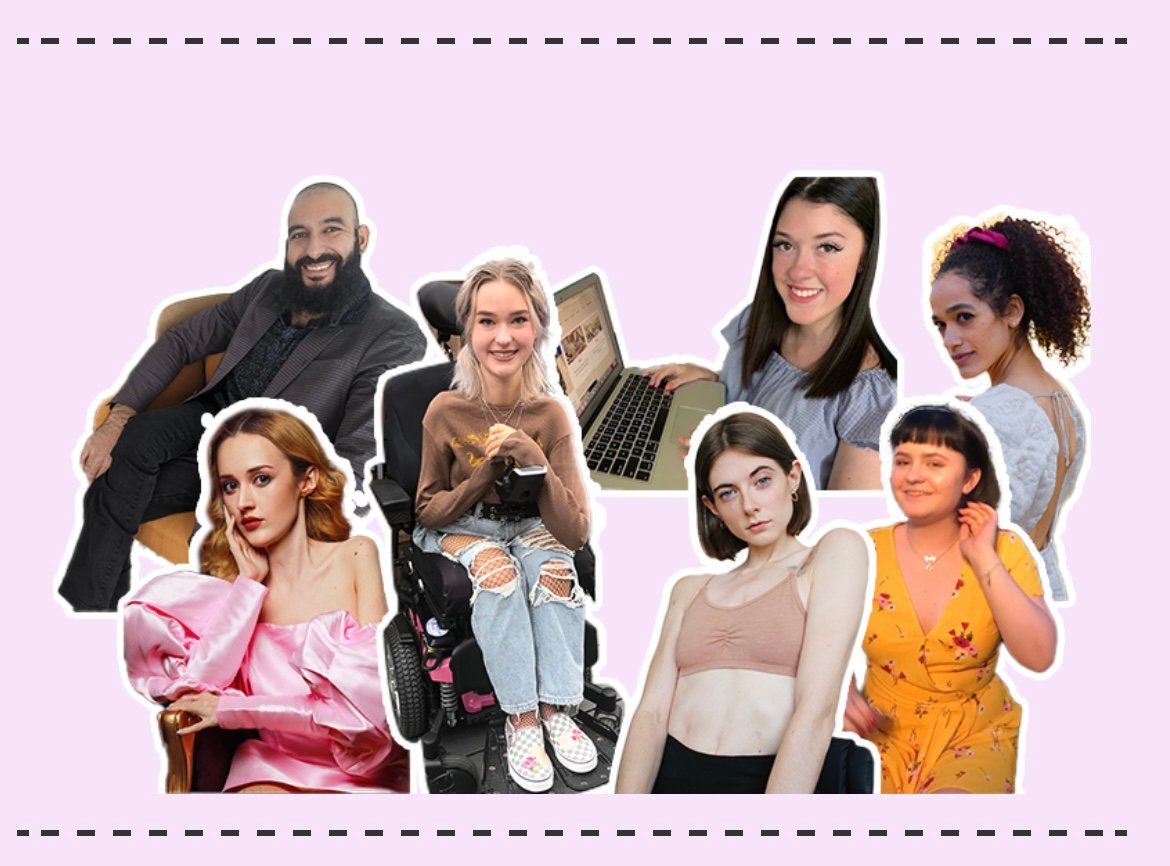
Emily Flores
Helping young disabled people lead media conversations
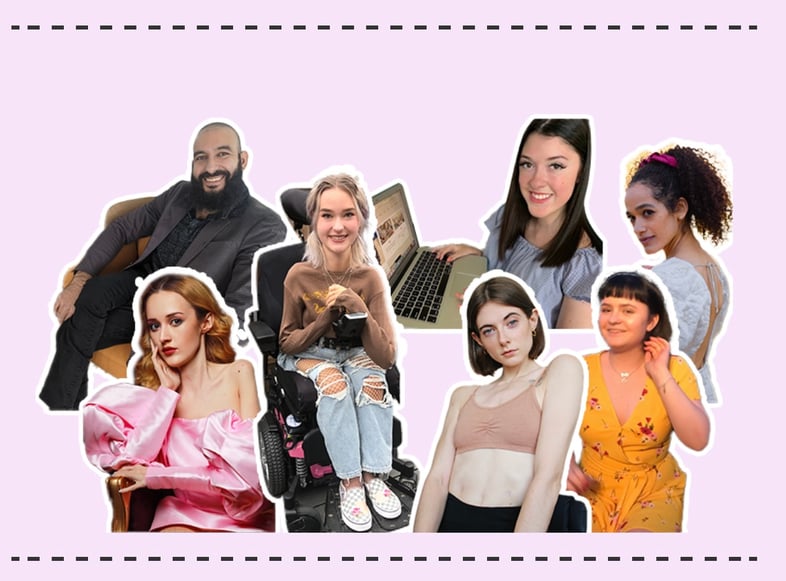
Emily Flores
Emily Flores is founder and editor-in-chief of Cripple Media, a platform giving space to young disabled people to write honestly, openly and accurately about themselves and the issues that affect them. Navigating subjects ranging from identity to culture and politics, advice is shared and community is forged. Creating content that represents them – and not led by able-bodied editors, healthcare professionals or adult voices – Flores wants the platform to nurture a new generation of often overlooked creatives. ‘Cripple Media is striving to train and centre young disabled media professionals to lead conversations in mainstream media,’ she writes.
Now in her late teens, Flores is appealing to mainstream media and broadcast brands to support her ambitions by hiring young disabled creatives – and making sure they are paid for their contributions. ‘Young disabled creatives can shift the lens [through which] disabled people are viewed – into something more honest, accurate, impactful and youthful,’ she adds.
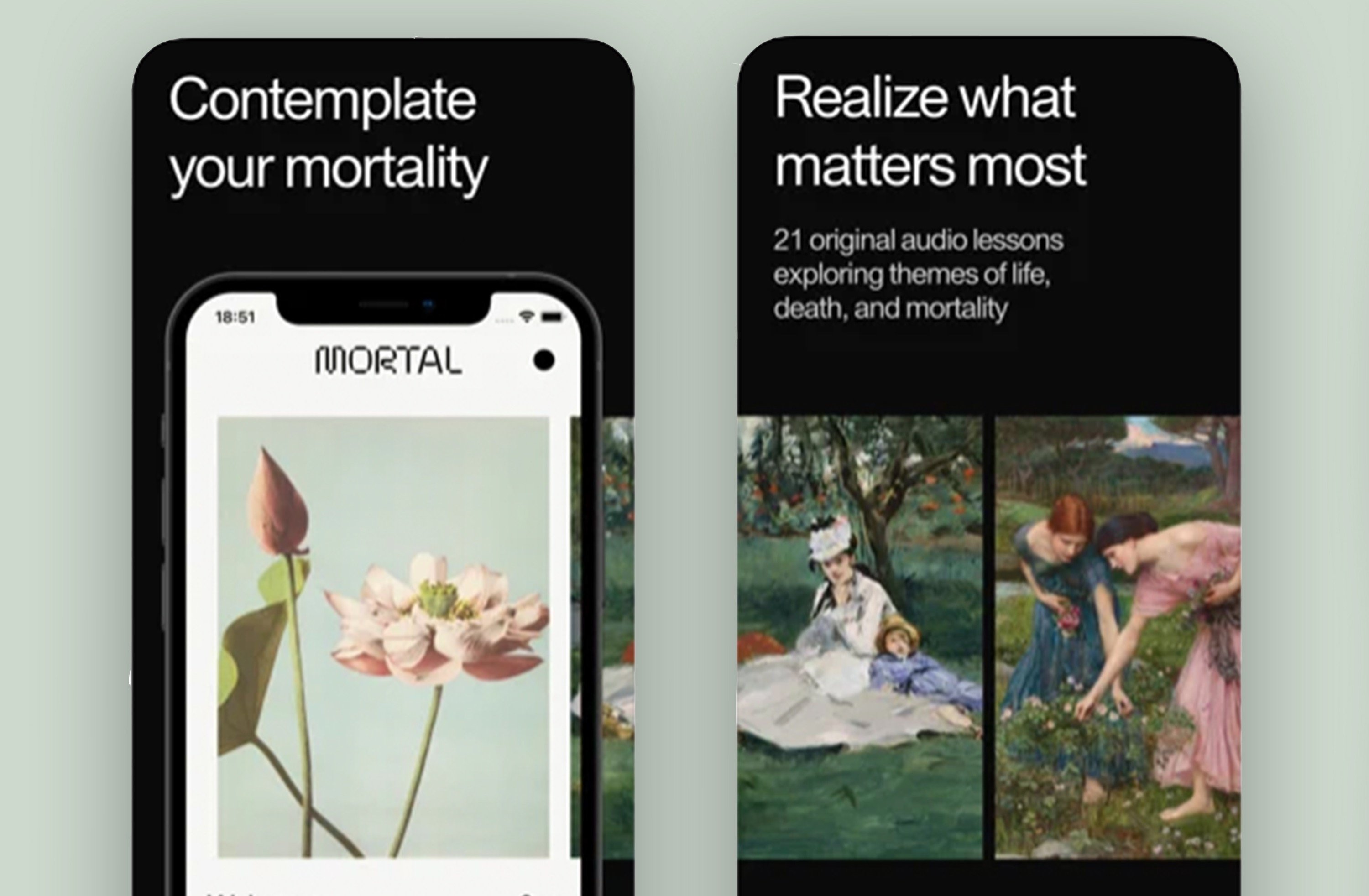
Will Simon
Transforming UX in the holistic healthcare category
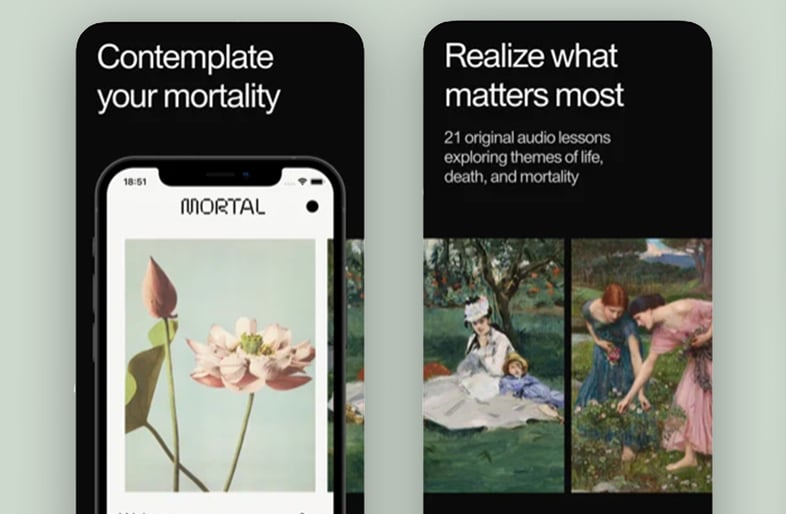
Will Simon
Operating at the crossroads of technology, mental health care and alternative wellness practices, Will Simon is the former head of UX at Headspace and co-creator of several health and wellness start-ups operating out of North America. With a focus on design thinking and UX, his work focuses on apps and wellness platforms ‘that help people live better', while slotting into their daily routines or using technologies that most of us are familiar with.
One example is Mortal.rip, an app that encourages people to confront and contemplate death as part of a wider shift towards Death Positivity, stoicism and acceptance. ‘Exploring the topic of death during a global pandemic has been a deeply challenging experience,’ he says. ‘Yet somehow this kept us inspired – to create something that might help others normalise and navigate this difficult and complex subject.’ Will’s other major focus is Homecoming, a platform that gives people a full-service experience of psychedelic wellbeing, from finding a clinic or therapist to aftercare sessions. Supported by an app, Homecoming lets people check in and track their experiences.

Marie Boulanger
Challenging gendered design tropes in type and branding

Marie Boulanger
Based in London, Marie Boulanger is a type designer questioning how and why gender conventions impact fonts, branding and the wider design sector. Now a brand designer at Monotype, Marie’s interest in the gendering of design – and ways to break free from this – were born from her Master’s thesis, which examined how letters and type can uphold and promote gendering in design. Recognising a much larger issue at play, this led Marie to publish a book, XX, XY: Sex, Letters and Stereotypes, which seeks to challenge tropes and change opinions in what has long been a male-dominated industry.
Her argument is that, as society’s views and recognition of gender evolves, and once-complex issues around gender become more openly discussed, the design industry must follow suit. ‘Of course, there’s a massive history of how type has been used and centuries of type designers making choices isn’t going to disappear, and I don’t think it should,’ Boulanger tells Design Week. ‘But as we evolve, and the way we view gender and roles in society evolves, then the way we use type should follow.’
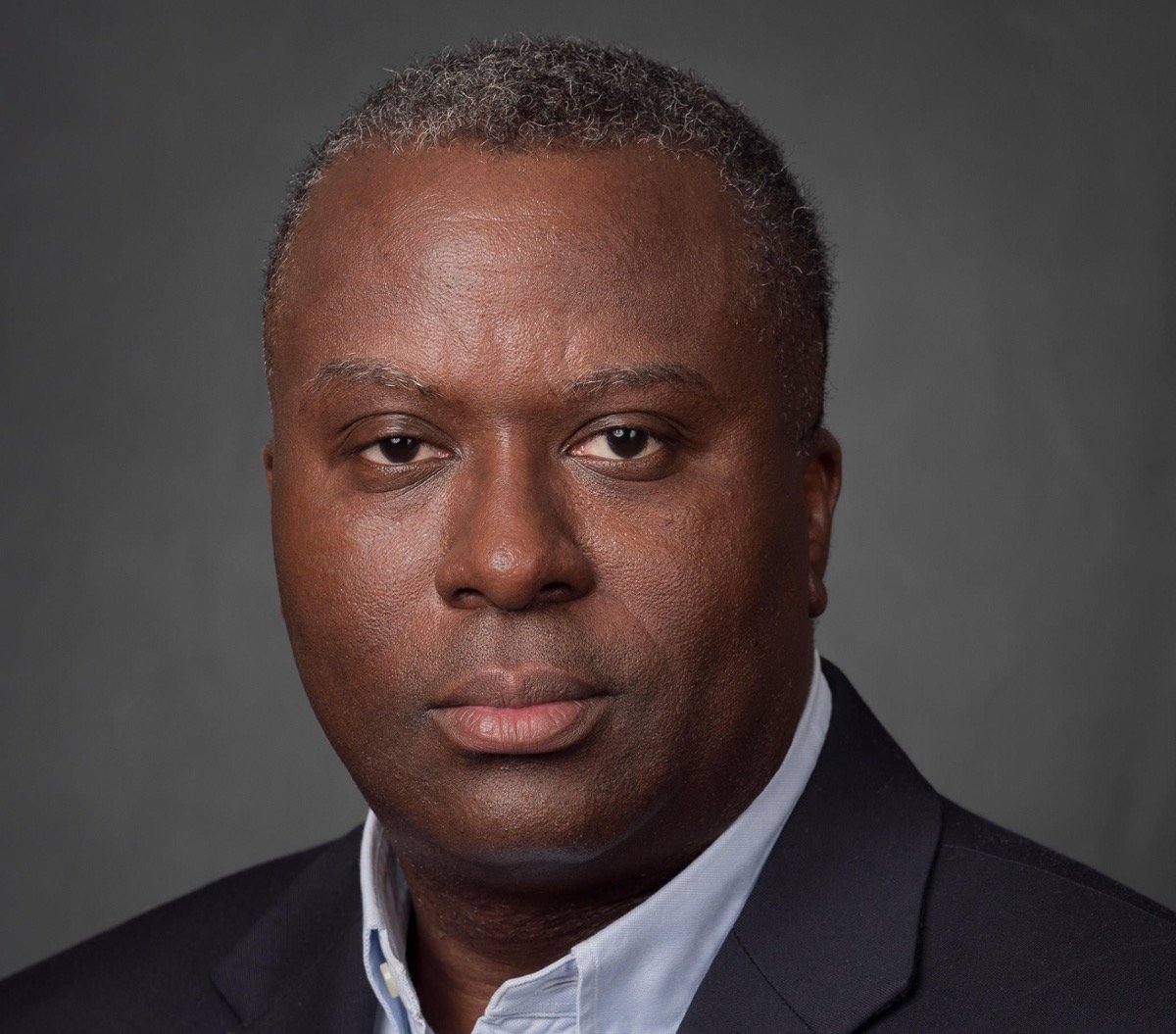
Mark Peterson
Combatting hunger in America with accessible technology
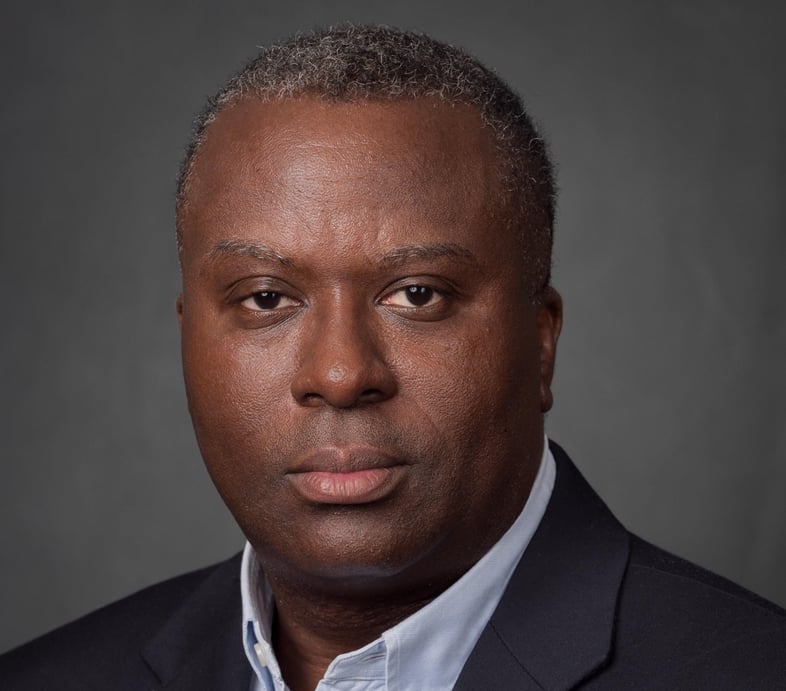
Mark Peterson
With pandemic-induced inflation driving up the cost of living, and political and climate impacts hampering food supply chains, Mark Peterson has created Ziscuit, an innovation he calls ‘the Kayak of groceries’, to help cut the cost of people’s shopping baskets.
Based in Atlanta, Mark and his company are working to increase food equity and access for people living in food deserts – areas where nutritious, affordable food is hard to find – or impacted by unemployment. ‘Hunger is a logistical problem. We have cheap food. We just can’t figure out how to aggregate the demand and get the food to the people who need it the most,’ he tells Fast Company. Mark grew up watching his mother cut coupons to save money on food shopping, and Ziscuit lets users find the best price for their groceries. After adding their shopping list to the platform, local supermarkets then bid to fulfil their basket at the best price. According to Mark, the tool could save some families £395 ($520, €471) per year.
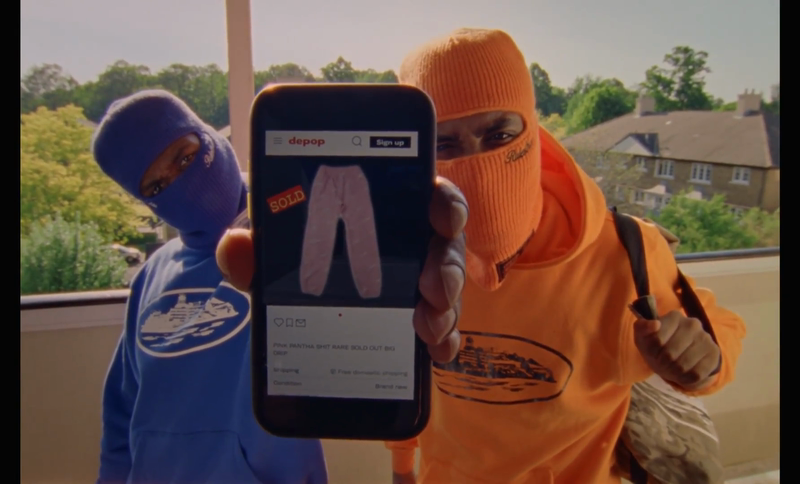
Clint
Using hype to build an anti-establishment streetwear brand
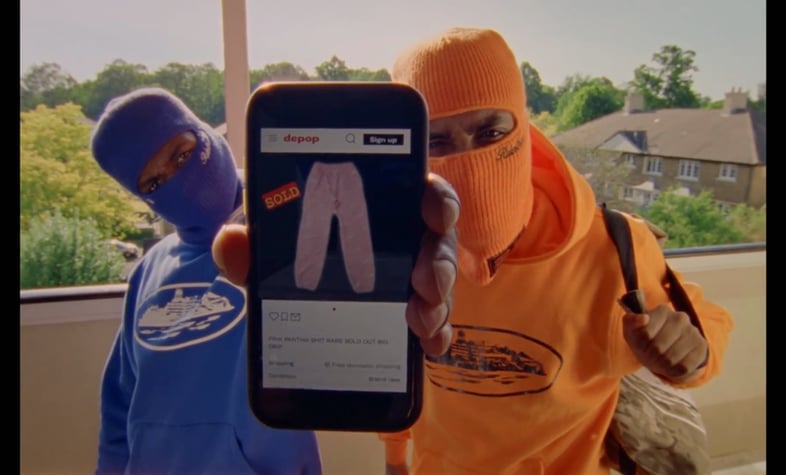
Clint
The founder of enigmatic British streetwear label Corteiz is showing how fashion brands can build authenticity through community. Known only by his first name – Clint – the founder of Corteiz has established a cult following for the brand and its collections, which are reported to sell out within minutes. How? By refusing to follow fashion sector norms, in particular taking a democratic approach to access and interactions with his audience.
Demonstrating just how engaged a following Corteiz has amassed, in January 2022 the brand broadcast a location on its social media for its BOLO Exchange – a chance for hundreds of young streetwear fans to exchange jackets from labels such as Moncler, The North Face and Supreme for Corteiz’s own highly coveted coats. Notably, Corteiz refused to take in jackets from other Black-founded British brands by way of supporting their own growth. Further, the coats that were traded in – which Clint Tweeted were worth £16,000 ($21,440, €19,065) – were given to a London homeless charity.

Eduardo Castillo
Transforming hospitality through traveltainment

Eduardo Castillo
As creative programmer and co-founder of hospitality group Habitas, Eduardo Castillo’s role also represents a growing requirement for hotels and travel destinations to go beyond relaxation to provide enriching exchanges and experiences between guests.
Drawing on his background as a DJ and music producer, Eduardo seeks to instil in guests at Habitas’ eco-luxury resorts a child-like state of wonder, breaking them out of their comfort zones through transformative experiences. Some of these activations and experiences focus on wellbeing, such as immersive sound mediations. Others draw on a sense of adventure; at Habitas in Tulum, Mexico, people can learn survival skills with local San tribespeople. Underscoring the rise of Traveltainment, Eduardo’s role and diverse programming show how hoteliers can integrate entertainment, education and escapism into people's stays.
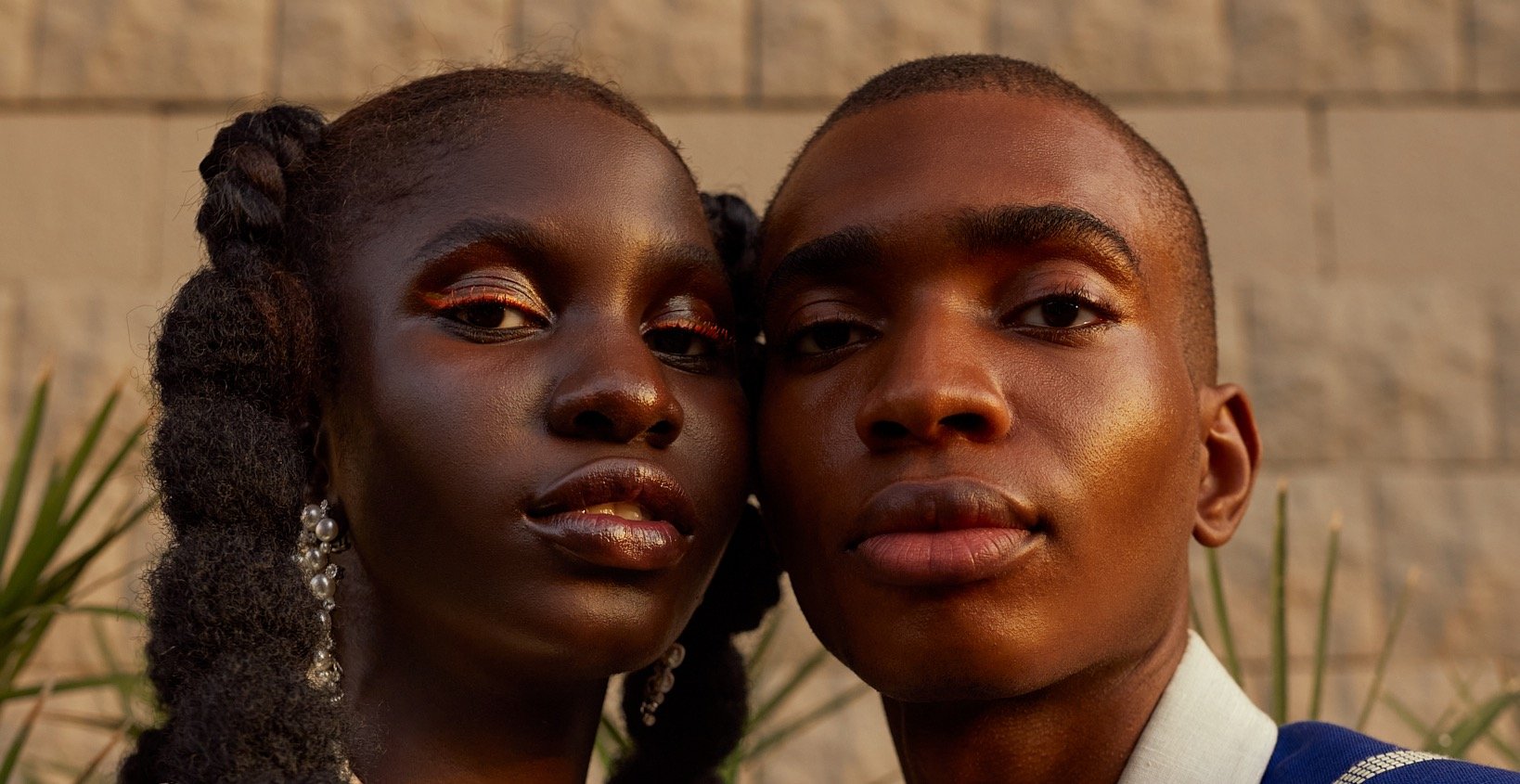
Omoyemi Akerele
Developing African fashion for the global stage
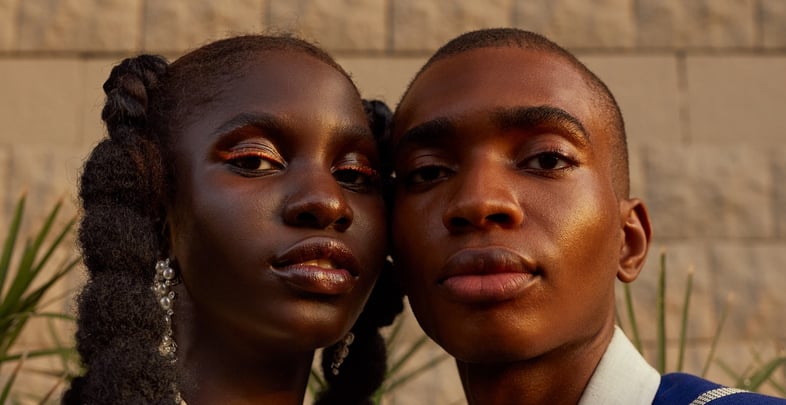
Omoyemi Akerele
As the founder of Lagos Fashion Week, Omoyemi Akerele is at the forefront of championing a new generation of luxury fashion designers and labels emerging from West Africa. She is known for showcasing the work of rising talents such as Kenneth Ize and Orange Culture, while partnering with the likes of the British Fashion Council and retail platform Moda Operandi to make the fashion from Lagos Fashion Week more accessible to global audiences.
Omoyemi is also behind fashion business development agency Style House Files, which seeks to advance Nigeria's and wider African Fashion industries. The agency helps fashion and luxury talents with everything from creative direction and market positioning to retail strategies and mentoring. This is particularly crucial in the wake of the pandemic and economic crises, with a new generation of Nigerian creatives facing larger barriers to entry in the sector. ‘Countries working together across the [African] continent is the future,’ she tells System magazine. ‘It’s vital that we create room for knowledge exchange and transfer.’

Lucia Liu
Amplifying China’s influence on the future of fashion

Lucia Liu
In her recently appointed role as Huasheng Media’s group fashion editor-in-chief, Lucia Liu is spearheading an era in which Chinese fashion, models, style and aesthetics ascend to the global stage. Working between London and Beijing, she is developing a new China-focused fashion and culture magazine at Huasheng, focused on scouting and incubating Chinese talent. Recognising which aesthetics, art and fashion appeal to local audiences, Lucia intends to use this media imprint to make China a global lifestyle and fashion powerhouse, whose culture and values will influence global audiences.
‘Through this magazine, we want to reverse [the current state of publications in China]. In the past, we would localise a Western title. We now want to make a Chinese title and internationalise it,’ she tells Jing Daily. Lucia's ambition chimes with the growing reach of Chinese brands. From ByteDance’s social media dominance to leisure and luxury labels like Anta Sports and Ning Dynasty gaining global audiences, Lucia represents the ‘glocal’ future of Chinese fashion media – sharing stories of craft, culture, intelligence and equality in ways the world has not yet seen.
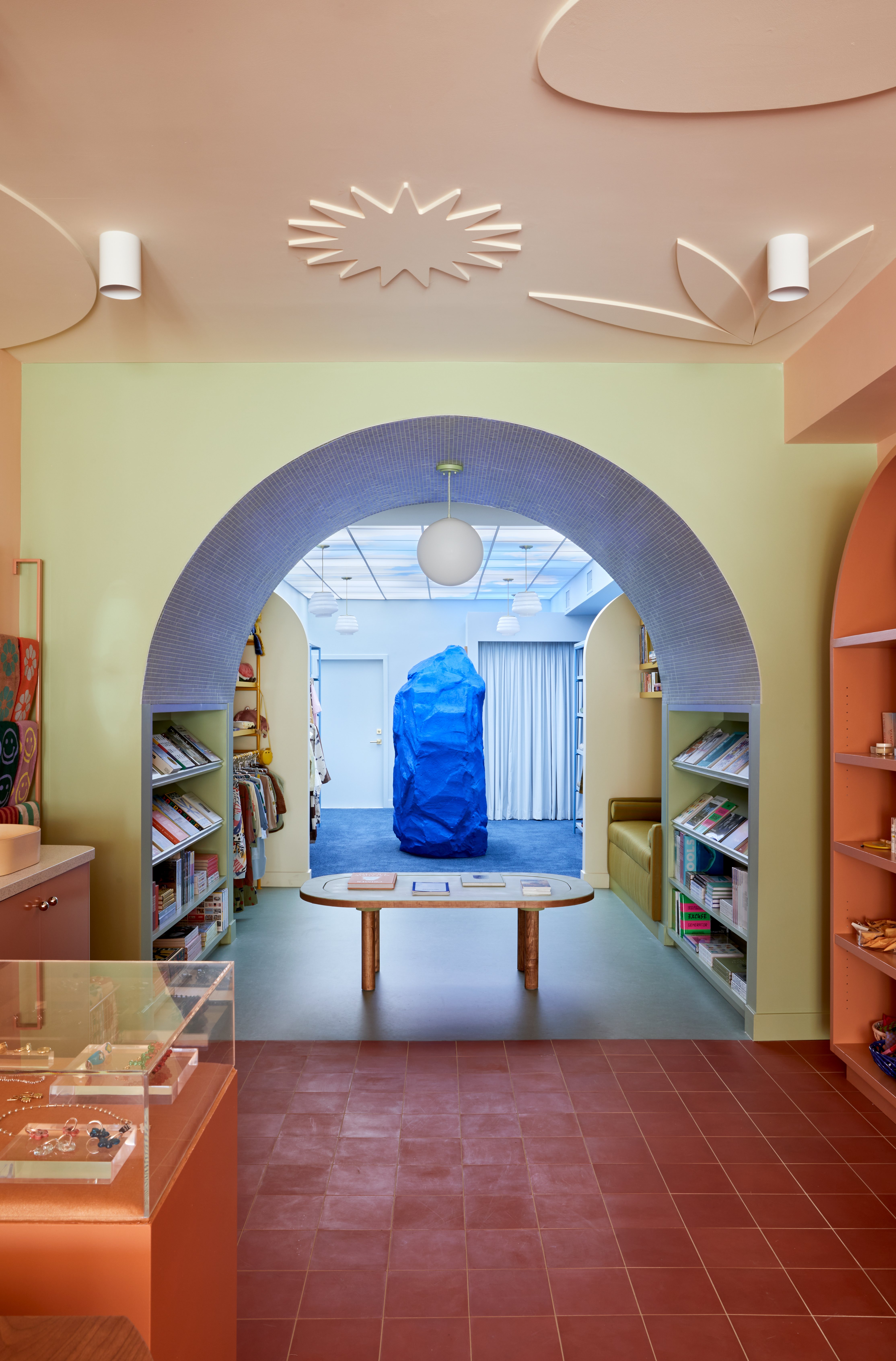
Adi Goodrich
Giving store interiors a hyperphysical overhaul
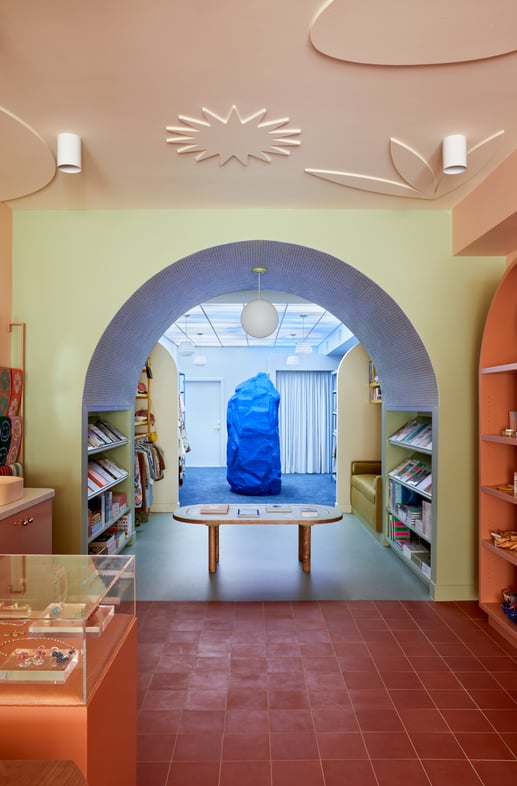
Adi Goodrich
It’s fair to say that retail experiences have, in some cases, become bland, whittled down to functional store visits – dashing in and out to grab only what you need. Here to incite joy, pleasure and slower shopping in stores is Adi Goodrich, a spatial designer disrupting bricks-and-mortar retail through a blend of colour, shape and materiality. Championing the tenets of Hyperphysical Stores – a trend that The Future Laboratory will unveil in April 2022 – Adi imbues retail interiors with vibrant paintwork, hand-hewn furniture, bold tiling and even sculptures placed at the centre of the store.
Adi’s recent work on the Dreams lifestyle store in Los Angeles signals what bricks-and-mortar retail is set to become, brimming with imagination, a sprinkling of emotion and slowing shoppers down to better connect with brands. ‘The shop not only feels like a space that the surrealists would have designed with its seven-foot chroma blue boulder sitting under a glowing sky, but it also hearkens back to the retail stores of an era that created fictionalised journeys for customers to experience,’ she writes.

Silvana Bahia
Making space for Black and Indigenous women in innovation
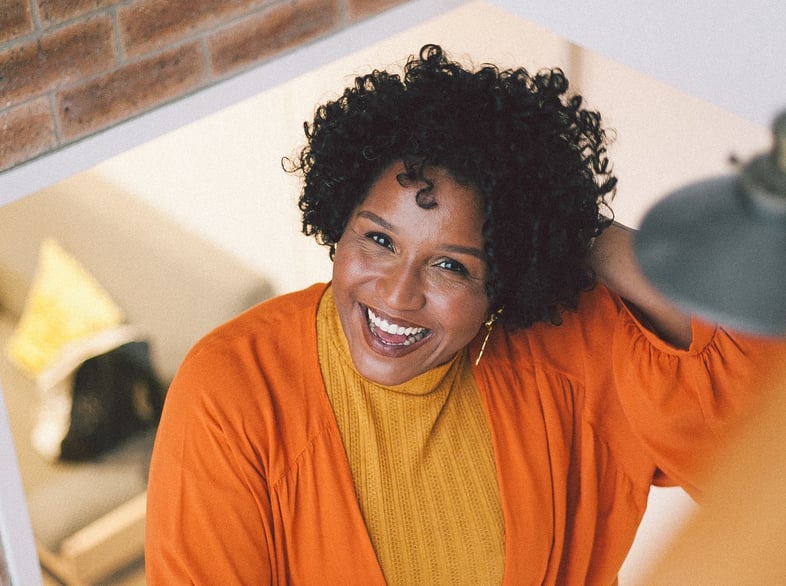
Silvana Bahia
Based in Brazil, Silvana Bahia is co-executive director of Olabi, a social organisation giving Black and Indigenous women and girls the tools and skills to build successful careers. Silvana’s PretaLab initiative in particular helps Black and Indigenous women seize their place in the technology and innovation sectors – two industries where women of colour and their lived experiences, cultures and values are needed to ensure relevant, appropriate and inclusive products and services. ‘Preparing the company culture before welcoming the Black women who are now being encouraged to build careers in the tech sector is just as important as promoting diversity-focused hires,’ she writes.
Silvana's experience is notable in this space. Among myriad other projects, she co-directed the documentary Quadro Negro, which examined the experiences and trajectories of Black students in Brazilian universities. Her care and understanding of women’s needs – and work to shape and democratise the future of tech and innovation – is a call to action for organisations of all sizes and sectors, as social justice and equity become central to working practices.

Anita Chhiba
Giving a voice and platform to South Asian creatives

Anita Chhiba
With almost 30,000 followers on Instagram, Diet Paratha is a must-follow platform, resource and community spotlighting South Asian creatives, fashion prodigies, artists, photographers and design talent. Headed by creative director and consultant Anita Chhiba, its growing audience and reach demonstrates how social media is giving a new generation space to celebrate their ancestry and traditions through a creative, contemporary output. Giving a voice to the marginalised, Anita’s ambition with Diet Paratha is to ensure greater fairness and access for all in the creative and media industries.
And it’s working. Vogue India recently called upon Anita to lead its YouthQuake issue. Some 27 pages of its print title were curated and directed by Anita, and developed with an assembly of Asian creative talent. ‘For me, my most fulfilling work experience is helping create space for brown people where we haven't been allowed to show up before,’ she tells Vogue India. ‘Bringing people together and having them feel seen, Diet Paratha is more than just an Instagram page to so many of us.’
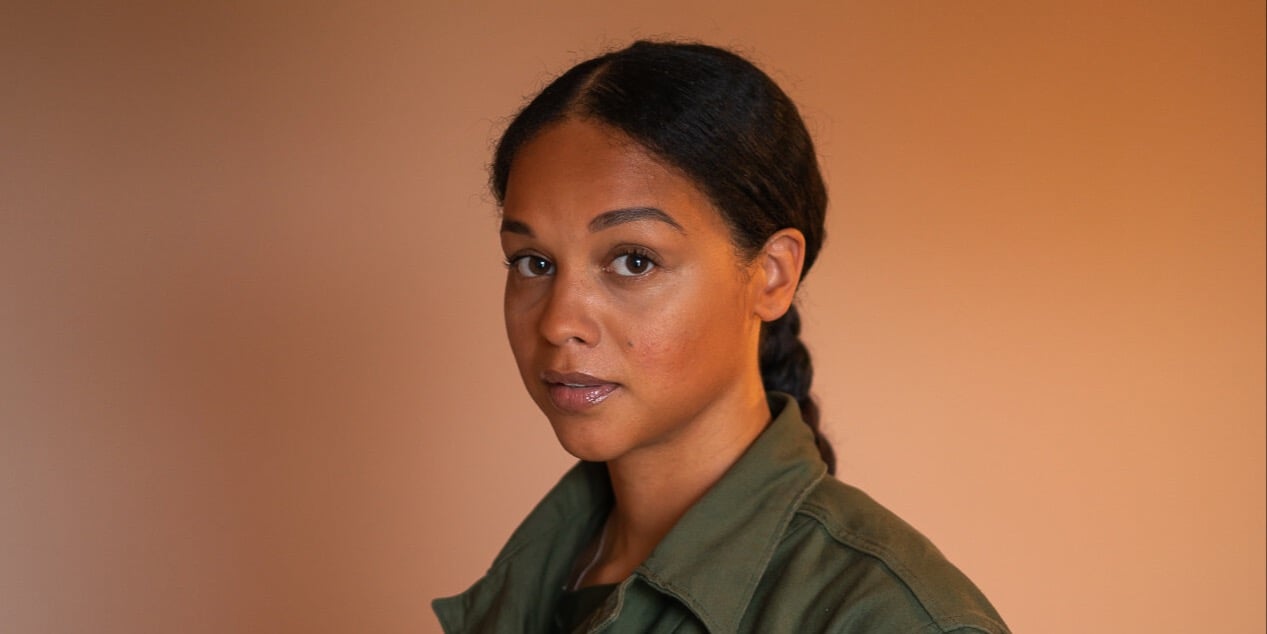
Lottie Rowlatt
Challenging the status quo of beauty education
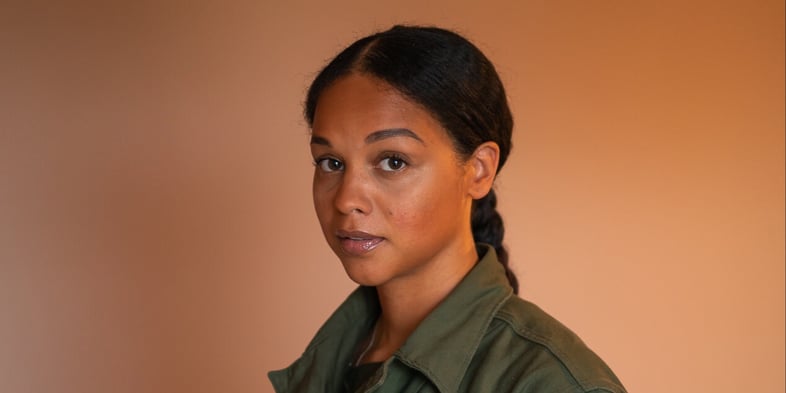
Lottie Rowlatt
After spending three years with the environmentally driven beauty brand, Lottie Rowlatt was recently appointed head of learning at Haeckels, and will be spearheading the forthcoming launch of the company's beauty school. It’s an apt fit – Rowlatt has a background in beauty therapy and education, working as a lecturer in the public sector and London beauty schools. It was when Haeckels moved its HQ to a disused casino on the Margate seafront that Rowlatt was tasked with creating a programme of courses for the beauty brand to aid its transformation into education.
These courses include national qualifications (NVQs) for massage, facial electrotherapy, and the gut-skin axis, which highlights the role of the gut in many skin concerns. Among its facial skincare courses, Rowlatt is passionate about focusing on care for melanated skin. She explains that this particular course was vital due to the fact that ‘skincare and beauty qualifications are lacking in information on how to treat darker skin tones effectively'. As a result, Haeckels is helping to remove ‘the existing bias in the skincare industry, making it a more inclusive place to be for all skin tones’.

Helen Egger
Addressing the next generation's mental health crisis

Helen Egger
In an increasingly anxious world, it’s clear the mental health crisis is only intensifying. Developing this conversation to include the next generation, Helen Egger is a child psychiatrist who is encouraging society to nurture the wellbeing of people from a young age, rather than finding solutions later in life.
In 2020, together with her daughter Rebecca, Egger launched Little Otter, a platform that makes mental health tools and treatments accessible to families through technology. The platform takes a unique approach in that it is personalised to each family, assigning them a personal care lead who will review the family’s most pressing needs and create an ongoing care plan. This method – which the brand says helps 85% of families reach clinical improvements within six sessions – takes into account Egger’s 30 years of psychiatric expertise.
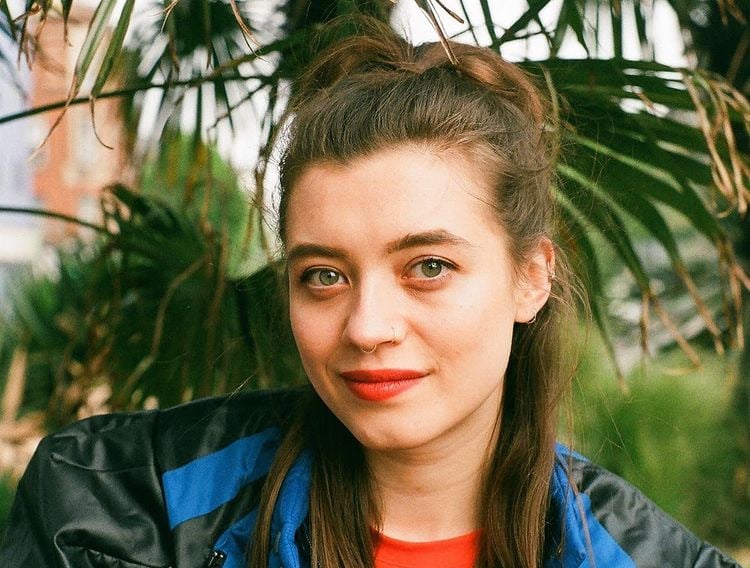
Rifke Sadleir
Coding a more creative web eco-system
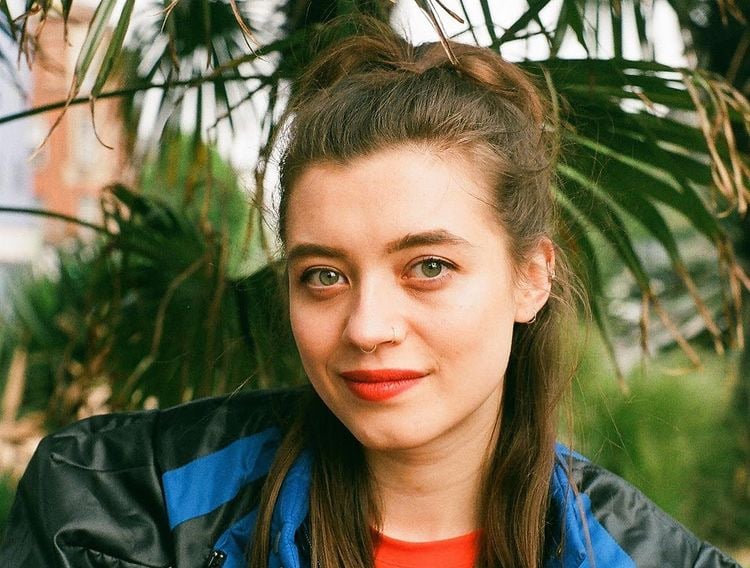
Rifke Sadleir
Rifke Sadleir is a creative technologist and one half of art direction and digital design studio, DXR Zone, alongside art director Daniel Baragwanath. Her work encompasses design, web development and illustration, often spanning the arts, fashion and music, resulting in a client list that ranges from Google and Burberry to Converse and Universal.
One of Sadleir's most impressive commissions is the site for Climate in Colour, an online education platform for climate conservation, founded by Joycelyn Longdon, a climate researcher currently studying for a PhD at Cambridge University. In addition, she combined her coding skills and music knowledge to found imissmymates.club, an online radio station that is live for just a few hours per day. When it's offline, the station website features a 'smoking area', a forum for listeners to have conversations, as well as the chance for anyone to apply to host a show.
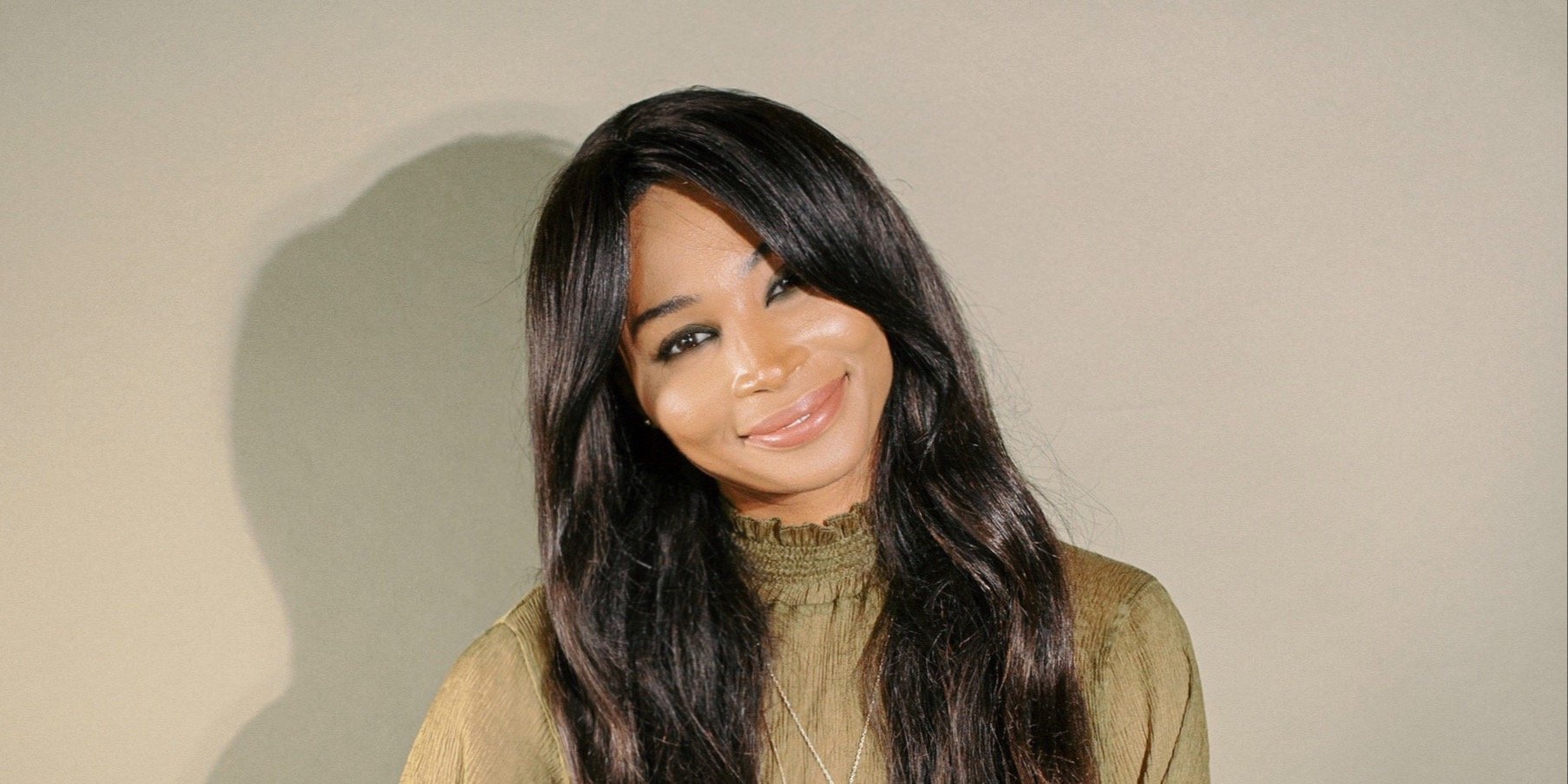
Nana Meriwether
Using ancient herbalism to make healthier wine alternatives
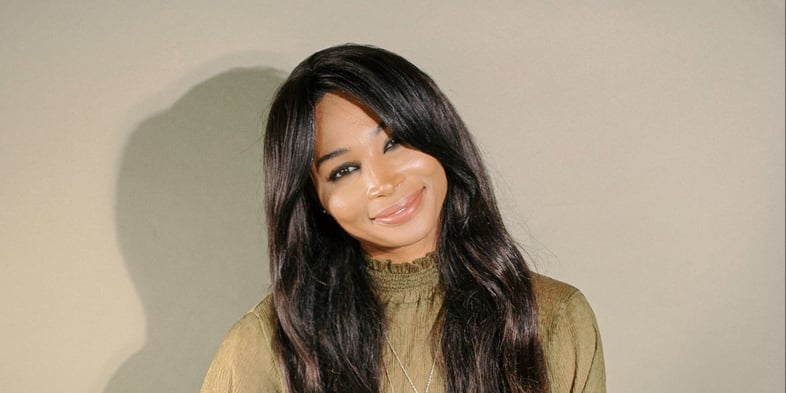
Nana Meriwether
A former Miss USA winner and professional volleyball player, Nana Meriwether is a pioneering Black winemaker based in North America, and founder of drinks brand Navina. The wellness company is focused on alcohol alternatives, creating cleaner wines made with herbs and botanicals.
Meriwether's journey to becoming a winemaker began in 2017, when she was informed by her doctor that she was on the verge of being pre-diabetic. As a result, she started a blog to explore her wellness journey, and, as well as diving into the usual topics of yoga and meditation, she discovered some unsavoury truths about sugar consumption. The resulting product is low in sugar, alcohol and calories, making it an ideal weekday drink, according to Meriwether. Made using premium non-GMO wine grapes sourced locally from northern California, the wine is putting a fresh spin on the ancient tradition of herbal wine practised by the Greeks, Romans and Egyptians.
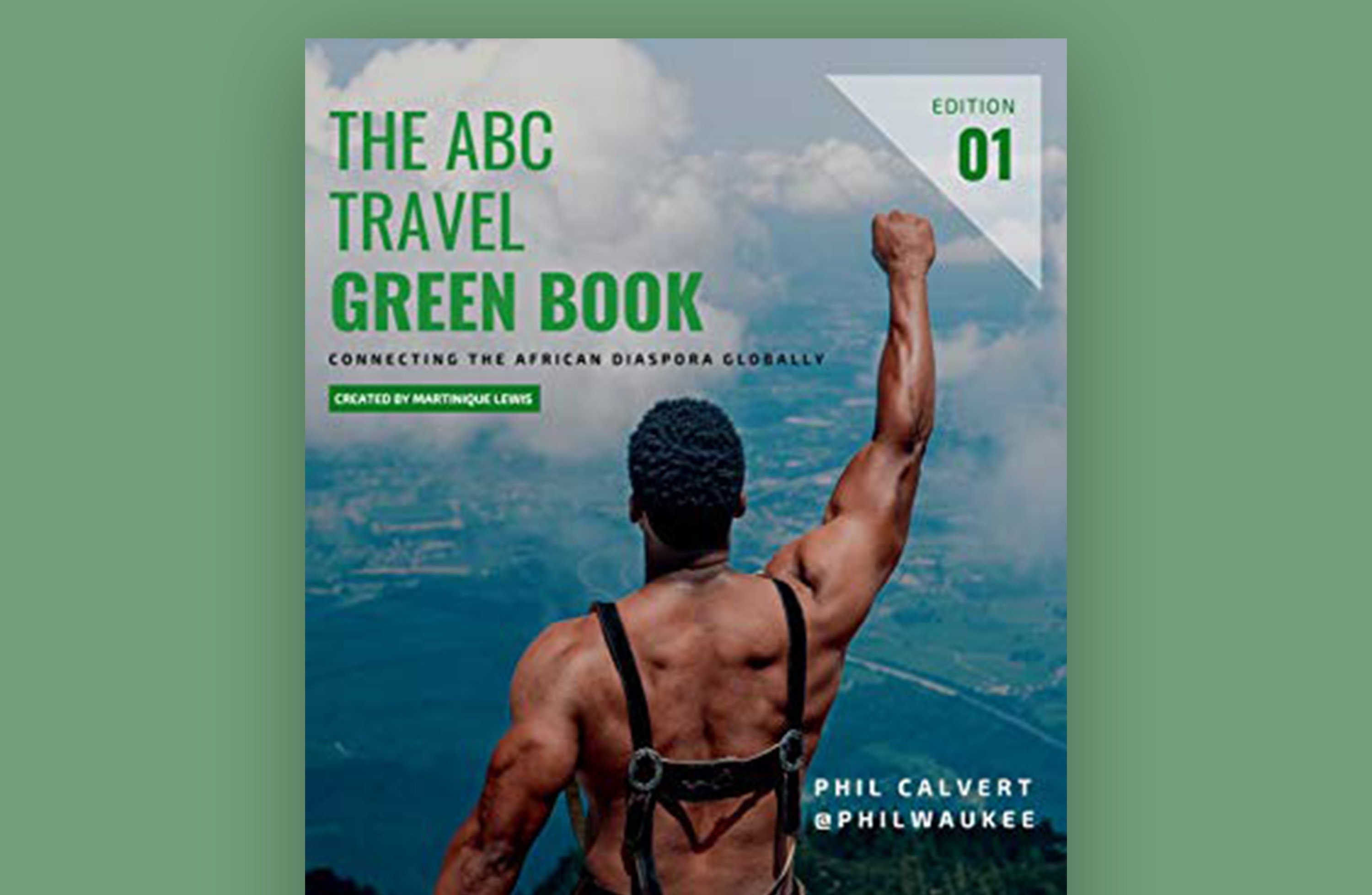
Martinique Lewis
Transforming how the world speaks to Black travellers
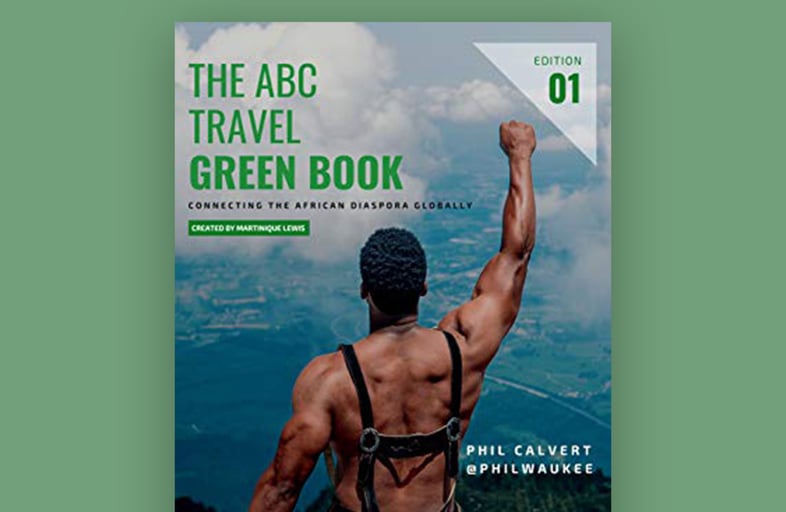
Martinique Lewis
Renowned as a driving force in the Black travel movement, diversity in travel consultant Martinique Lewis is committed to broadening the representation of who identifies as a traveller, ensuring that brands such as Airbnb and Hilton consider the experiences of Black travellers – and how these experiences might differ from those of white travellers. Aligning with this vision, Lewis sits on the advisory board of Condé Nast Traveler and serves as the president of the Black Travel Alliance.
In a bid to connect the African diaspora globally, Lewis published The ABC Travel Green Book in 2020. The directory acts as a modern equivalent to Victor Hugo Green’s guidebook for African-American motorists, listing Black-owned businesses, restaurants, tours and festivals all over the world. In 2021, she followed it up with an edition for children, helping the next generation to better understand the African diaspora – and its presence on every continent – from a young age.
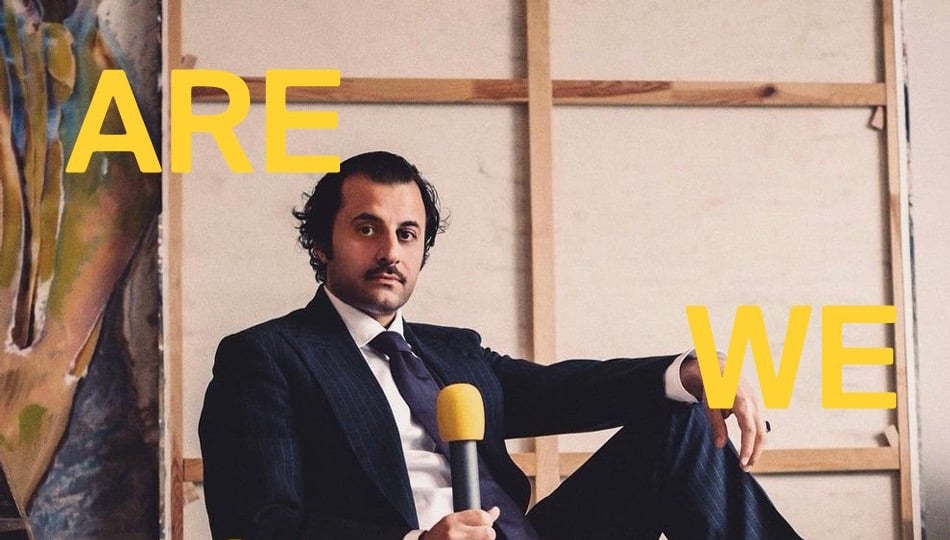
Arman Naféei
Devising how the world’s best hotels should sound
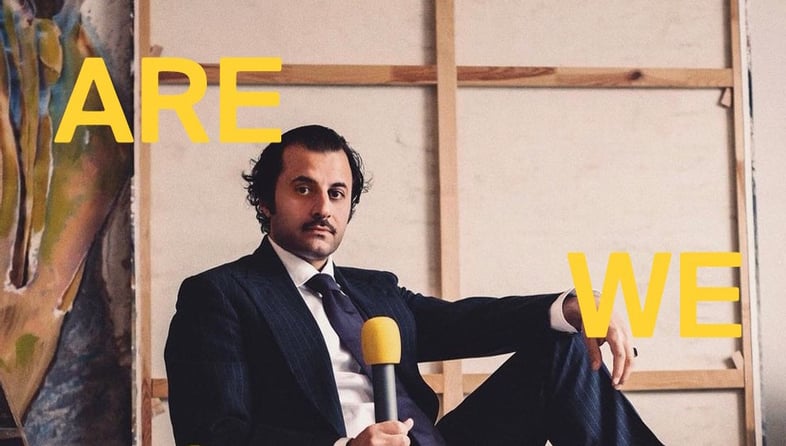
Arman Naféei
With a title like the director of ambience, it’s to be expected that Arman Naféei has a storied background in the luxury sector. Described as a musical taste-maker, he has acted as a musical director for the hotels of André Balazs, including Chateau Marmont, Chiltern Firehouse and the Standard Hotels. Outside of hospitality, he has also helped to define Sonic Identities for brands such as Prada, Moncler and Chanel.
‘Companies in the luxury sector haven’t really milked the impact that music has on brand-building,’ Naféei tells Forbes. ‘It not only influences customers’ behaviour but also makes or breaks the right atmosphere.’ As well as adding musical branding to the toolboxes of designer brands, Naféei has launched the podcast Are We on Air? in which he interviews luxury names such as Rick Owens, Dua Lipa and David LaChapelle about the creative process.

Jake Baker-Cliff
Designing streetwear for those with disabilities – not around them
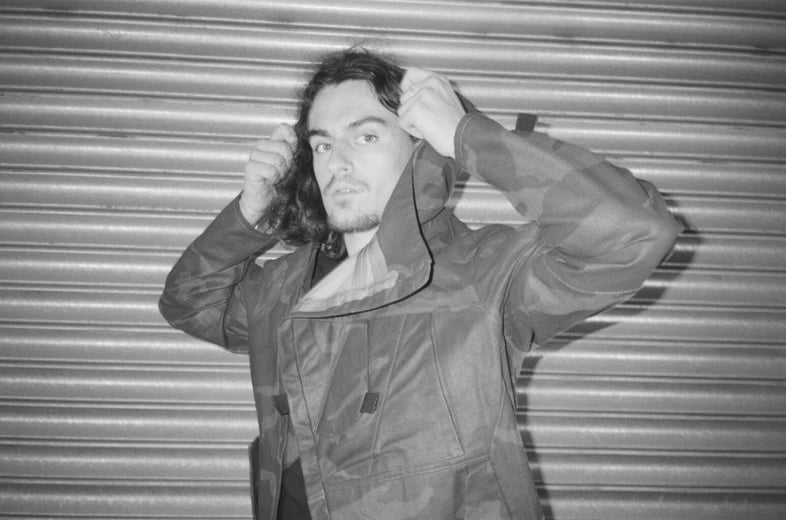
Jake Baker-Cliff
A recent graduate of the Fashion Sportswear degree at London College of Fashion, Jake Baker-Cliff has wasted no time in setting up his own fashion label. But rather than creating another brand of vague yet functional streetwear, he has a different vision: designing clothing for people with disabilities. The resulting fashion label, Wecanfly, comprises innovations such as jackets with magnetic sleeves to allow for easier dressing and a BlindAid jacket that uses fabric protection to stop passers-by from fraudulently transacting card payments through the pockets.
Seeing fashion as a form of social activism, Baker-Cliff envisages creating a community for those who are disabled but still interested in fashion. ‘I’m aiming to build a community by giving those with additional needs an opportunity to be involved in fashion like never before, by providing a platform for their voices and creativity. This inspired the name wecanfly,’ he tells Notion. To start, he’s collaborating with musician Koshy Lyngs to develop a clothing collection designed specifically for his cerebral palsy.

33
Creating a membership community for phygital shopping

33
An elusive figure on the Web3 scene, 33 is a collector of rare NFTs and currently holds more than 1,000 unique pieces. Yet this anonymous founder is also behind a marketplace of phygital collectibles – both digital NFTs and real items can be shipped to buyers’ doors, linking people’s virtual purchases with their lived realities.
The store is a regularly updated space containing a combination of member-exclusive, and limited-edition collectibles ranging from digital fashion and lifestyle products to cross-platform membership tokens and rare collaborative collectibles, created by some of the 3D industry’s most innovative creators. As a result, 33 is known in the Web3 community for his community-focused membership schemes, which allow aspiring crypto-natives and NFT collectors to get involved in the space via membership tokens that reward long-term followers

Izzy Steven
Investing in the creative potential of Jamaica's Generation Z

Izzy Steven
A DJ and producer who splits her time between London and Jamaica, Izzy Steven is the co-founder of Bossy LDN – a women-led platform that hosts music, culture and fashion events. This has made Steven an active figure in the nightlife and youth culture landscape, working with artists such as Megan Thee Stallion, and companies like Gucci and i-D to help promote women’s voices.
Outside the UK, the producer has strong roots in Jamaica and can often be found bridging the two nations. As well as producing music for Jamaican dancehall artist Popcaan, Steven runs community organisation Fear-less, which provides young people in Jamaica with tools, support and information to help them break into the creative industries. Being half-Jamaican, Steven ‘saw how much talent and greatness this small island holds’ and wanted to bring the type of opportunities available to Gen Z in London to the Drapers community in the parish of Portland.
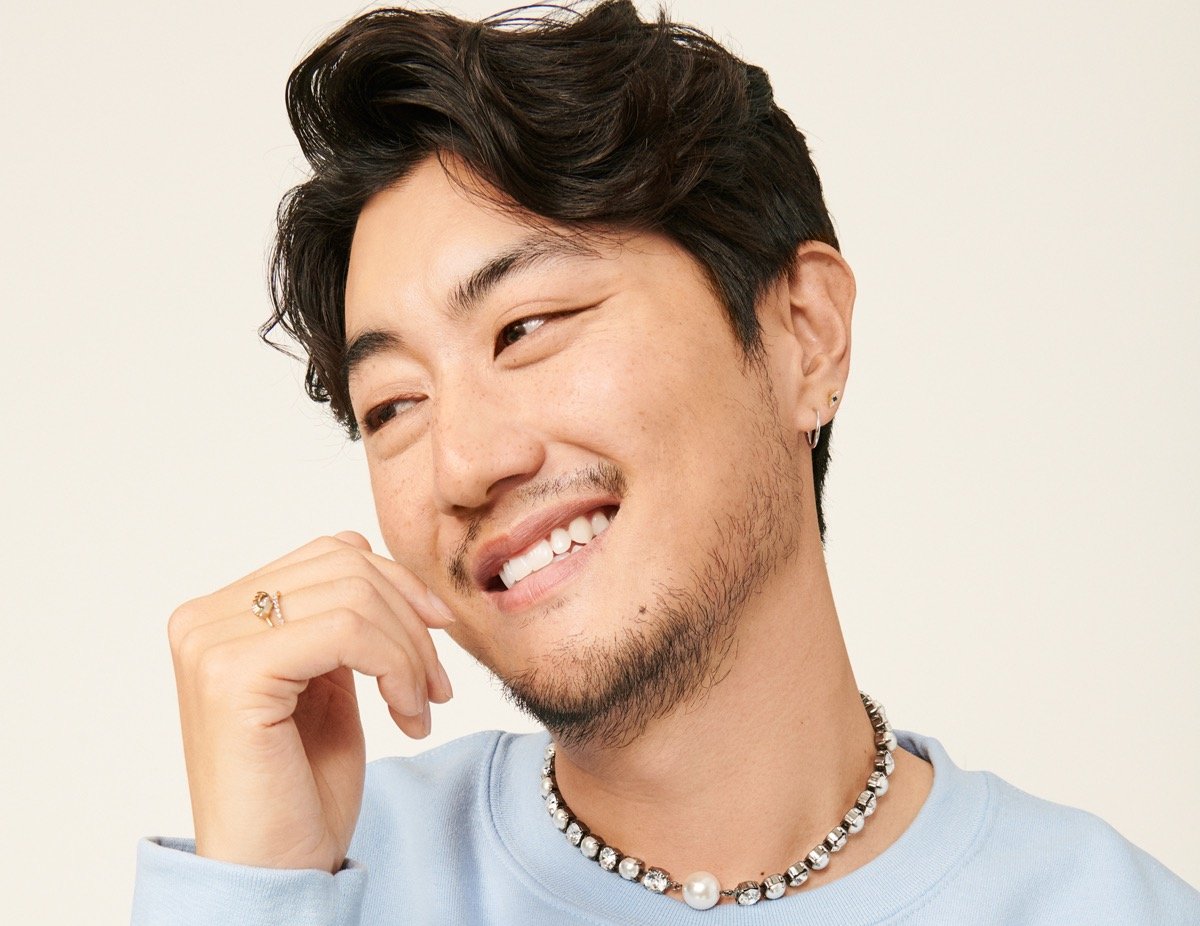
David Yi
Redefining masculinity through beauty
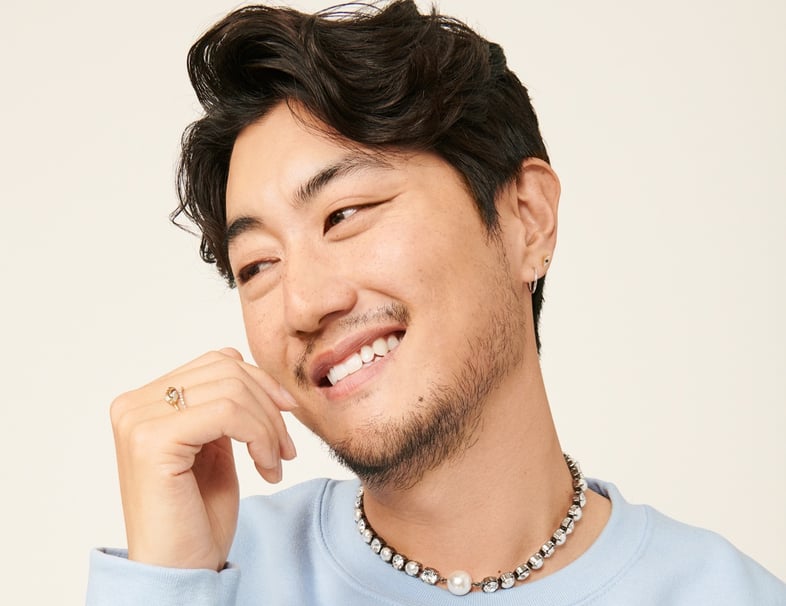
David Yi
Beginning his career as a journalist, beauty entrepreneur David Yi is well placed to change tired narratives around gender norms. His beauty platform, Very Good Light, and cosmetics brand Good Light, both challenge stereotypes where men and beauty are concerned, while also offering inclusive content on topics from mental health to racial diversity.
In his words: ‘When you embrace yourself and understand you don’t need anyone else’s permission, when that good light shines from the inside out – that’s when the world changes.’ This sentiment rings true in his new book, Pretty Boys: Legendary Icons Who Redefined Beauty (and How to Glow Up, Too), which traces the beauty rituals of men and male-identifying people throughout the centuries. Through an illustrated history and supporting guides, it aims to encourage more people to believe that beauty and wellness is an ungendered topic.

Dhruvin Patel
Addressing eye health amid accelerating screen time

Dhruvin Patel
An optometrist and entrepreneur, Dhruvin Patel is confronting the issue of blue light damage from screens and devices head-on. Since receiving a development grant from City University in London, he has built his blue light protection business Ocushield into an internationally recognised venture.
With products that have been rated by the UK's Medicines & Healthcare Regulatory Agency, including screen protectors, light-filtering lamps and glasses, Patel is becoming a leading authority on blue light, its impact on vision and quality of life. He has even been described as The Eye Expert, and was recently featured on the entrepreneurial reality tv show Dragons’ Den, where he was offered funding to further develop Ocushield.
Beyond creating products, Patel is also using the Ocushield platform to continue spreading awareness and education on the impact of blue light – with a YouTube channel exploring topics ranging from eyecare for young eyes to how to improve sleep.

Harvey Wise
Navigating creativity with ADHD

Harvey Wise
Harvey Wise is a designer and producer raising awareness about the experience of having ADHD as a creative. Since graduating from Kingston School of Art in 2020, Wise has applied his creative talents to music, motion graphics, art and design.
One of his recent projects, A motorway of thoughts, the nonlinear creative process with ADHD, provides a visual interpretation of ADHD and creativity, and was recently spotlighted in creative publication It’s Nice That. Considering the nature of creative work, he believes that balancing passion and emotion with sensitivity will lead to strong outputs. ‘I like to deconstruct work into stages, enabling me to finish and advance or develop and go back,’ he says when explaining his working style.
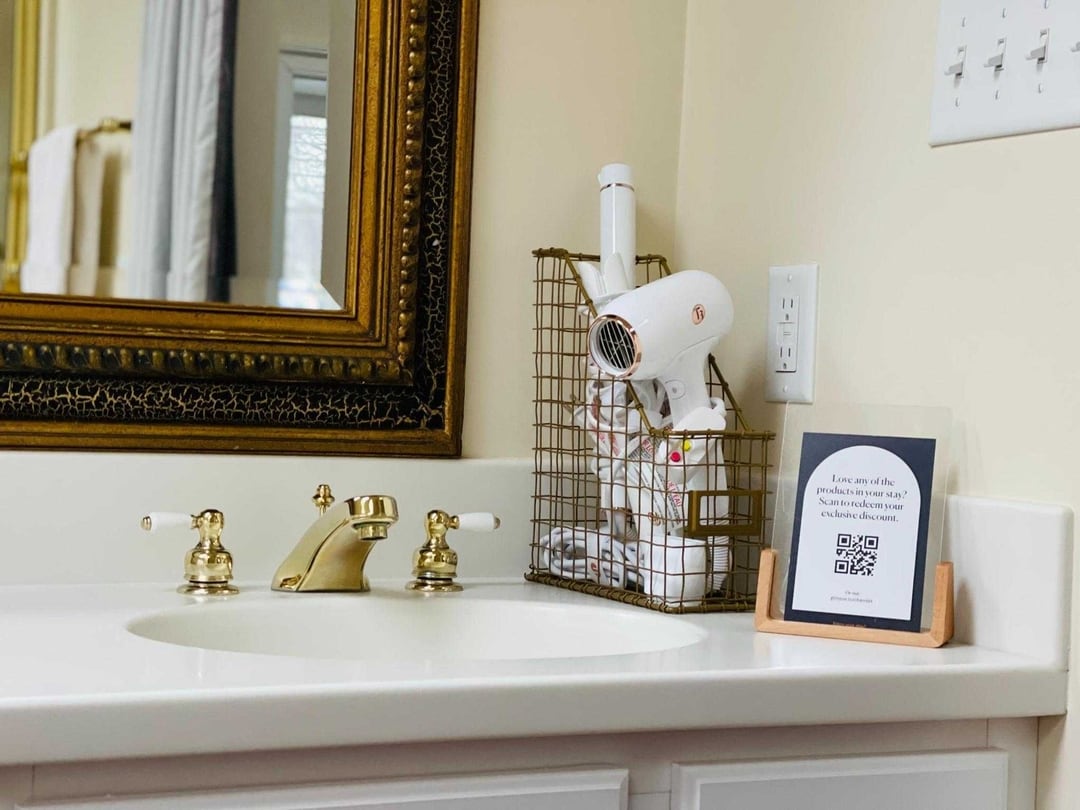
Anuj Mehta and Akash Raju
Turning holidays into shoppable experiences
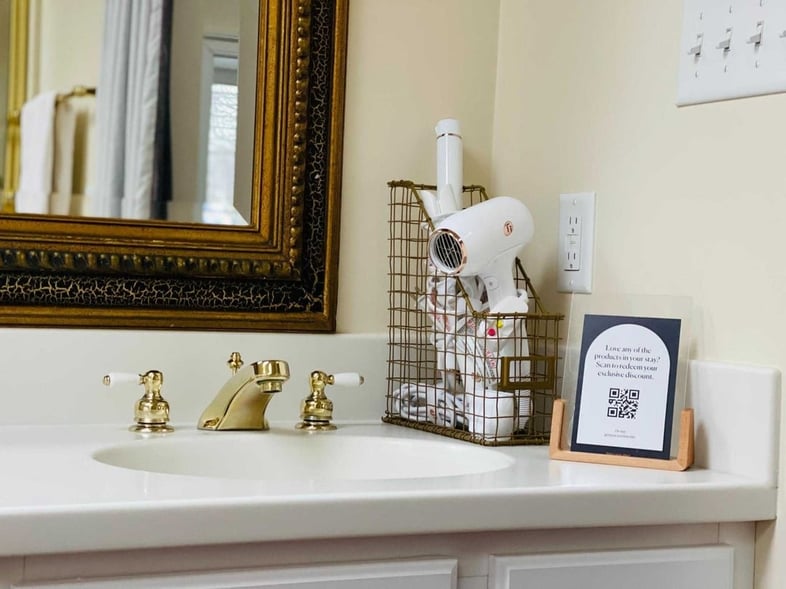
Anuj Mehta and Akash Raju
How often have you stayed in an Airbnb or hotel and daydreamed about taking home the bed, coffee machine or high thread-count sheets? As co-founders of Glimpse, Akash Raju and Anuj Mehta are helping people to do just that – their burgeoning company allows brands to combine hospitality experiences with retail. Seizing upon the idea of Try Before Trading – a trend we explore in Hyperphysical Stores – Glimpse helps brands to position products ranging from furnishings and textiles to electronics and bathroom and beauty amenities in hotel rooms or rental properties, with discreet QR codes allowing guests to browse and shop for items for their own homes.
At present, Glimpse serves more than 8,000 luxury properties across the US and to date has launched its services in 40 states. It has also recently raised £5m ($6.2m, €5.9m) in funding. ‘Short-term rentals provide the perfect environment for customer engagement, as guests can truly experience these products in their intended setting,’ explains Raju, co-founder and CEO of Glimpse. ‘Glimpse gives brands phenomenal access to potential customers and provides immediate ROI on brand awareness and conversions.’
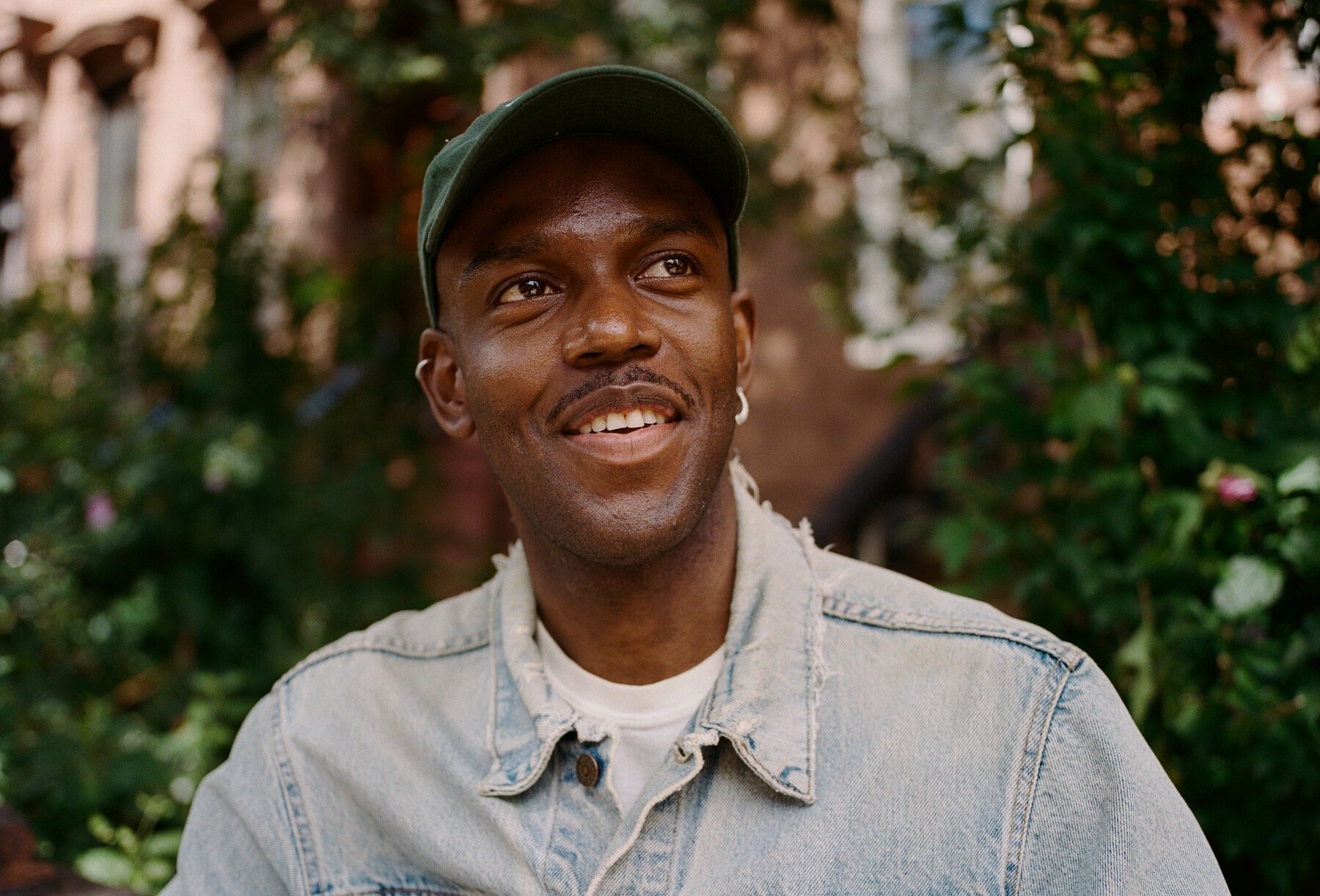
Emmanuel Olunkwa
Crafting a multi-disciplinary future for luxury
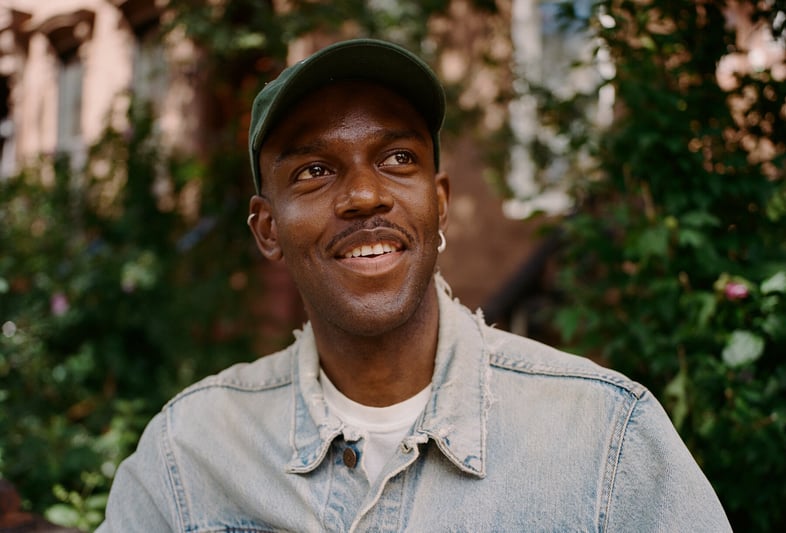
Emmanuel Olunkwa
Operating at the intersection of art, Web3, luxury brands and design, Emmanuel Olunkwa encapsulates the contemporary luxurian. As the head of content and community at digital gallery ArtOfficial, Olunkwa connects with next-generation art fans through cryptocurrencies and NFTs.
Meanwhile, his multi-hyphenated approach is also leading Olunkwa to make waves in the interiors space with his brand E&Ko. As a furniture designer, he is known for creating flower-shaped side tables and sculptural chairs made from high-grade plywood. Commenting on his collection, he says: ‘When I started living alone last year, I began making furniture because I wanted my space to reflect myself for the first time.’
Beyond his independent creative ventures, Olunkwa is also leading the way in promoting a paradigm shift in the luxury sector. Already, he has consulted for brands including Farfetch, JW Anderson and Thom Browne.

Josephine Philips
Reviving repairs to future-proof fashion

Josephine Philips
Despite consumers becoming more conscious of the damaging impact of fast fashion, many still face barriers when it comes to repairing clothes, finding that they don’t have the time or skills to do so.
This is where 24-year-old entrepreneur Josephine Philips is stepping in, providing a convenient and accessible app, Sojo, which profiles local tailoring businesses in London. ‘Sojo is an accessible way for [my generation] to be able to engage with tailoring and repairing through a really easy process which they’re used to doing, and that’s playing with an app on their phone,’ says Philips.
Through this solution, Philips empowers people to extend the lifespan of their garments by making it easier to access alterations and repairs. At the same time, Sojo also enables independent tailors to diversify their customer bases.
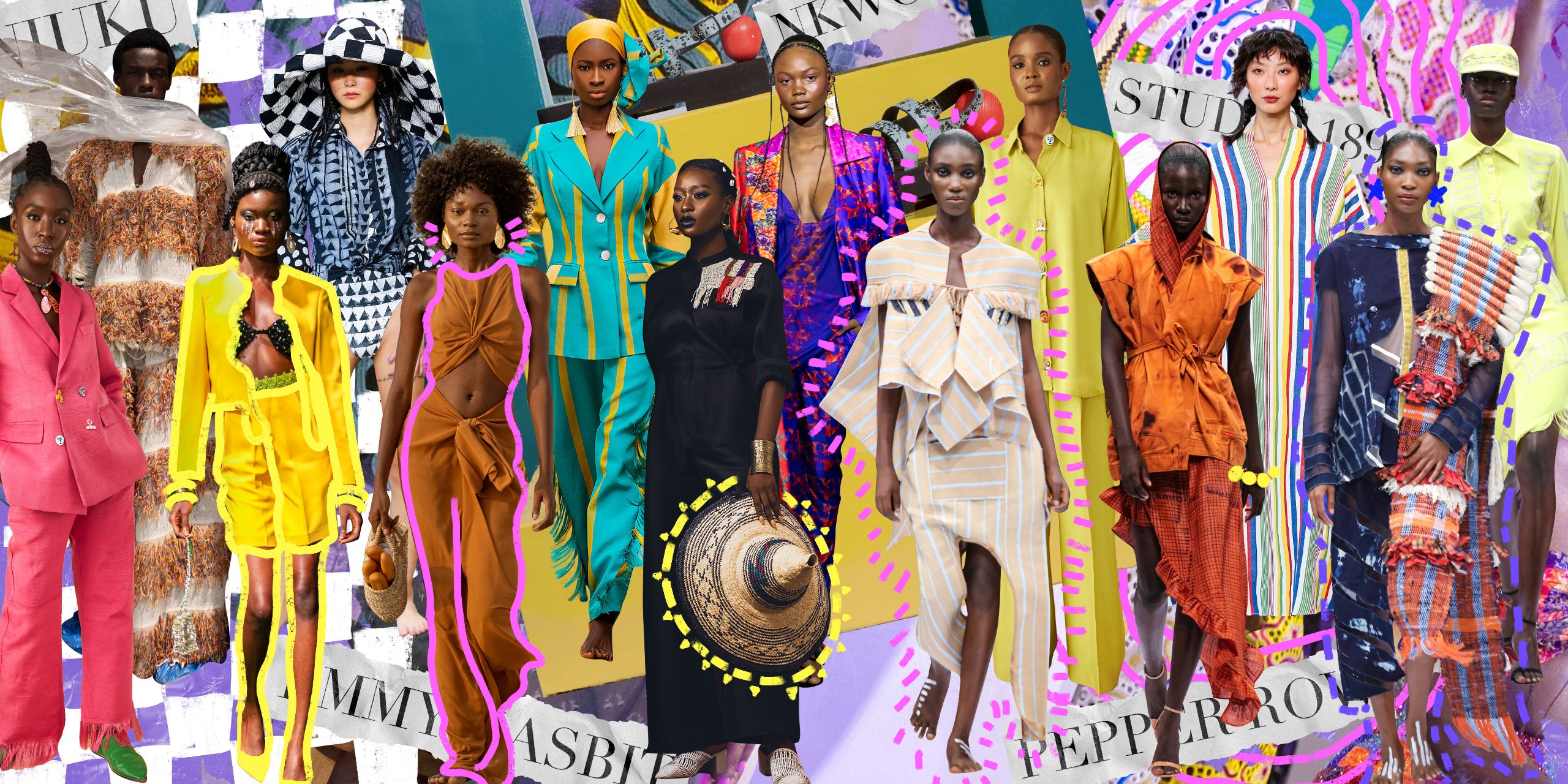
Nisha Kanabar
Promoting African talent through storytelling
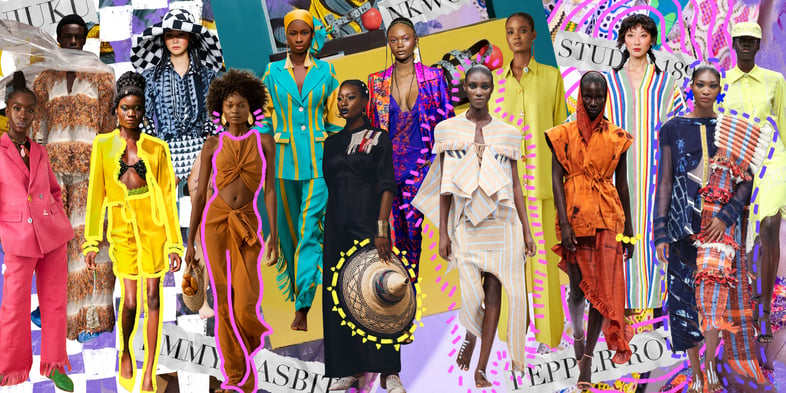
Nisha Kanabar
With a background in luxury fashion and publishing, and over a decade of experience at titles including Vogue, Vogue India, and Style.com in the Middle East (now Vogue Arabia), Nisha Kanabar is now channelling her creative energy into spotlighting talent from her home continent.
The result is Industrie Africa, initially launched as a free, digital African fashion showroom for media and fashion stakeholders. As it grew in popularity, with nearly 70% of contact enquiries driving product purchases, Industrie Africa has transformed into an e-commerce platform.
Yet, Kanabar emphasises the importance of elevating independent designers via curation and storytelling, recently launching IA Connect, a portal for discovering African fashion talent and understanding the local creative landscape.
She says: ‘[This is a] platform that will serve the industry and peripheral stakeholders from the perspective of education, intelligence, insights and reports.’

Ana Constantino
Creating a digital safe space for multiculturalism

Ana Constantino
As social inequalities become increasingly apparent in Web3, Ana Constantino, co-founder of online community platform Nowhere, is working to create more inclusive virtual realms. Unlike other emerging digital spaces, Nowhere doesn’t require a crypto wallet or an NFT to join. By doing so, it lowers the financial and technical barriers that are common to Web3 platforms.
Even as the platform grows, Constantino says there will always be a free version – that's also browser-accessible – to ensure that the metaverse and its audiences can be diverse and approachable. In this way, Nowhere applies the core principles of multiculturalism, ensuring that the next iteration of the internet is an equitable space. ‘We believe culture and society benefit when people are together,’ says Constantino.
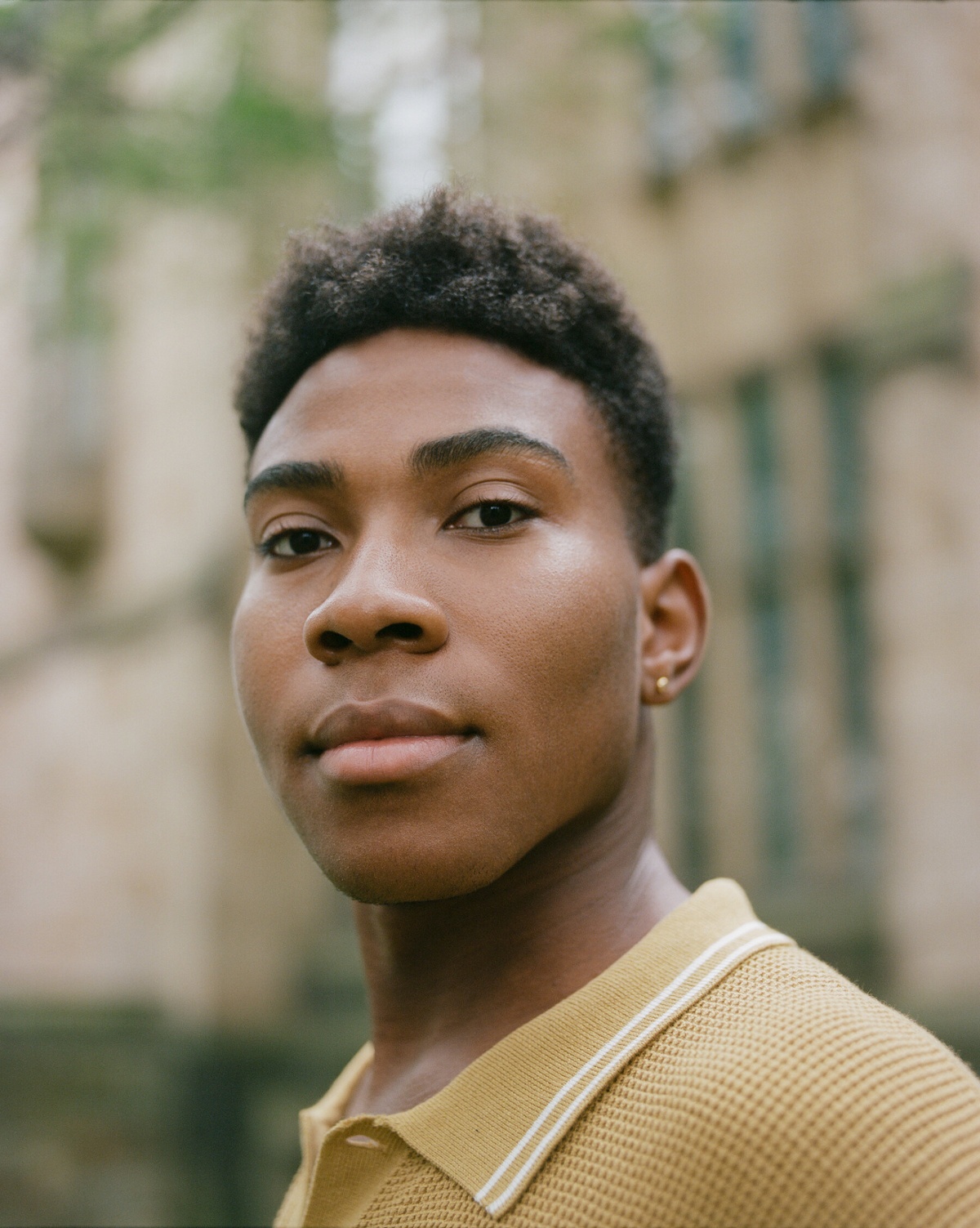
Kahlil Greene
Decolonising education through social media
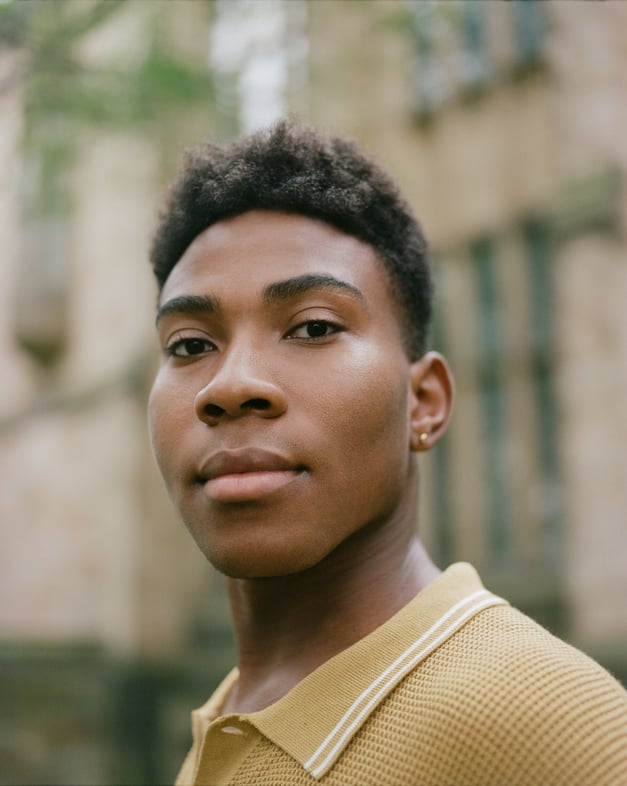
Kahlil Greene
While we often talk about Generation Z through a future-facing lens, speaker and social media personality Kahlil Greene demonstrates how this generation are also engaging passionately with the past – and how it has led to the social justice issues they're addressing today. Known on TikTok, Instagram and YouTube as The Gen Z Historian, the 22-year-old is working to fill the gaps in historical education and politics that are conventionally left out of US school curriculums.
‘Coming up with a formula on how to break down complex issues in a way that the majority of people can grasp was something I was most proud of as a content-creator, and want to continue doing through different mediums,’ he says. Beyond his work of promoting self-learning through social media, Greene also works with organisations to help them bridge the gap between Gen Z and diversity, equity and inclusion strategies.
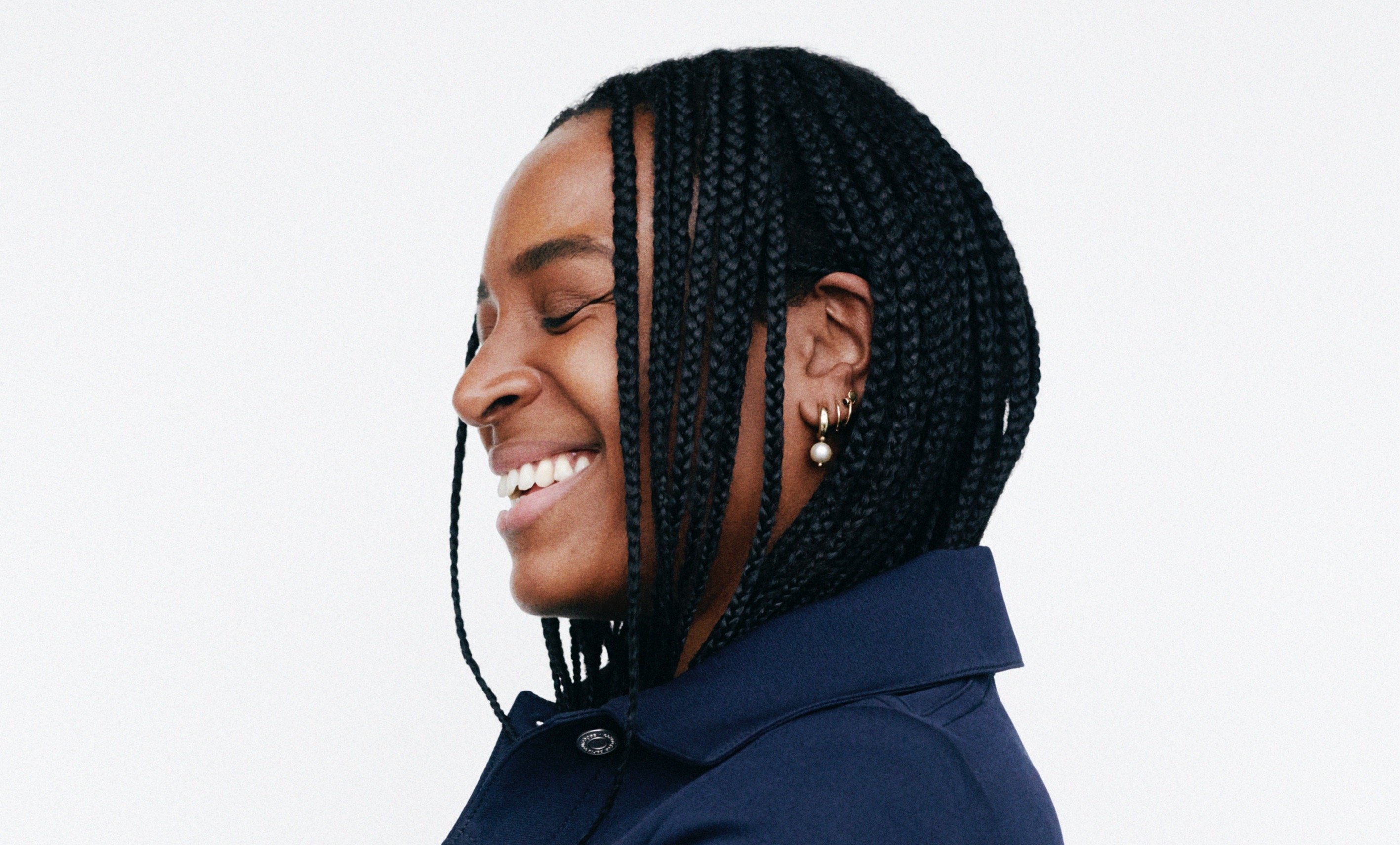
Cyndia Harvey
Creating premium Black haircare that unites and respects beauty and culture
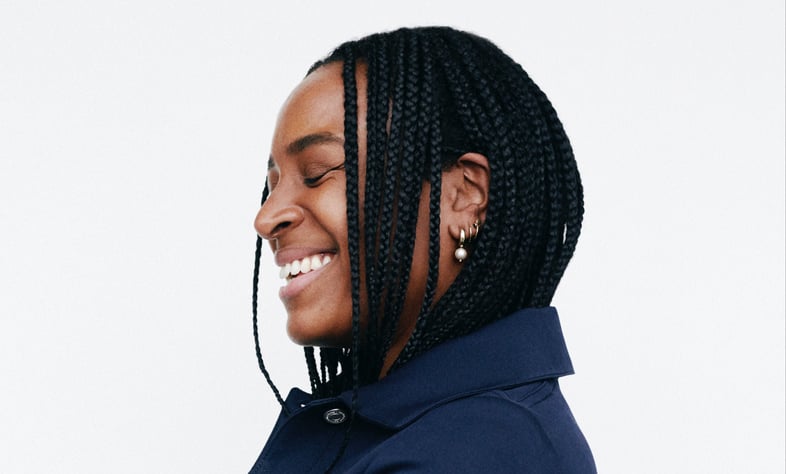
Cyndia Harvey
Cyndia Harvey is on a mission to elevate Black hair and scalp care, creating a luxurious brand that retains a clear connection with ancestral hair culture. The result is This Hair of Mine(T.H.O.M), a new brand created by Harvey and artist Remi Ajani, offering a plant-based scalp serum developed with scientists. The product affirms scalp care as being as important as face and body skincare. ‘Scalp care has long been part of the Black experience. A ritual enjoyed between mothers, fathers, sisters and brothers,’ explains Harvey. ‘Using the latest advances in science, we are re-inventing this ritual with a more effective solution designed to deliver exceptional results.’
Beyond products, Harvey wants T.H.O.M to become a space for greater visibility and freedom of expression for Black hair, born from her own experience growing up in Jamaica and witnessing hair as an art form – something she later replicated working in London’s leading Black hair salons, on campaigns and runways for Versace, Jacquemus, Burberry and Gucci, alongside cultural figureheads such as Solange and Kendrick Lamar.
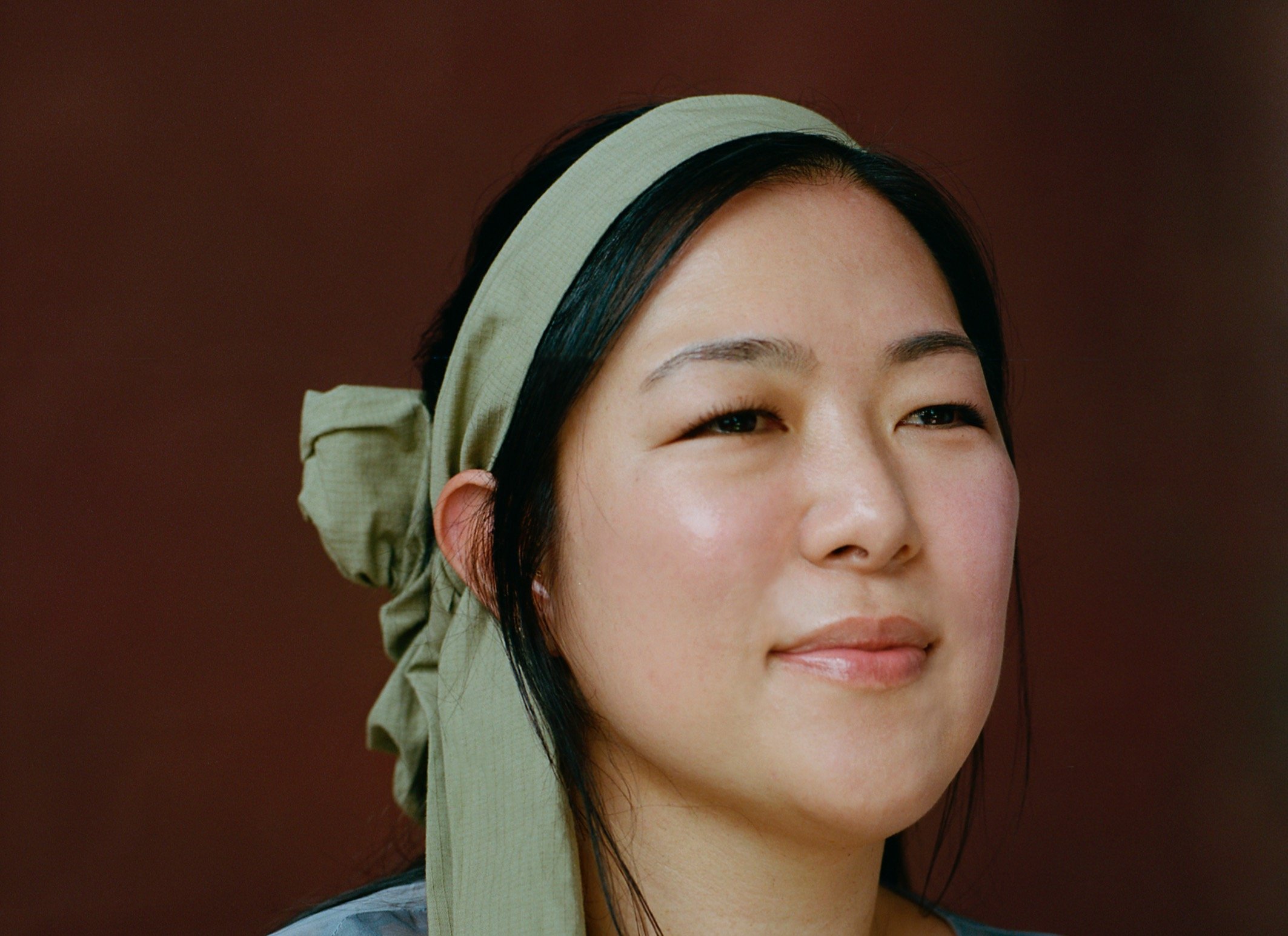
Joyce Lee
Fostering support systems at the intersection of race and sexual wellness
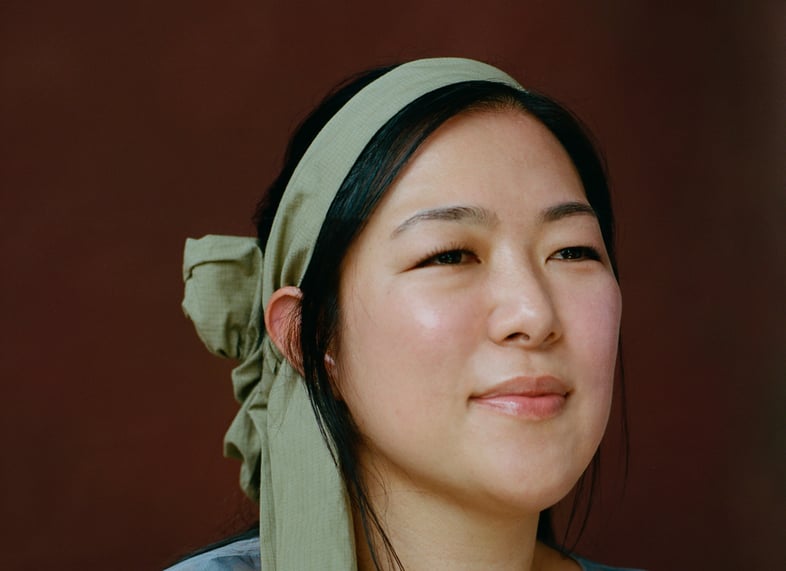
Joyce Lee
Joyce Lee is the founder of Her Place, a sexual wellness and pleasure community that began life as a safe space for Asian women among the accelerating – and alarming – rise in anti-Asian hate crimes. Seeking to counter the sexual objectification and stereotypes that many Asian women experience, Her Place allows women to comfortably and safely explore their sexuality and desires, without shame or taboo, while helping to educate others.
Two products kick-started the brand – a hair ribbon and scrunchie that double as bondage devices. Demonstrating Race-empowered Wellness in action, Lee describes how these items have become recognisable tokens of being part of the Her Place club, when women spot others wearing them. ‘It’s showing that you own your sexuality proudly. By wearing it during the day as fashion, it’s almost like winking at each other… I see that she owns it and I own it, it’s a support system,’ Lee tells Bazaar.com.
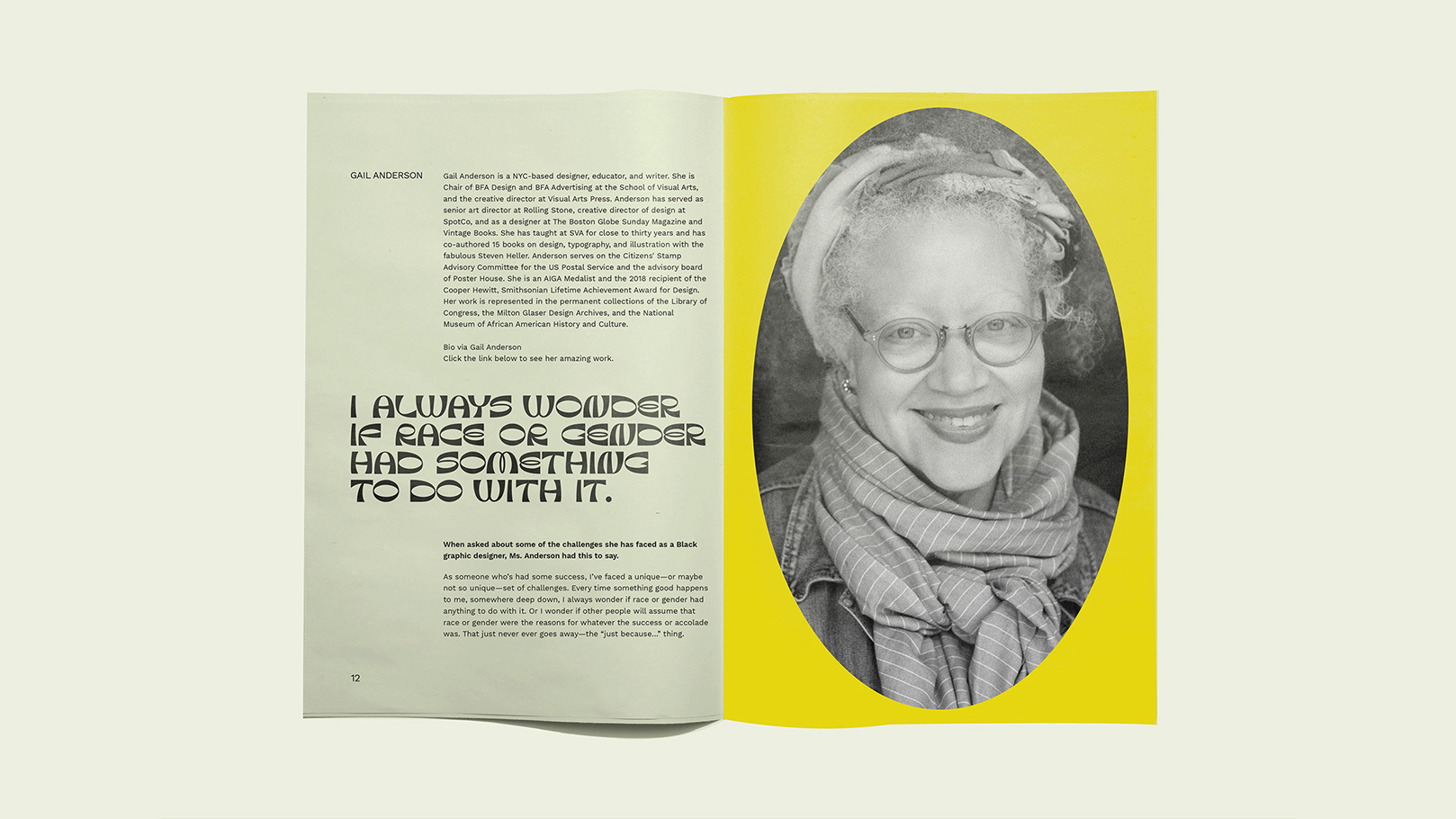
Mirna Pierre
Celebrating Black design history to inspire future designers
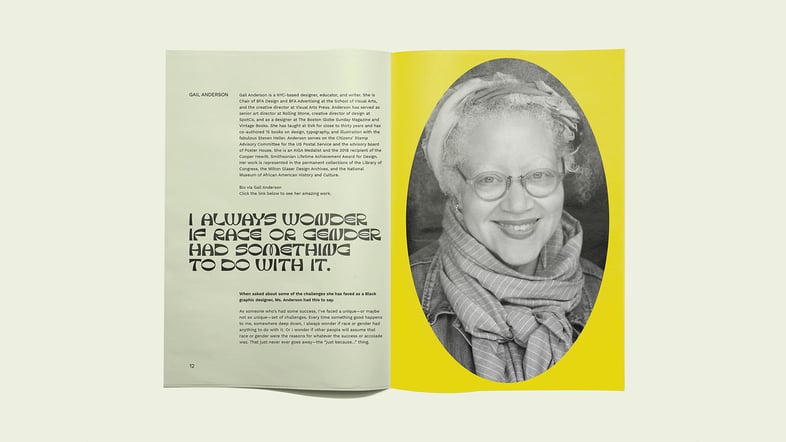
Mirna Pierre
Based in Florida, Mirna Pierre is a graphic designer working to bring Black graphic design talent to the fore after decades of being overlooked in the creative industries. Her notable project, View, is a confident and curvaceous typeface that pays homage to Black creatives. Focusing intently on the past in her research and development of the font, Pierre made a bold choice to avoid social media during the creative process, so as not to be influenced by contemporary design trends and leanings, and only by historical references such as 1970s record sleeves. ‘The colours, shapes, patterns and textures of that time really influence my work today,’ she tells It's Nice That.
A further strand of her research saw Pierre speak to Black designers to hear their stories, achievements and opinions on design and creativity, which itself influenced the resulting contrast and textures found in View. In particular, Pierre’s work also upholds how typefaces and lettering can capture and communicate a culture or historical narrative, and points to a future of creative type and graphic design that is centred on championing identity as much as legibility.
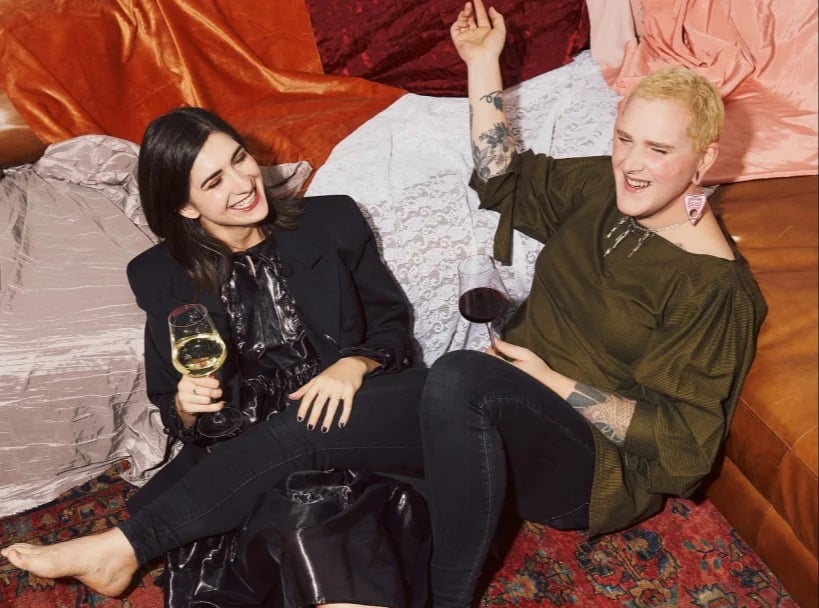
Telly Justice and Camille Lindsley
Queer restaurateurs on course to redefine luxury dining
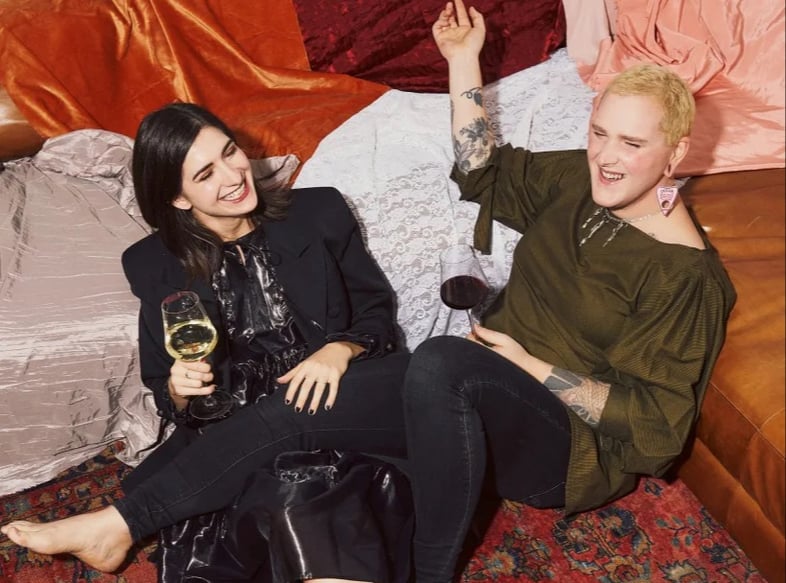
Telly Justice and Camille Lindsley
In the era of Redemptive Diets, food is becoming the great connector once again, with communities – from neighbours to friends, colleagues and comrades – gathering around tables in the shared act of cooking and dining together. This is the premise that underpins HAGS, a restaurant ‘for queers, by queers’, co-created by Telly Justice and Camilla Lindsley.
As partners in life and business, HAGS unites their creative backgrounds in food and drink for a community space that seeks to elevate dining for the LGBTQ+ community, with none of the stuffiness or exclusivity typical of luxury dining spaces. Instead, HAGS wants to subvert such normative dining spaces as the perverse – that in fact, shape-shifting, inclusive and convivial dining spaces signify the future.
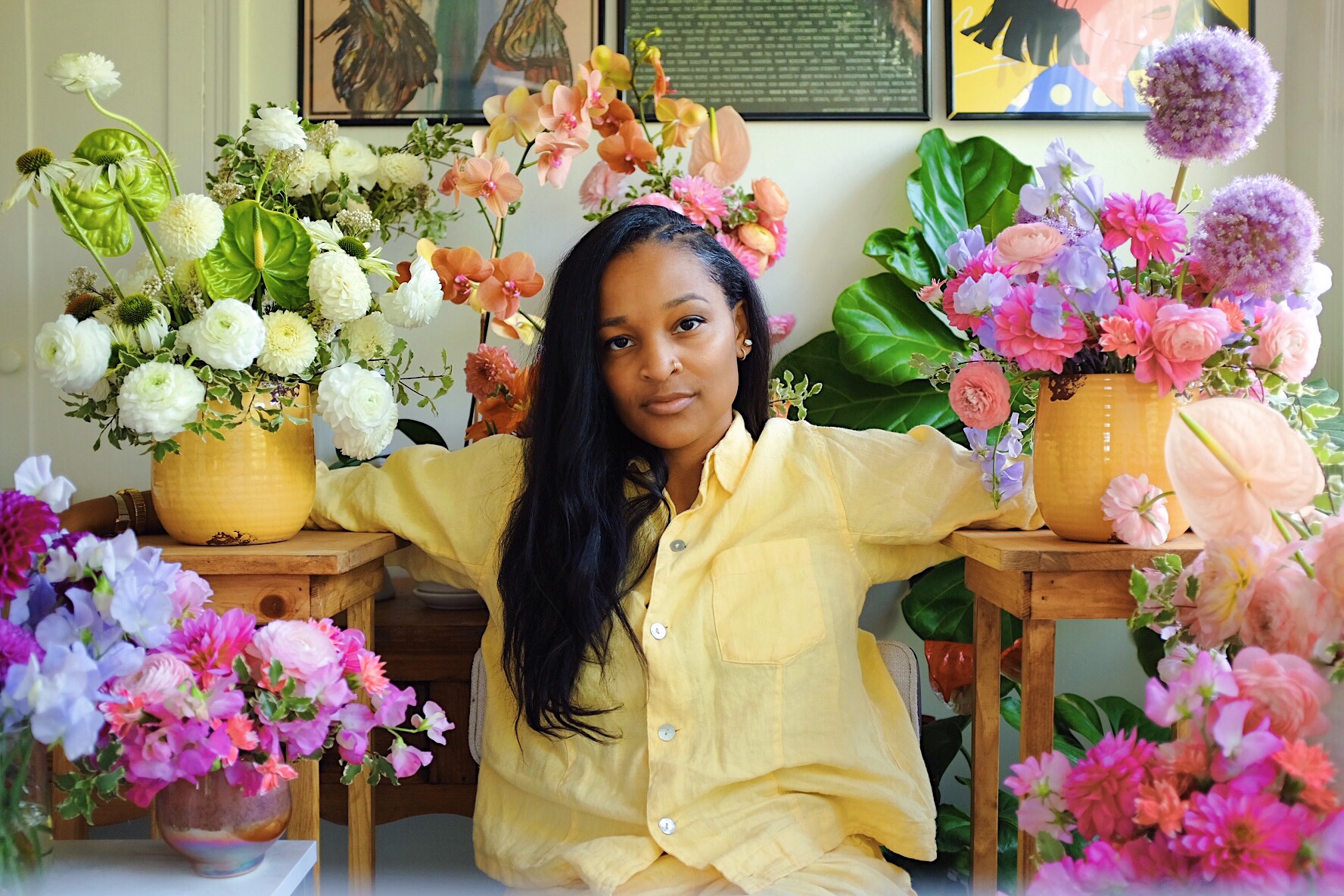
Tabia Yapp
Fusion floristry that animates audience engagement
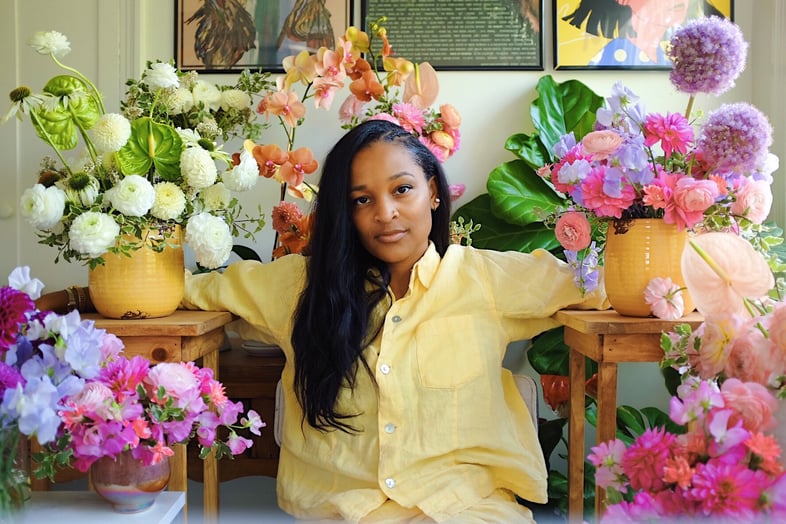
Tabia Yapp
For Tabia Yapp, who runs a talent agency focused on representing women and artists of colour, her career and second business working in floristry has led to her working with brands ranging from Louis Vuitton to Veuve Clicquot and being championed by actors and musicians such as Lupita Nyong’o and Pharrell Williams.
Transforming how the luxury sector engages with a new generation of florists, Yapp’s company Bia Blooms is using flowers for their sensorial, even ephemeral properties. United with food, music or other creative industries, floristry is fast becoming a central component in luxury brand DNA and experiences.
Another route that is helping to educate and engage new audiences with floristry is her Bia Bloom Bars. Partnering with brands, Yapp brings these experiential activations to events, allowing guests to pick out flowers and build their own bouquets. These social media-worthy spreads of stems and petals, not to mention the ability to take home free flowers, results in plenty of happy customers.
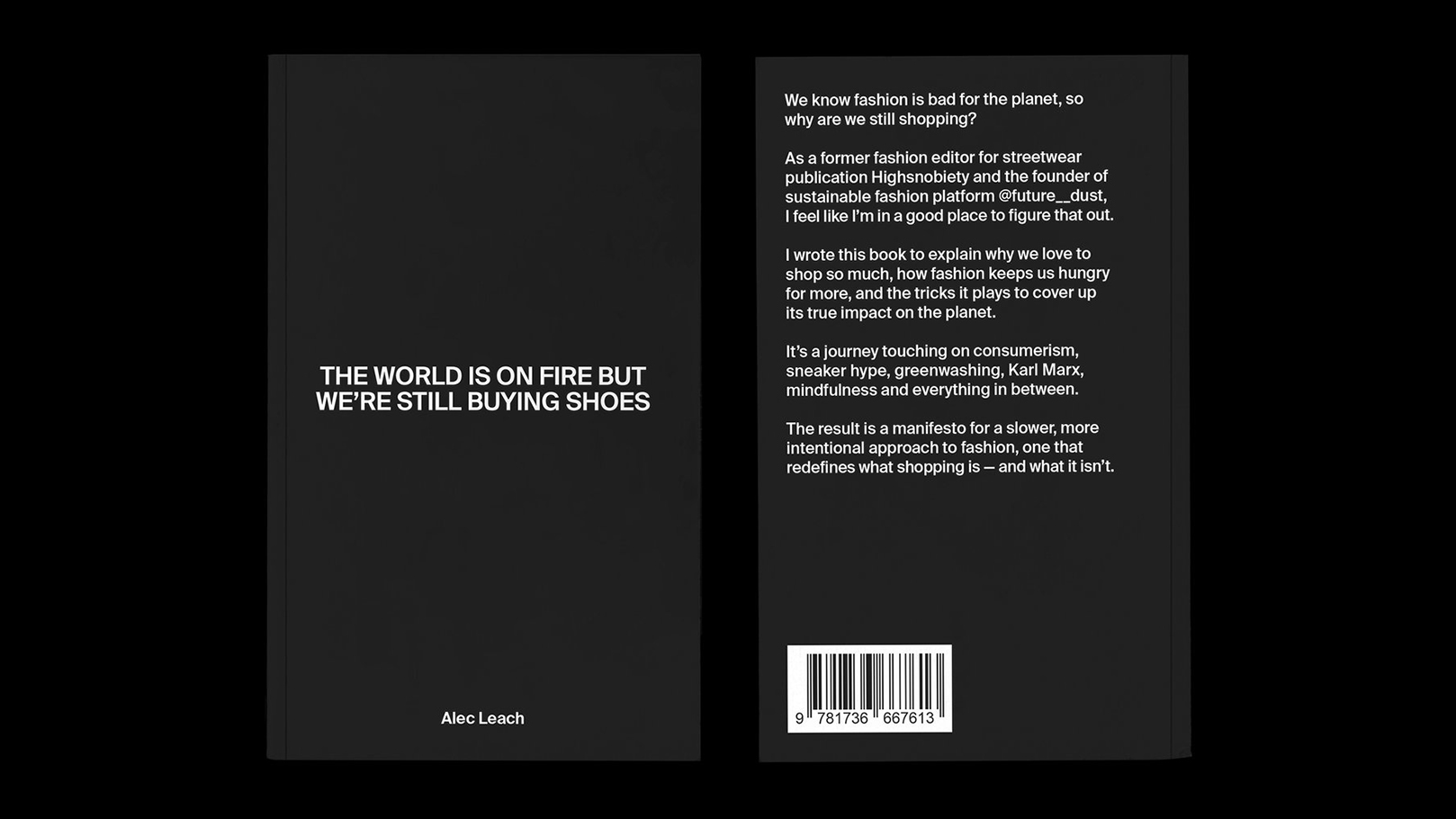
Alec Leach
Simplifying how we understand and change unsustainable fashion behaviours
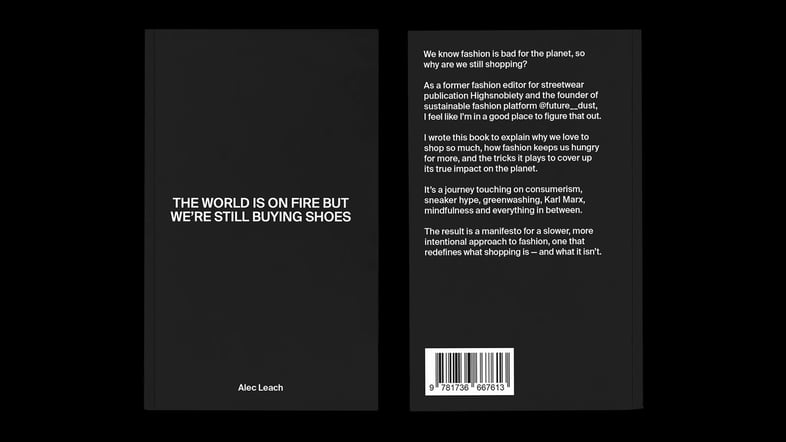
Alec Leach
Alec Leach is a consultant and strategist drawing attention to the hypocritical nature of the fashion industry in the age of accelerating climate anxiety. Despite claims from both brands and their customers about wanting to be more sustainable, we all continue to sell, buy, wear and throw away garments and footwear at an alarming rate.
Having previously worked as style editor at streetwear platform Highsnobiety, Leach reflects on the state of the fashion industry via his Instagram account Future Dust, examining consumerism, responsible fashion and greenwashing. Crucially, he’s developing an honest and transparent way of talking about sustainability – something Leach has cemented with the launch of his first book, The World Is On Fire But We’re Still Buying Shoes, a 144-page pocket-sized title brimming with infographics and revelations about the trickery of the fashion industry. This bold manifesto offers a roadmap to help brands and consumers have a more intentional relationship with fashion, one Leach describes as ‘better for the planet, but better for us as people, too’. He tells us: ‘Too often brands rely on tricks and double-speak to make it look like they're serious about sustainability, when really they just want to continue business as usual. Laying out a concrete plan for emissions reduction, not offsetting, is the only way forward in my opinion.'
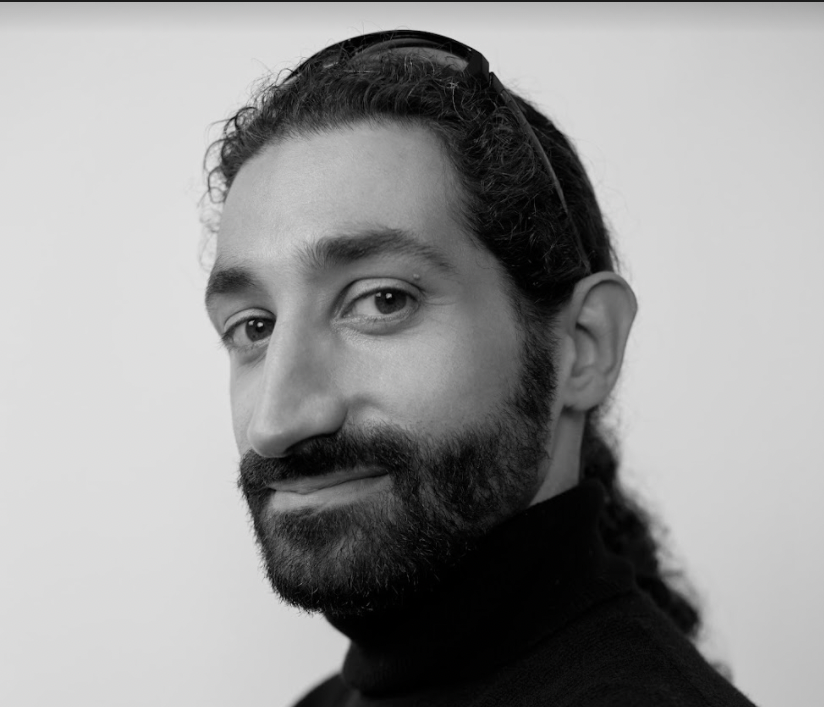
Mathieu Alengrin
Rewilding retail as a response to bland brands and buying experiences
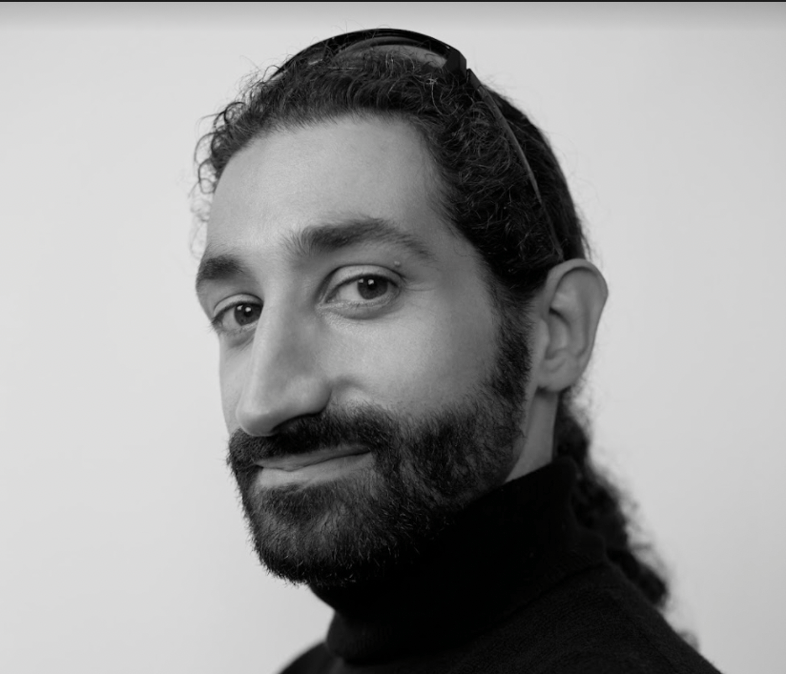
Mathieu Alengrin
Transforming the concept of wholesale for fashion and lifestyle brands, Ankorstore bills itself as the first marketplace that connects brands and creators with independent retailers all over Europe – be they gift shops, coffee shops or florists. Under the leadership of co-founder and chief technology officer Mathieu Alengrin, it has found a presence in more than 26 countries in just two years. The secret? Lowering the barriers to entry for stores – its minimum order is just £86 ($105, €100) – and flexible pay later schemes that allow stores to sell goods before they’re billed.
Before co-founding Ankorstore, Alengrin led the engineering team at luxury resale platform Vestiaire Collective, giving him crucial experience of running a marketplace. Now, in the wake of growing consumer appetite to shop locally and at independent stores, Ankorstore is giving them the tools to survive against bland department stores or homogeneous store experiences. ‘Creating big-scale tech solutions is what I dream of doing,’ he says.
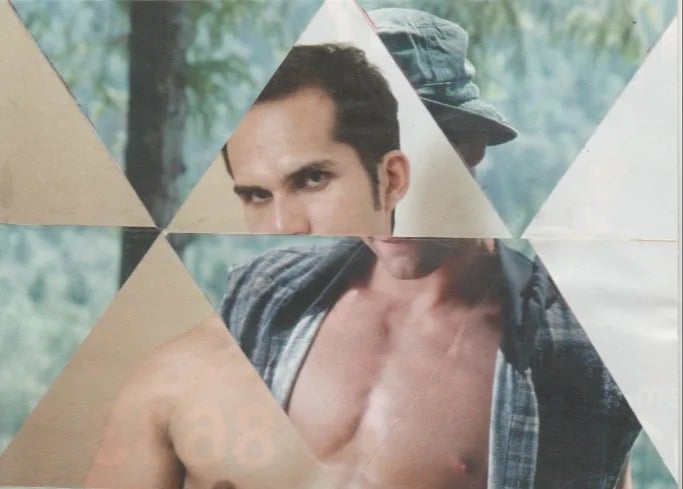
Charis Uster and Ernest Otoo
Using Web3 to support censored sex workers and educators
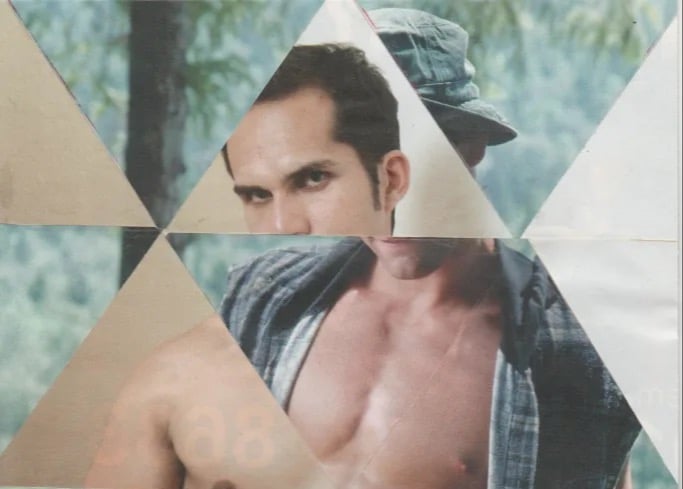
Charis Uster and Ernest Otoo
At a time when the internet is becoming more open than ever it is also facing more censorship, especially where sex work and sexual health and wellness are concerned. In the US, the passing of the recent SESTA/FOSTA laws – designed to combat sex trafficking – has in fact led to the censorship of sex workers and even affected conversations on wellbeing platforms.
It's here that Ernest Otoo and Charis Uster are seeking to drive change and fight for the voices, work and creativity of sex workers, content-creators, performers and educators. To do this, they're turning to NFTs, launching a marketplace called NFTreats, where the public can support such performers and creatives by purchasing NFTs as a form of compensation for work that might be censored. At present, the platform features more than 35 artists and performers, with the ambition to fuel education, conversation and create 'a positive narrative around sex and sexuality through art and community.'
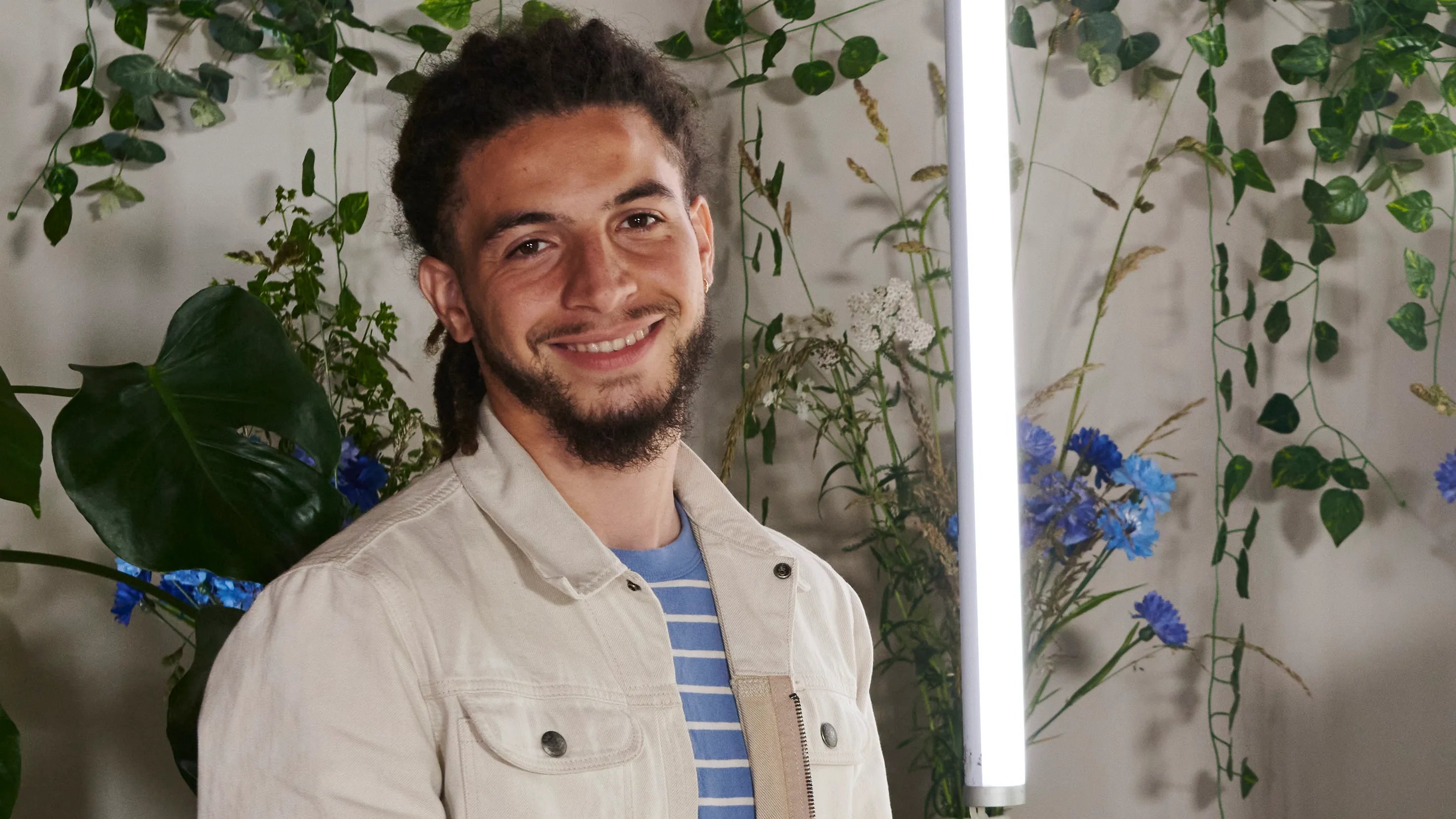
Tayshan Hayden-Smith
Greening the grey with a focus on community and inclusivity
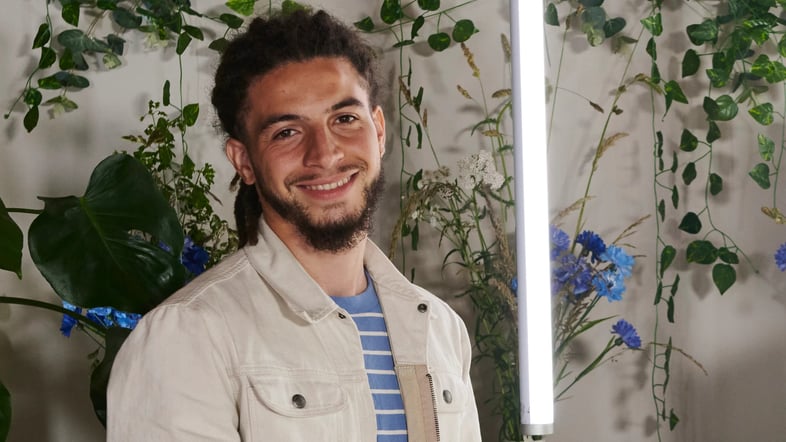
Tayshan Hayden-Smith
Most people wouldn’t link football and gardening together, but for 20something west Londoner Tayshan Hayden-Smith, the latter has become his passion over a burgeoning career scoring goals in Europe. Today, he's focused on championing gardening as a community activity and connector.
The reason for his green-fingered career shift has roots in tragedy; Hayden-Smith grew up close to Grenfell Tower, a high-rise building in London where, in 2017, a fire broke out killing 72 residents. Flying back to the UK from his football club in Austria, he spent time cleaning up a public garden with the community, which later became the Grenfell Garden of Peace. Finding solace and purpose in this garden, and spotting a need for more inclusive community gardens, he founded Grow2Know, a grassroots non-profit organisation that reclaims green space in cities and reconnects people with nature. He recently won an award at the prestigious Chelsea Flower Show for Hands Off Mangrove, a garden inspired by Notting Hill’s Mangrove Nine activists in the 1970s, alongside the global destruction of mangroves.
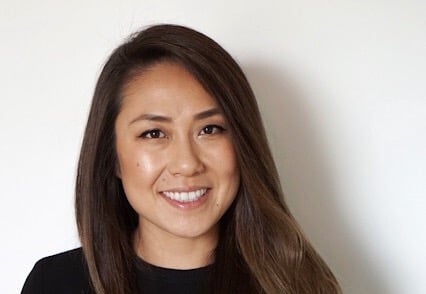
Jenny Qian
Building a live-streaming platform for the beauty community
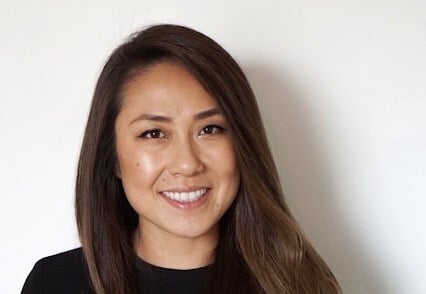
Jenny Qian
Newness aims to do for beauty what Twitch has done for gaming; that is, create a space online for creators and their fans to foster strong communities and bond over their shared interests. Formerly at Twitch, Jenny Qian, the platform’s co-founder and CEO, is bringing her expertise in live-streaming to a different sector and a new audience.
While live-streaming itself is nothing new, Qian brings a clear understanding of the type of content that works on this type of platform. Newness is helping beauty shoppers to navigate the often-confusing world of product launches, paid-for influencer content and advertising that surrounds the sector by allowing them to interact directly with expert creators in real time. This is translating into high engagement rates, with two-thirds of the viewers on any stream using chat to communicate with the creator and other viewers.
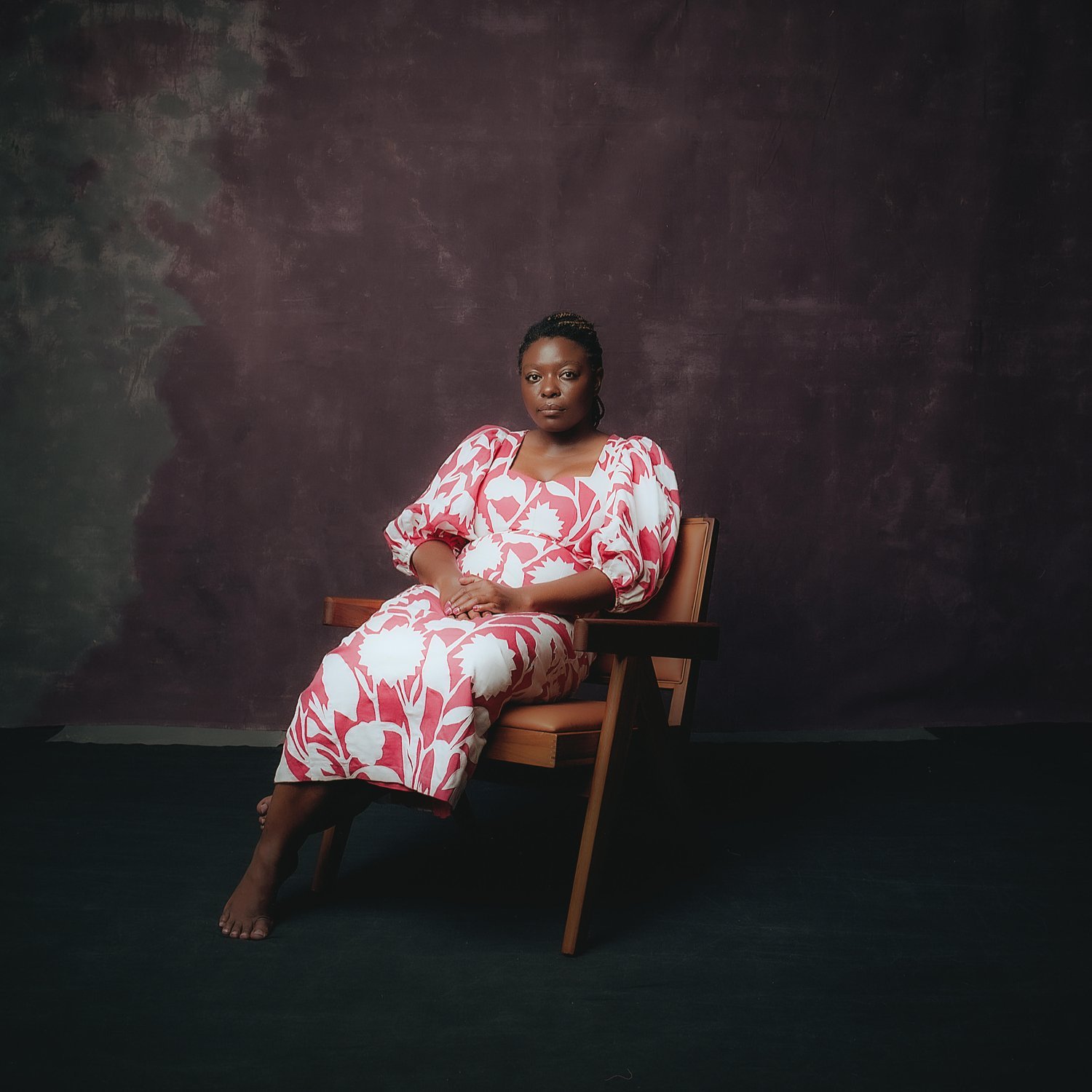
Sinikiwe Dhliwayo
Making wellness more diverse and culturally aware
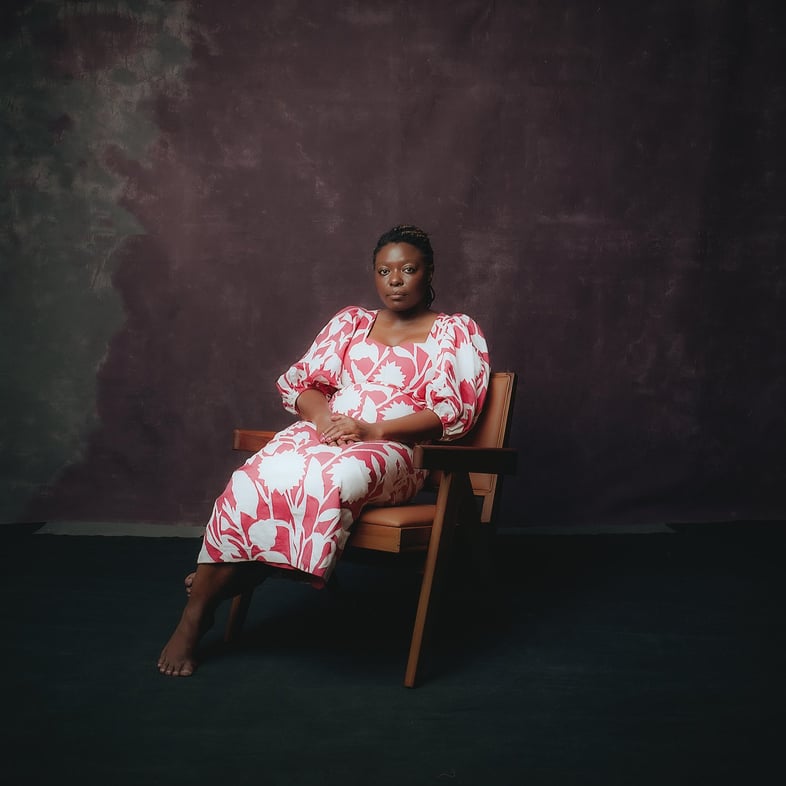
Sinikiwe Dhliwayo
Although the global wellness market is valued at £3.4 trillion ($4.2 trillion, €4.1 trillion) access for marginalised demographics is too often limited (source: Global Wellness Institute). Sinikiwe Dhliwayo is working to make the sector more equitable, and to open up wellness spaces to Bodies of Culture, a term she uses to encompass Black, Indigenous and people of colour.
Dhliwayo founded Naaya Wellness in 2018 as a platform looking to shift the status quo in the wellness industry and redefine how the industry looks. She is now crowdfunding forIlanga, a new app for yoga, pilates and strength training that is looking to carve out a more welcoming space, with diverse instructors and one-to-one training plans for people of all backgrounds and abilities. The platform aims to be accessible, aesthetically pleasing and culturally sensitive, with classes focused on the joy of being alive and freedom of expression.

Céline Semaan
Focusing on planet-first design and climate justice

Céline Semaan
Outspoken climate campaigner, writer and designer Céline Semaan is on a mission to directly address the crisis facing our planet with solutions built around social equity. She views the climate crisis as a societal and human rights issue as much as an environmental one, and is looking to tackle the unsustainable systems that allow it to continue worsening.
Existing online since 2012, Slow Factory was founded by Semaan as a platform dedicated to educating its followers about regenerative design, material futures and other climate-adjacent fields, putting people at the heart of its vision. Now, the Slow Factory is crowdfunding to establish a permanent hub in Brooklyn, New York, that will house its educational programmes in a physical space.
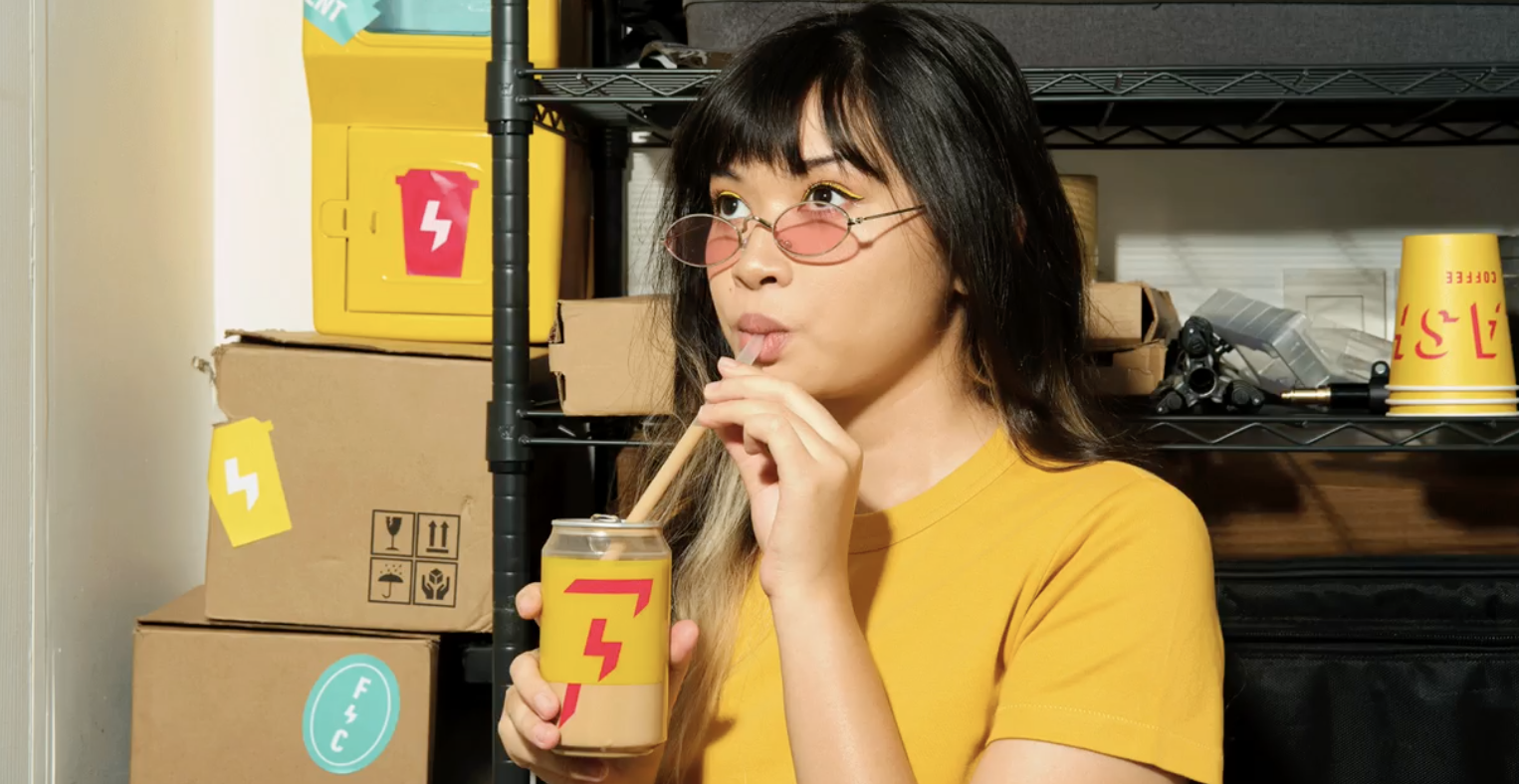
Sebastian Hannecker
Driving a digital-first coffee revolution
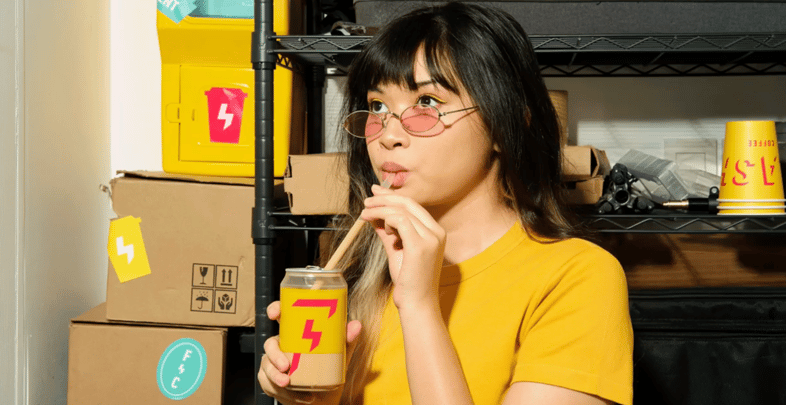
Sebastian Hannecker
Sebastian Hannecker is the founder, COO and CFO of Flash Coffee, a coffee chain spreading rapidly across Asia with the focus on accessible prices and providing customers with a seamless service, as well as introducing lighter roasted coffee to Asian markets more used to darker taste profiles. Since opening its first store in Indonesia in 2020, the chain has expanded to more than 200 bright yellow storefronts around Indonesia, Singapore, Thailand, Hong Kong, Taiwan, South Korea and Japan.
Taking cues from just-walk-out retail models, Flash Coffee is using tech to improve the customer experience in the coffee sector. Customers can order for pick-up or delivery using the Flash app, minimising queue times and allowing the chain to operate from smaller stores, keeping costs down. In July 2022, the company secured a further £27m ($32.8m, €32.2m) in series B funding.

Safwat Riad
Bringing colour and texture to New York nightclubs

Safwat Riad
Kicking back against stark and minimal dance venues, Safwat Riad is re-imagining nightclubs across the city with playful interior design that creates a more welcoming atmosphere. Inspired by churches and spiritual architecture, as well as the abstract paintings of Wassily Kandinsky, the spaces Riad designs combine geometric shapes with drama, bringing joy back to nightlife. One such design has taken cues from an ex-girlfriend's bottom, resulting in a somewhat cheeky doorway arch. ‘Not everything has to be a square… It’s fun, it’s well designed and it’s not too serious – because some design ends up being too pretentious,’ he tells the The New York Times.
Riad oversees each project from start to finish, cutting out shapes based on his sketches with a laser cutter at his studio in Queens. From an initial sketch, he creates a digital rendering that allows him to visualise all the colours, textures and materials in 3D, signposting a future of more curious, theatrical and colourful club settings.
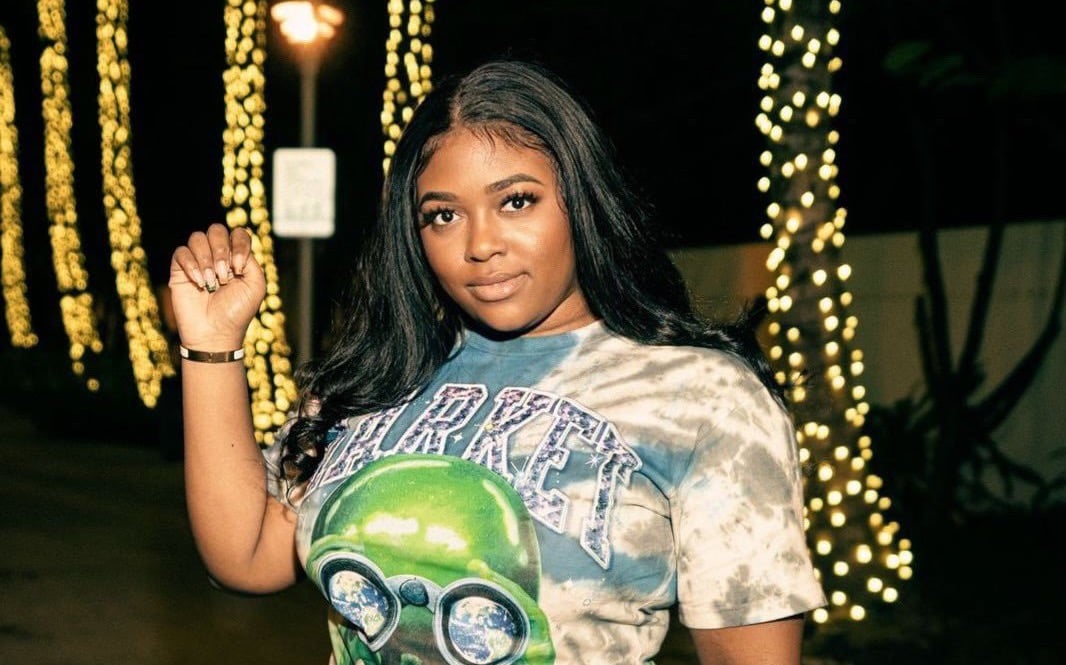
Michelle ‘Meech’ Lovelace
Sourcing ultra-rare grails for the luxury fashion elite
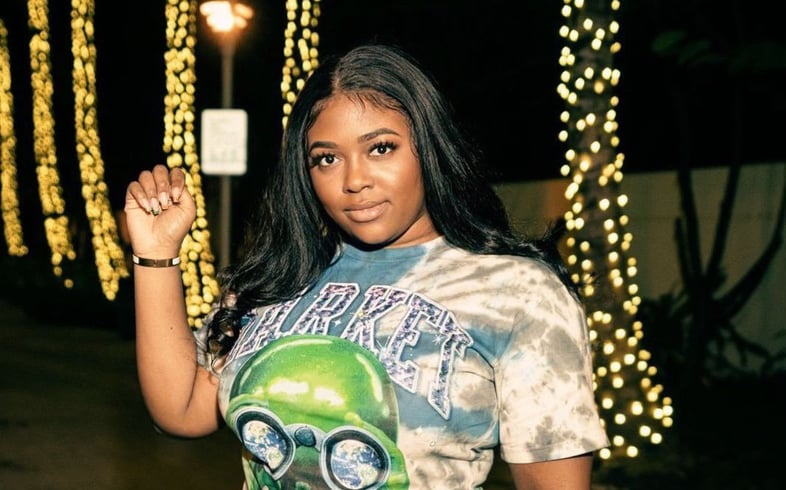
Michelle ‘Meech’ Lovelace
Hunting down Birkin bags is Michelle Lovelace’s speciality –just ask Kanye West, who happens to be one of her clients. The rapper recently asked Lovelace to procure the Hermèshandbags that were given to guests as gifts at his ex-girlfriend Julia Fox’s birthday party in New York.
The stylist and personal shopper launched her own business in April 2021 and is already earning six figures sourcing hard-to-find luxury items for high-profile clients including rappers Cardi B, Lil Uzi Vert and City Girls, travelling constantly to track items down.
With coveted limited-edition items dominating the wish lists of time-poor luxury clients, Lovelace’s ability to source them at speed brings an impressive new approach to personal shopping. A growing Instagram following is able to track her rare finds, spotlighting a future in which luxury hunting will evolve from a private service to an entertaining, globe-trotting pursuit.
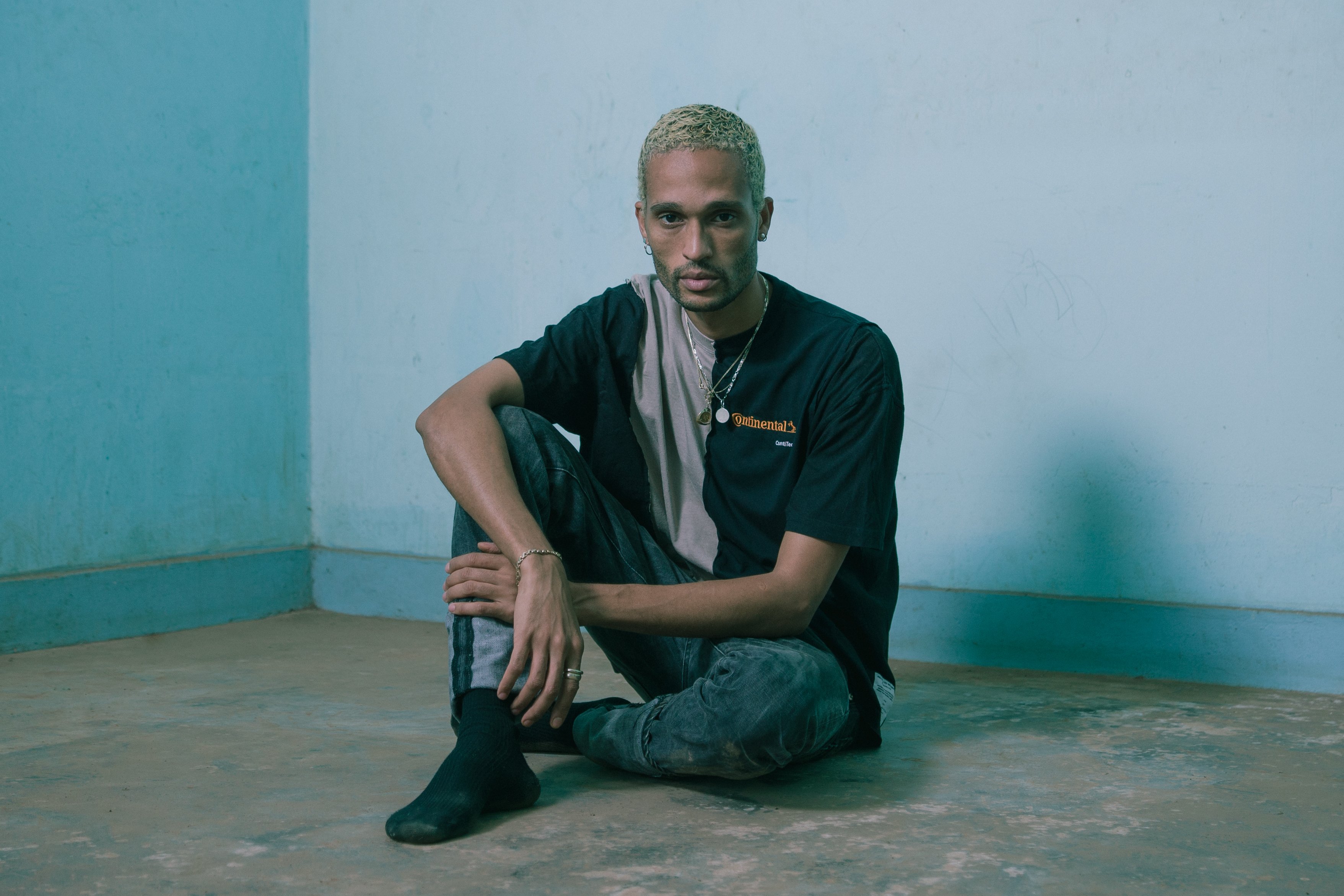
Bobby Kolade
Returning the West’s second-hand cast-offs to sender
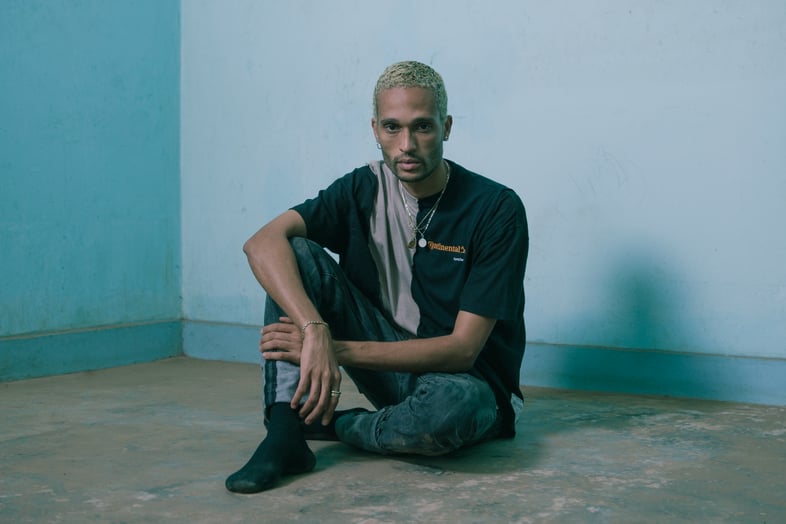
Bobby Kolade
After 13 years working in the European fashion industry, Bobby Kolade returned home to Uganda in 2018 intent on solving the second-hand clothes crisis in Africa. Tired of seeing Western nations use Africa as a dumping ground for its unwanted clothes, Kolade founded fashion brand Buzigahill to repurpose pre-owned garments and redistribute them back where they came from.
Describing his approach as ‘reactionary design’ to overconsumption in the West, each piece in Kolade’s first Buzigahill collection, Return to Sender, is unique, created from second-hand clothes that have been cut apart and playfully stitched back together. The brand places a strong focus on workmanship – each piece comes with a ‘passport’ showing where it was made – and is attempting to repair some of the damage that the overwhelming influx of discarded clothing into Africa does to local textile industries.

Rachelle Snyder and Ross Richmond
A rental response to the boom in outdoor adventurers

Rachelle Snyder and Ross Richmond
Desperate to explore the outdoors after moving to Los Angeles and losing all their gear, Rachelle Snyder and Ross Richmond found nowhere that could help. The situation led the husband-and-wife pair to co-found Arrive Outdoors in 2017, a consumer-facing hire platform for camping and skiing equipment.
The consumer side offers a product description and ‘rent’ button, while Arrive handles the entire rental process including shipping, customer service and cleaning items after they’ve been returned. Recently launched B2B service The Arrive Platform is allowing more brands to enter the eco-system and helping the company to expand. ‘My goal is to put the rent button on anywhere there's a buy button,’ says Snyder. ‘Because we had already built the tools and we’d done a ton of tests and learning over the last four years, we can then apply those learnings to help these other brands move much, much quicker.’
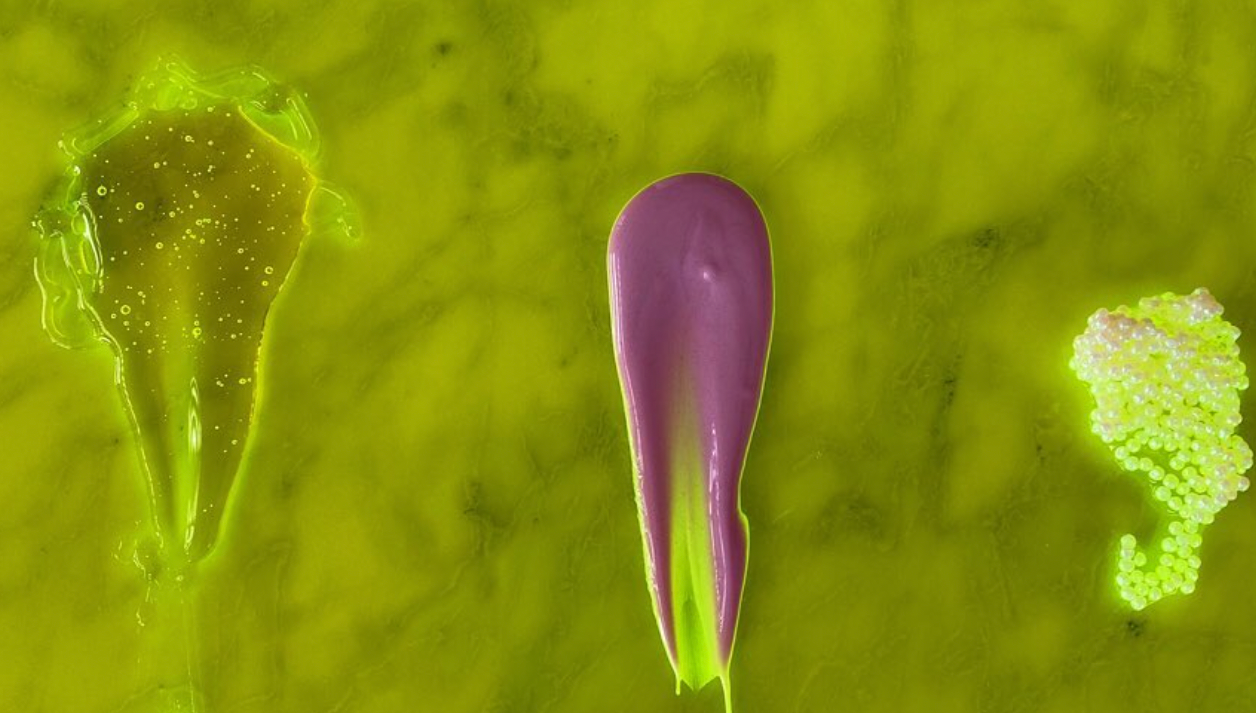
Caitlin Green
Centring women in beauty manufacturing’s anti-corporate future

Caitlin Green
The unceasing acceleration of the indie beauty segment is down to people like Caitlin Green. As the owner of women-led Cg-Labs, a recently overhauled beauty R&D and innovator lab in the US, Green’s ambition is to eradicate barriers to entry for budding entrepreneurs. Indeed, the company exists to help independent beauty brands ‘remove or hop over those barriers’, helping to develop new products, from concept to creation, manufacturing and shipment of orders.
Green also understands that in order to reach this audience, Cg-Labs must reflect their values and aesthetics. A quick glance at its platform and you’d be forgiven for thinking it’s a brand in its own right, with pages peppered with smiley faces, shimmering fonts and clean beauty explanations. Green’s company swaps staid manufacturing for fun and experimentation, resulting in partnerships with some of the most exciting new brands in beauty and wellness.

OseanWorld
Bringing kaleidoscopic dream visions to the metaverse

OseanWorld
Digital artist Sean Walton, aka OseanWorld, is delving into the limitless imaginative possibilities of the metaverse with his maximalist 3D animations. As well as recently partnering with Instagram on its Digital Collectibles NFT project and working on his virtual pop idol project Yameii, OseanWorld’s collaboration with metaverse platform Realm is allowing him to bring a new level of interactivity to his work. He has also previously created music videos for Trippie Redd and Offset.
OseanWorld is setting the template for a new breed of multi-hyphenate young creatives, with work that merges physical with digital, and spans social media, gaming and Web3 platforms. Bringing creativity to virtual spaces, OseanWorld puts a unique stamp on such spaces, standing out against bland branded activations in virtual realms.
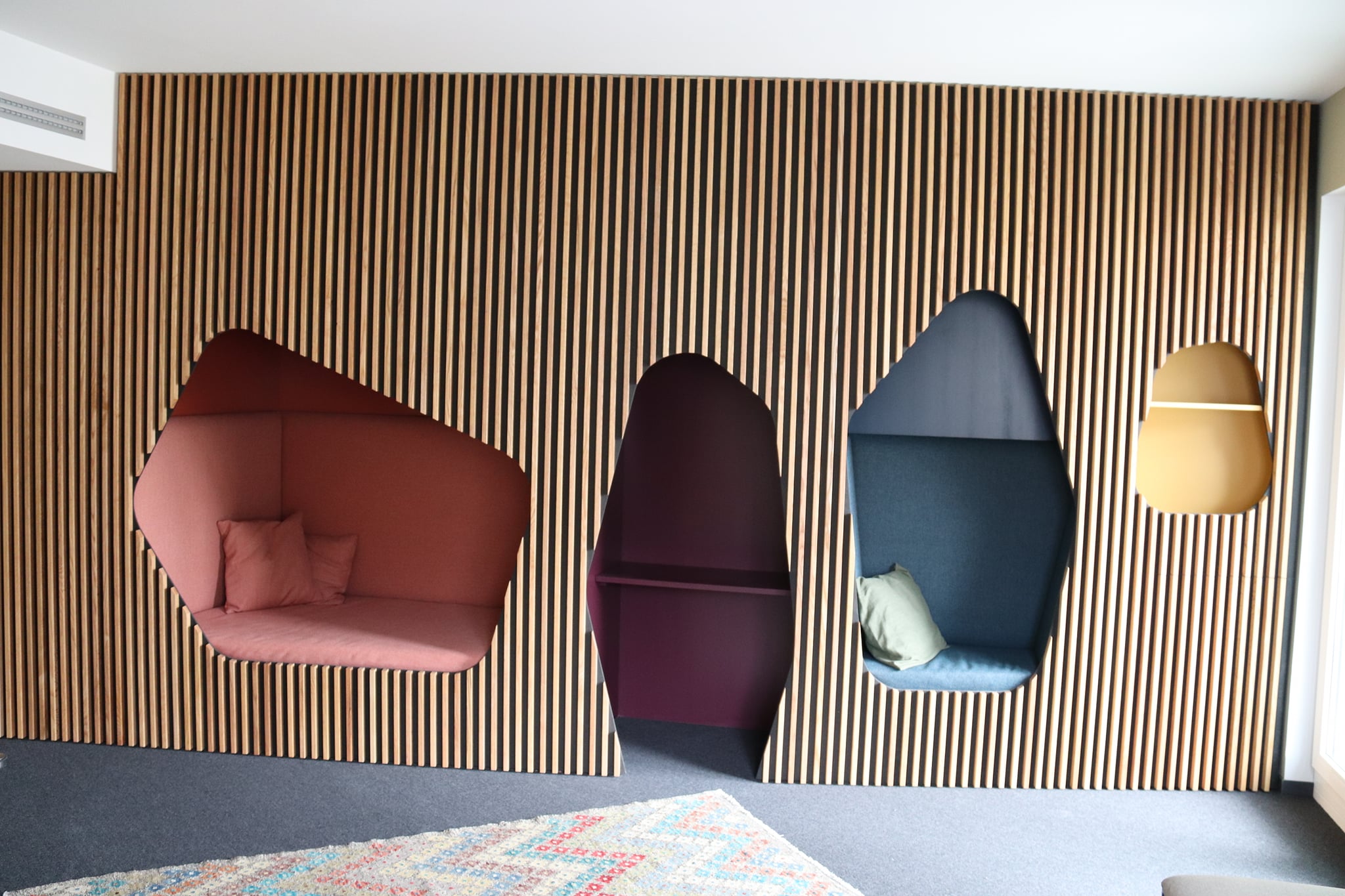
Andrea Jungaberle
Using science to unlock the potential of psychedelic therapies
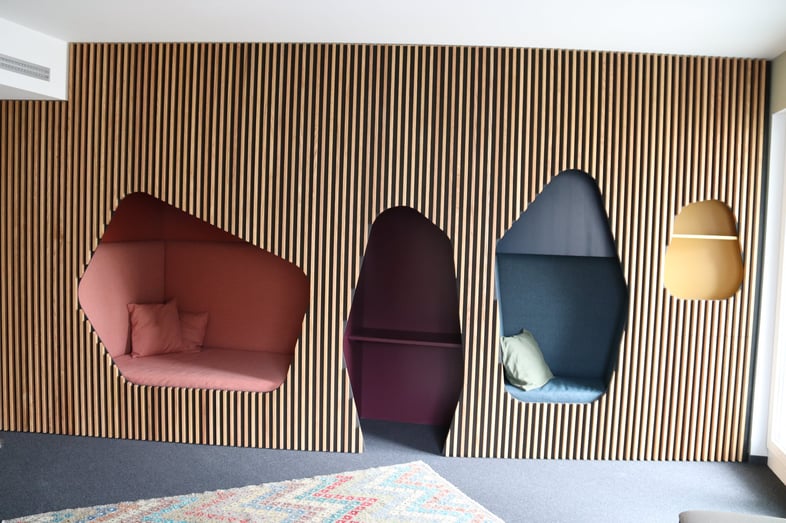
Andrea Jungaberle
Amid a growing global mental health crisis and surging interest in escapism through psychoactive substances, Andrea Jungaberle is helping to educate and reframe people’s perceptions of psychedelics, positioning them for use in therapy and wellness settings.
As medical director of Ovid Clinic, a dedicated medical institute and facility in Berlin, Jungaberle promotes ‘efficient, safe and sustainable therapy’, with a notable focus on the latest scientific knowledge and research to uphold explorations into ketamine and psilocybin-led therapies. Having attracted global press coverage and a growing client base, Ovid shows the potential for the Psychedelic Wellness Market.
Elsewhere, Jungaberle is a therapist on the EPIsoDe study, a large therapy trial involving the use of psilocybin for treatment-resistant depression. She is also a co-founder of Germany’s MIND Foundation, a non-profit organisation with a vision to inform, educate and reframe people’s perceptions of psychedelics for use in therapy and wellness settings.

Shamma Buhazza
Using design to experiment with the meaning of identity
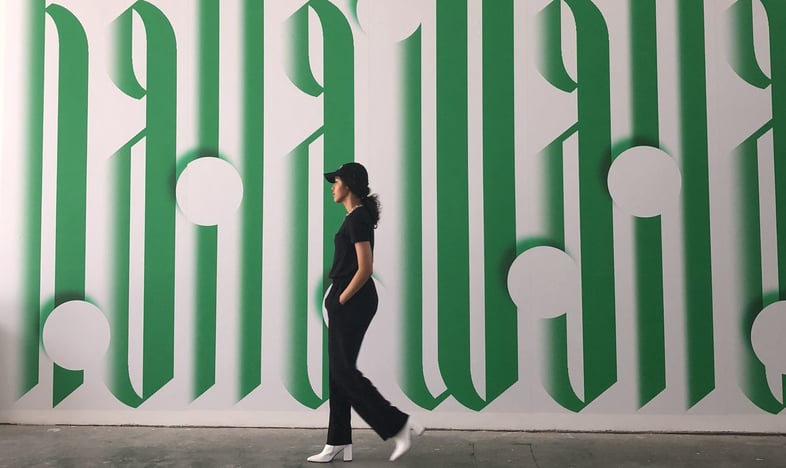
Shamma Buhazza
‘Being born and raised in the Emirates, and coming from an Emirati, British and Somali background, I am constantly questioning what culture and identity mean to me,’ says Shamma Buhazza, a graphic designer from the United Arab Emirates.
Her work seeks to explore identity through design and type, using colours, patterns and letterforms found in Arab and Eastern cultures to provoke conversation and decolonise the design industry. As a result, Buhazza’s work often features clashing and blurring design cues as a way to unite, understand and archive her own sense of identity. Her work also unpacks how globalisation is amalgamating Eastern and Western cultures, and the resulting divides or misunderstandings that can occur.
Most recently, Buhazza’s work has appeared at The Museum of the Future; she created a large monolith for the museum’s entrance that explains and translates the calligraphy on the façade of the building.
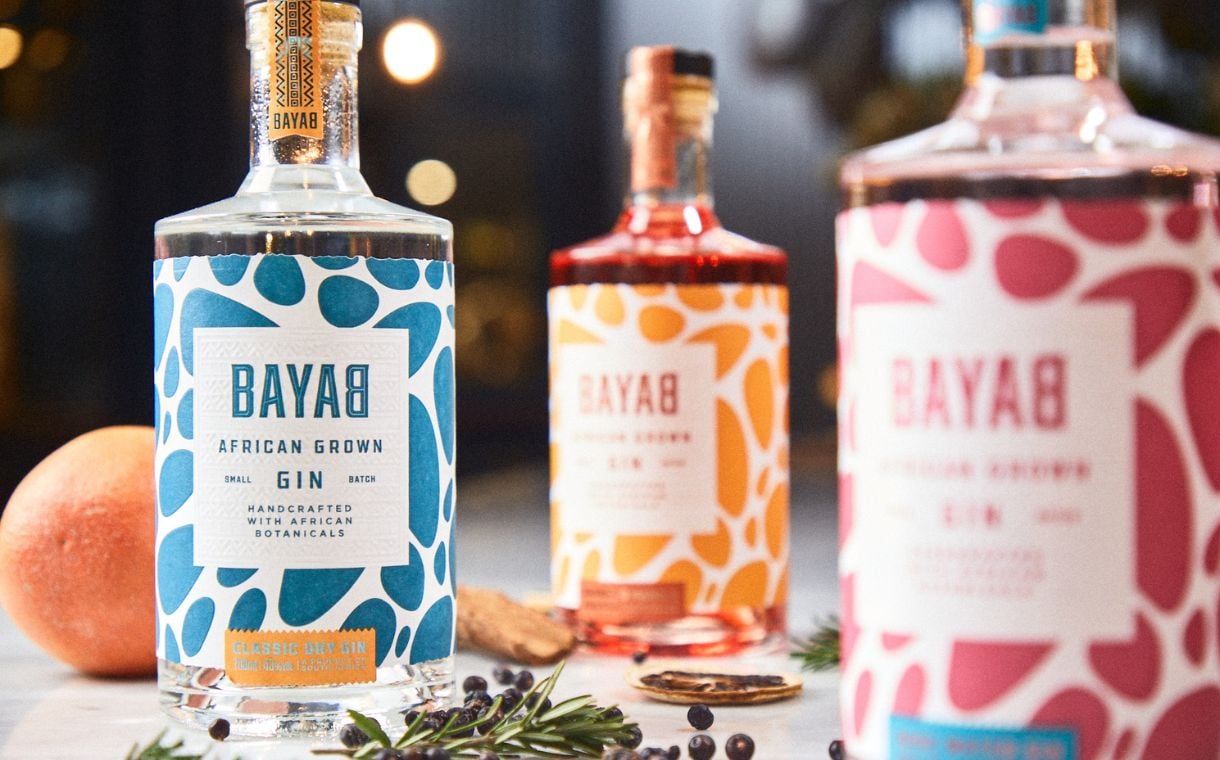
Chris Frederick and Damola Timeyin
Amplifying African spirits through local ingredients
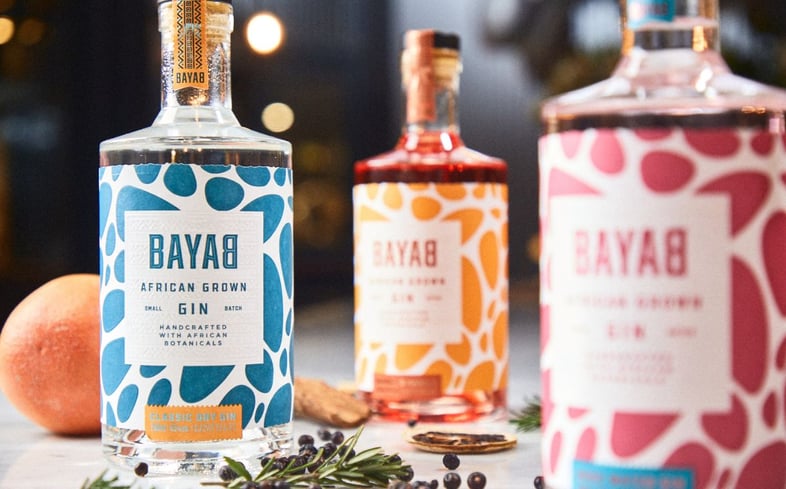
Chris Frederick and Damola Timeyin
Chris Frederick and Damola Timeyin are putting Africa’s spirits market on the international map. As best friends and co-founders of Spearhead Spirits, they’re not just showcasing fresh takes on classic tipples through African ingredients, but are also crucially promoting greater diversity in the drinks industry – especially among brand owners and innovators. ‘We believe it is time for African spirits to sit on the world stage and give consumers a taste of the finest craft and quality, directly from the source of humanity itself, Africa,’ the duo write on their website. Most recently, they have received £2.5m ($3m, €3.02m) to pursue further expansion into the American drinks market.
Among its premium products, the baobab fruit takes centre stage. Spearhead Spirits’ Vusa Vodka is made from African sugar cane grown in the Kwazulu-Natal province of South Africa, which is later filtered through the shells of baobab fruit to give it a crisp finish. The Bayab Gin, meanwhile, uses locally grown wheat, locally sourced juniper berries, coriander, cinnamon and orange peel, with its main botanical the baobab fruit, which is blended with water from South Africa’s Midlands Kwazulu-Natal.
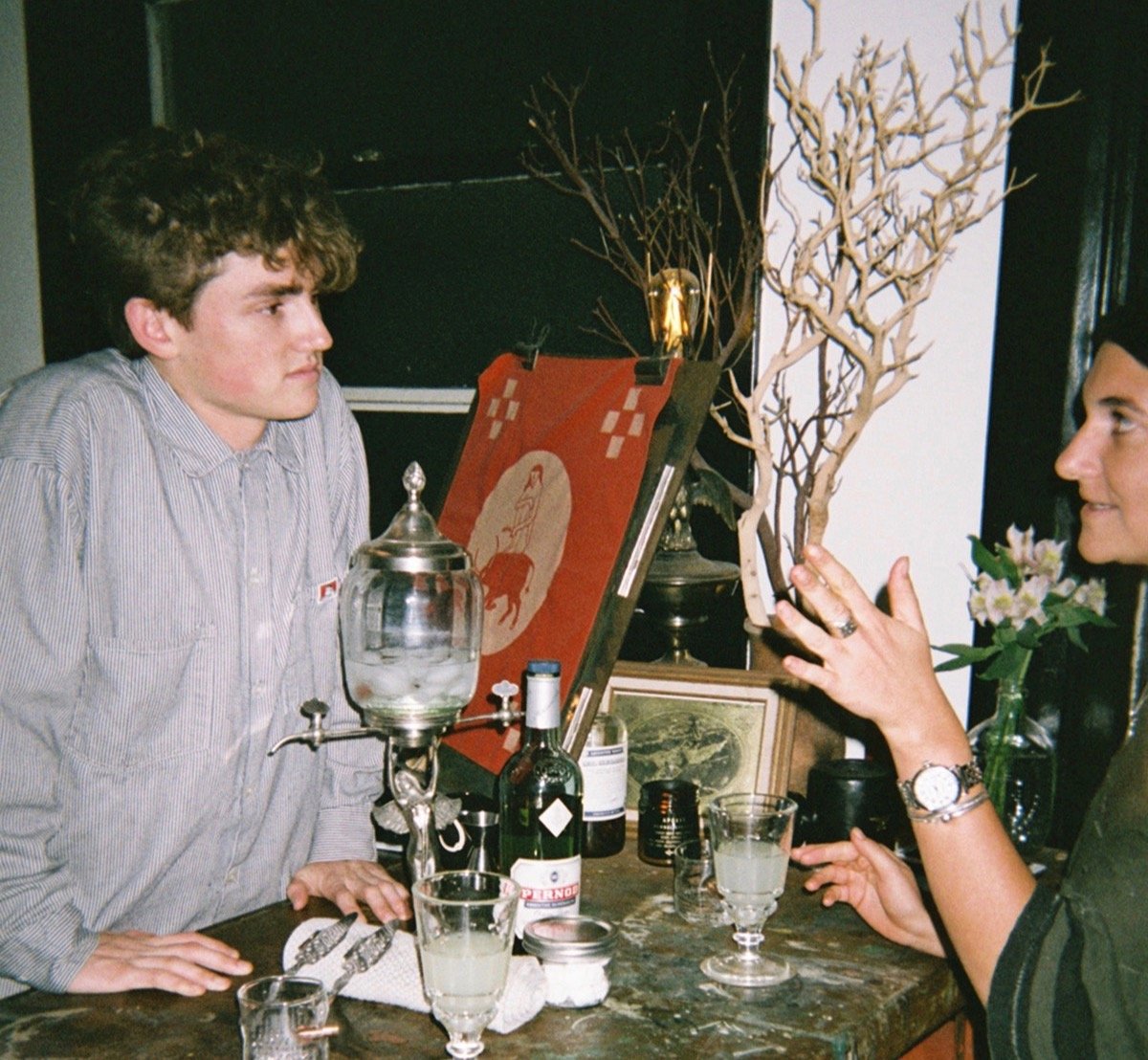
Rhys Osborne
Combatting loneliness with absinthe-fuelled private parties
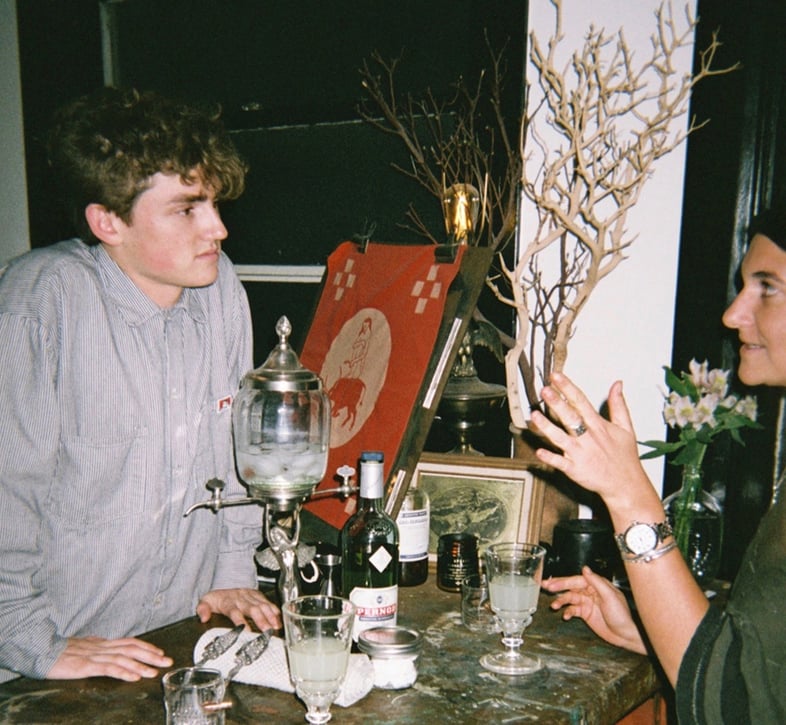
Rhys Osborne
In the wake of lockdowns and people seeking more meaningful connections and experiences, many cities have seen the revival of louche-feeling speakeasies as spaces for strangers to meet and converse. At just 24 years old, Rhys Osborne is pushing things further by creating Bedroom 6, a clandestine social space operating in Los Angeles and New York that puts absinthe at the heart of goings on.
Created during a house party at Osborne’s own home, while he was studying at the University of Southern California, Bedroom 6 is a response to the loneliness and disconnection many of his peers felt during the pandemic. ‘I had an idea of creating a speakeasy inside the party, in my bedroom. It was all decked out with vintage furnishings including an absinthe fountain, and I saw how it gave people the chance to experience something new and meet people and have a meaningful face-to-face interaction – it was magic,’ he says. To keep an air of excitement and intrigue, the only way people can book into one of his modern-day absinthe parties is to directly message Bedroom 6 on Instagram and join a waiting list. Those who are successful sign a pre-party liability waiver – a sure sign that anything goes.

Caroline Chalmer
Creating a fully circular fine jewellery retail platform

Caroline Chalmer
Finematter represents a new generation of fine jewellery companies that recognise the potential for luxury to be circular, more creative and certified. Under the stewardship of Caroline Chalmer, its co-founder and CEO, Finematter has evolved beyond selling accessibly priced fine jewellery from a global roster of designers, to recently becoming a mission-orientated, circular company. ‘We’re taking a huge leap forward in our mission to make the jewellery industry radically better,’ explains Chalmer. ‘Finematter [is now] the only place to buy, renew, recycle and resell real jewellery – making jewellery the first 100% circular consumer product.’
Customers are able to buy items from Finematter, but also send in their own unworn or unwanted jewellery, which can be resold by Finematter or traded for vouchers to use on the site, while Finematter recycles any precious metals or gemstones for use in new designs. Underpinning this circular strategy is the Finematter Digital Certificate – an independently verified, standardised and immutable record of provenance, which Chalmer says creates a whole new level of trust and transparency in the jewellery industry, ‘a notoriously opaque and fragmented space'.
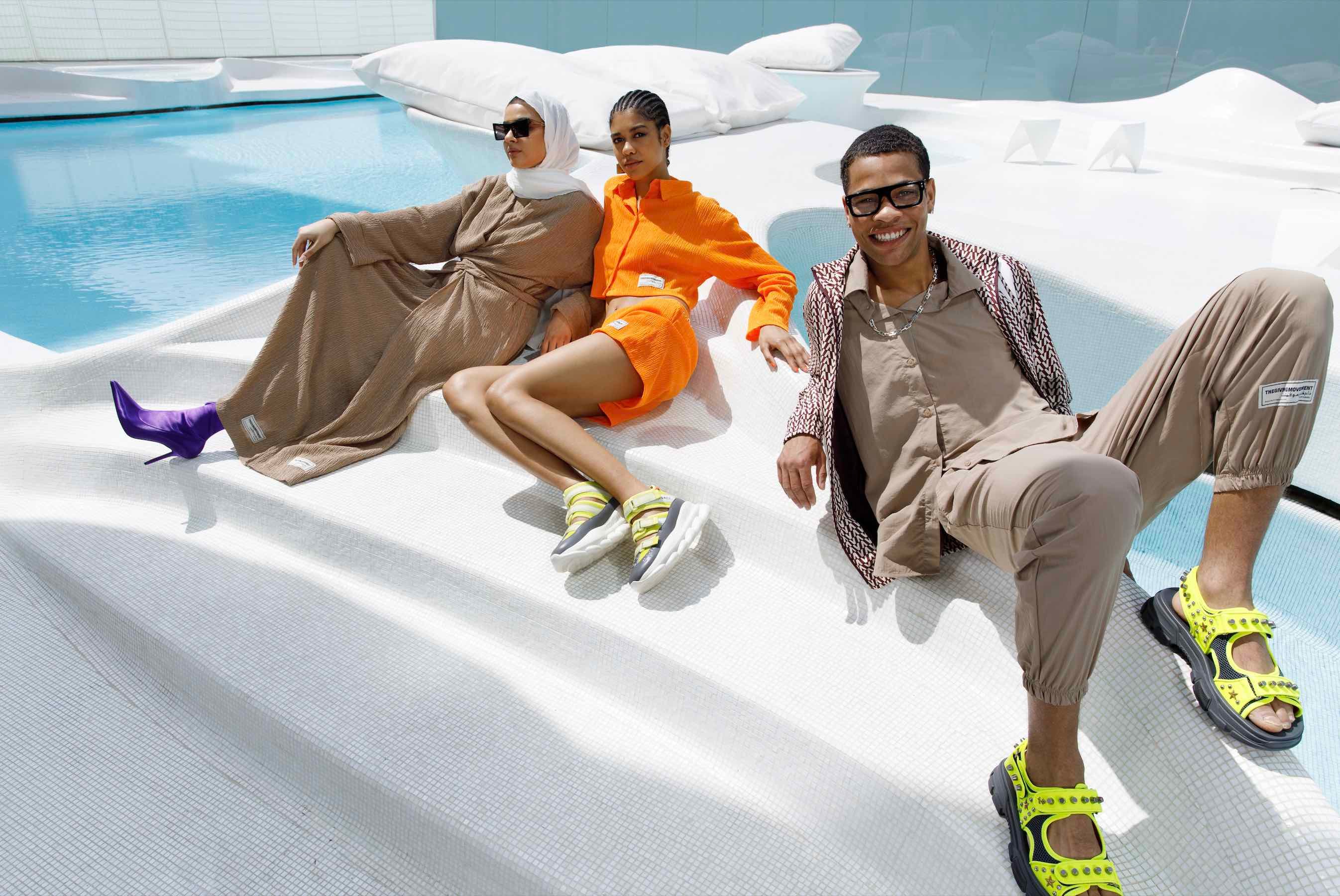
Dominic Nowell-Barnes
Using charity to magnify Middle Eastern streetwear
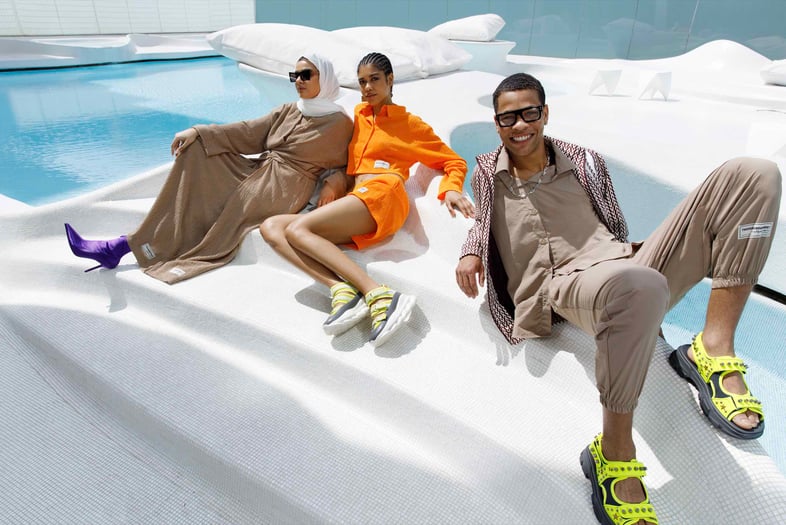
Dominic Nowell-Barnes
Founded in 2020 and growing out of Dubai, The Giving Movement is a locally made streetwear brand proving the potential that regional labels have to appeal to more conscious consumers. Created by entrepreneur Dominic Nowell-Barnes, the brand offers basics with a twist – think activewear, loungewear and sandals – with items featuring the brand name in both Arabic calligraphy and English, a nod to its multicultural identity and target audience.
Recognising just how large the streetwear market is – and with this, the potential to use customers’ shopping habits for good – The Giving Movement donates £3.38 ($4, €4) from every item sold to two charities, Dubai Cares and Harmony House in India, in its own words, ‘using streetwear to champion sustainability and slowly [transform] the world’. According to Vogue Business, The Giving Movement has grown rapidly since its launch and now employs 110 people. It has also sold more than 133,000 units since 2020, with plans to expand further globally.
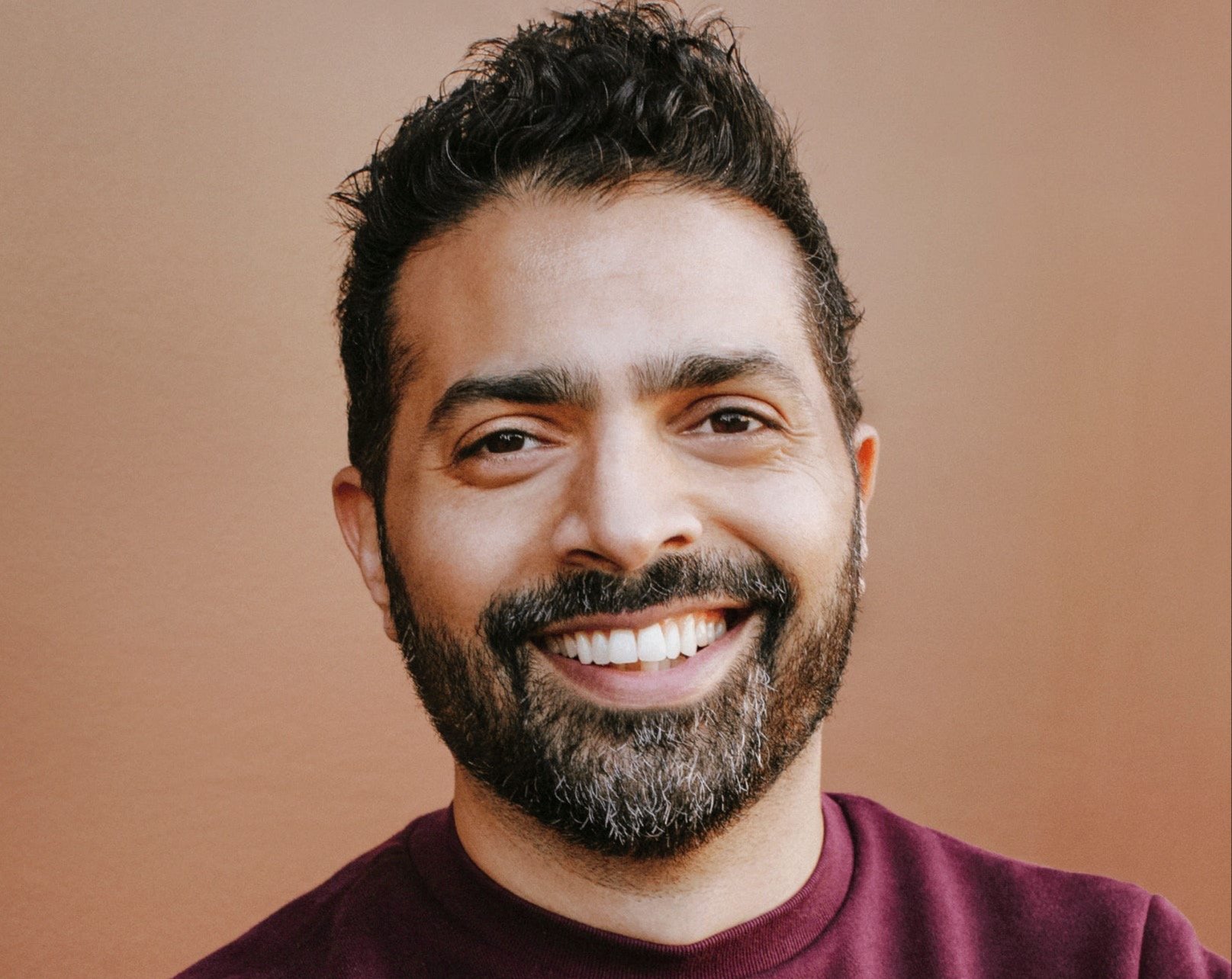
Tariq Musa
Taking Mexico’s B2B wholesale business online
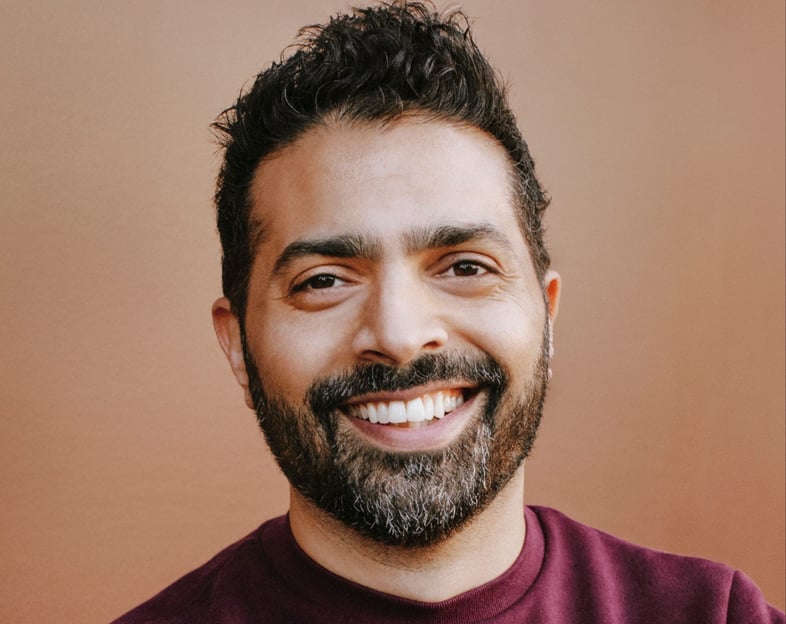
Tariq Musa
With more people seeking to understand where the products they buy are sourced, who made them and how, Miferia is transforming Mexico’s business-to-business (B2B) wholesale market by connecting retailers in the country with domestic indie brands, and with this, the stories and provenance behind their products.
Offering items across categories such as jewellery, home décor, food and drink, and cosmetics, Miferia was founded by Tariq Musa with the ambition to help retailers to bring their inventory relationships online, expand their product selection and get more favourable credit terms for orders. Musa also wants to solve the issue of selling online in Mexico – he notes that over 90% of retail in Mexico still takes place in just 2m physical stores, and fewer than 1% of B2B transactions have moved online, despite the global acceleration of e-commerce. Once a retailer is registered with Miferia it can view wholesale pricing for more than 5,000 individual items from 500 brands, simply shopping as they would for clothes or homeware online, except they’re ordering for their own stores, rounded off with free shipping.

Ella Boucht
Connecting generations through a queer history archive
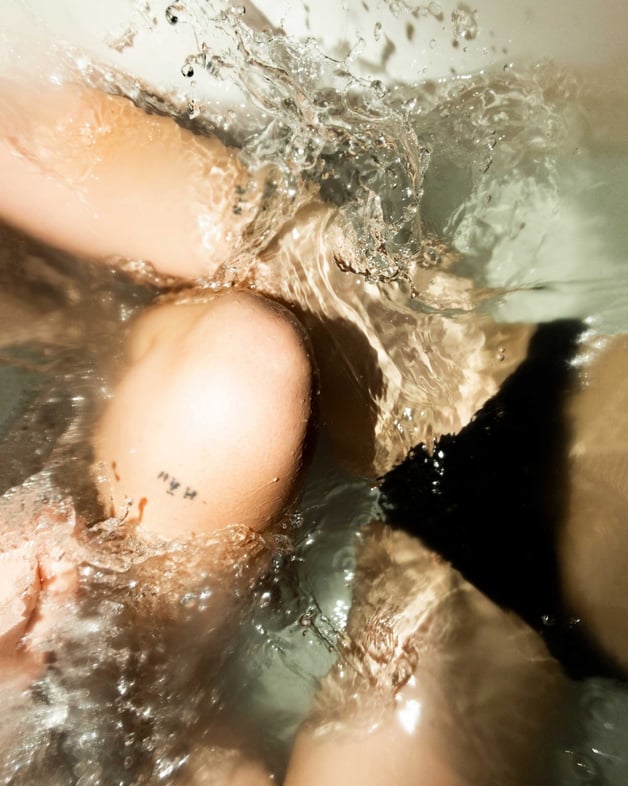
Ella Boucht
As a co-founder of HÄN, Ella Boucht is building an archive dedicated to the history and creativity of dyke, lesbian, trans, non-binary and gender non-conforming communities, seeking to fill the gaps and voids in queer history. Boucht co-created HÄN in 2020 as a way to capture and share queer stories, and spotlight the communities and complexities that many people felt at the time – as well as past and present. Of note, HÄN seeks to provide room for a new generation of queer people to explore their identities, and that of others, determining their own bodies, choices and lifestyles.
Existing both online and as a physical publication, the first edition of HÄN is a 64-page book that documents the modern queer and LGBT+ culture in London, featuring interviews, poems and black-and-white portrait photography of couples, sex workers, drag kings and even a martial artist. Online, HÄN seeks to be open-source and accessible for all, ensuring that infinite numbers of people can access the archive and, in future, help curate it.
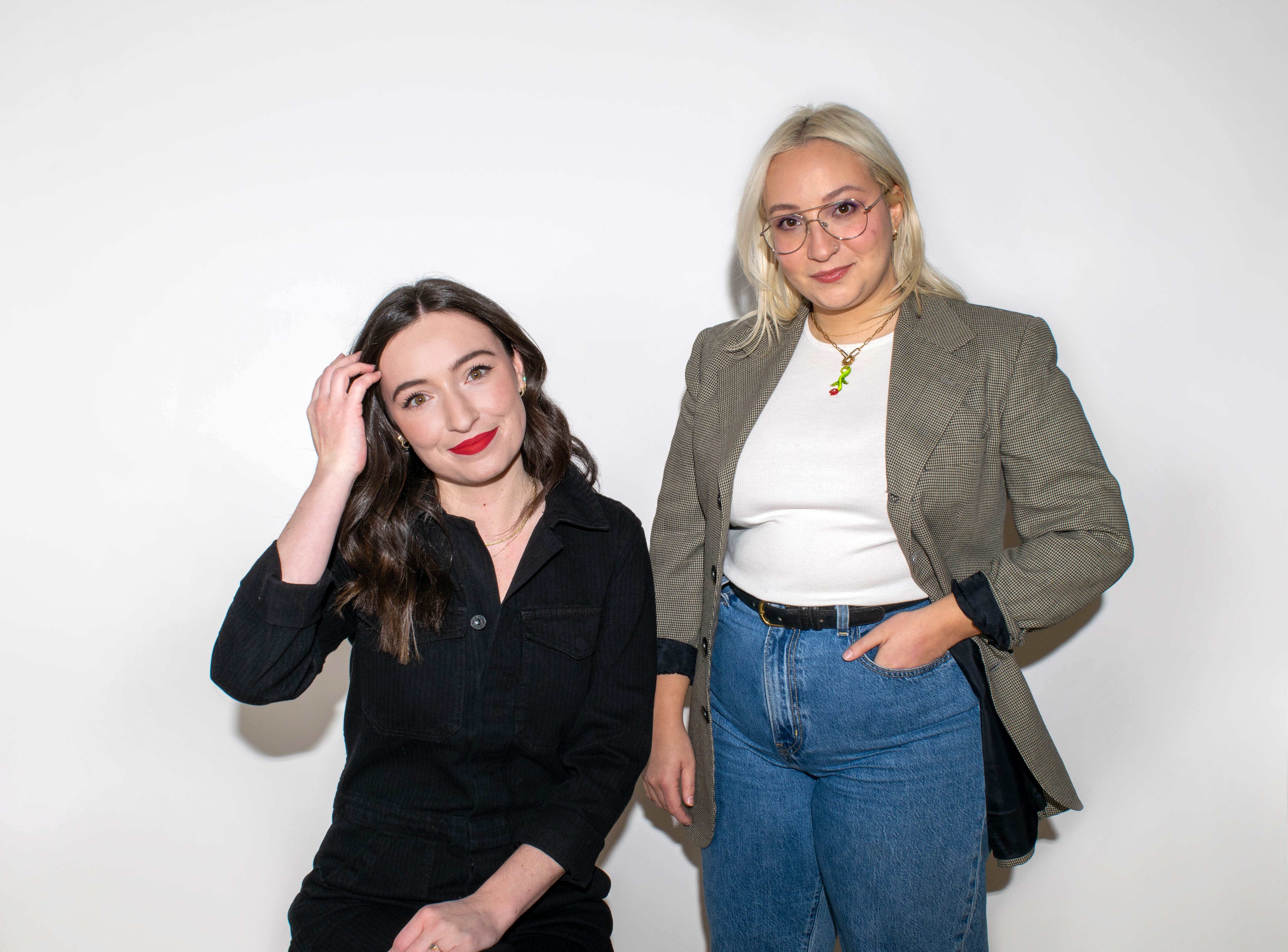
Lisa Guerrera and Emmy Ketcham
Rebranding science and sustainability for beauty’s next generation
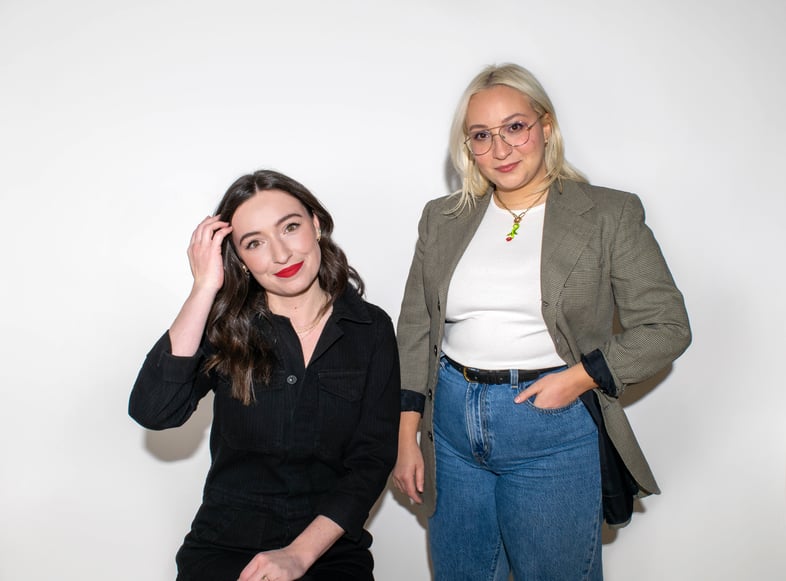
Lisa Guerrera and Emmy Ketcham
With professional backgrounds in chemistry and personalinterests in beauty, both Lisa Guerrera and Emmy Ketcham understand that science doesn’t typically fit into the aesthetics of today’s beauty landscape. They hope to change this, however, with the launch of their nostalgia-inspired beauty brand, Experiment. The pair hope to present beauty in the way they see it as chemists – absurd and borderline magic. ‘Science doesn’t have to be black-and-white dropper bottles, lab coats and very serious,’ Guerrera tells Glossy. ‘Science can be colourful, weird and exciting. Our end goal is to rewrite what science looks and feels like in the beauty industry.’
The science-driven brand is the first to receive help fromconscious venture capitalists, Press Reset Ventures – founded by February’s Futures 100 Innovators nominee Liah Yoo. This suggests that sustainability will also be a priority for the pair as they grow the brand.
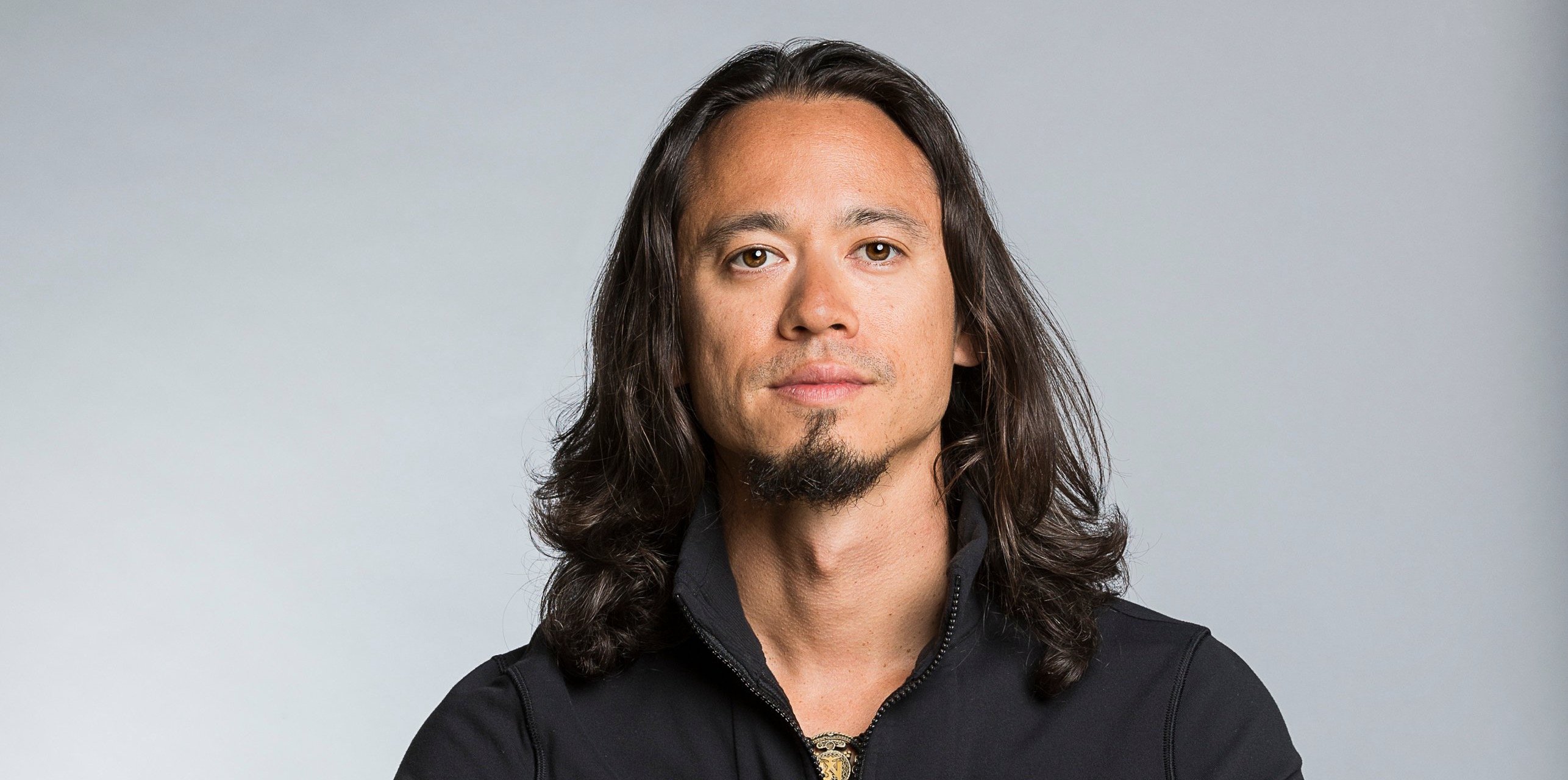
Chris Aimone
Aiding meditation with brain-sensing wearables
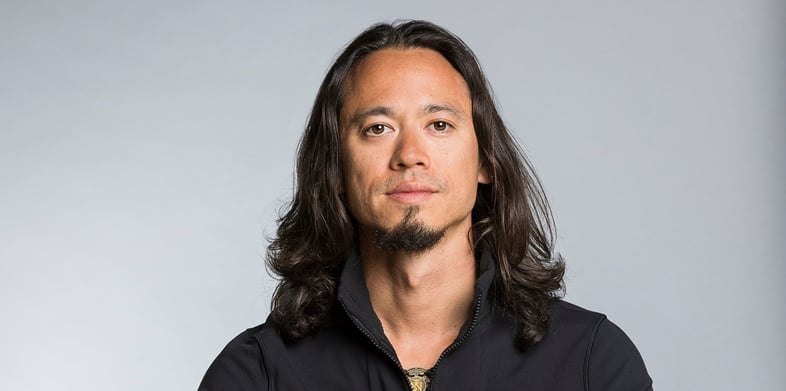
Chris Aimone
As our lives become more hectic and disrupted, even the simplest of tasks, such as focusing and resting, are becoming increasingly difficult. Chris Aimone was one of the first toforecast this struggle almost two decades ago. He and three others – Ariel Garten, Trevor Coleman and Steve Mann – began experimenting with neurotechnology to tackle some of society’s biggest hurdles back in 2003. But it wasn’t until 2014 that they launched and went public with the first widely available consumer brain-sensing headband, Muse, which is designed to provide users with real-time feedback on their meditation state.
While people recognise the need for such devices, the interest and uptake has always been relatively low. Muse, however, has sold more portable EEG devices than any other system in history, and recently secured £8.3m ($9.5m, €9.5m) Series C funding round to launch an integrated wellness membership model, making it easier for people to access these types of products and experiences.
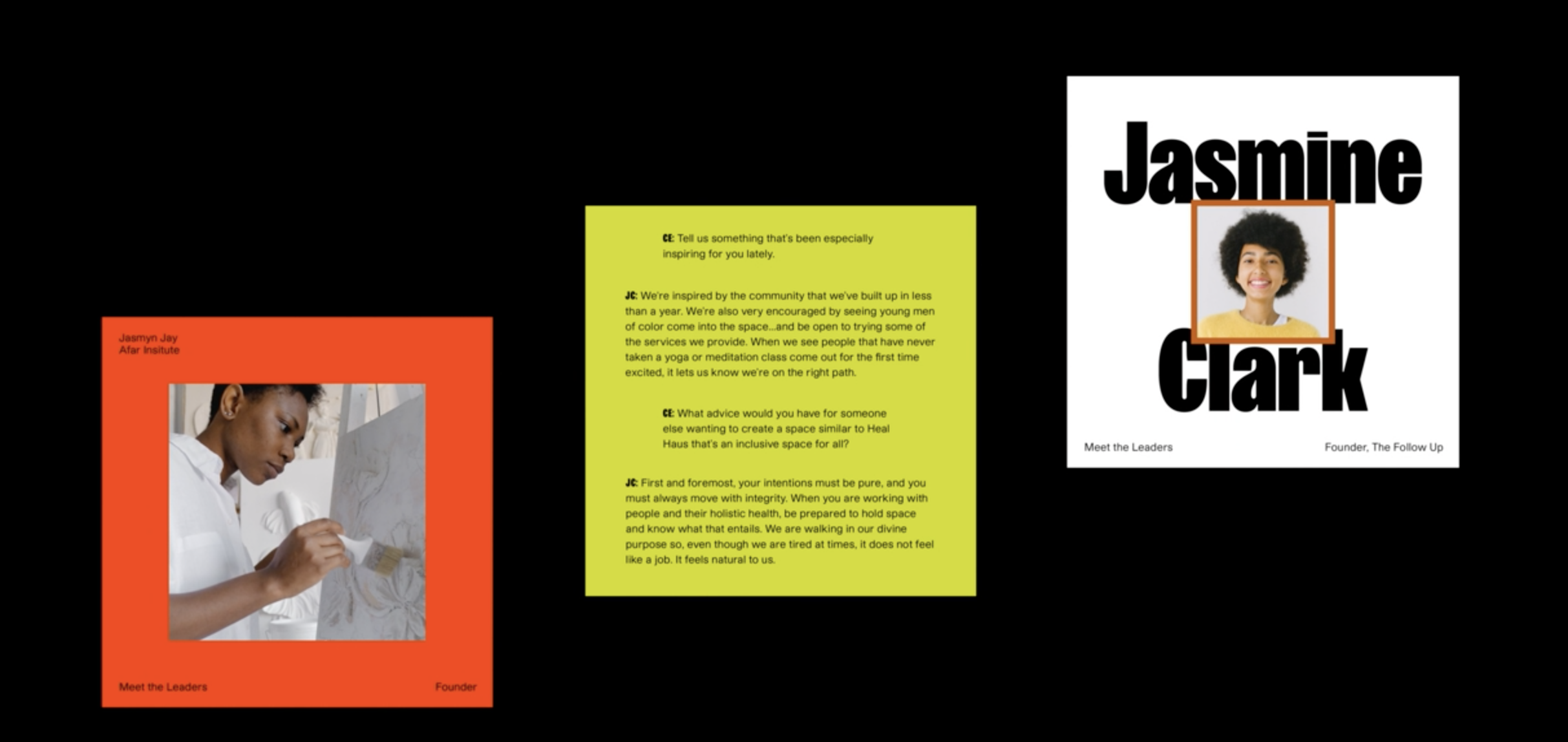
Annika Hansteen-Izora
Building a digital garden that nourishes Black creativity
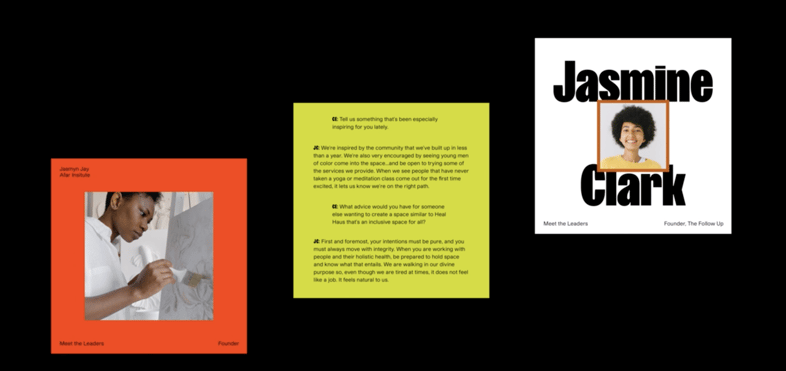
Annika Hansteen-Izora
Artist and designer Annika Hansteen-Izora is building a directory of Black-led art projects, which are available to view and access via a digital garden called Creative Ecosystems. Challenging white notions of gardening, the platform encourages Black contributors to add ‘seeds’, which can include media, videos and text, to the garden and ‘nourish’ others' plants through positive commentary and discussion.
As head of design at Somewhere Good – a leading social curation platform that The Future Laboratory spotlighted in 2021 – Annika is experienced in developing online communities and spaces. With this project, she highlights the importance and need for a space where people can gather and discuss Black creative thought, but she also hopes the online resource will increase reach and access to Black-led projects. ‘Largely, the creative industry is built around supporting individual creative pursuits. While I believe individual creative pursuits are important, we’re more interested in learning what it can look like to support collective creativity, and what it means to grow, learn, care and create together,’ Annika tells It’s NiceThat.
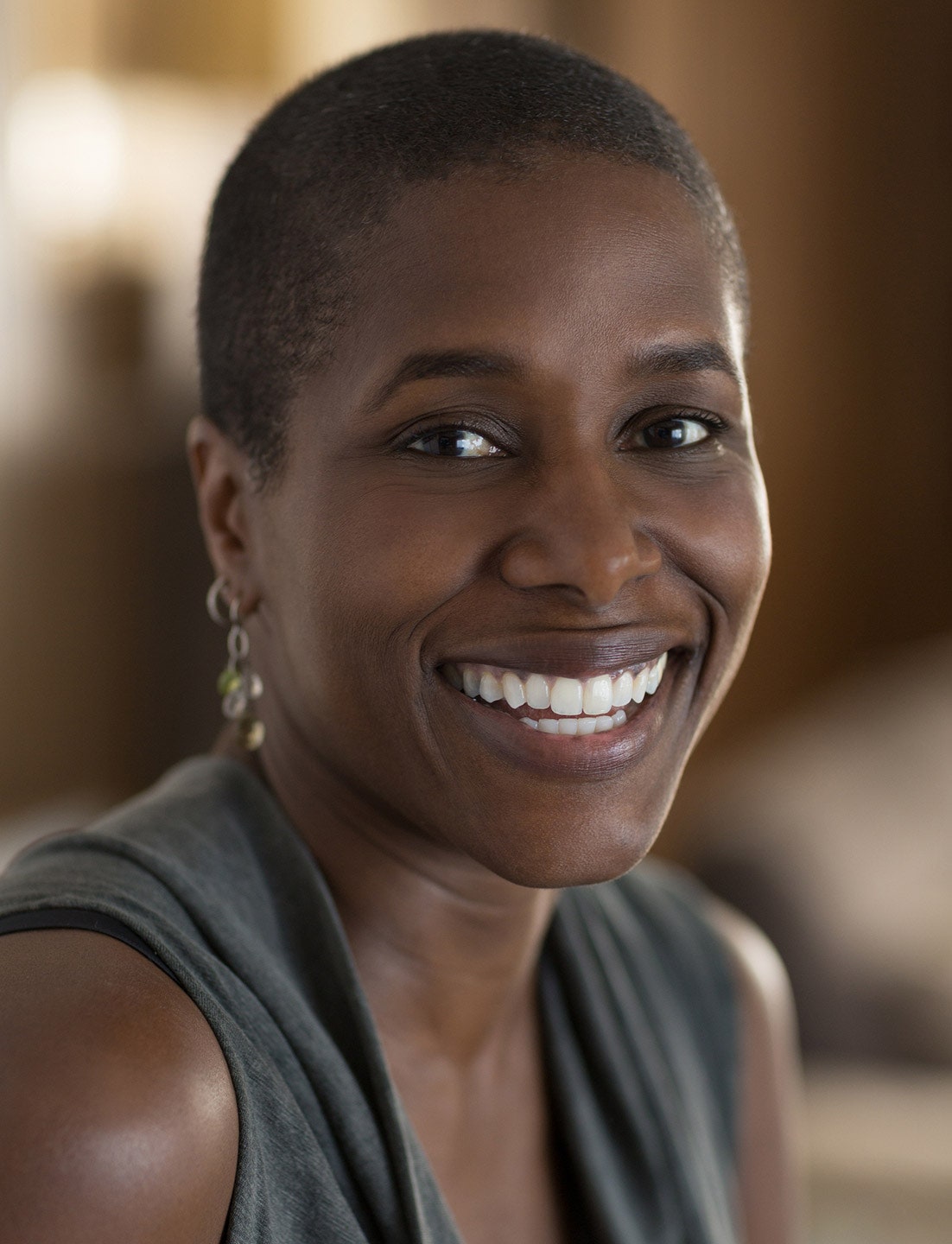
Natalie Baszile
Increasing the visibility of Black farmers in America
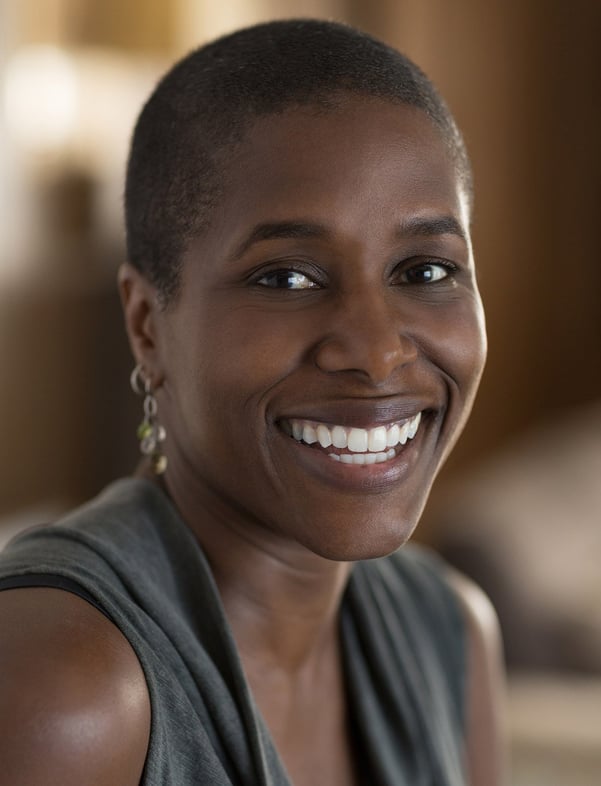
Natalie Baszile
With an MA in Afro-American studies and an MFA in writing, Natalie Baszile has spent her professional career highlighting the prejudices and practices that Black farmers have endured. These stories are present in Natalie’s fictional novel, Queen Sugar, which follows a mother on her sugar cane farming journey, and her most recent book, We Are Each Other’s Harvest, which collates a series of essays, poems, photographs, quotes, conversations, and first-person stories, all examining Black people’s connection to the American land.
Her written work is hugely influential, as shown by the several book awards and dedicated tv series she now boasts. But whilewords can be powerful, Natalie wants to ensure real-life change for those treated unfairly in the agricultural industry, and thus partnered with the San Francisco Foundation to establish Black Harvest Fund, a donor-advised fund to aid hard-working Black farmers and farmers of colour.
As a result of targeted discrimination, only 5%, or 45,500 Black farmers, remain in the US, down from 925,798 a century ago (source: Black Harvest Fund). Natalie hopes her work is just the start of building a future-fit system that supports individual values and people.

Nicholas Priest
Prioritising personal value and growth in luxury experiences

Nicholas Priest
Speaking recently on our Luxury & Hospitality Futures event panel, Nicholas demonstrated his extensive knowledge of thesectors as he discussed how brands and companies should be prioritising purposeful and enriching experiences and servicesin 2022 and beyond. These are things Nicholas wanted to ensure were at the forefront of The Luminaire when he co-founded the company earlier in the year.
As an experienced marketer – previously holding board-level and leadership roles at Aman Resorts, André Balazs Properties and One&Only Resorts, Nicholas knows that luxury is a highly emotional journey and that value must be felt from the consumer for brands to secure long-term success. The Luminaire offers personalised and educational travel experiences that are hosted by experts such as artists, explorers, naturalists, historians, archaeologists and many others. Its first partnership, led by Magnum Photos, allows enthusiasts and amateurs to learn from celebrated photographers such as Cristina Garcia Rodero, Jonas Bendiksen and Alex Webb, on trips to Mexico, Norway and Cape Cod.
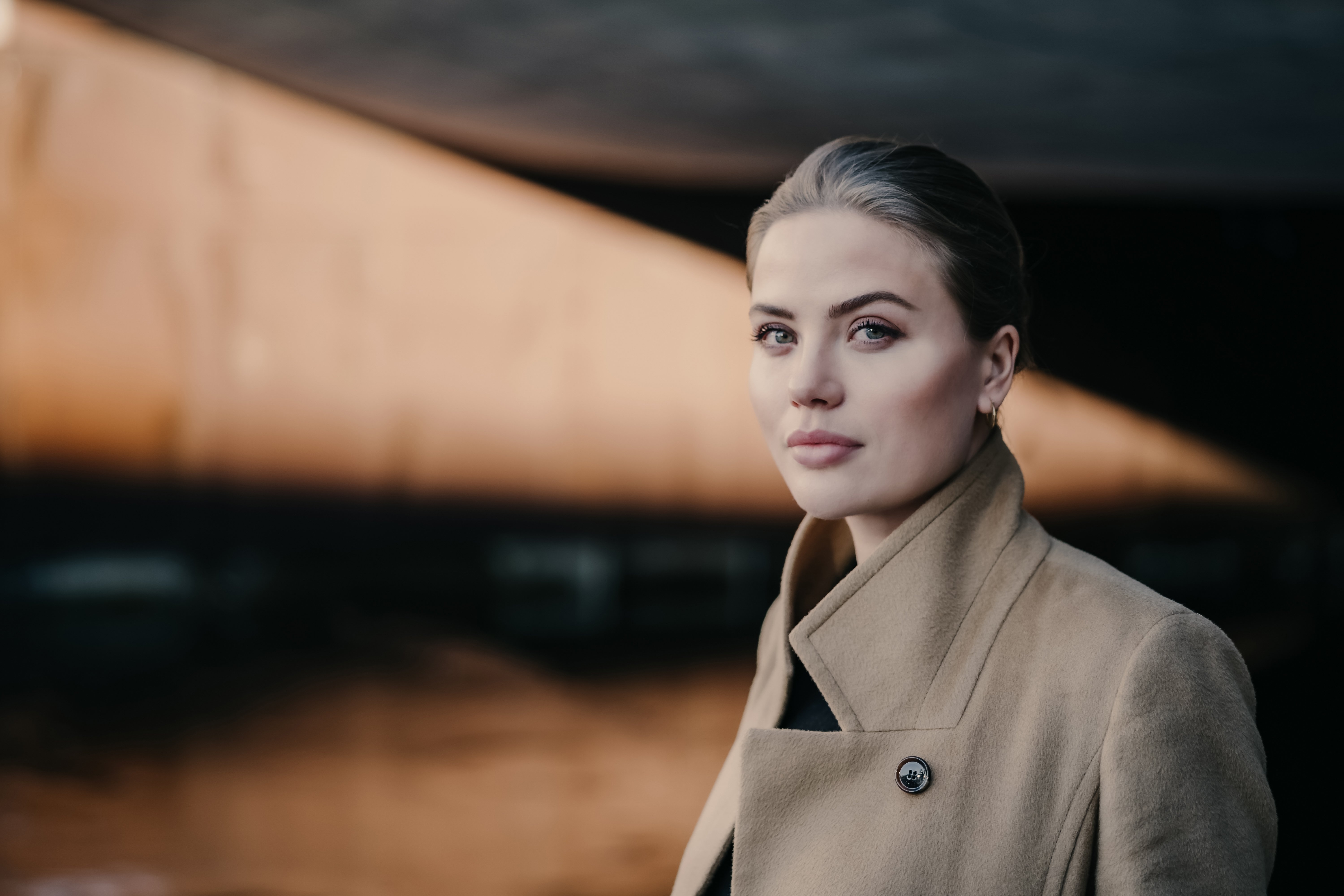
Sophi Horne
Developing eco-designs for the yachting industry
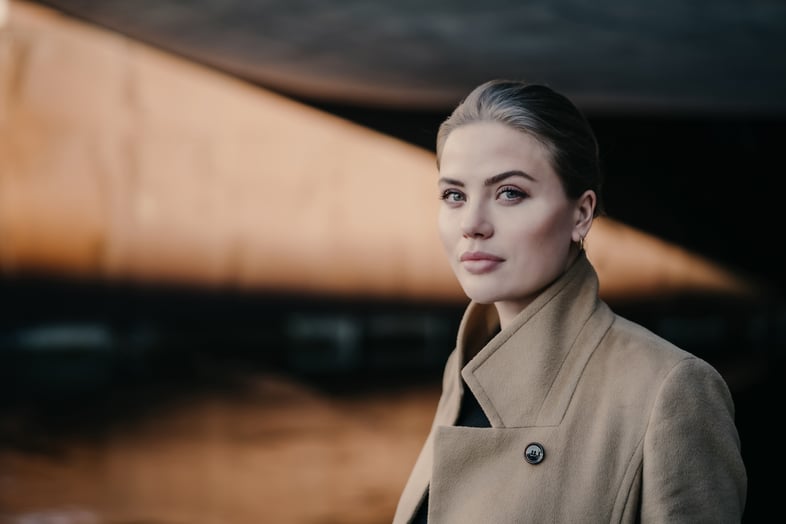
Sophi Horne
Sophi Horne is one of the few high-status women in the yachting industry, particularly of her age. Born in Norway and raised in Sweden, Sophi started her marine career as creative director at SSH Maritime, before recently founding SeaBird Technologies, one of the world’s first yachting and boating companies to prioritise sustainable design and technologies.
As head of the design department, Sophi was at the forefront of the development of the RaceBird, the racing boat for theelectric powerboat championship, the E1 Series, otherwise known as the first regatta in the world dedicated to electric boats. In building the model, she took inspiration from her Nordic heritage, referencing Oslo as the main capital for electric cars. ‘In the beginning, electric cars were quite bubbly and cute, and then I saw Formula E. Its Gen 2 models caught my eye – they made electric cars sleek and sexy. It inspired me to do this in the naval world,’ she tells Forbes.
The RaceBird, designed by Horne, and the E1 championship were created side by side. The powerful dual launch hopes to truly shake the yacht industry out of its unsustainable habits, particularly as yacht purchases boom.
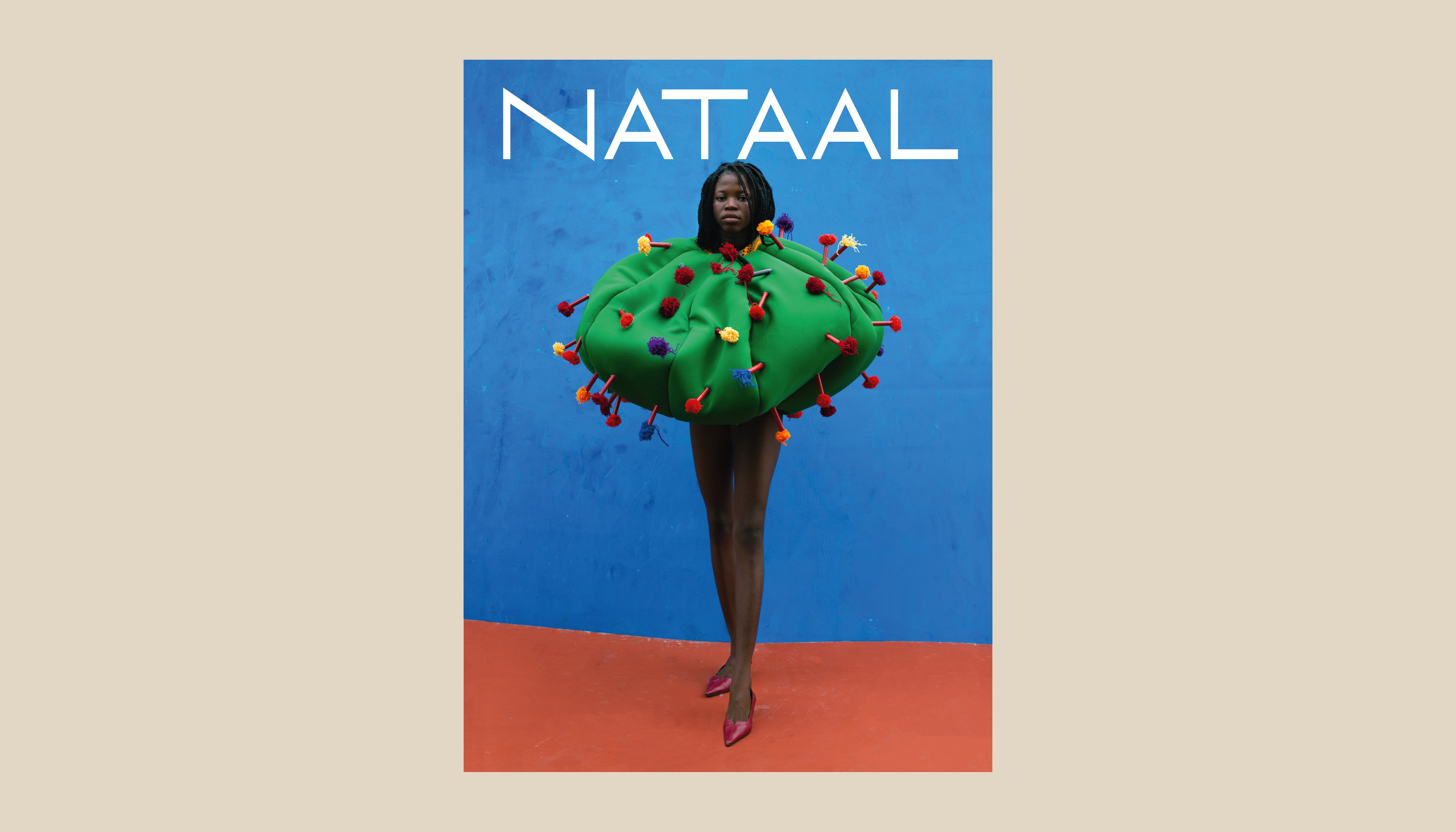
Alassane Sy
Spotlighting Afropolitans through visual storytelling
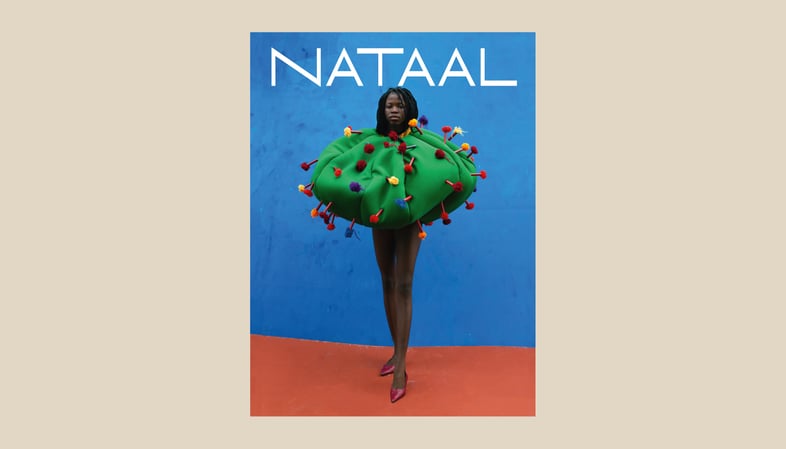
Alassane Sy
Alassane Sy has been embedded in the media world for over a decade. He started his career as an actor and later became a producer for independent films and the production agency PROXSY PROD. Most recently, he co-founded media brand Nataal and became the editor of its digital and print divisions.
While his career has spanned the industry, his purpose and mission have always remained the same – to give African talent therecognition it deserves. He also hopes that Nataal will help educate the world about African culture. To realise this mission, Alassane has hired a selection of local and global editors and creatives, including Delali Ayivi, whose work often appears in Vogue. ‘We want to collaborate with the fresh generation of thinkers and doers who embrace a multi-disciplinary, cross-cultural approach to shining a glorious light on the continent and its diaspora in the very broadest sense’, Sy tells Dazed.
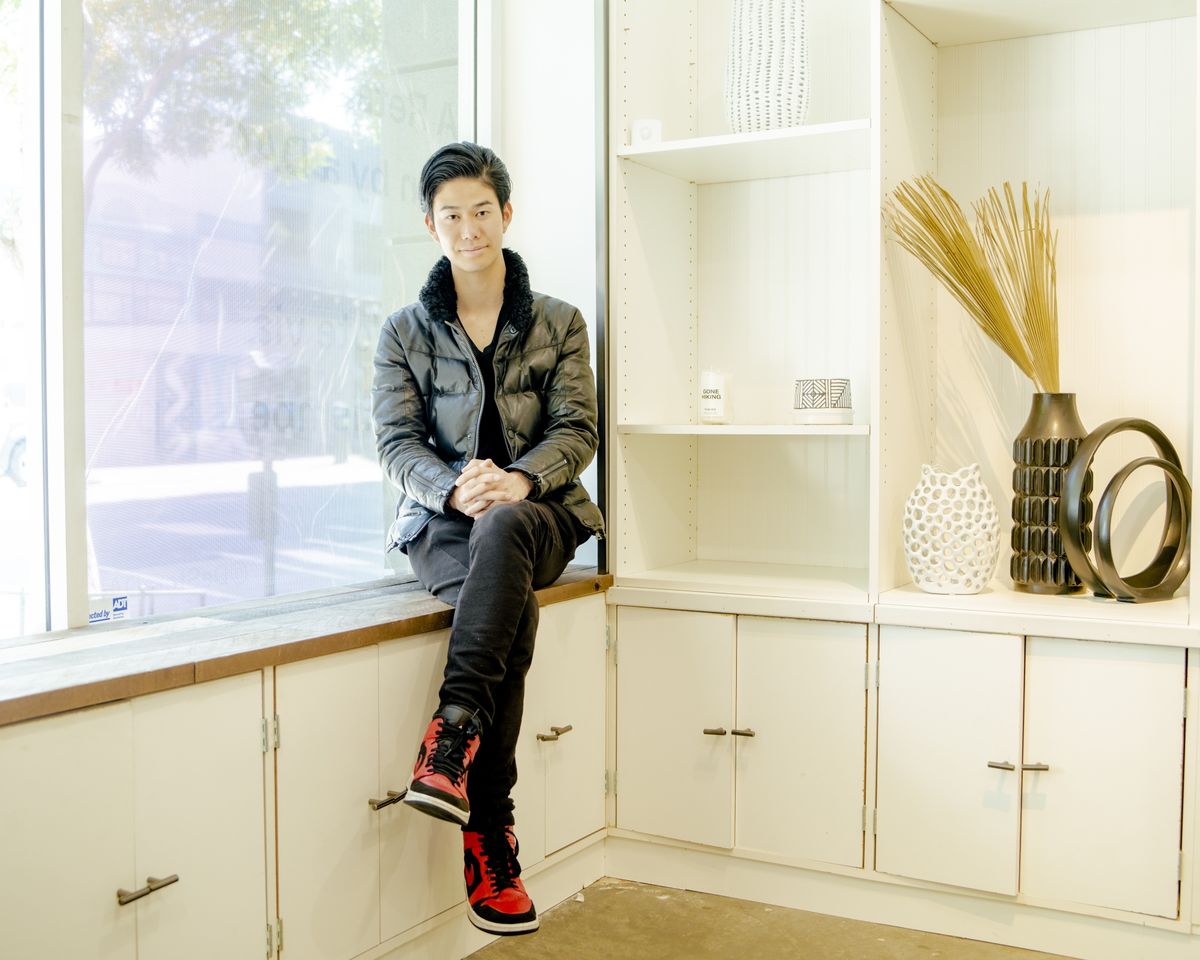
Itsuki Daito
Decentralising bricks-and-mortar ownership
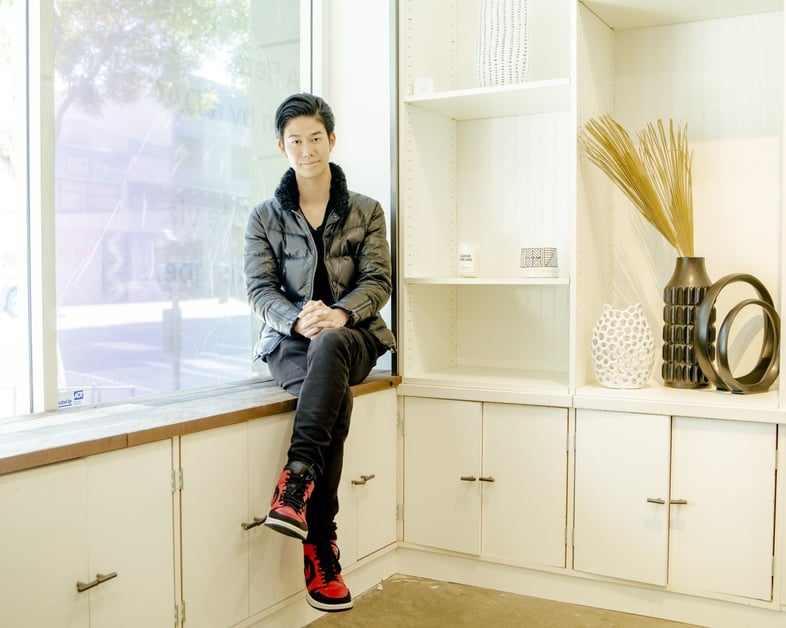
Itsuki Daito
After hosting his own experimental retail space in late 2021, Itsuki Daito noticed something different about the behaviour of consumers post-pandemic – people were coming to stores for community, not always for purchases. ‘They were looking for something they can spend on as a souvenir for the community experience,’ he tells Bloomberg. This change in retail behaviour inspired Itsuki to rethink the current framework of physical retail to allow communities to co-own stores. Cue DeStore.
DeStore enables decentralised autonomous organisations (DAOs) to run stores. When you buy an ownership non-fungible token (NFT) you become a co-owner and can help run the store via DeStore's mobile dApp. The first space to launch with the help of DeStore is STORE_0, located in San Francisco. Daito, however, has big plans and hopes to launch 5,000 unique stores all over the world.
As we navigate another crisis, concepts like Daito’s DeStore could be essential to the survival of retail. ‘Most retail businesses do not break even for year one since it takes such a long time to build up the community,’ DeStore’s website explains. In today’s landscape, however, the community comprises the owners and the consumers.
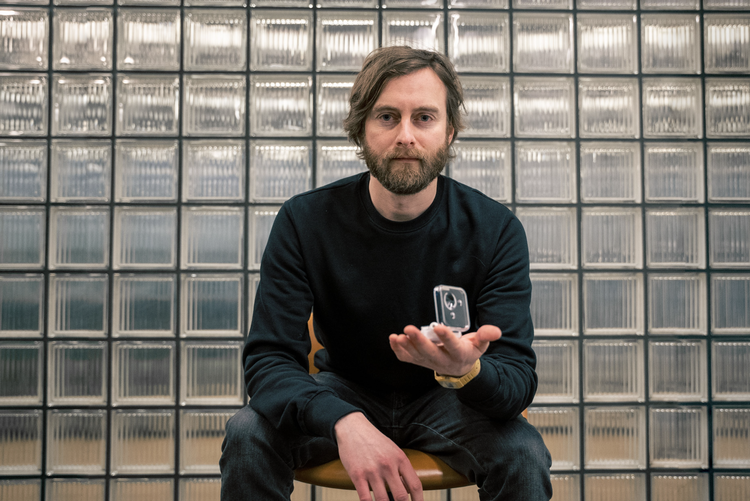
Adam Bates
Developing an independent alternative to Apple’s eco-system
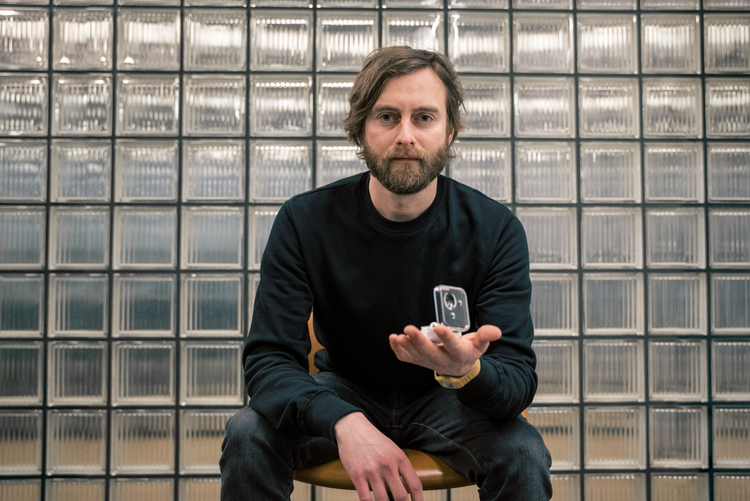
Adam Bates
Adam Bates is the design director of Nothing, an independent consumer technology company taking on tech giant Apple. After spending 14 years at Dyson, developing hairstyling products such as the Supersonic hair dryer and the Airwrap, heshifted from the large tech corporation to a more intimate company with an equally large goal.
In January 2022, he joined Nothing’s CEO and co-founder Carl Pei on his mission to build the most compelling alternative to Apple. Adam was tasked with building the London office’s first design team, which could further develop the company’s new smartphone. The project was considered a huge success, described as ‘a radical reinterpretation of mobile tech’ by Wallpaper and ‘the biggest launch of the year in the smartphone space’ by T3.
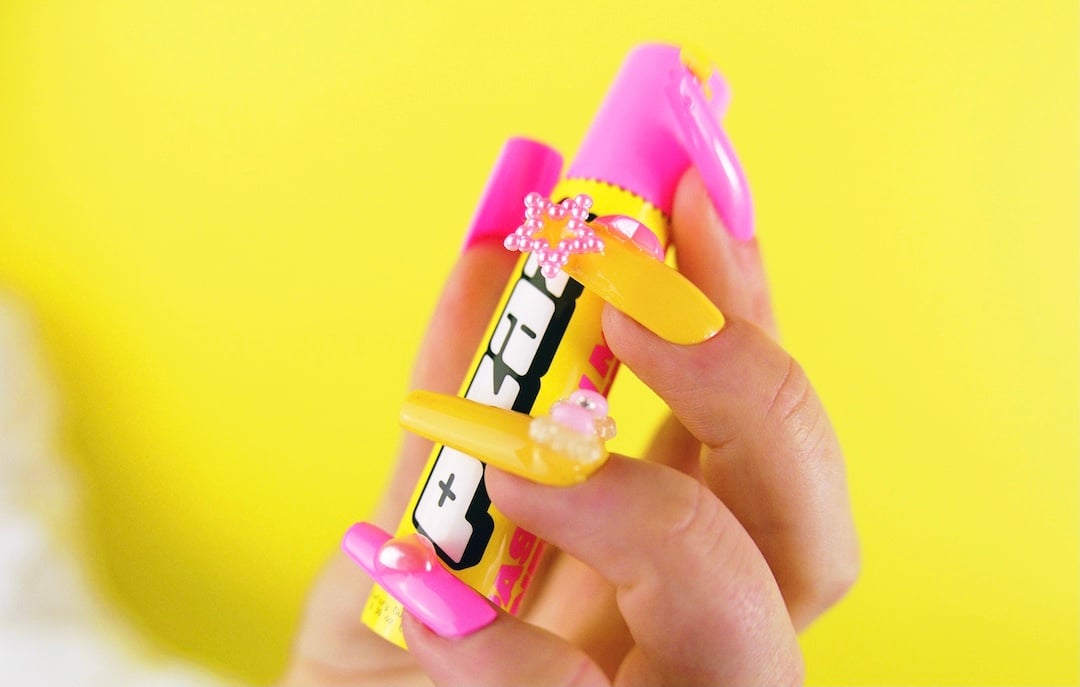
Jonah Reider
Transforming digestible wellness into a culture brand
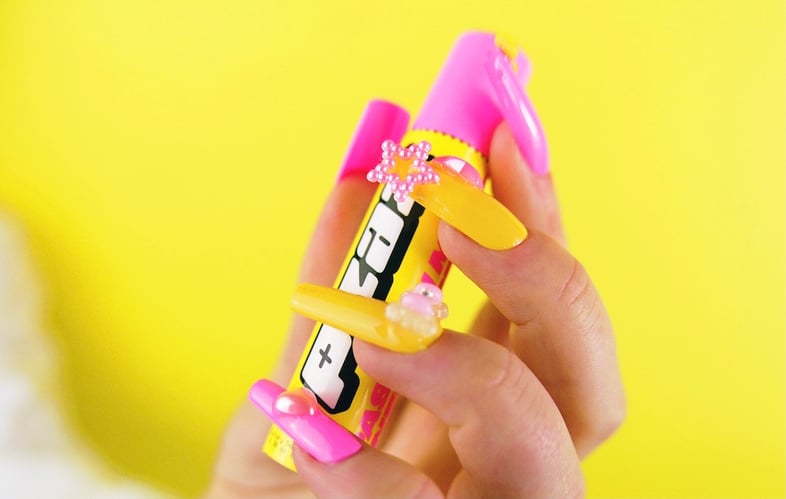
Jonah Reider
Amateur cook-turned-wellness guru Jonah Reider hopes to shake up people’s caffeine routine with an all-new breath spray containing micro-doses of the stimulant, as well as electrolytes, vitamins and minerals.
The food and beverage industry is nothing new to Jonah. Dubbed the ‘dorm chef’, Jonah ran dinner clubs out of his Columbia University residence Hogan Hall before entering the industry professionally as a consultant for F&B brands. Through his work in the sector, he noticed the digestible wellness market was overdue a refresh – one which appealed to a younger and more casual audience. ‘I don't buy these products, but more importantly, almost no one that I know does either,’ Jonah tellsHighsnobiety. This inspired him to launch Pzaz.
The breath spray is designed to replace the outdated ritual ofconsuming energy drinks and shots. The new product employs ‘instant energy technology’, which is more absorbable than traditional energy liquids or pills.
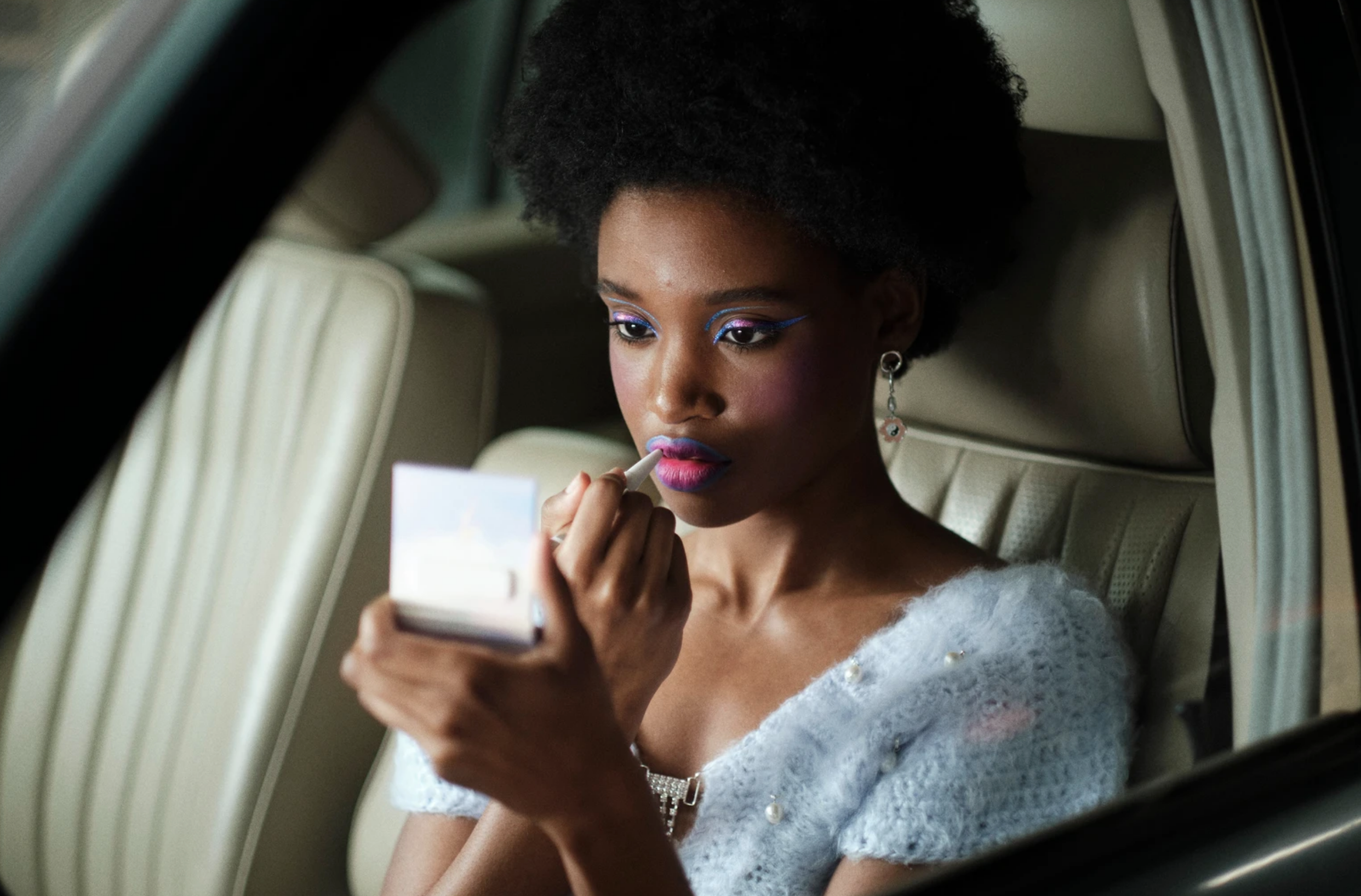
Donni Davy
Defying beauty standards through self-expression
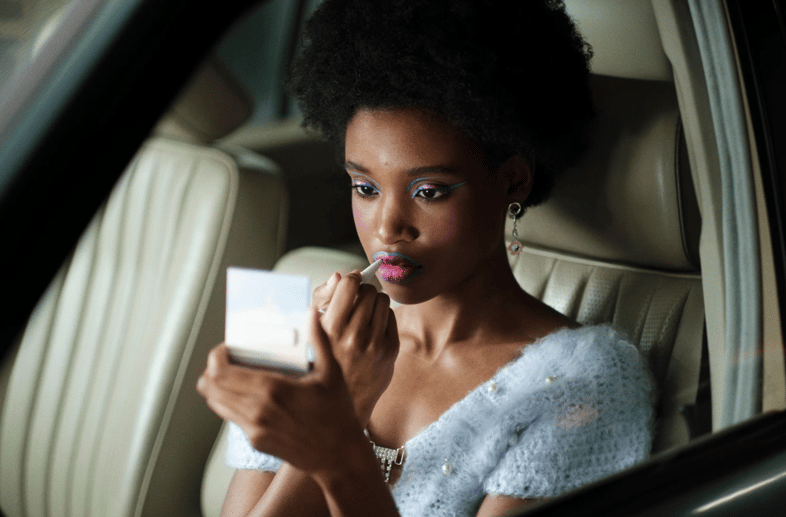
Donni Davy
Five minutes on TikTok is all it takes to see the influence that American make-up artist Donni Davy has on young people around the world. The make-up artist, who is best known for her work on the hit television show Euphoria, has legions of fans who emulate the vibrant and playful looks that appear on the programme across social media platforms.
Riding off the meteoric success of Euphoria, which has already earned her an Emmy Award for Outstanding Contemporary Makeup, Davy has launched her own make-up line, Half Magic, in collaboration with film distribution company A24. With eyeliners, eye paints, highlighters, lip liners and face gems that will allow fans to recreate the bold styles seen on-screen, the make-up brand is a celebration of self-expression rather than a way to conceal flaws or imperfections.
For these reasons, it is likely to appeal to anti-aspirational Generation Z, who are breaking free from tired beauty conventions. ‘I think self-expression through make-up can be therapeutic, cathartic and overall quite beneficial for one’s mental health,’ says Donni Davy, founder of Half Magic.
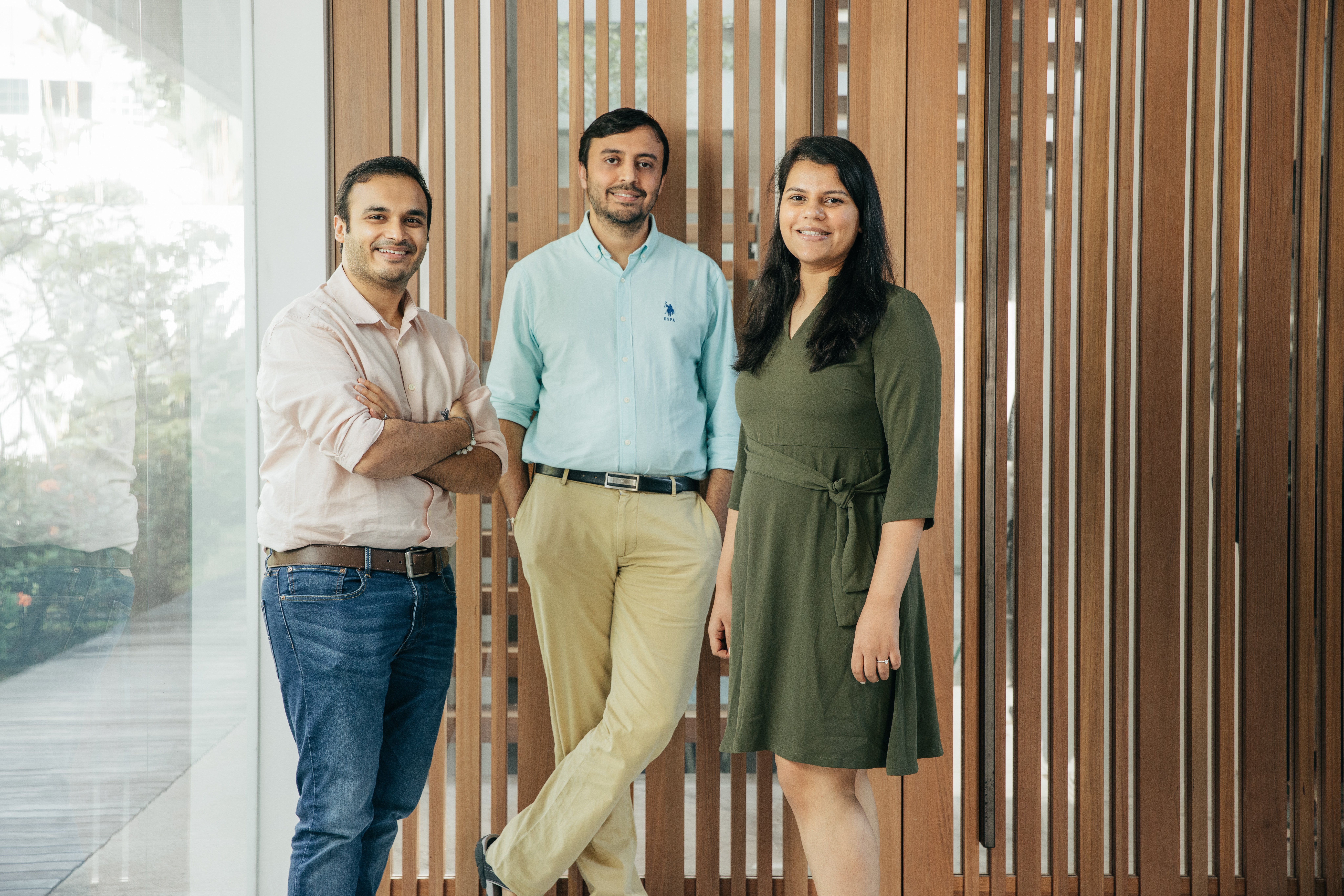
Anvi Shah
Accelerating access to healthcare in India
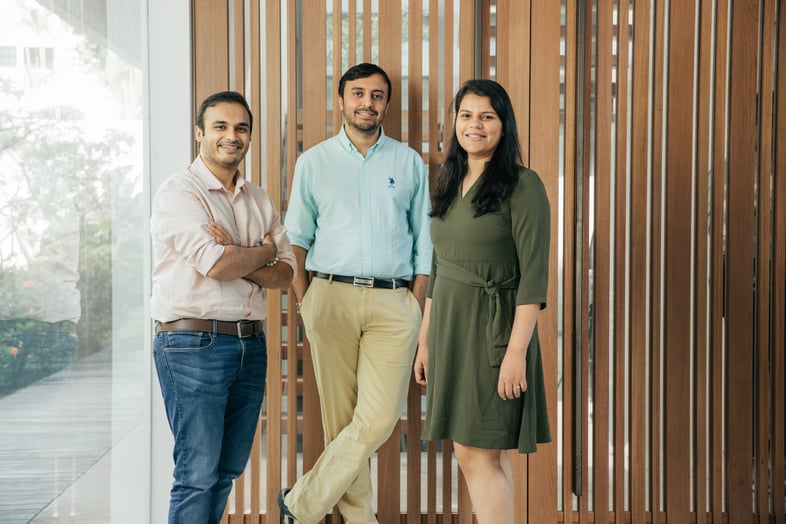
Anvi Shah
For Anvi Shah, CEO and co-founder of health and wellness e-commerce platform Hyugalife, the key to health is preventative care. As a result, Hyugalife not only offers a large selection of health products and supplements, but also functions as a content platform for education. The platform is aiming to become a go-to resource for wellbeing topics, featuring lifestyle tips that can help lessen the likelihood of developing diseases in future.
With ambitions to become the leading health e-tailer in the country, the website includes a wide range of brands, including Ayurvedic supplements, weight management products, skin, hair and nail vitamins, sports nutrition and women’s health products.
‘There is a lack of information and knowledge in India about health supplements and wellness mainly because it’s always been a populous and developing nation, so health and wellness wasn’t ever a primary topic to learn and talk about,’ explains Anvi Shah, co-founder and CEO of Hyugalife.
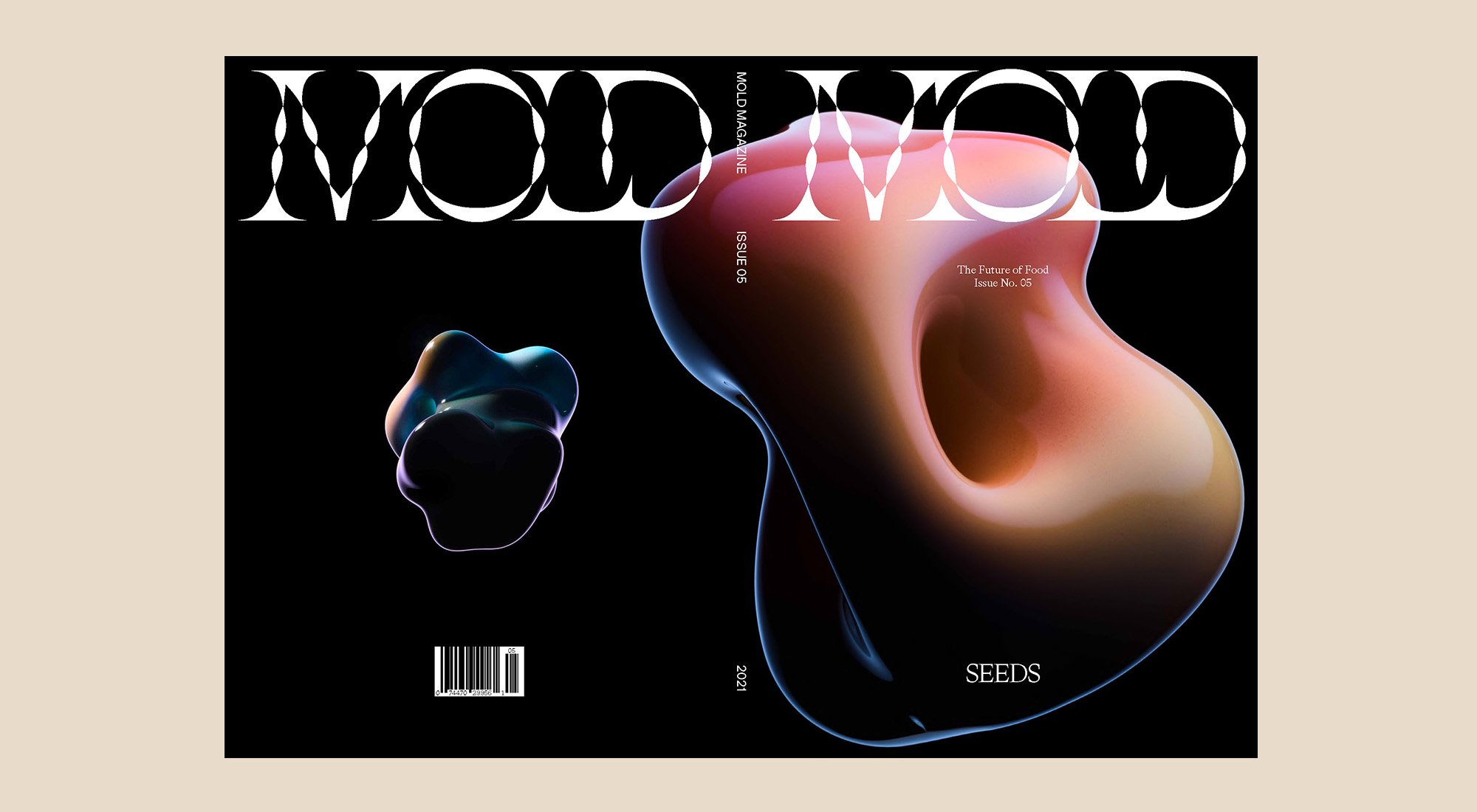
LinYee Yuan
Improving food eco-systems in 2050
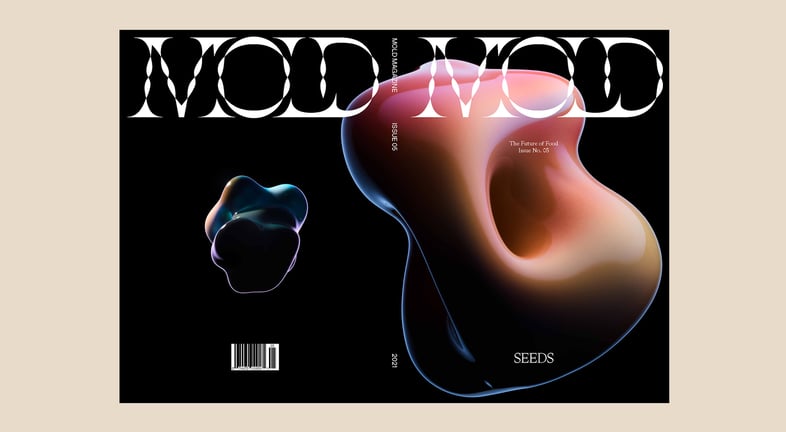
LinYee Yuan
As a design journalist, brand strategist, food access advocate and editor, LinYee Yuan has many feathers in her cap. She is the founder and editor of Mold magazine, a bi-annual publication and website that examines how design can help address the looming food crisis. Mold takes the long view, daring to imagine the world in 2050, when there are likely to be 9bn people on the planet to feed.
Most recently, Yuan founded Field Meridians, a non-profit organisation strengthening local food ecologies through critical, site-specific interventions. Field Meridians works closely with the Crown Heights community, helping build food sovereignty in the centre of Brooklyn, New York. The Field Meridians project is about ‘taking some of the product ideas and larger questions that we’ve been trying to answer through our editorial work, and really creating a place-based practice in my community here in Crown Heights, Brooklyn,’ explains LinYee Yuan.
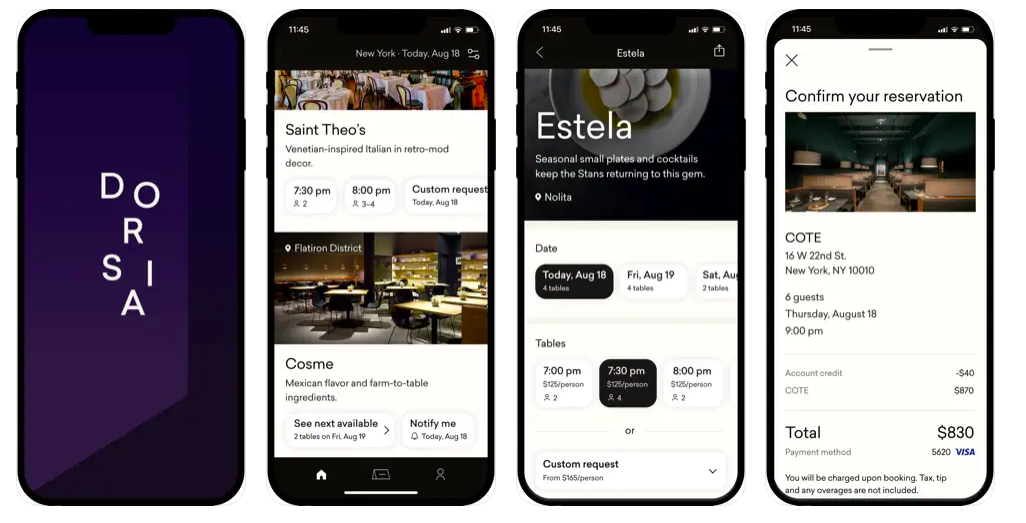
Marc Lotenberg
Getting tables for gourmands through dynamic pricing
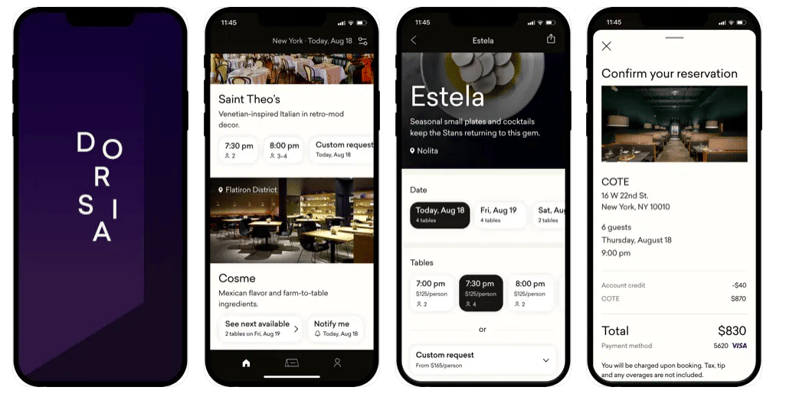
Marc Otenberg
After a decade at the helm of magazines like Surface and W, Marc Lotenberg is using his lifestyle and luxury expertise to build Dorsia, a hospitality start-up. Now in beta stage, Dorsia hopes to revolutionise the restaurant reservation process.
Since the pandemic it has never been more difficult to secure a reservation at a popular restaurant. To address this, Dorsia is introducing dynamic pricing to the hospitality sector, aiming to solve the supply-and-demand inefficiencies that afflict the industry. Dynamic pricing, often referred to as surge pricing, is most common in the ride-sharing sector. Through dynamic pricing, the members-only app is helping gourmands guarantee reservations at their favourite restaurants.
‘The process of restaurant discovery, booking and payments is broken. We’re here to change that. We’re building frictionless technology that optimises revenue for restaurants and experiences for members, and we’re on a mission to overhaul the culture and economy of the hospitality industry along the way,’ explains the Dorsia website.

Drew Litowitz and James Chae
A digital support group for the creative class

Drew Litowitz and James Chae
Building a safe space for the creative class, The Graphic Support Group is a podcast by designers Drew Litowitz and James Chae that brings the often-glamourised field of graphic design back to earth. By being open about their career successes and setbacks, Litowitz and Chae are reclaimingfailure, an essential component of every creative journey.
Every podcast episode explores a theme, such as anxiety, overcorrection or adaptability, and digs deep into the experiences of a guest designer without glossing over moments of disappointment or frustration. The result is a podcast that strives to help designers at the start of their career or who might feel they are in a rut.
‘I think what we’re really trying to do is create a space where people feel comfortable sharing their vulnerabilities both within their emotional psychological life, but also their design life,’says Chae.
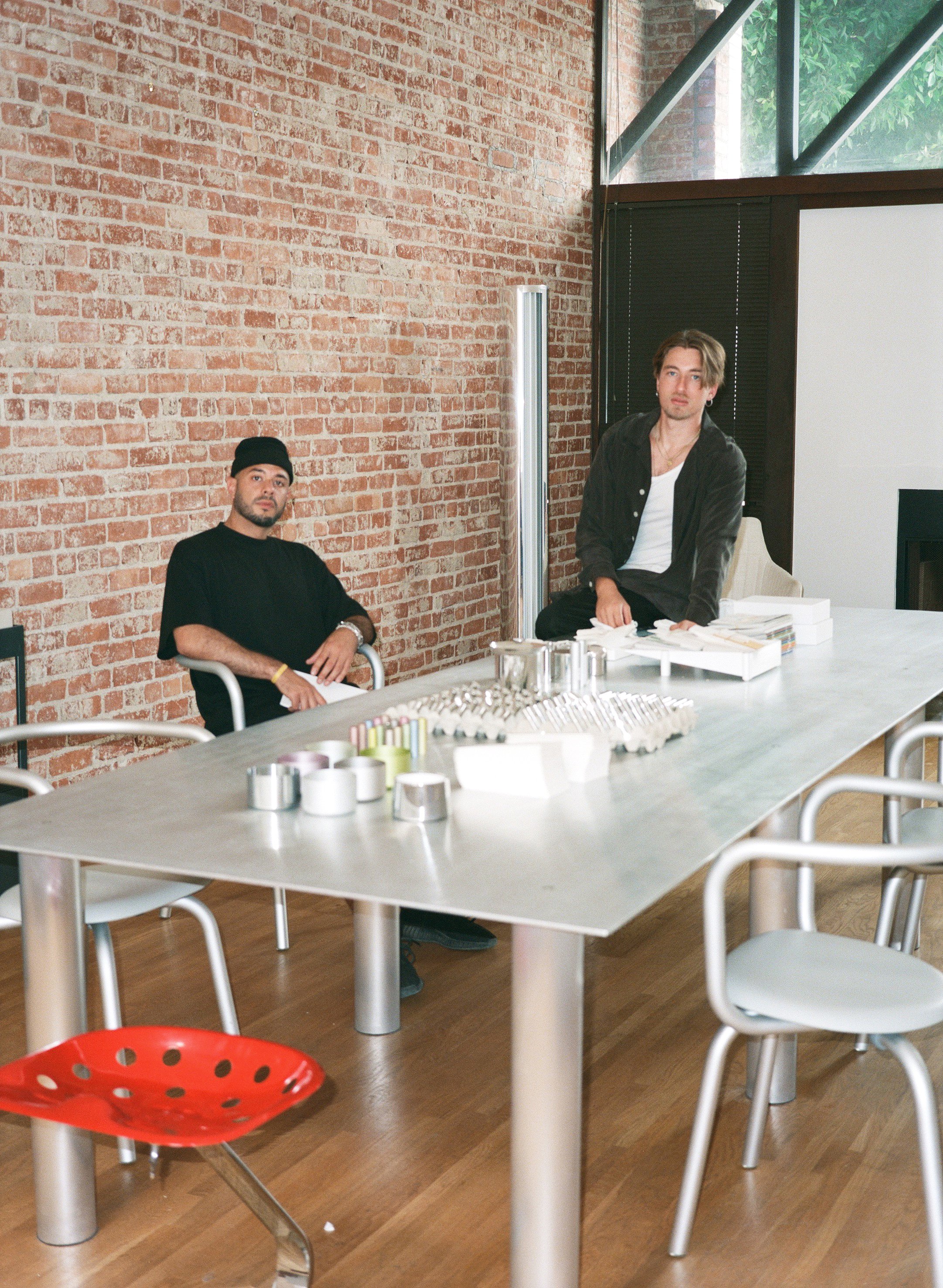
Enrico Pietra and Rodrigo Caula
A fragrance company fusing biotech with the blockchain
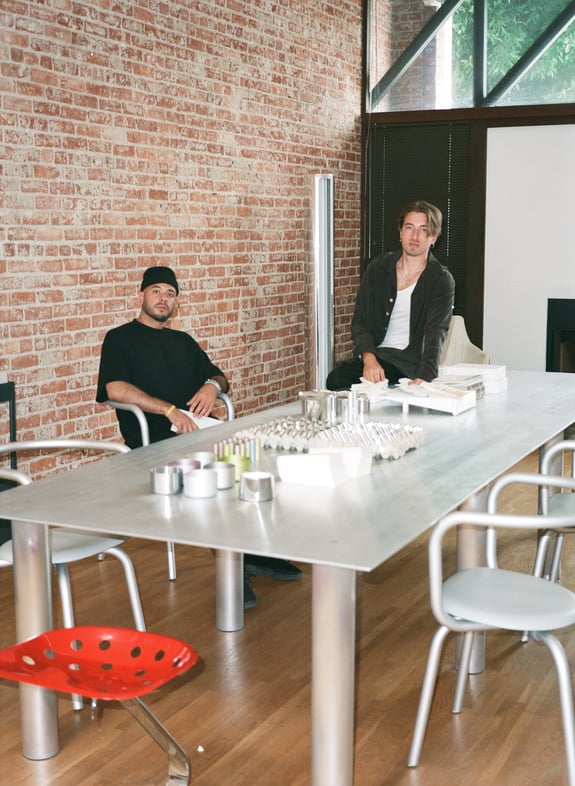
Enrico Pietra and Rodrigo Caula
With growing concerns about the over-extraction of natural materials in the perfume industry, designers Enrico Pietra and Rodrigo Caula have launched a fragrance company that fuses synthetic ingredients with blockchain technology to pave a more sustainable path for the beauty industry.
Instead of depleting natural resources, Aeir uses biotechnology to replicate popular scents synthetically. In a process which the company likens to lab-grown diamonds, Aeir takes a botanical molecule and replicates it without the need to harvest organic ingredients.
In addition to using synthetic ingredients, the company is also exploring the potential of blockchain technology, creating a trademarked Web3 app that provides insider access to products called Aeir ID. ‘Once you become a member of Aeir ID, you gain access to our refill programme among other exclusive products. You’ll be able to subscribe to various scents and receive them on a bi-monthly cadence,’ says Rodrigo Caula, co-founder of Aeir.
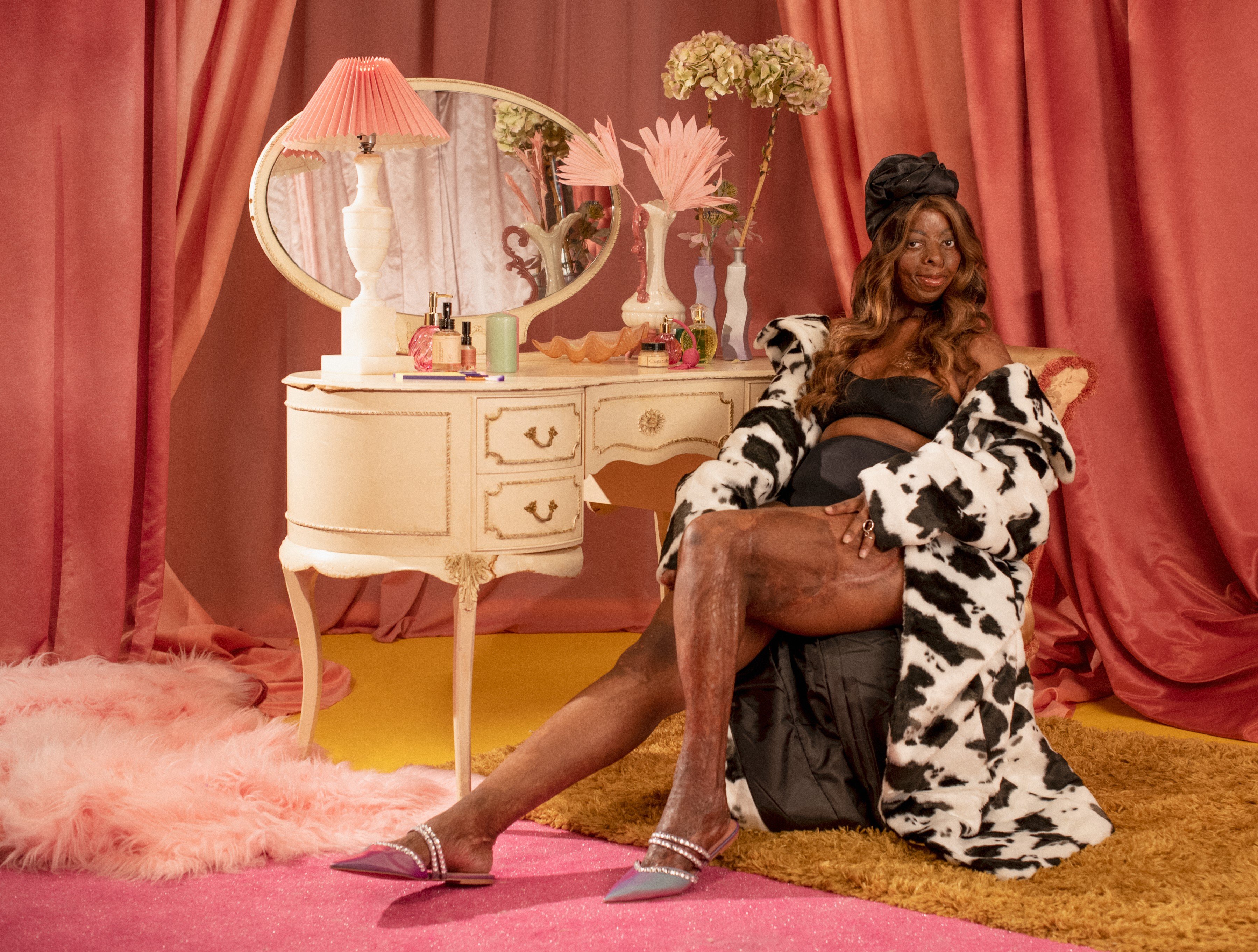
Maria O’Sullivan-Abeyratne
Creating a premium platform for inclusive and adaptive fashion
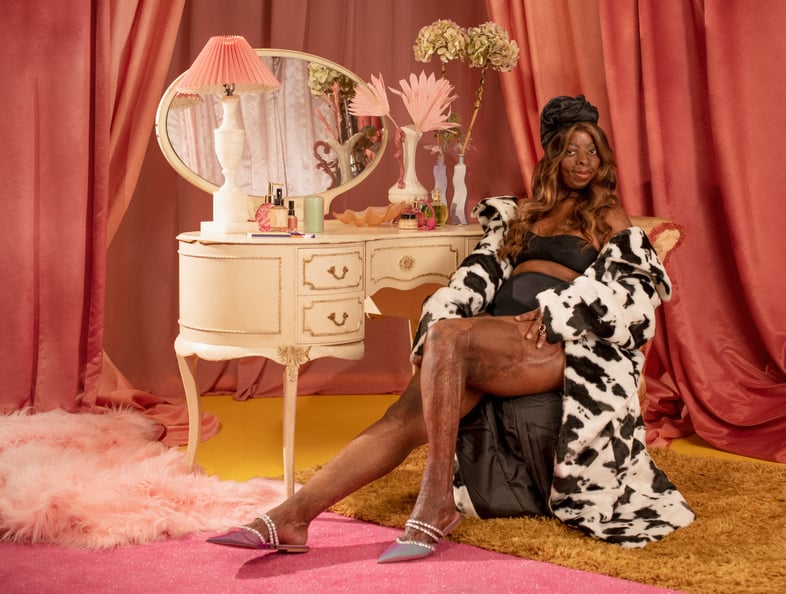
Maria O’Sullivan-Abeyratne
After struggling to find inclusive and adaptive retail experiences and products, Maria O’Sullivan-Abeyratne, a garment technologist and disability advocate, has launched Adaptista, a luxury e-commerce platform that caters for consumers with a range of mobility considerations.
Unlike many marketplaces that serve the disabled consumer segment, Adaptista prides itself on presenting products in a refined, elevated manner, even earning the nickname ‘the Farfetch of inclusive design and ethical e-commerce’ (source: Vogue Business). The marketplace features products from fashion-forward yet functional brands including Constant & Zoé, BP3 Underwear and Free Form Style.
Despite promises to increase diversity and inclusion, the fashion industry has been reluctant to embrace the adaptive fashion category, with only a handful of brands active in this segment. ‘Brands need to move beyond the ‘us and them’ approach, which has led to tokenism. We built Adaptista as a fully accessible space, built and run by disabled people,’ explains Maria O’Sullivan-Abeyratne, founder and CEO of Adaptista.
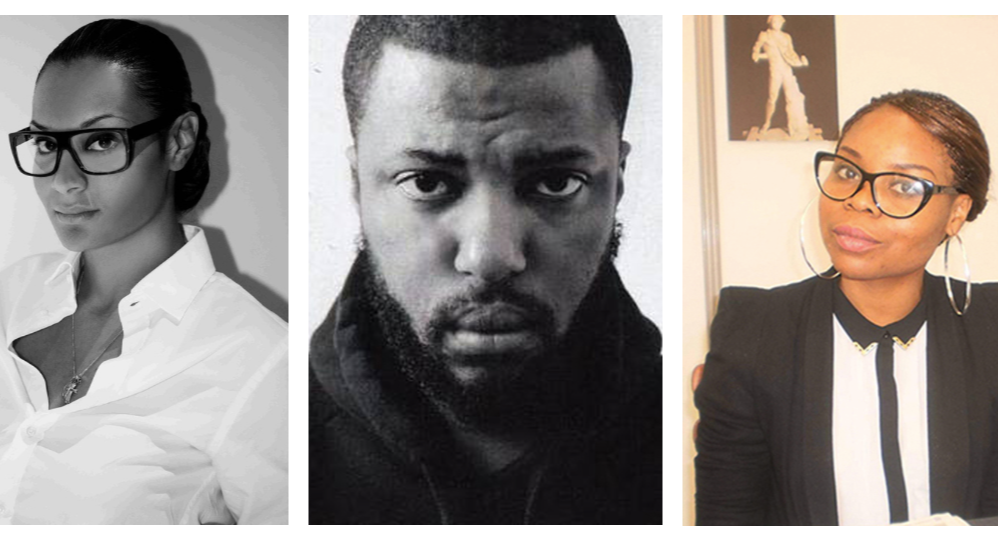
Stella Jean, Edward Buchanan and Michelle Ngonmo
Giving Made in Italy a much-needed makeover
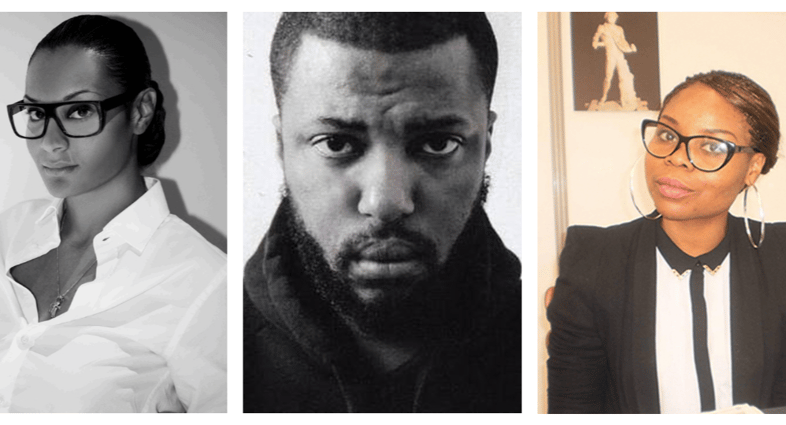
Stella Jean, Edward Buchanan and Michelle Ngonmo
Over the years, Made in Italy has become synonymous with high-quality craftsmanship and artisanal production. But, while idealised images of the Italian fashion market abound, the Made in Italy brand has fallen out of step with the reality of the country’s multiculturalism and diversity.
Bringing inclusivity to the forefront of Italian fashion, We Are Made in Italy (WAMI) is a collective started by designers Stella Jeanand Edward Buchanan and talent scout and Afro Fashion Week Milan founder Michelle Ngonmo. The collective, which began as a response to the lack of visibility for Black, Indigenous designers of colour at Milan Fashion Week, has the goal of changing ‘a broken system so that in the future [Black, Indigenous designers of colour] will not have to battle as we are’, says Edward Buchanan, co-founder of WAMI.
Breaking down barriers for emerging designers, the collective is helping to foster a new generation of talent through mentoring, fashion shows and opportunities. By challenging the hackneyed stereotypes of the Made in Italy brand, WAMI is forging a new chapter for Italian fashion.

Akash Nigam
Arming creators with tools to build an avatar eco-system

Akash Nigam
Akash Nigam was quick to spot a gap in the market when he co-founded avatar technology company Genies in 2017. The company, which provides users with digital tools to create and sell online characters, outfits and spaces, is now valued at £875.2m ($1bn, €1bn), and has received investment led by private equity firm Silver Lake.
Now, the company has launched The Warehouse, a non-fungible token (NFT) marketplace for digital wearables. The Warehouse will allow users to create and sell digital clothing as NFTs and retain the intellectual property rights to their designs. Every time one of their designs is resold, the original creator will receive most of the proceeds with Genies taking a 5% cut.
Through innovative royalty systems, the platform aims to inspire greater artistic expression and experimentation. It’s also allowing buyers to customise the items they purchase. According to Nigam, buyers will own the ‘rights to be able to edit it or DIY [purchases] within the studio platform, so they can use the tools and create a derivative collection’.
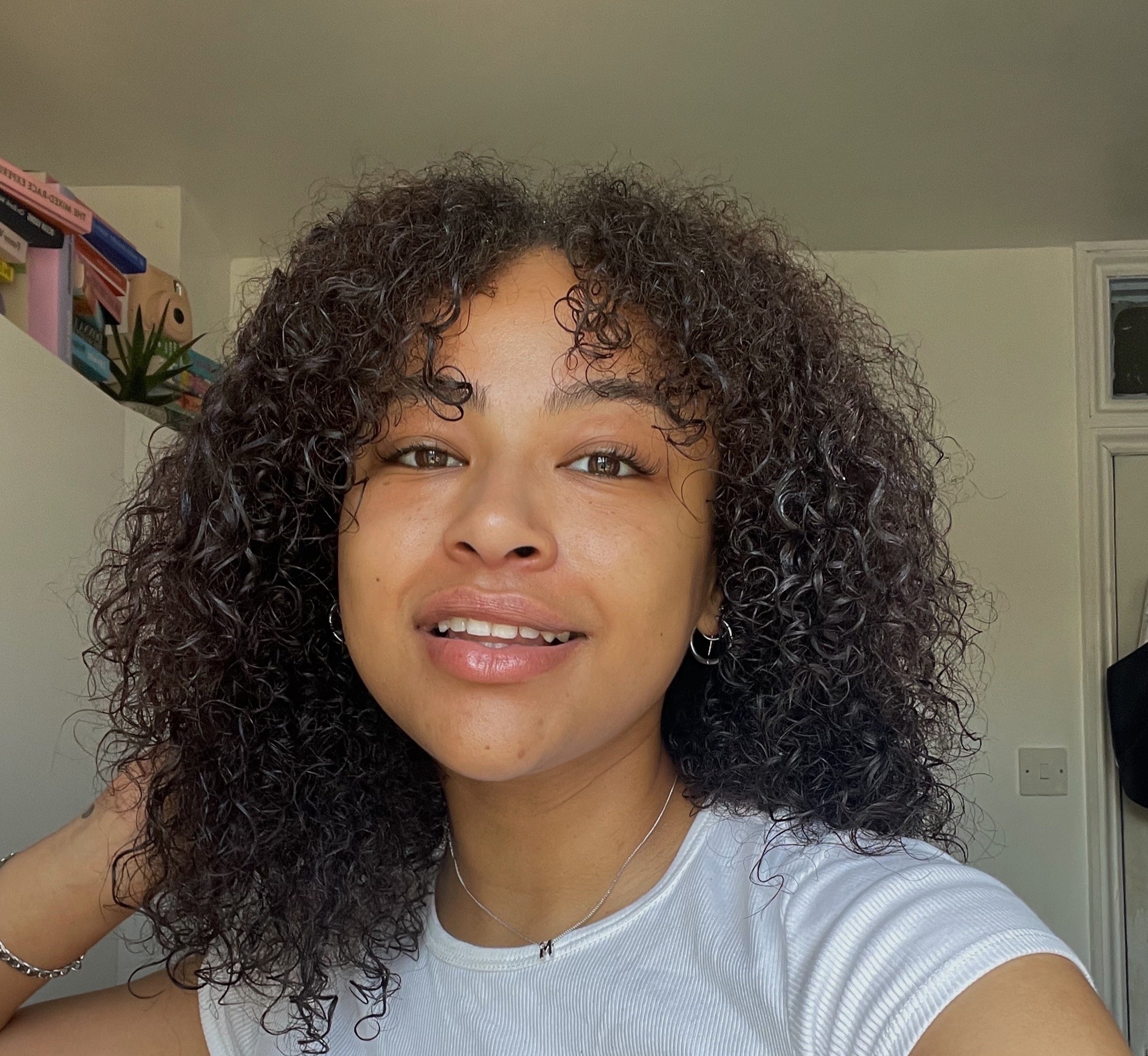
Mary Steven
Overcoming anxiety through exploring the outdoors
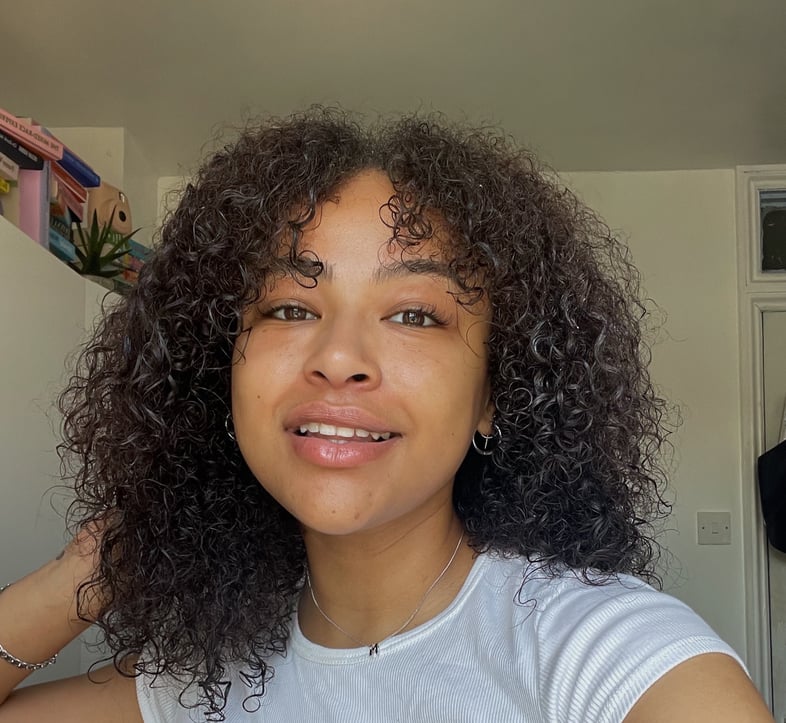
Mary Steven
Mary Steven is the face of wellbeing media platform Woo’snew series, Nature’s Calling. The series explores how spending time in nature can benefit mental health by providingcoping mechanisms for anxiety and stress. Rather than preaching perfection, the programme extols the benefits of trying something new, distancing itself from the Goop-style wellness narratives that have saturated popular media in recent years.
Guiding audiences through experiences like wild swimming, bird-watching, and life drawing, Steven is a relatable host whose cheery attitude and curious disposition is contagious. Steven, who also goes by the TikTok handle oatmilkleader, is often filmed trying things for the first time, making it even easier for audience members to identify with her.
Providing an alternative to consumer- and beauty-centric definitions of wellness, Steven represents the new vanguard of mental health influencers, helping young people overcome anxiety and stress through wholesome activities that are free and nature-focused.
Sue Fennessy is a serial tech entrepreneur transforming social media. She is the CEO and founder of WeAre8 a social media platform powered by social good. The revolutionary app does not tolerate hate and encourages social media users to create content that has a positive impact on the world. Sue has spent the last 30 years creating disruptive media and data businesses in the digital economy across Asia, Europe and North America. Previously she founded Standard Media Index, the world’s leading media data aggregation business and has been spotlighted by Forbes as a leading tech innovator. Sue’s mission is to inspire, empower, and mobilise people through tech to feel their power to change the world every day.
The multi-award-winning Dr Nakalembe was the recipient of our Futures 100 2022 Innovators Award. Catherine is assistant professor at the University of Maryland’s Department of Geographical Sciences, where she focuses on developing remote sensing and machine learning applications for smallholder agriculture, early warning of food insecurity, and disaster assessment in Africa. She is also the Africa Programme director for NASA Harvest and a NASA SERVIR Applied Sciences team member.
As the guiding light behind the magazine and creative platform, THIIIRD magazine, Rhona’s job is to empower under-represented people by putting them at the forefront of the creative industry and culture. Exploring fashion, art, culture and society, THIIIRD showcases the being and art of people of colour, the queer community, women and others with marginalised backgrounds. A multi-hyphenate at heart, Rhona is also a creative director and stylist working across the full spectrum of fashion, music and advertising.
Farzana is a passionate storyteller, bridge-builder and diversity champion because these things working in tandem create a better and more equitable playing field for everybody. At Curzon PR, she and her team apply these skills to help governments, corporations, entrepreneurs and the culture industries to communicate effectively, innovatively and with clarity and commitment. She is also PR adviser-in-residence at the Entrepreneurship Centre, University of Oxford.
Sue Fennessy is a serial tech entrepreneur transforming social media. She is the CEO and founder of WeAre8 a social media platform powered by social good. The revolutionary app does not tolerate hate and encourages social media users to create content that has a positive impact on the world. Sue has spent the last 30 years creating disruptive media and data businesses in the digital economy across Asia, Europe and North America. Previously she founded Standard Media Index, the world’s leading media data aggregation business and has been spotlighted by Forbes as a leading tech innovator. Sue’s mission is to inspire, empower, and mobilise people through tech to feel their power to change the world every day.
The multi-award-winning Dr Nakalembe was the recipient of our Futures 100 2022 Innovators Award. Catherine is assistant professor at the University of Maryland’s Department of Geographical Sciences, where she focuses on developing remote sensing and machine learning applications for smallholder agriculture, early warning of food insecurity, and disaster assessment in Africa. She is also the Africa Programme director for NASA Harvest and a NASA SERVIR Applied Sciences team member.
As the guiding light behind the magazine and creative platform, THIIIRD magazine, Rhona’s job is to empower under-represented people by putting them at the forefront of the creative industry and culture. Exploring fashion, art, culture and society, THIIIRD showcases the being and art of people of colour, the queer community, women and others with marginalised backgrounds. A multi-hyphenate at heart, Rhona is also a creative director and stylist working across the full spectrum of fashion, music and advertising.
Farzana is a passionate storyteller, bridge-builder and diversity champion because these things working in tandem create a better and more equitable playing field for everybody. At Curzon PR, she and her team apply these skills to help governments, corporations, entrepreneurs and the culture industries to communicate effectively, innovatively and with clarity and commitment. She is also PR adviser-in-residence at the Entrepreneurship Centre, University of Oxford.
Martin is a well-known trend guru, having written several best-selling books on trend forecasting, including The Trend Forecaster’s Handbook and The Tomorrow People. Martin contributes regularly as an expert on trends and business to the BBC, Channel 4 and ITV.
Sponsorship Packages - Register Interest
Download media pack
Interested in sponsoring our Futures 100 Innovators Awards?
Get in touch to find out more about our sponsorship packages.